

Everest Base Camp Trek Cost: Breaking Down The Cost Of An EBC Hike
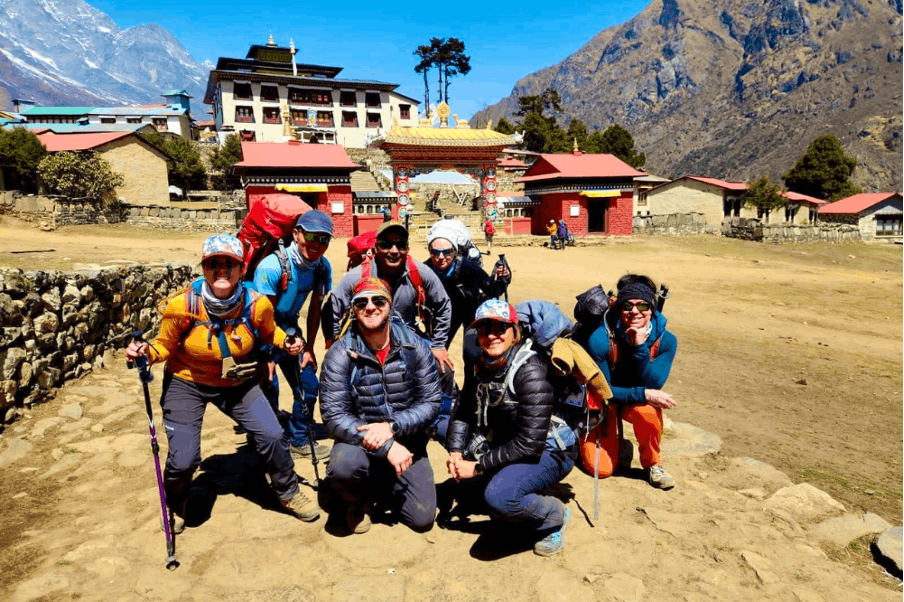
Mount Everest Base Camp Cost
Accommodation & food.
Tea Houses: $15 - $30/night
Food: $20 - $45/day
Water: $1.50 - $6/litre
Permits & Insurance
Permits: $50 - $100
Insurance: $100 - $300
Guides & Porters
Guide: $20 - $35/day
Porter: $12 -$20/day
Specialized Gear
Hiking Boots: $150 - $250
Insulated Jacket: $100 - $300
Sleeping Bag: $150 - $400
Additional Costs
Flights to and from Lukla: $100-$150
Additional Costs: Tips, personal expenses, etc.
How Much Does it Cost to Go to Everest Base Camp: A Detailed Breakdown
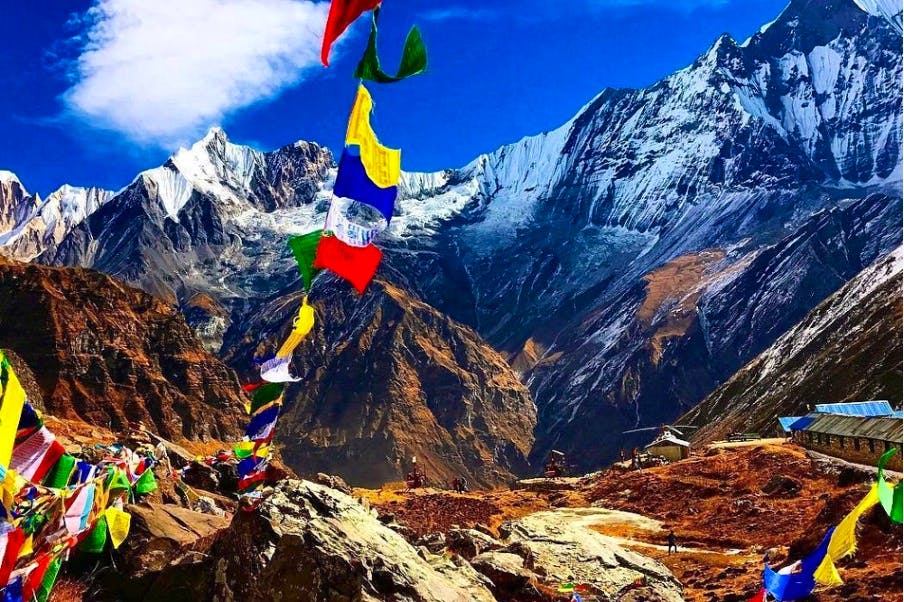
Accommodation and Food
Types of accommodation, food options, water and snacks, trekking permits and insurance.

Types of Permits
Importance of insurance, types of coverage.
Medical Evacuation: In the worst-case scenario, you might need to be airlifted from the trail. Make sure your insurance covers this.
General Travel Insurance: This covers trip cancellations, lost luggage, and other travel-related mishaps.
Trekking Insurance: This is specialised coverage for the risks associated with trekking at altitude. Also, check if your policy covers hospitalisation for illnesses and injury.
Cost and Altitude Limit
Recommended provider.
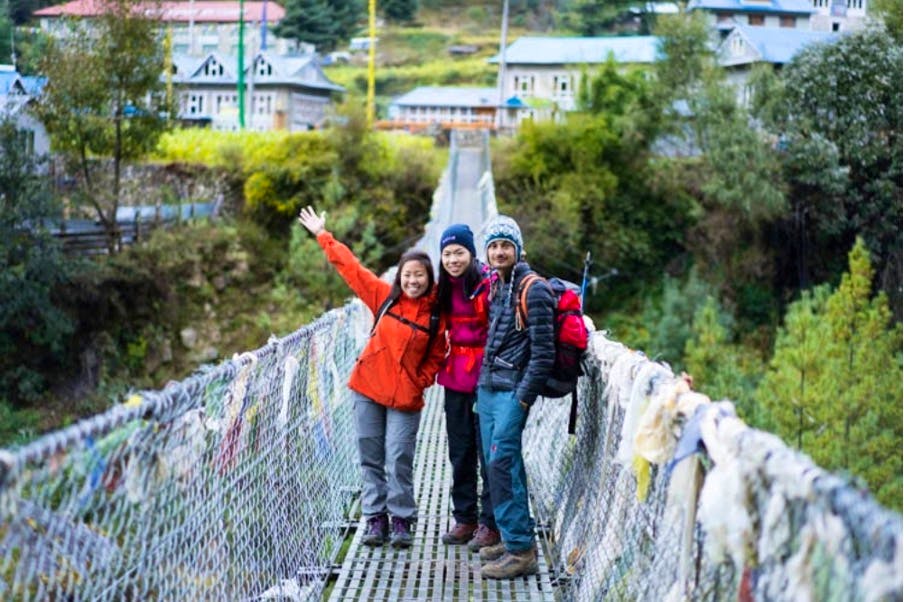
Duration and Itinerary
Standard duration, luxury options, guides and porters.
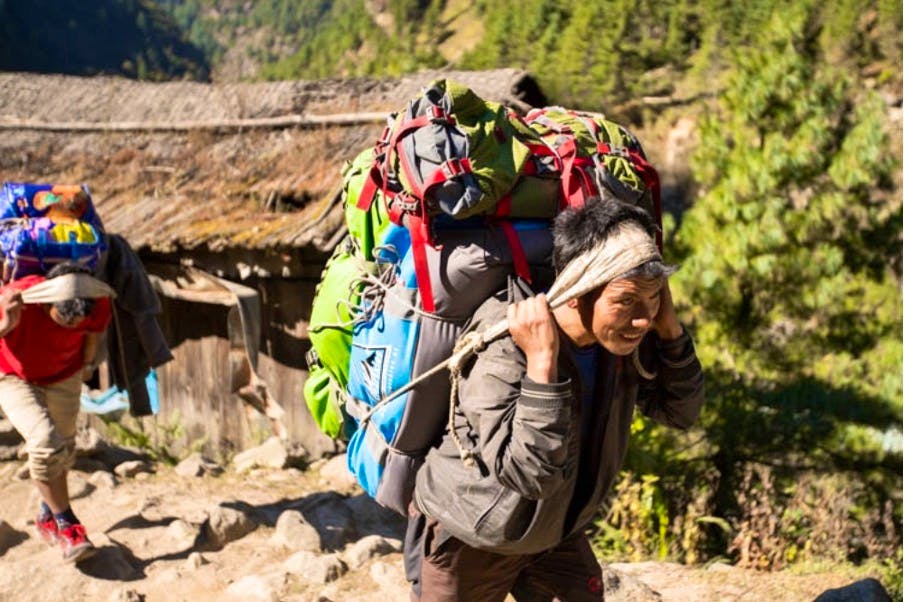
We're giving away a trip to Morocco! It's time to win your next Skyhook adventure. Click below to check out the details and enter the competition.
The Norm: Agency-Led Treks
Local agencies: the unknown factor, international operators: the safer bet, enter skyhook.
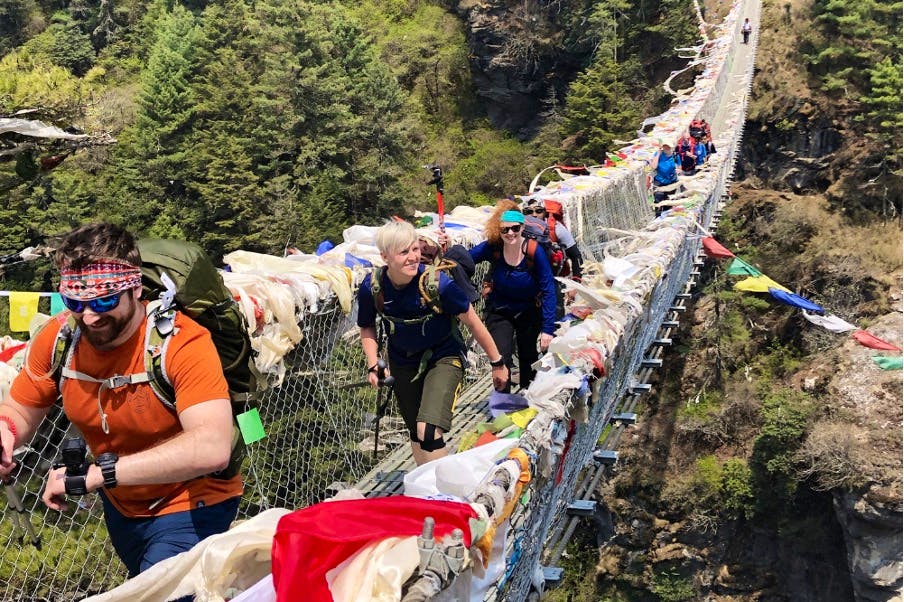
Specialised Hiking Gear
Footwear: the foundation of your trek.
High-Quality Hiking Boots: Expect to pay around $150-$250 for a pair that offers ankle support, waterproofing, and durability.
Clothing: Layering is Key
Base Layers: Moisture-wicking and thermal base layers are crucial. Budget around $40-$80 per piece.
Insulated Jacket: A down or synthetic insulated jacket can cost anywhere from $100-$300.
Waterproof Outer Layer: Expect to pay $100-$200 for a reliable waterproof and windproof jacket.
Gear: The Essentials and the Specialised
Trekking Poles: A pair of quality trekking poles will cost around $80-$150.
Backpack: A 40-50L hiking backpack ranges from $100-$250.
Sleeping Bag: Given the cold temperatures, a four-season sleeping bag is a must, costing around $150-$400.
Tech and Accessories
Headlamp: A reliable headlamp can cost between $20-$50.
Portable Charger: Given the lack of charging facilities, a good portable charger is essential, costing around $30-$60.
Specialised Gear
High-Altitude Sunglasses: To protect against intense UV rays, budget around $50-$100.

Provisions for Extra Acclimatisation Days
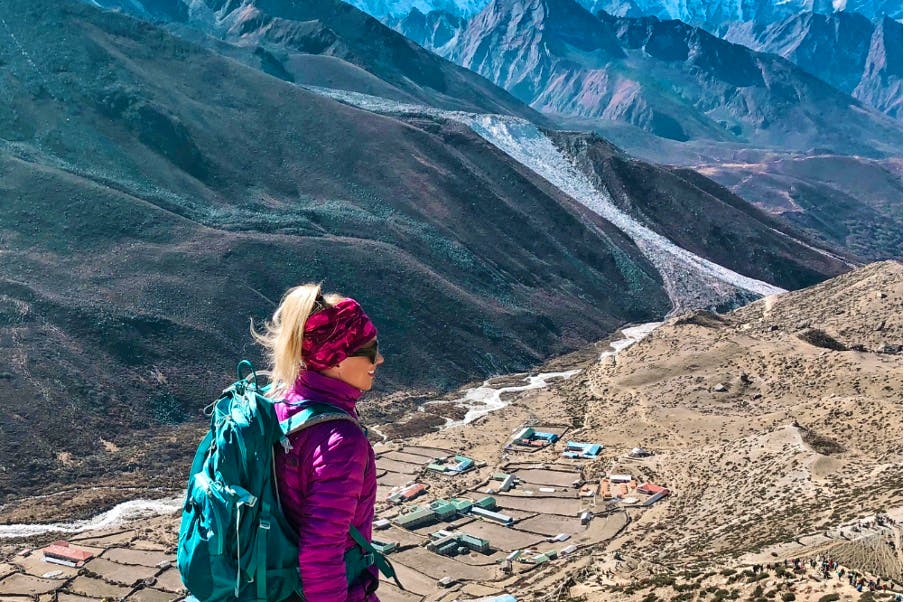
Best Time to Trek
Peak season: spring and autumn.
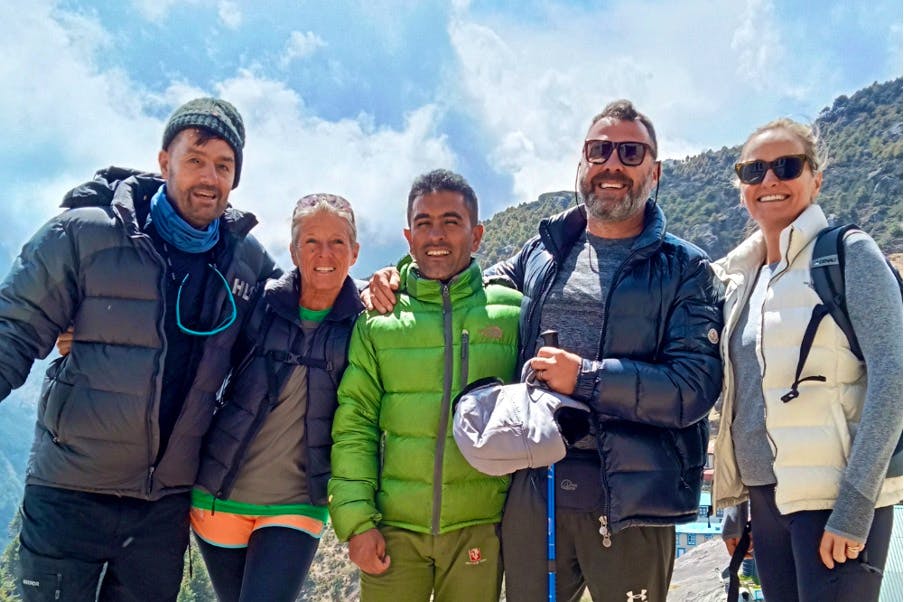
More EBC Articles
How difficult is the EBC trek
Tips for travelling in Nepal
Everest base camp history
How far is base camp from the top of Everest
Travel insurance for Everest base camp
How to train for Everest base camp
View of Mt Everest from EBC
Is it safe to hike to Everest base camp
Can you do Everest base camp on your own
Kilimanjaro or Everest base camp
Everest base camp or Annapurna circuit
How many people die on the Everest base camp trek
Is hiking to Everest base camp worth it
Can a beginner hike to Everest base camp
EBC hiking tips
Oxygen levels at EBC
Reasons to go trek to Everest base camp
Toilets en route to Everest Base Camp
Difference between EBC hike and Summit
Can a 10 year old hike to EBC
Best things to do in Kathmandu
Trek around Kathmandu
Find your next adventure

Everest Base Camp Hike (16 Day Trip)
$1,450 per person

Everest Base Camp Trek (15 Days)
$1,597 per person

Everest Base Camp Trek (12 Day Hike)
$1,158 per person
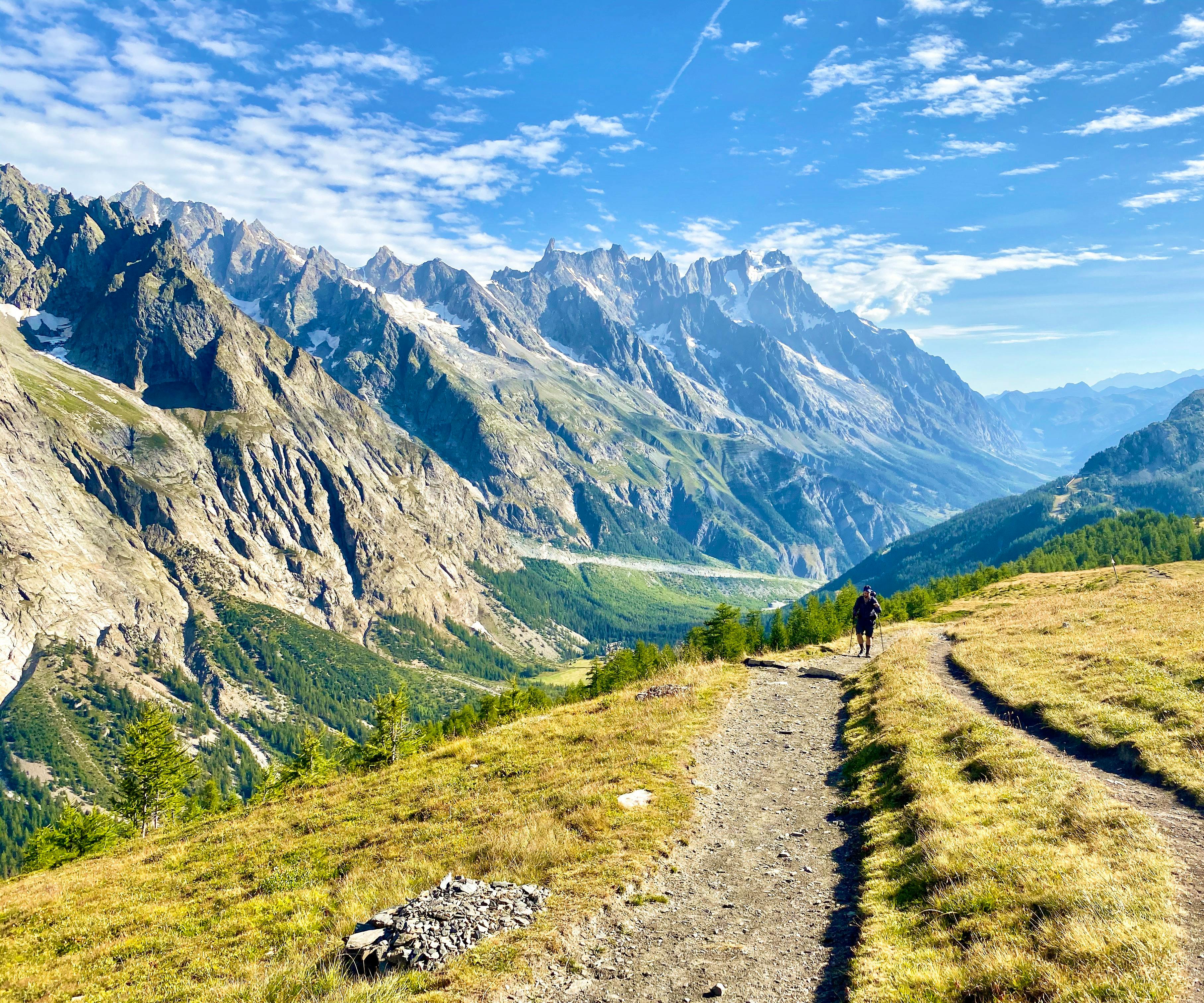
Tour du Mont Blanc (4-Days)
Switzerland
€750 per person
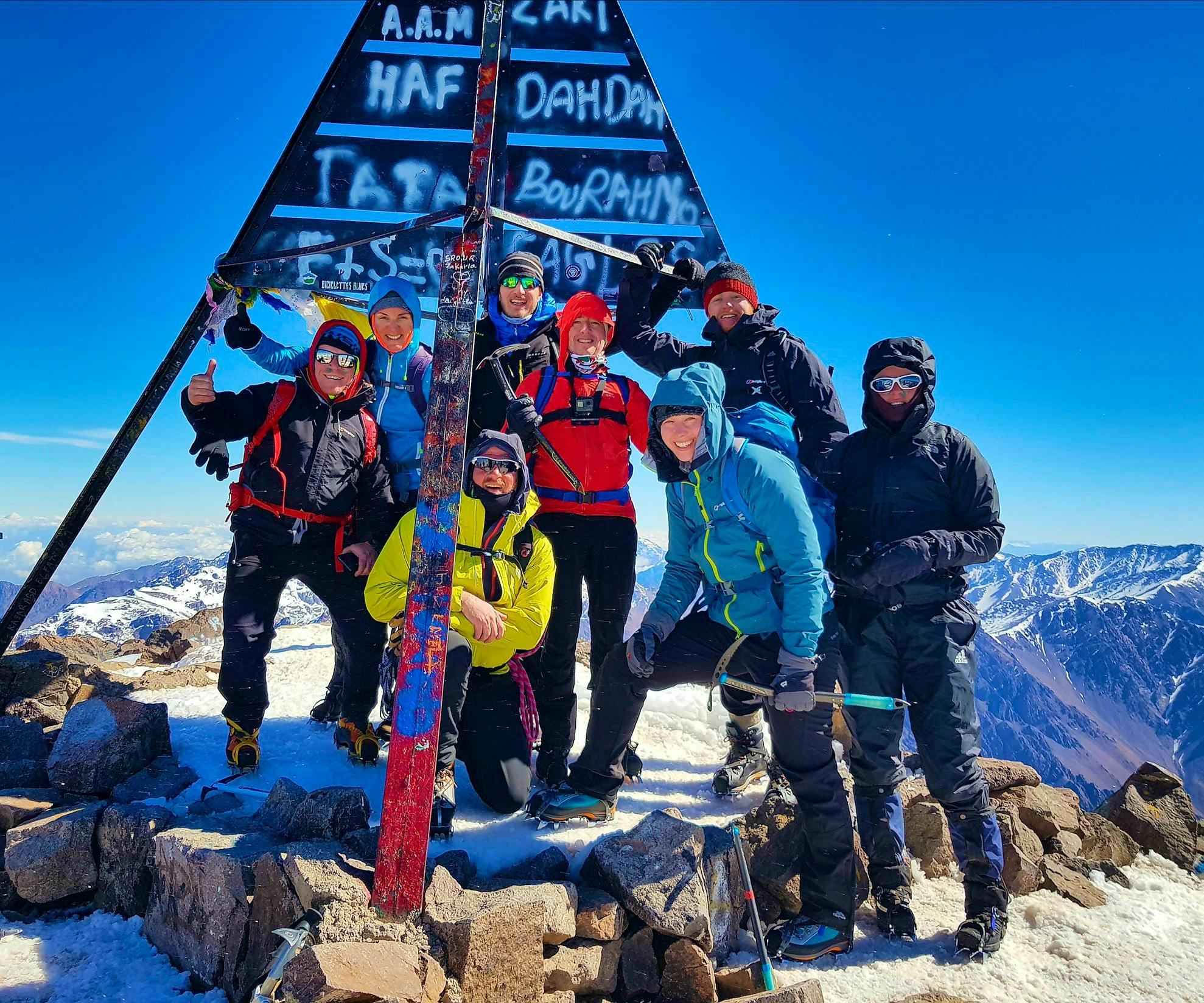
Hike Mount Toubkal (4,167m)
£319 per person
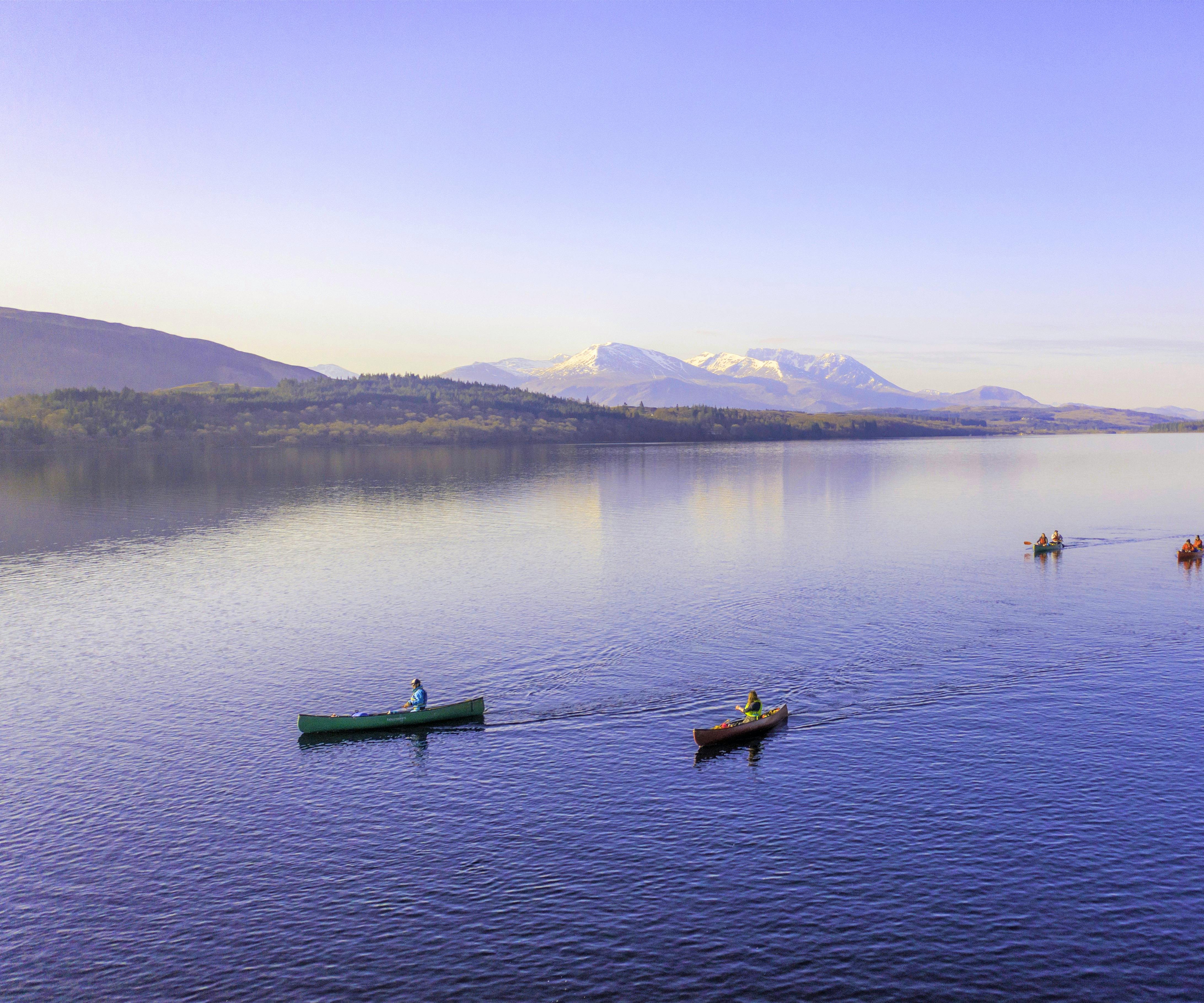
Canoe Across Scotland
United Kingdom
£566 per person

Mosaic Adventure
Unleash the trekking bug in you…. experience the Himalayan touch……
Everest Base Camp Trek Cost
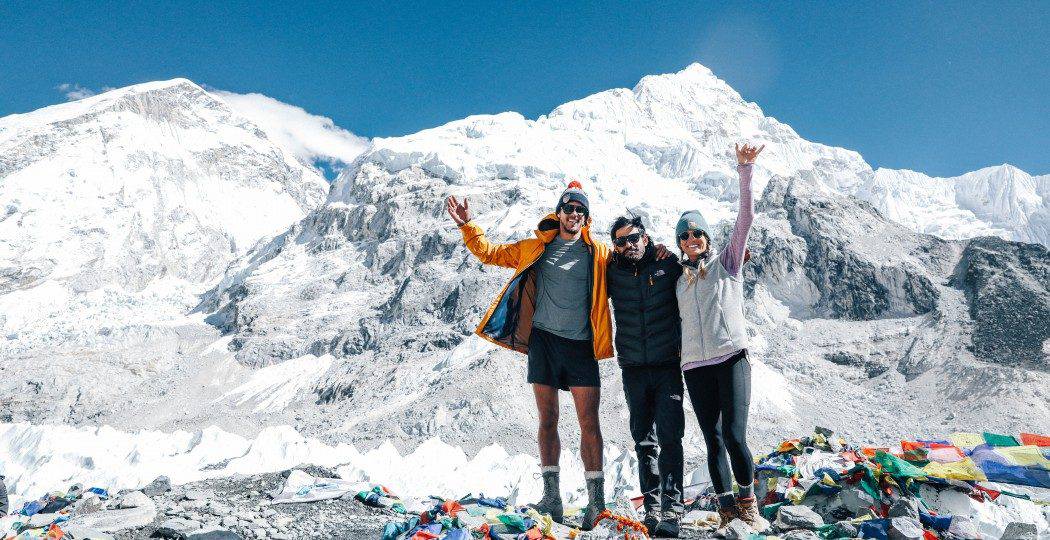
Thousands of trekkers come to Nepal every year just to catch a glimpse of Mount Everest. The best and most popular option to witness Everest in all its glory is signing up for the Everest Base Camp trek. One of the most frequently asked questions is, ‘What is the cost of the Everest Base Camp trek?
Taking the trek of a lifetime to the Base Camp of Mount Everest (EBC), guarantees you get to experience the true natural beauty, ancient Sherpa culture and the incredible mountain views.
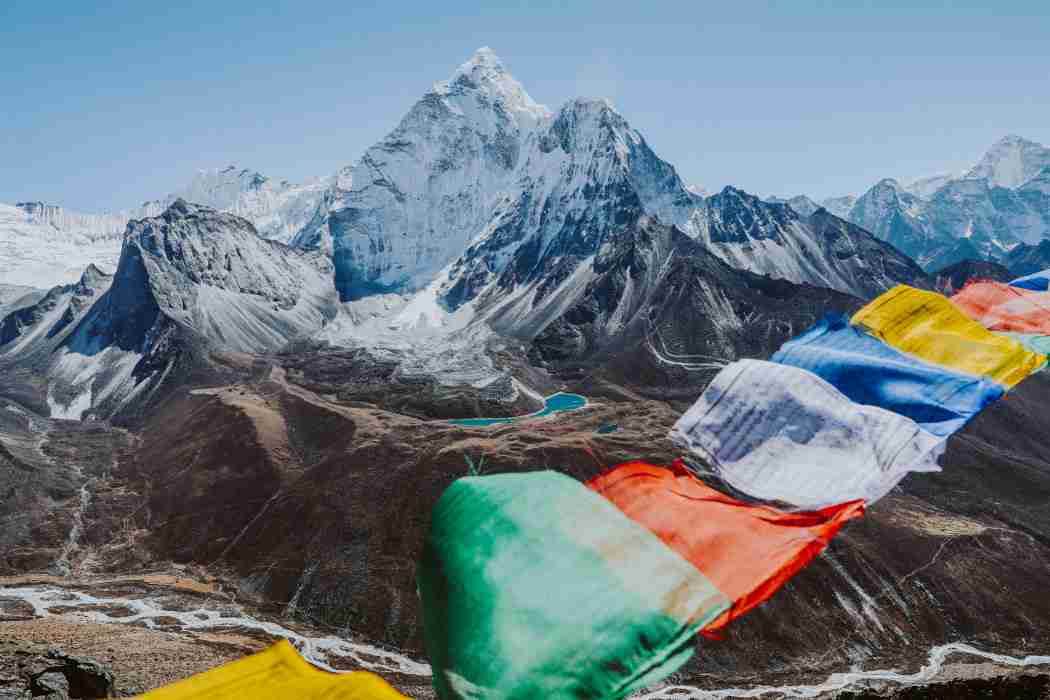
However, one thing that most people worry about and which you cannot be 100 percent sure of is the Everest Base Camp trek cost.
For the Everest Base Camp trek cost, it varies depending on the itinerary you plan, the type of adventure you want to do, and the amount you plan to spend on beverages, wifi, shopping etc.
Table of Contents
Cost of Transportation
Cost of accommodation- usd 120-150, cost of food, drinks, and snacks- usd 425, cost of guide or porter -usd 420 for guide, usd 275 for porter, cost of nepal visa- usd 50, cost of trekking permits- usd 70, cost of travel insurance- usd 150, cost of trekking equipment- usd 300 to 500, miscellaneous costs, packaged everest base camp trek cost, cost saving tips for everest base camp trek, breakdown of everest base camp trek cost.
Round trip Flights to Lukla in 2024 costs USD 432 per person.

The best way to start the trek is to fly from Kathmandu to Lukla. You can buy tickets online which cost USD 216 for one way, which means USD 432 in total including the return.
These flights allow maximum 10 kilos, which 10 kilos of luggage (check-in bag) and 5 kilos of daypack (carry-on bag). If you have extra baggage/luggage, you can keep them in your hotel in Kathmandu or ask your tour operator to store it for you.
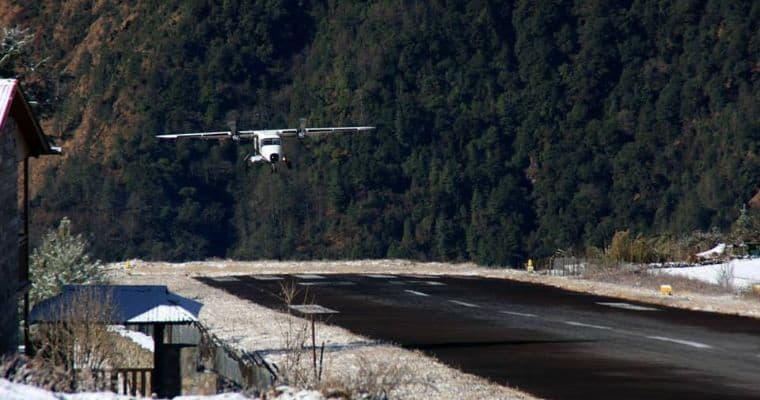
Buses or SUV – USD 24 for bus and USD 36 for local share Jeep
One of the best way to save a big portion of the Everest Base Camp trek cost is skipping Lukla flight and by going from Kathmandu to Salleri over land. Salleri is 265 km away from Kathmandu. The ride is about 8 hours costing USD 16 per person for a local bus. Buses depart daily from Chabahil Chowk, Kathmandu.
You can also take a local shared SUV which costs around USD 25 per person. For private SUV, it costs about USD 175.
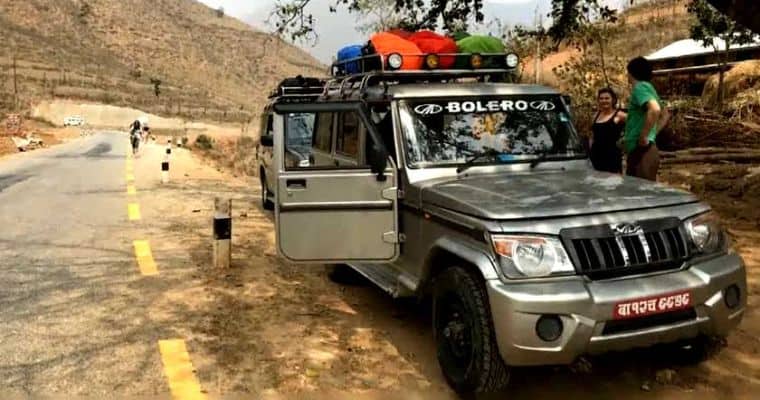
On the trekking trails, the average cost for a bed per night per person is around USD 10 and USD 15 for a room with two beds.
Lobuche has a fixed accommodation rate that is USD 15. If you want to upgrade your stay up to Namche then Yeti Mountain Home is available too; cost of Yeti Mountain Home (changed their names now to Mountain Lodges of Nepal) is bit on higher end.
The rooms in the tea houses are very basic. They usually have two beds with a pillow, blanket, and shared toilet. If you are lucky, you may even get a nightstand.
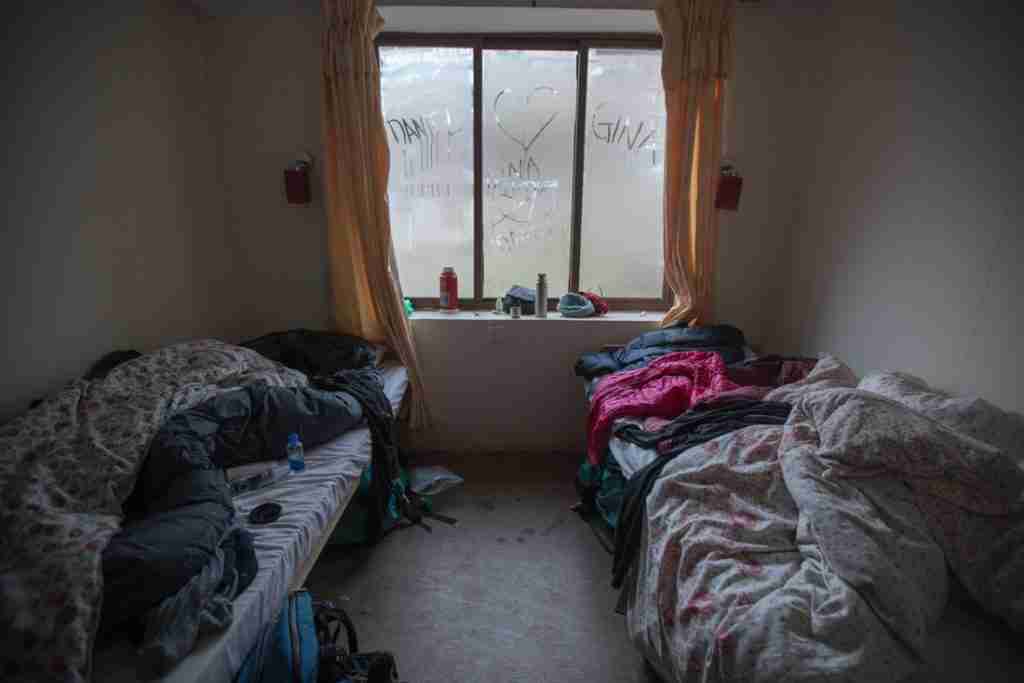
All teahouses have a large dining hall where you can eat and relax with other Everest Base Camp trekkers. In the center of the room is a fireplace where you can keep yourself warm in such freezing temperature.
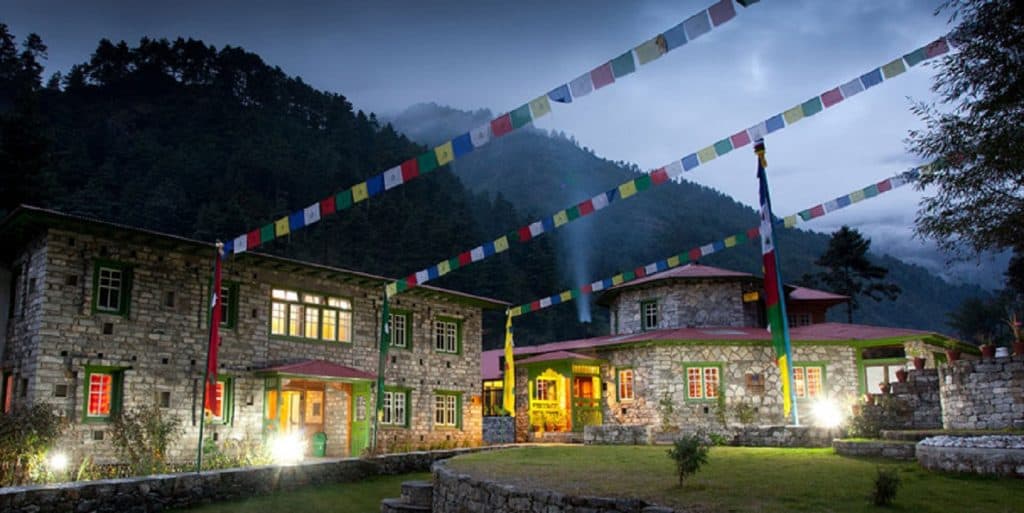
Want more information? Send us your query, and our experts will get back to you within 24 hrs.
- Full Name *
- Address Select Country Afghanistan Albania Algeria American Samoa Andorra Angola Anguilla Antarctica Antigua and Barbuda Argentina Armenia Aruba Australia Austria Azerbaijan Bahamas Bahrain Bangladesh Barbados Belarus Belgium Belize Benin Bermuda Bhutan Bolivia Bonaire, Sint Eustatius and Saba Bosnia and Herzegovina Botswana Bouvet Island Brazil British Indian Ocean Territory Brunei Darussalam Bulgaria Burkina Faso Burundi Cabo Verde Cambodia Cameroon Canada Cayman Islands Central African Republic Chad Chile China Christmas Island Cocos Islands Colombia Comoros Congo Congo, Democratic Republic of the Cook Islands Costa Rica Croatia Cuba Curaçao Cyprus Czechia Côte d'Ivoire Denmark Djibouti Dominica Dominican Republic Ecuador Egypt El Salvador Equatorial Guinea Eritrea Estonia Eswatini Ethiopia Falkland Islands Faroe Islands Fiji Finland France French Guiana French Polynesia French Southern Territories Gabon Gambia Georgia Germany Ghana Gibraltar Greece Greenland Grenada Guadeloupe Guam Guatemala Guernsey Guinea Guinea-Bissau Guyana Haiti Heard Island and McDonald Islands Holy See Honduras Hong Kong Hungary Iceland India Indonesia Iran Iraq Ireland Isle of Man Israel Italy Jamaica Japan Jersey Jordan Kazakhstan Kenya Kiribati Korea, Democratic People's Republic of Korea, Republic of Kuwait Kyrgyzstan Lao People's Democratic Republic Latvia Lebanon Lesotho Liberia Libya Liechtenstein Lithuania Luxembourg Macao Madagascar Malawi Malaysia Maldives Mali Malta Marshall Islands Martinique Mauritania Mauritius Mayotte Mexico Micronesia Moldova Monaco Mongolia Montenegro Montserrat Morocco Mozambique Myanmar Namibia Nauru Nepal Netherlands New Caledonia New Zealand Nicaragua Niger Nigeria Niue Norfolk Island North Macedonia Northern Mariana Islands Norway Oman Pakistan Palau Palestine, State of Panama Papua New Guinea Paraguay Peru Philippines Pitcairn Poland Portugal Puerto Rico Qatar Romania Russian Federation Rwanda Réunion Saint Barthélemy Saint Helena, Ascension and Tristan da Cunha Saint Kitts and Nevis Saint Lucia Saint Martin Saint Pierre and Miquelon Saint Vincent and the Grenadines Samoa San Marino Sao Tome and Principe Saudi Arabia Senegal Serbia Seychelles Sierra Leone Singapore Sint Maarten Slovakia Slovenia Solomon Islands Somalia South Africa South Georgia and the South Sandwich Islands South Sudan Spain Sri Lanka Sudan Suriname Svalbard and Jan Mayen Sweden Switzerland Syria Arab Republic Taiwan Tajikistan Tanzania, the United Republic of Thailand Timor-Leste Togo Tokelau Tonga Trinidad and Tobago Tunisia Turkmenistan Turks and Caicos Islands Tuvalu Türkiye US Minor Outlying Islands Uganda Ukraine United Arab Emirates United Kingdom United States Uruguay Uzbekistan Vanuatu Venezuela Viet Nam Virgin Islands, British Virgin Islands, U.S. Wallis and Futuna Western Sahara Yemen Zambia Zimbabwe Åland Islands Country
- Trip Title *
- Number of Days
- Group Size *
- Travel Date Day Month Year
- Contact Number *
- Your Email *
- Describe Your Trip *
The teahouses along your journey from Lukla to Everest Base Camp will have extensive menus to your surprise. However, you will notice that the higher you go, there will be lesser options and the more expensive things become.
The staple food you will find is Dal Bhat which is a carb-heavy meal that refuels your energy level for a full day’s trek. Also, you can expect to see dishes like momos, potatoes, sandwiches, pasta, etc.

You can even enjoy desserts like apple pie and cheesecakes. So on average, the total money you spend on food will be about USD 35 and expect USD 5 for some snacks.
As for water, it is no different too. Water cost starts at about USD 1 for 1 liters, but it goes up to USD 4 as you reach Gorakshep.
You can, however, save around USD 70 by sterilizing the drinking water. And you can do this by using chlorine or purification tablets, LifeStraw or Steripen UV sterilizing device. If you use LifeStraw, make sure not to let your bottle freeze full of water as this can spoil the filter.
So if you are looking for the daily budget for the EBC trek of a 12-day trek, the cost for food, drinks, and snacks will be around USD 425.
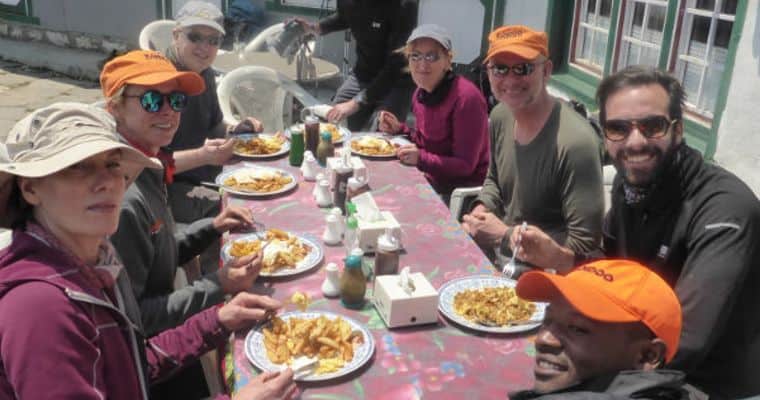
Having a guide is very helpful. They speak the local language and usually know the owners of the tea houses. So you don’t have to worry about where you are going to stay.
And if you run into any sort of problem, they are always there to help you.
Having a guide also enriches your trekking experience as they inform you about various things you should know while on the trek. They help navigate the route, and will always alert you when there is danger ahead. The cost of the guide ranges from USD 35 to 40 per day.
Guide is your best friend on this high altitude adventure and we strongly advise every one of you to hire an experience guided on your journey even though you have to add more to your total Everest Base Camp Trek cost.
And if you cannot carry your own bag, hiring a porter is always a good decision. As you walk higher, with the increase in altitude, the trekking becomes more difficult.
At that moment, having a porter allows you to walk freely which in itself is a huge relief.
Hiring a porter costs USD 25. The porter can carry up to 20 kg of luggage. The price of the guide and porter is generally agreed upon beforehand.
Other than getting their support, you are also helping local economy by hiring guide and porter.
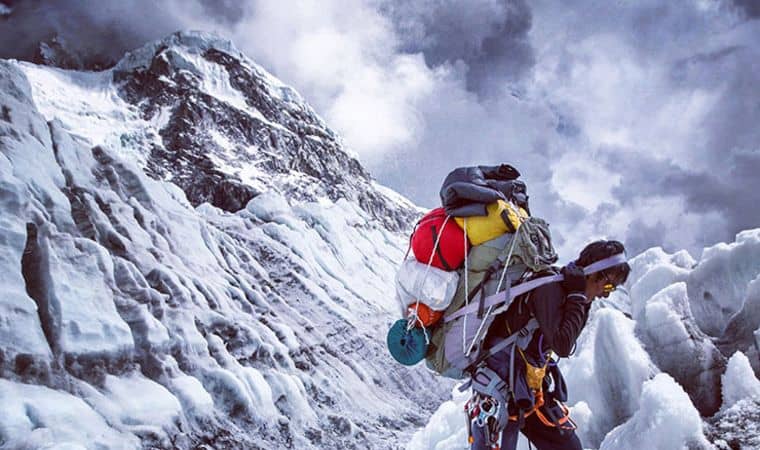
Except for Indian citizens, nationals from all other countries need a visa to enter Nepal . And you can buy the Nepal visa on arrival at Kathmandu Airport and pay at the given rates:
- 15 days multiple entry Nepal visa: USD 30
- 1-month multiple entry Nepal visa: USD 50
- 3-month multiple entry Nepal visa: USD 125
The safest way is to purchase a 1-month visa as most Everest Base Camp trek is around 16 days. So one-month visa covers all, even in case of any unplanned delays or flight cancellations, etc.
Doing so also allows you time to explore other areas of Nepal such as Pokhara and spend some days in Kathmandu.
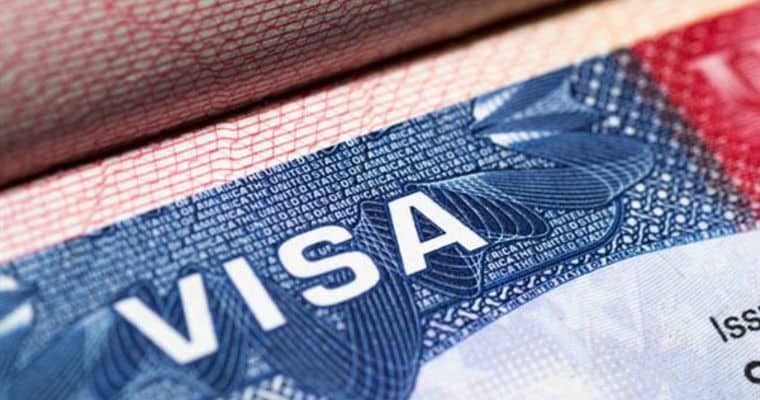
You will need to purchase three permits to complete the Everest Base Camp trek. The first one is the Khumbu Pasang Lhamu Rural Municipality
Entrance Permit, another is TIMS card and the third one is the Sagarmatha National Park entry permit.
The local government of Khumbu directly collects NPR 2000 (around 20 USD) per person for each foreigner. You cannot obtain this entry permit from Kathmandu.
If you are flying to Lukla, you can get this in Lukla. And if you trekking from Jiri to Salleri you can get it from Monjo.
The National Park entry permit costs about USD 30 (including 13% Government tax) and these are available in Kathmandu or Monjo. These costs, however, include in your tour operator price and they will arrange and purchase it for you.
Cost of the TIMS card is NPR 2000 (about 20 USD). You can obtain this permit from office of Tourism Board or Trekking Agencies Association of Nepal; both based in Kathmandu.
If you are trekking independently, you need to secure these permits yourself. But, if you are booking organized trek through tour operator then you don’t have to worry about it.
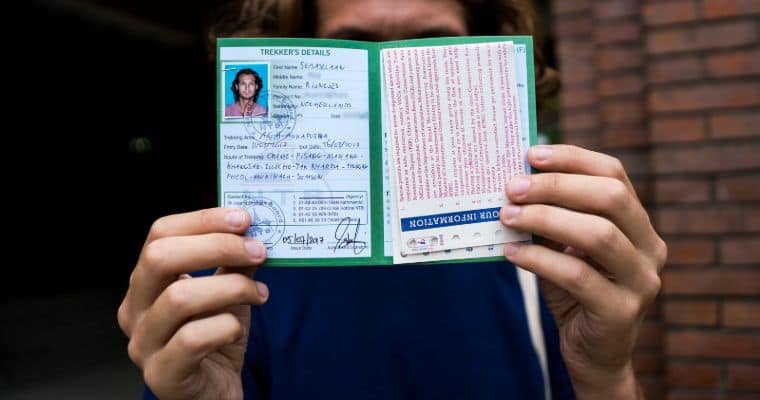
The 30 days insurance policy costs around USD 150.
Having travel insurance is by far the most important thing while organizing your Everest Base Camp trek. So make sure that you arrange this in advance.
While purchasing your travel insurance, make sure that your policy includes high altitude coverage. This is very important as there are many cases where many people had to be evacuated by a helicopter.
But their policies didn’t cover anything that took place over a certain altitude.
So one can imagine, how much the cost of an air evacuation will be as it will certainly not be cheap.
So make sure to get a policy that covers various events like canceled flights, lost baggage, medical expenses and an emergency evacuation that occurs below 6000 meters.
You will need various equipment while trekking to Everest. Some of the equipment are a high-quality boot, sleeping bag, thermal clothing, a warm waterproof jacket, trekking poles, and warm gloves among many others.
Take a look at a full list of the equipment you will need for trekking to Everest. You may already own some of them which can help you save a few hundred dollars.
We highly recommend using a good quality hiking boot and comfortable clothing that will keep you warm in the high altitudes.
There is nothing worse than being cold and uncomfortable during the start of the trek itself. So make sure that you have trusted equipment for the EBC trek.
You can rent few items like sleeping bag, down jacket or purchase almost everything that you need for the trek in Kathmandu.
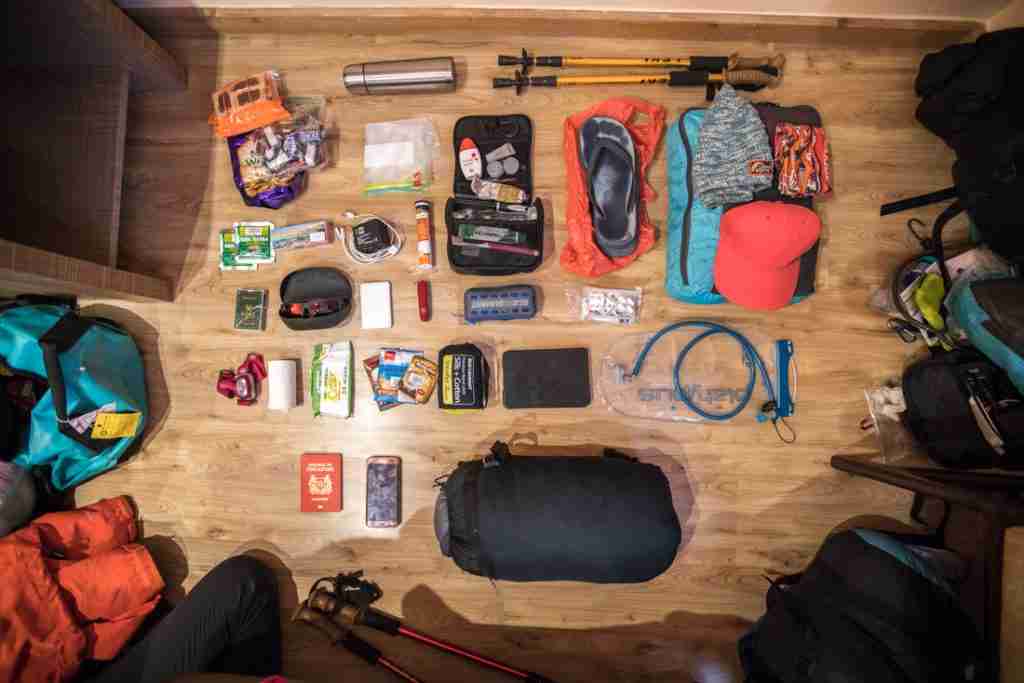
Carrying some extra cash always comes in handy for various unexpected expenses. All the tea houses will charge for WI-FI, charging your devices, hot showers, toilet paper, etc.
So it would be appropriate to carry extra cash to cover these expenses.
Moreover, tipping guides and tour staff is customary in Nepal. Doing so will brighten up their day. Although it is not mandatory, we suggest you give them some extra amount to make them happy after their long hardship.
For a standard Everest Base Camp trek 2024/2025 , the overall cost of the trek can be anything from USD 1445 to US$ 2,695 excluding the international flights. For example this 11-day Everest Base Camp Trek with Helicopter Return costs US$ 2,295 per person.
Everest Base Camp Trek Cost includes airport transfers, Kathmandu hotel, domestic flight, food, accommodation, guide and porter, permit etc but exclude tips for the guide/porter and other personal expenses like beverages, wifi etc.
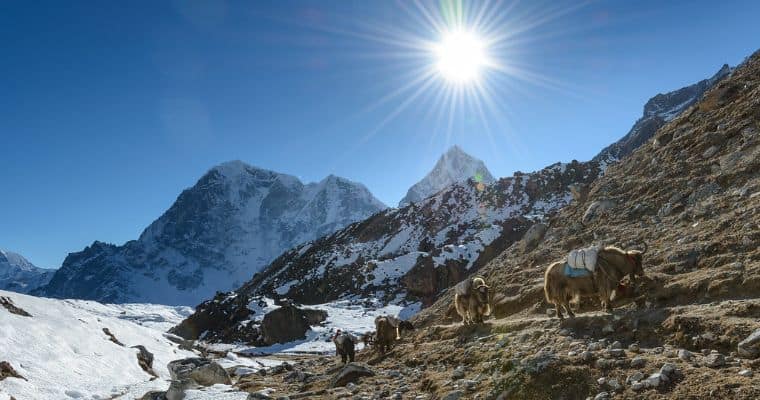
If you prepare and plan well in advance, you can save a few dollars along the way. Here are a few cost saving tips while undertaking Everest Base Camp Trek:
- Best time to trek Everest Base Camp is spring and Autumn, choose off-season instead of these peak season. Flights, accommodation, and some facilities are negotiable during the off-season.
- Take a bus or SUV instead of flights – but only if you have more time.
- You can rent some equipment instead of buying. There are many rental shops in Kathmandu, particularly in Thamel area.
- Take extra batteries and power bank to save on the cost of charging your gadgets
- Carry some medicines with you that might come in handy such as for headache, stomach ache etc.
- Carry tissue papers and snacks as this gets expensive the higher you go up
- Instead of buying bottled water which can get quite expensive, take water sterilizer or treatment pills.
- Avoid consuming alcohol. Not only are they expensive, but they can also cause dehydration resulting altitude sickness.
Trekking in Nepal is budget-friendly compared to other foreign countries.
The Everest Base Camp trek cost can vary depending on which itinerary you choose and the type of trekking you want.
For further questions or queries, please feel free to contact us .
It is our pleasure to help in planning the Everest Base Camp trek cost for you and making sure it is successful.
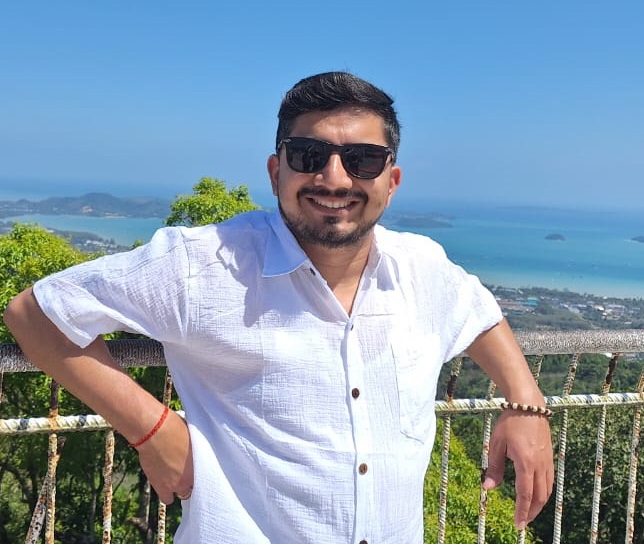
Madhav Prasad is a seasoned trekking and tourism expert with over two decades of experience in the field. Starting his career in 2001 as a porter, Madhav quickly advanced to the role of trekking guide, gaining invaluable hands-on experience in Nepal’s diverse trekking routes. In 2009, after eight years of dedication to the industry, he co-founded Mosaic Adventure, a leading trekking and tour company known for its commitment to safety, sustainability and personalized service.
Madhav has personally trekked to nearly every major trekking destination in Nepal, including Everest Base Camp, Annapurna Base Camp, the Annapurna Circuit, Poon Hill, Jomsom Muktinath, the Indigenous Peoples Trail, Langtang Valley and Mardi Himal, among others. His experience extends beyond Nepal, as he has also successfully summited Mount Kilimanjaro, Africa’s highest peak.
In addition to his extensive trekking credentials, Madhav is well traveled globally, having explored countries such as Australia, the USA, the UK, France, Japan, China, and many others. His global exposure enhances his ability to understand and cater to the diverse needs of international trekkers.
Madhav is the primary point of contact for many clients at Mosaic Adventure, personally addressing inquiries and helping plan treks with a meticulous and personalized approach. His deep knowledge of Nepal’s trekking routes, combined with his global travel experience, ensures that every trek is well planned, safe and unforgettable.
You may also be interested in...

Everest Base Camp for Beginners – From Dream to Reality
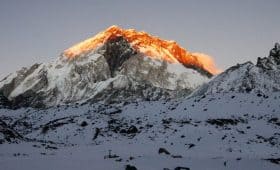
Everest Base Camp Trek in March
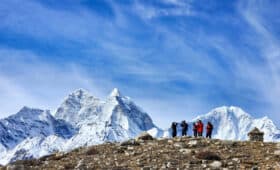
How to Choose Everest Base Camp Best Company?
Connect With Us :
Follow Us :

Budget Everest Base Camp Trek
Budget everest base camp trek overview.
The Main important Purpose to do the Budget Everest Base Camp Trek is the splendid scene of the grand Himalayas that trekkers observe. Hikers not only observe the mountaintop of Mt. Everest but also numerous huge Himalaya summits including Lhotse, Makalu, and so on.
That’s different than other trekking trails- mainly very near to trekkers’ eyes as on the Budget Everest Trek. EBC Budget is more admired than the lower elevated Himalayan treks of Switzerland, Pakistan or India.
In advance trekkers need to learn the feature about Budget Everest Base Camp Treks, below is a few backgrounds of why Everest is familier for the adventurers in the earth.
The trekking routes of Everest is an traditional one, it was always so well-known. This trek came about the Everest’s first summiter which is occurred in 1953.
During this time Sir Edmond Hillary and Tenzing Norgay first summit Mt Everest. Instantly hiking to the highest Himalayas in the world is opened. That summit and trek observation is enormous news to the hikers who emotionally began observing for the trekking replacements of the Alps and Europes.
During that period to Now Everest Base Camp trek appeared the best comfort. EBC trek is pledged to shine nearest to the 1st tallest Himalayas of the world and provides eye-catching scenes of the Khumbu ranges from Kalapatthar hiking summits.
Sunrise on the Makalu and Gaurishankar Himalayan ranges:
The supreme feature of the Budget Everest trek is the sunset/ sunrise observation on the Everest Himalayan Ranges as well as Makalu. In fact, hikers are not authorized to night camp in EBC, but the views from Kalapatthar and Base Camp are prime benefits for trekkers.
Note: Only Everest Summiters can stay overnight at Base Camp. Trekkers can go there and back to Gorakshep for Overnight. The main cause is they do not have permits to climb over the glaciers and icefalls.
National Flower In Spring – Budget Everest Base Camp Trek:
The trekking routes of Everest Base Camp are glorified with the Rhododendron National flower of Nepal. prior the Summer rainy season the flowers flew in Red White and Pink colors. Ebc Trek is an extremely delightful hike along the alpine woodland- long treks on Flower forests.
Chola Tsho Lake – Budget Everest Base Camp Trek:
Chola Tsho Lake is one more beauty on the Everest Base Camp trekking . The scene of the glacial blue waters and the mirror of Mt. Cholatse and Tabuche, mainly in the morning time is optical regards.
Highlights of the Budget Everest Base Camp Trek:
Alpine pine forest on the Everest Treks at that higher elevation is rare till 4000m. The fascinating vistas change, viewing Mt. Amadablam from Everest View Hotel with hiking in the early morning to Kalapatthar viewpoints to observe the principal light of the sun falls on Everest those made the Everest trek a lifetime selected journey.
In the world, there are few trekking destinations with some alpine woodland at that kind of higher elevation. For trekkers in India, the tree line finishes at 3,000 m but in Nepal Everest Base Camp treks offer an alpine treeline of 4,000 m. Due to Alpine’s higher elevation treeline, it is one of the beautiful mountain trekking trails for bird-watching holiday seekers.

Numerous Bridges – Budget Everest Base Camp Trek:
We will trek along the Dudh Koshi and Imja Valley with lots of suspension bridges over them. Dudh Koshi River and Imja Khola are huge glacial rivers that come from numerous Himalayas glaciers so lots of time trekkers have a chance to explore suspension bridges and gorges during Budget EBC Treks.
Ancient Buddhist Monastery Along Budget Everest Base Camp Trek.
Starting from the First day to the fifth day Dingboche can observe lots of Monasteries. Until 4000m elevation at Pangboche also has a Monastery. The Monastery was not accurate at Pangboche. Trekkers are required to hike a bit along the hills.
3 different monasteries are very famous in the Everest region. The biggest Monastery Tyangboche, The oldest Monastery Pangboche, and finally the Khumjung Monastery is famous for the legendary Yeti Skull observation. Tyangboche monastery is famous for meditation as well as Mani Rimdu Festival occurs there during every autumn season for festival seeker trekkers.
Fluctuate of scenery from time to time.
The prime day from Kathmandu to Lukla requires a dramatic flight, From the air can observe the different landscapes and countryside settlements with 1000s of snow and Himalayas peaks if you are lucky to sit left windows. After the flights, you can observe some Rhododendron and pine woodland on the way to Phakding.
Other outstanding views on the second day cross the deep Dudhkoshi river valley gorge and deepest suspension bridges with the first Mt Everest scene.
First-day hiking at Everest View Hotel from Namche.
A rest day after gaining 3440m elevation from Kathmandu 1300meter where trekkers sleep Namche at last night. After breakfast, we hike to Everest View Hotel highest elevated 3-star hotel in the world at 3880m. Hiking to Everest View Hotel and Khumjung is very steep but very beautiful and memorable.
Trekkers who just booked the Everest panorama view trekking hike to Everest View Hotel, Khumjung, and Khunde Green Village, and back to Lukla. For them, this hike is the best scenery hiking in this trek.
The sunshine changes the light of Mt. Lhotse Sar and Amadablam was incredible. Trekkers not get only those scenes but also wide ranges of Everest, Tabuche, Cholatse, Thamserku, Kangtega, and Mt. Kusum with Kongde. It is a dramatic hike for all trekkers in their lives.
Sunrise or Sunset From Nagsarkang and Kalapatthar

The second unforgettable adventure experience of this trek is acclimatization day hiking in Nagsarkang Peak offers the sun arrows that change the colors of Makalu dramatically. That steep hike from Dingboche 4410 to Nagsarkang 5083m is very worth our Budget Everest treks.
Not finished yet when the next day trekking over Thukla Village can observe the beautiful Chola Glacial Lake Chola Tsho Lake with very cleanest blue water and the mirror of the Chola Himalayas which is near the Everest climbers memorial parks.
The Ultimate and final hiking is Kalapatthar which is our whole trekking highest elevated hill even more than Everest Base Camp. If you love to explore the prime rays of sun falls in Everest you need to hike in the morning 2 hours prior then sunrise whereas if you love to see the last sunray changes in Mt. Everest you need to hike 2 hours of Sunset.
The trekkers who Budget Everest Base Camp Trek in the beginning day hike Kalapatthar for sunrise. If trekkers sunset hike to Kalapatthar they hike Everest base camp for the following day. Both Sunrise and sunset from Kalapatthar are worth visiting. Everest Base Camp is worth to sightseeing tour for glaciers and icefalls.
Finish observed first lights on the world’s highest Himalayas Mt Everest with a dramatic change by lights. Few travelers are happy weeping by this amazing journey.
Best Adventure alpine trekking journey:
Trekkers learn something different in the Budget Everest Base Camp trek as compared to other routes. Although the journey is just 120 kilometers around in 11 days. Just around 11 kilometers a day but higher elevation, slow walking, and altitude sickness give the perfect challenge for endurance.
Do not Like to Travel to Everest Base Camp in a cheap way? We suggest booking our Luxury Lodge Everest Base Camp Trek .
Budget Everest Base Camp Trek Brief Itinerary:
Day 1. Arrival day in Kathmandu Transfer to Hotel (1300m/4264ft) [20-25 minutes driving].
Day 2. Fly to Lukla (2800m/9186ft) and start the trek from Lukla to Cheplung- Thadokoshi- Chuthawa- to Phakding (2652m/8700ft) (20 minutes drive, 35 minutes flight, and 3-4 hours trekking) [9 Kilometers trek]
Day 3. Trek from Phakding- Zamfute- Toktok- Benkar- Monjo- Jorsale- Namche Bazaar (3440m/11283ft) [6 hours trek, 12 kilometers]
Day 4. Acclimatization day at Namche Bazaar (Hike to Everest View hotel (3880m/12730ft) – Khumjung (3780m/12401ft) – Khunde (3840m/12598ft) – Syangboche airport (3780m/12402ft) -Namche)
Day 5. Trek from Namche Bazaar – Kyangjuma (3550m/11647ft) – Lousasa (3380m/11089m) – Phunki Tenga (3250m/10663ft) – Tyangboche (3867m/12684ft) [5 to 6 hours 10 Kilometer]
Day 6. Trek from Tyangboche – Deboche(3710m/12171ft)- Pangboche(3930m/12894ft)- Somare{4010m/13156ft} – Orsho(4190m/13747ft)- Dingboche(4358m/14295ft)(5-6 hours trek) [ 12 kilometers]
Day 7. Acclimatization day at Dingboche – Hike Nangkar-Tshang peak (5616m/18406ft)
Day 8. Trek from Dingboche – Dusa(4503m/14774ft)- Dughla(4620m/15157ft)- Thokla pass(4830m/15846ft)- Lobuche( 4930m/16171ft)[12 kilometers, 7 hours trekking]
Day 9. Trek from Lobuche -Pyramid (4970m/16306ft) – Lobuche pass (5110m/16765ft) – Gorakshep (5180m/16995ft.)Hike to Everest base camp (5364m/17598ft) [15 km approximately 8 hours trekking]
Day 10. Morning Hike to Kalapatthar (5550m/18204ft) and trek back from Lobuche- Lobuche pass- pyramid- Lobuche- Thokla- Pheriche (4200m/13780ft) [7-8 hours trek includes Kalapatthar/13 kilometer distance]
Day 11. Trek from Pheriche – Pheriche pass(4260m/14009ft)- Ortso- Somare- Pangboche- Deboche- Tengboche- Phunki Tenga- Losasa- Sanasa- Kengjuma- Namche Bazaar(3440m/12286ft)[14 kilometer 8 hours trekking]
Day 12. Namche Bazaar – Jorsale- Monjo- Benkar- Toktok- Zamfute- Phakding- Chuthawa- Tadokoshi- Cheplung – Lukla(2800m/9186ft)[7-8 hours 15-kilometer distance]
Day 13. Fly back from Lukla to Kathmandu (35 minutes flight)
Day 14. Departure from Kathmandu to your sweet home.
Budget Everest Base Camp Trek Itinerary
Day 1: kathmandu airport arrival transfer to hotel.
Walking Hours: 25 To 30 Minutes Drive
Meals Included: Welcome Dinner
Accommodation: 3 Star Category Hotel
Max. Altitude: 1350M
On your arrival time, Nepal’s only airport for international flights Mission Himalaya Treks some staff welcomes you at the arrival gate. When your visa is processed and your luggage is claimed then you can search in front of the gate you can see our staff holding a placid printing your name. Then we will transfer you to the Thamel after 20 minutes of driving.
In the afternoon or evening, you have leisure time depending on your arrival. Then in the evening our office representative will introduce you to your guide and describe all the details of your trek. The goods are enough it’s ok if not we will go to some shop to buy or rent some trekking equipment. Then we will treat you to local Nepali cuisine in a typical Nepali restaurant in Thamel with cultural dance and music. This live show and free of cost. Overnight Kathmandu.
Transportation: comfortable Private vehicle depends on the size
Day 2: Flight from Kathmandu to Lukla (2805m) and Trek from Lukla to Phakding
Walking Hours: 40 Minutes Flight And 3 To 4 Tours Trek
Meals Included: Breakfast, Lunch And Dinner
Accommodation: Tea House/ Lodge
Max. Altitude: 2610M
Distance: 6.2KM
Today after breakfast we will drive to Tribhuvan International Airport at the same airport you came to yesterday but we will go domestic terminal for the Lukla flight. After check-in and procedure, we will fly to Lukla with a small tiny airstrip plane. This plane capacity of only 16-18 people. If you are able to seat the left side you can see numerous mountains of Langtang, Gaurishankar, and Manaslu Himalayan Ranges during the flight.
After the flight, you can reach Lukla and meet our porter there. After that, if the time is early we will take a tea break and prepare luggage for the trek. If our flight is delayed, we will take lunch here. Then we will be heading on our trek to Dudh Koshi valley. During this trek, you will pass through the pine forests and numerous Sherpa settlements and villages.
The trek from Lukla to Phakding is one of the most popular and rewarding hikes in the Everest region of Nepal. It is a great way to experience the beauty of the Himalayas and get a taste of the local culture. This essay will discuss the highlights of the trek, the challenges faced, and the overall experience.
Highlights of the Trek The trek from Lukla to Phakding is a great way to experience the beauty of the Himalayas. The trail winds through lush forests, over suspension bridges, and past stunning mountain views. Along the way, you will pass through several small villages, giving you a glimpse into the local culture. The highlight of the trek is the view of Mt. Everest from Kala Patthar, a viewpoint located at an elevation of 5,545 meters.
Challenges Faced The trek from Lukla to Phakding is not without its challenges. The trail is steep and rocky in places and can be slippery when wet. Altitude sickness is also a concern, as the highest point on the trek is Kala Patthar at 5,545 meters. To minimize the risk of altitude sickness, it is important to take your time and acclimatize properly.
Conclusion: The trek from Lukla to Phakding is an amazing experience that offers stunning views of the Himalayas and a chance to experience local culture. Although there are some challenges along the way, such as steep terrain and altitude sickness, these can be managed with proper preparation and acclimatization. For those looking for an unforgettable experience, this trek is definitely worth considering.
Chortens and Mani’s walls are also an attraction of this trek. You are able to see Mt. Kusum during the trek near the Thado Koshi stream. After 3 to 4 hours of gradual flat trekking and some uphill, we will reach Phakding. Overnight in Phakding.
Transportation: comfortable Private vehicle depends on the size and flight for Kathmandu to Lukla.
Day 3: Trek from Phakding to the Namche Bazaar
Walking Hours: 5 To 6 Hours Trekking
Max. Altitude: 3440M
Distance: 7.4KM
After tasting the mountain breakfast in Phakding today we will be heading to Namche. In the beginning, we will cross a suspension bridge and start at Zamphute village. Until Monjo, we will cross several suspension bridges and sometimes we trek the Dudh Koshi riverside.
Most of the trekking gradually flat, down, and uphill mixed. Zamphute, Toktok, and Benkar villages we will pass during trekking. We can see Mt. Thamserku during our trek. After reaching Monjo there is a checking point for Everest permits. Also called the Sagarmatha National Park Entry gate. We will check our permits and enter the National park area. After 15 minutes we will reach the Jorsalle on the Bank of Dudh Koshi River. We will have lunch there.
After lunch, we will trek similar around 1 hour to the big and high Suspension bridges. Probably it’s the deepest and most beautiful Suspension bridge. After this bridge, we will trek uphill for 1 hour to the resting place. It is the 1st Everest viewpoint. You can see 1st time Mt. Everest (8848m) for today then trek for 1 more hour till Namche. Overnight at Namche.
Day 4: Exploration day In Namche or Acclimatization day or hiking to Everest View Hotel(3880m)
Walking Hours: 3 To 4 Hours Day Hiking
Distance: 4KM
Namche is the gateway to Everest and the headquarters of the Khumbu region. The shopping market and every Saturday there is a local market. If you are here on Saturday you can see it.
If you like leisure time and just exploring around you can visit some gompas and the Museum of Namche. If you like hiking you can have breakfast and hike for around 2 hours to the Hotel Everest view (the highest altitude Star category hotel in the world).
From this hotel, you can see Majestic mountains like Mt. Everest, Lhotse, Amadablam, Thamserku, Kusum Kangaru, Kangtega, Kwongde, and other several snow-capped mountains.
After taking the tea there we continue trekking to the next Green village Hillary village Named by Sir Edmond Hillary after climbed Mt. Everest in 1953ad. We can explore Khumjung Monastery and can see the Head of the yeti according to Local people.
Then we can see Khumjung Hillary’s school. Then heading to the next village Khunde. Then we can explore Khunde hospital and the village and have lunch there. Then we back to Namche totally downhill and overnight at Namche.
Day 5: Trek from Namche Bazaar to Tyangboche
Walking Hours: 5 Hours Trekking
Max. Altitude: 3960M
Distance: 5.9KM
Today after breakfast we will start our trek towards Tengboche. In the beginning, we will be trekking gradually flat way which way made by a single old man from the donation of tourists. This way very beautiful because of big even in snow time can easily find. If you are interested you can donate this man to construct the trails. Then we can trek 1st village Kyangjuma. In this village, we can take a cup of tea or a bakery if you are hungry.
Then you can see two ways. One way leads to Gokyo Lake and another way leads to direct to Everest base camp. We will take the right way to the direct base camp trek.
Then we will go downhill to Sanasa and Lousasa village during the trekking. After the downhill trek and crossing the Dudh Koshi River, we will reach Phungithanka. We will have lunch there. We can recheck our permit again here with Army.
Then after lunch, we will trek totally uphill to the last point of today trekking Tyangboche. In the evening we can explore the Everest region’s Biggest Monastery. Tyangboche in the evening Monks can meditate and pray. You can watch the ceremony. Then back to Guesthouse. Overnight at Tyangboche.
Day 6: Trek from Tyangboche to Dingboche
Max. Altitude: 4410M
Distance: 9.1KM
After breakfast in the shadow of Beautiful Thamserku Mountain and exploring Everest, Lhotse, Tabuche, and Kwangde we will trek downhill to the beautiful village of Debuche after 30 minutes downhill.
Then we can trek gradually flat until Dudhkoshi river and cross another suspension bridge. The trek uphill to the next beautiful village Pangboche. This village is popular for potatoes. You can see farmland of potatoes a lot surrounds here. And a beautiful Monastery in this village.
The people who climb Ama Dablam can separate way from here with Everest base Camp trekkers. Then we will trek towards Somare and lunch here after a 1-hour trek from Pangboche. After lunch, we will trek flat and downhill to the river again and cross the bridge. Then trek uphill to Dingboche. Overnight here.
Accommodation: Lodge or Tea House/ Meals Included: Breakfast, Lunch, and dinner/ Transportation: No/ Activities: trekking.
Day 7: Acclimatization day at Dingboche
Walking Hours: 3 To 4 Day Hiking
Today is another rest day. During high altitude, we need to acclimatize our body with altitude so after 3000m for every 100m climb we need to rest 1 more day or sleep 2 nights at the same place. So either you can explore and leisure at Dingboche today. If you like a very long hike you can go to Chukung and hike Chukung RI. But most of the trekkers will go to Nagsarkang peak to explore the majestic mountain Makalu.
After breakfast, we can hike for around 3 hours to the top of the peak. During the hike to the top, we can see Mt. Pumori, Makalu, Amphu Lapsa, island peak, Amadablam, Thamserku, Kusum, Kwangde, Tabuche, Cholatse, Lobuche, and other 100s of Snow-capped Himalayan ranges of Khumbu.
After taking several photos then we will back to the hotel and have lunch. Evening leisure time to reading books or playing cards or exploring around. The choice is yours. Dingboche is a place separate for direct Everest base camp trekkers and island peak climbers and 3-pass trekkers.
Day 8: Trek from Dingboche to Lobuche
Walking Hours: 5 Hours Trek
Max. Altitude: 4910M
Distance: 6.6KM
Today we will be trekking at a high altitude so please walk slowly with enough rest. After breakfast, we will trek a little uphill for around 30 Minutes in the same way as Nagsarkang we trek gradually flat and separate the way from Nagsarkang. We can see panoramic Mountain Vistas of Lobuche Peak, Cholatse, Tabuche, and Amadablam during the trekking. After 2 hours and 30 minutes of trekking, we will reach Thukla.
We can have lunch here if you are hungry. Thukla is not a village area just 2 houses here and both are hotels. From Thukla today and half an hour of trekking so difficult. From Thukla to uphill to the Memorial place of climbers.
You can explore lots of climber’s memorial places with Mountain View here. Lots of prayer flags increase your strength in trekking. Then we will trek gradually flat until Lobuche. In the evening you can go to see the glacier viewpoint in Lobuche or Hotel Pyramid for Acclimatization overnight at Lobuche.
Day 9: Trek From Lobuche to Gorakshep and explore Everest base camp (5364m)
Walking Hours: 7-8 Hours Trekking
Max. Altitude: 5170M
Today is the most important day of our whole trek. Because we will go to Mt. Everest base camp today. Lots of trekkers aim to reach there. In the morning we will take an early breakfast in front of Nuptse Mountain. Then we will trek through the Khumbu glacier and in front of Pumori Mountain after3 an hour of difficult walking in the glacier we will reach Gorakshep.
Then we will check in the room. Leave our trekking stuff here and lunch. Then we will day hike to Everest base camp for around 3 to 4 hours. The way seems so easy but so difficult because of the height and stony glacier path. We can reach the Everest Base camp within 2 hours and 30 minutes. In spring you can see numerous tents for climbers.
From Everest Base Camp you cannot see Everest. Before you do not believe but after today you believe then back to Hotel in Gorakhshep Overnight at Gorakhshep. High altitude so probably you cannot sleep the whole night. you can sleep just for some hours.
4 Km From Lobuche to Gorakshep. 3.4 km Roundtrip from Gorakshep to EBC And Return.
Day 10: Hike to Kala Patthar(5545m) and Trek back to Pheriche
Walking Hours: 7 To 8 Hours Trekking
Max. Altitude: 4200M
Distance: 12.2KM
Today is another important day in our trekking. 3 hours before sunrise and prior to breakfast, we will hike to Kalapatthar to see a 360-degree sunrise view of the Everest Himalayan ranges. The trek to Kala Patthar is very difficult as compared to other day trekking. You will reach your maximum height on this trek today and you can see the best view of Mt. Everest from there.
Then we will explore all the mountain surroundings like Everest, Nuptse, Lhotse, Everest south cool, Lingren, Khumbutse, Changtse, Pumori, Amadablam, Makalu, Thamserku, and lots of other snow Himalayan ranges.
Probably this is your lifetime best view with Khumbu Glacier and Icefall. After exploring this you will back to the hotel. Breakfast and continue to trek down to Pheriche. Pheriche is low altitude so this night probably you have the best sleep than Gorakshep.
2.4KM For Kalapatthar Round trip and 9.8km from Gorakshep to Pheriche.
Day 11: Trek back to Namche
Walking Hours: 7 Hours Trekking
Distance: 14.2KM
Today is another long day of trekking back to Namche. After breakfast in front of Ama Dablam, we will trek uphill to Pheriche pass and trek to Domare then downhill to Pangboche.
During the trekking probably you can see a mountain goat, fear animals today. After Pangboche you trek downhill and cross Dudhkoshitriver then flat to Debuche and uphill to Tyangboche.
After lunch in Tengboche, we trek down to Phungithanka. Cross Dudh Koshi River again with a suspension bridge and trek uphill to Sanasa. The view of trekking back is different than uphill and trekking is more easily than downhill. From Kyangjuma the trek is an easy big trail and flat until Namche. Overnight in Namche,
Day 12: Trek from Namche to Lukla
Max. Altitude: 2805M
Distance: 13.5KM
Today is the last day of trekking. We trek early for breakfast and trek downhill to Lukla. During back to trail also pass several suspension bridges, Jungles, Chortens, mani walls, Villages, Mountains, Chortens, and numerous riversides.
After a long trek, we will finish our trek in Lukla. Then confirm our ticket for Kathmandu. In the evening you can treat your guide and porter to give farewell dinner for the successful trekking. Overnight at Lukla.
Day 13: Flight from Lukla to Kathmandu
Walking Hours: 35 Minutes Flight And 30 Minutes Drive
Meals Included: Breakfast
After completing our trek today morning we can enjoy our last mountain breakfast trek 10 min to Lukla airport and a flight to Kathmandu. After the flight, your guide brings you to the hotel. In the evening our Mission Himalaya Treks and expedition representative will visit you to share your experience of Everest base camp trekking with us.
Then we give you a certificate on the completion of your trek. Today you have enough time for leisure and massage or explore UNESCO World Heritage Sites. Overnight at Kathmandu.
Transportation: Flight and private vehicle according to no of person.
Day 14: Departure your trip
Walking Hours: 30 Minutes Drive
Accommodation: None
After breakfast, today is the time to fly your happy home. If your flight is at night you can explore Kathmandu and Happy hour shopping or Final last hour shopping.
Mission Himalaya one staff drop you at the airport 3 hours before your flight or according to your check-in time. We will have a safe and nice flight. Hope to see you again with your friends, relatives, and family.
Budget Everest Base Camp Trek Cost
- Twin Sharing teahouse accommodation during the trekking from day 2 to day 12
- Three meals during the trekking(Breakfast, Lunch, and Dinner)
- Tourist standard accommodation in Kathmandu for 2 nights
- Equipment for trekking (sleeping bag and down jacket) which have to be returned after trek finish
- Sagarmatha National park permits, Khumbu Gaunpalika permits, and other entry fees
- Trekking guide expert and qualified in mountaineering with English spoken with supporting porter for 2 paying people with their salary, food, accommodation, transportation, and insurances
- Flight from Kathmandu or Ramechap to Lukla and return with airport taxes
- The airport picks up and drops off during domestic and international flight times
- First-aid medicine with oximeter carried by your guide
- Welcome dinner in Kathmandu during arrival(if your flight is late we will treat farewell dinner as support)
- All government and local taxes (no Hidden cost or VAT)
- Meals During your stay in Kathmandu except for the above-mentioned Itinerary also in the case of early return then itinerary or later departure than an itinerary.
- Any medical examination expenses.
- Any kind of medical or outdoor insurances or emergency evacuation costs.
- Nepal Visa cost.
- Extra night hotel accommodation in Kathmandu due to early arrival or late departure caused by you.
- Personal Expenses like bar bills, hot and cold drinks, Battery charges, Hot shower, Internet facilities, Laundry, cold and hot water.
- Gratitude and tips for guide porter and drivers.

Microspikes For High Altitude pass

Sandle For Teahouse Stay

Thin Hiking Socks

Waterproof Trekking shoes

Thick Warm Woolen Socks

Half pants For Day Hike

Inner Thermal Wear

Long Trousers for Trek

Waterproof Trousers For Rain

Short Sleeve Tshirt For Day Hike

Thermal Tshirt For cold

Woolen Upper Base Layer
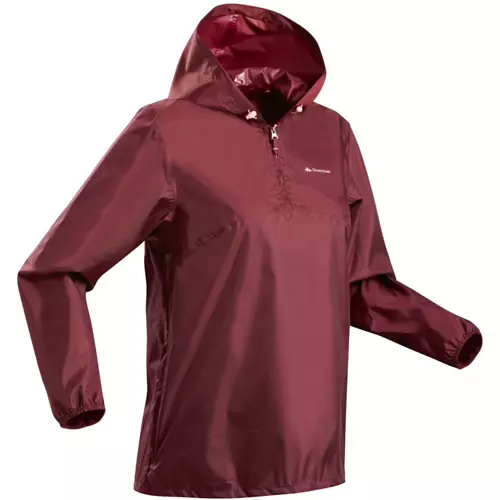
Waterproof Jacket For Rain

High Quality Down Jacket

Warm Wind Stopper
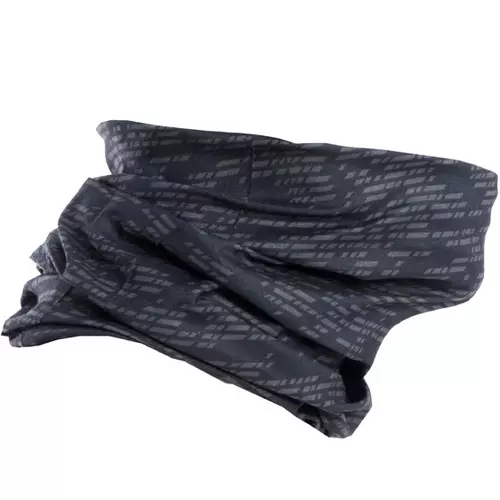
Bandana For Neck

Handkerchif For Sweating

Sun Cap For Strong Light

Uv Protected Sun Glass For Sun And Snow

Warm Woolen Hat For Cold

Headlight For Night Or Sunrise Hike

50+SPF Sun Cream

Lightweight And Fast Dry Travel Towel
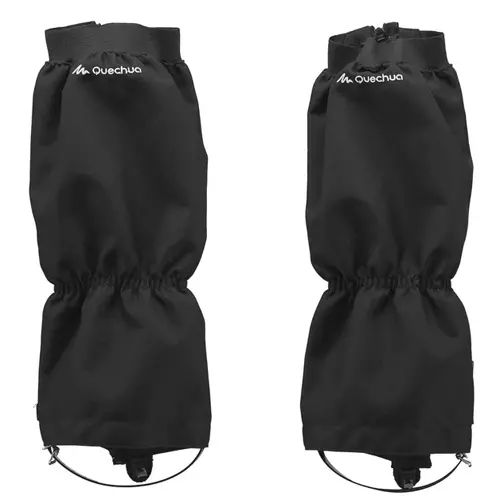
Hydration Water Bladder For Day Hiking

50+SPF Lip Balm

Tharmel Water Bottle For Hot Water

High Quality Trekking Poles

Day Bag For Trekker Own Hiking

Long Sleeve Tshirts

Backpack For Porter

Sanitery Pad For Lady

High Quality Sleeping Bag

Warm Waterproof Gloves

Padlock And Key For Safe Backpack

Snacks Energy Bars and Power Gel for Your Quick Energy

Toilet Paper For Teahouse Use

Toiletries For Man And Woman

Waterproof Bag For Your Water Safety

Spare Of Batteries

Camera For Photo And Video Of Trek

Power Bank For Mobile Charging

Two-Pin Travel Adapter

6 Month Validated Passport

Enough Cash And Credit Card For Mountain

Notebook For Your Day Experience Writting

Printed Flight Ticket IN case Loss from Mobile

Reading Book For Teahouse Free Time

Trekking Trail Map

First Aid Medicines For Trekking in Nepal
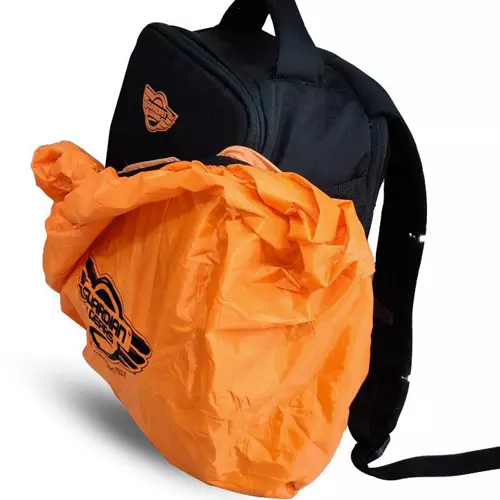
Waterproof Backpack Cover

High Altitude Covering Travel Insurance
Budget everest base camp trek related information, best time for budget ebc treks:.
Two specific trekking seasons in Nepal. March to May (spring) and (September 15 to December 15) Autumn.
Two distinct times provide their own beauty so one season trek is just an information bit. Everest National park area is the adobe of dazzling diversity of flowers collection in antiquated woodland. That woodland converts its color in two dissimilar seasons.
Spring is famous for its flowering time whereas Autumn is well known for its sharp and regular weather and its stable scenery.
Everest Budget Trek in Spring:
The Attractiveness of trekking Everest in the Spring season is observing the colorful Rhododendron national flower blooming which is principally blooming in mid-April. So the pre-monsoon alpine forests provide distinct colors of white pink and red flowers. The rhododendron flower increases till Debuche and slowly finishes in higher elevations. So the Rhododendron is the supernatural heart touch for Everest Budget trekkers.
Note: Even Everest treks provide an opportunity to experience the beauty of rhododendron flowers, not the best trek to see the variety of flowers. Ghorepani Poonhill trek in spring in the Annapurna region is the best to experience flower trekking.
Everest base camp trek low cost
The Everest Base Camp trek’s price might change depending on a number of variables, including the time of year, the length of the trip, the itinerary, lodging, and transportation. Although it is feasible to complete the walk on a tight budget, it’s crucial to remember that excessive cost-cutting can jeopardize safety, comfort, and fun. The following advice will help you complete the Everest Base Camp expedition on a tight budget:
- Trek Without a Guide or Porter: The expense of the Everest Base Camp journey can be greatly reduced by trekking without a guide or porter. Yet, it demands more forethought, preparation, and independence. You will be in charge of making your own arrangements for permits, travel, lodging, and meals, as well as for your own health and safety. If you’re an experienced hiker, it may be a good idea to undertake it alone.
- Travel During the Low Season: Booking your trip between June and August will help you save money on transportation, lodging, and permits. The monsoon season, which coincides with the low season, raises the risk of rain, mud, and landslides. Hiking in the off-peak months calls for more adaptability, endurance, and planning and may not be ideal for everyone.
- Choose Simple Accommodation: You can save money on lodging by choosing simple teahouses or lodges rather than opulent hotels or resorts. Basic accommodations could, however, also mean less privacy, comfort, and hygienic conditions. Picking a teahouse or lodge that is hygienic, secure, and well-maintained is crucial. You should also bring a sleeping bag and pillow for extra comfort.
- Bring Your Own Food and Water: You can save money by bringing your own snacks, energy bars, and water bottles. Yet, it’s crucial to check the safety and cleanliness of the food and water, as well as to refrain from using single-use plastics that are bad for the environment.
- Rent or Borrow Equipment: Rather than purchasing new equipment, you can save money by renting or borrowing items like sleeping bags, trekking poles, and jackets. But it’s crucial to check that the equipment is of high quality, fits well and that you bring your own accessories like gloves, hats, and socks.
Depending on the level of comfort and service, the whole cost of the Everest Base Camp trek might range from USD 600 to USD 2000 or more. Low-budget trekking may entail more work and compromise, but it can also provide a more satisfying and authentic experience. In addition to putting safety, health, and happiness first, it’s critical to strike a balance between cost and quality.
Budget Everest Base Camp Trek FAQ'S
Ans. Normally there is no age limit for this trekking we have past experience of 6 years old to 75 years old trekkers this trekking to this trekking. For family trekking, we request you not to join with other group members and we request you to take a few days extra then please feel free to ask us about your arrangement. Mission Himalaya Treks and Expedition made clear your question regarding the trip prior to your confirmation.
Ans: Of course yes. You can deposit your luggage in Kathmandu in a hotel free of cost before the trek. The things unnecessary for the trip can leave there. After deposit your luggage please take the deposit voucher. After finish your tour you can show it and back to the hotel.
Ans: Mission Himalaya Treks and expeditions guide provide you the menu from your staying hotel and you can choose your own meal during the trekking. We will provide free hot drinks in trekking each meal with 1 cup. They have Nepali, Chinese, Indian and continental dishes. You have full the freedom to choose your meals from the menu. The food like Pizza, Noodles, Pasta, macaroni, Spaghetti, Rice, Eggs, Bread, Soups, Momo, Toasts. Traditional Nepali cuisine is very famous which includes the sets of rice, Vegetables, Lentils soup, Pickle, Curry, and crispy bread called Papad. This food is popular because it’s a buffet all over Nepal without pay extra add-on cost. Meals are hygienic and freshly prepared after you arrive at the guesthouse. Note: Meat in higher elevation is not very fresh so beware with meat items.
Ans: Yes, no doubt. You can charge your electric device in common places like the dining hall in the guesthouses. Only some places have to charge in your private rooms. You need to pay extra for your charging which can be US$ 1 to US$ 5 per hour per device or per full charging per device depends on the guesthouse or elevation. Note: 230 Volt c and d type of travel adapter useful in Nepal trekking and traveling. In case if you forget to bring you can buy this in Kathmandu for a couple of dollars.
Ans: Normally Nepal squat toilets popular in Nepal. Some teahouses provide trekkers western toilets. Some higher elevation the toilet is squat and outside sharing with many trekkers means not attached with your personal rooms.
Ans: Many of your time in the teahouse you can use toilets in teahouses. But during your trekking, you cannot find a toilet middle of the way. You can go toilet to see your privacy yourself outside in shadow or unseen places of trekkers.
Ans: Many lower elevation teahouses provide Wi-Fi at 3 to 5 us$ per 24 hours. You can buy a Sim card in Kathmandu with a data package and use it during trekking but the signal is poor and strong depends on the places. You can use this phone for domestic and international calls too. In case some places your Sim card not works properly you can use the guesthouse phone with paying the cost. Nowadays many teahouses provide the Everest Link Wi-Fi. If you buy US$ 30 for 20 GB or US$ 20 for 10 GB you can use almost all places during the trekking until your GB finished.
Ans: Of course yes. All the tea houses and hotels sell toilet paper in trekking. They do not provide toilet paper freely in the toilet. The cost of toilet paper starts from US$ 2 to US$ 5 in higher elevations. What kind of Shower facilities during my EBC trek? Lower elevation teahouses have a hot shower either by solar or by Gas whereas higher elevation provides hot water in the bucket because of flowing water freezing. Normally they charge US$ 3 to 5 for a hot shower per person per shower.
Ans: Only some teahouses have laundry facilities during the trekking. During your acclimatization day in Namche and Dingboche we will suggest you do laundry but another day it is not good for laundry because sometimes the clothes cannot dry due to time and cold weather. After complete trekking, you can give all your clothes in Kathmandu for laundry. They have fast laundry and dry services.
Ans: The best way of traveling higher elevation is slowly ascended to a higher elevation and acclimatize after 3500m 1 day at the same altitude. After 1000m altitude gain you need to stay another night again for acclimatization. Otherwise, you might have acute mountain sickness. Our all the guide are highly experienced with Symptoms with AMS and another related mountain sickness. So they carry oximeter and Diamox in higher elevation trekking. Some trekkers can trek without acclimatization. If you have a limited time frame you can consult with us for a short Everest base Camp trek then you can fly back from Gorakshep to Kathmandu by helicopter. We can customize your trip according to your holiday and economic wants so please consult with Mission Himalaya Treks experts.
Ans: Our trekking leaders are experts to handle such problems. In case if you are unable to trek lower or higher elevation during your injury or AMS they will consult with your travel insurance agents and according to your policy, we will send a helicopter for emergency evacuation. If you are normal we will give you good advice with first aid treatments to reduce sickness and bring your nearby health post or HRA post.
Ans: Yes, we can tell it’s safe according to our past trekking experience. But before eat your food please check if it’s well cooking or not. Water needs to treat safely before drinking because our natural water has lots of minerals. We can digest it but trekkers cannot be. Do not eat uncooked vegetables in Kathmandu. During the trekking meat is not fresh so beware before you eat meat items.
Ans: Nepal Mountain is obviously cold no doubt. Depends on the season and timing the temperature a lot of changes. Trekking in higher elevation will much colder than lower elevation. Normally during the high season of trekking day time hike not very cold you can hike with normal light hiking gear but in tea, houses say at night it will very cold. The temperature falls until negative 20 degrees at Everest base camp. But depends on elevation the temperature is different. Trek to Everest Base Camp in the wintertime is Very cold so the temperature falls to negative 40 degrees in Everest Base Camp. To prepare your trekking gear please consult with us before your departure.
Ans: Due to weather anytime the Lukla flight delayed or canceled. If you have a buffer day you can make your trek flexible. But if you have no extra day you can decrease your acclimatization day or you need to fly back from Everest Base camp to Lukla or Kathmandu by helicopter with extra add-on cost. Sometimes the weather is bad but the chopper can fly to Lukla. For this flight, you need to pay an extra US$ 500 per person per way. So prepare your contingency add-on cost for this flight. If you have a buffer day you can back to Kathmandu hotel that day cost you can pay yourself in hotel lodging and food. The flight can be rescheduled for the next day without extra add-on cost in flight. Sometimes the airlines change the flight from Kathmandu to Lukla to Ramechap to Lukla in that case we will provide you free transport from Kathmandu to Manthali Ramechap on a sharing basis. And Vice versa when you back after complete your trekking from Lukla to Kathmandu or Lukla to Ramechap and drive to Kathmandu.
Ans: Tips not mandatory but are expecting in Nepal. The guide and porter tips are not included in the tour fees. The tip is the appreciation of your treks. During the staff’s hard work and their effort for your happy holiday, we generally suggest you tip them. They think they succeed to complete your trek organize happily.
Ans: Except for the tour fee, your extra money depends on the things that you buy. For yourself drinks personal expenses we will suggest you bring US$ 20 per day. For extra spending, you can consult with our expert from Mission Himalaya Treks Prior to The trek and they will give you a Hint of the Money you spent. Roughly you can manage after our advice.
Ans: For group, tour joining we do charge you extra cost but on your dates, if you like to private trek you can consult with us for a solo trekking itinerary with Quotation.
Ans: Normally we have a free postponed policy prior to 3 months of booking. But Cancellation of booking after paying deposit are as follows: Before 90 days, a full refund of the deposit. Less than 21 days, no fund of the deposit. Between 90-21 days, only 50% of the deposit can be refunded.
Ans: Normally the cost you cannot get a refund if you are unable to trek by yourself because we need to pay our guide and porter fully after we committed the trip. So the tour fee is not refunded.
Ans: Of course yes if you will book your private trek with us but in group joining it will be not possible. If you have your private group tour you can consult with our company and guide then probably you can add extra days in your trek. You can consult with us after you confirmed we will try to choose your best solution.
Ans: We can organize the tour or short trekking quickly too. There are many options like Pokhara sightseeing, Chitwan Jungle Safari, Paragliding, Bungee jumping, Rafting Kathmandu tour, Lumbini tour. So you can easily extend your holiday after consulting our Mission Himalaya Treks and Expeditions Experts at least Prior 3 days if possible.
Ans: In our office policy, we cannot share private personal data with anyone. In sharing groups, we only can give you nationalities and aged groups with gender. You can ask us how many people in your group signed up with us for this trek. We never share your private data with another person too.
Ans: Mission Himalaya Treks Budget Everest base Camp package included almost all items but generally, we suggest you bring some tipping extra money and contingency optional helicopter flight from Kathmandu to Lukla and Lukla to Kathmandu US$ 1000 in case of bad weather and emergency. Other items are Nepal Visa fees, Wi-Fi, Battery Charging, Showers, Snacks and alcoholic drinks, and water charges. Also, you can bring some amount of Kathmandu lunch and dinners.
Ans: Normally only in the city, you can use credit cards properly. There are several ATMs in Kathmandu you can use this and bringing cash that is suitable for trekking. Normally they charge 3 to 5% extra cost for credit card use. Most of the trekking routes have no ATM so we will warmly request you to bring cash after an exchange in Kathmandu. For emergencies, you can use a credit card in some places.
Budget Everest Base Camp Trek Reviews

This company is best for Everest Base camp trek
This company is best for Everest Base camp trek. My friends sent me some link of this company for trekking Everest Base camp Nepal side. I sent them an email and they reply to my email very fast. and I will contact birendra in WhatsApp too. for my easy conversation. So I join Mission Himalaya company with my friends. I decided to tell my friends as their service was so nice according to budget. No doubt you will get your service according to your payment. Guide Ranjit Rai and Porter Chandra Ghale were so helpful and reliable all the time on my Everest trip.
Super nice Everest base camp Trek
From the beginning time mission, Himalaya treks have constant care and follow up us whole trek to Everest base camp. when we arrived in Kathmandu Birendra pick up us and he transfer to hotel. he introduces a guide name Chapte for us. He was super nice and knowledgable about the mountains. In the trekking, he always walked with us and help a lot all the time so because of his care we did not feel AMS In mountain. Thank you Chapke. You are great. thanks Birendra for better arrangements.
We had the best time during the trek
I and my lover did Everest Base Camp trek with Mission Himalaya treks. We had the best time during the trek. Guide madan Absolutely the best and he completed made the trip with us. The Mission Himalaya is the best company because Office representative keeps in contact with us whole the trip. Before the trip also fast response about all the questions. Do not forget our incredible experience and could be recommended this company for all. Great JOB Our Mission Success by Mission Himalaya.
- No Hidden Cost
- Customer Care And Safety
- Trustworthy Team
- Financially Secure
- Repeated Guests
- Flexible Departure Dates
- Different Group Sizes.
- High Successful Rate/Safety.
- Stress & Worry Free Travel
- Staffs Welfare

Managing Director
Birendra duwadi.

Everest Base Camp Trek and Return By Helicopter
12 Days Everest Base Camp Trek

Short Everest Base Camp Trek

Rapid Everest Base Camp Trek

Everest Base Camp Trek by Road

11 Adventurous Things to do in Nepal
Adventure activities.

5 Festivals Celebrated in Himalayas of Nepal
Festivals and culture.

8 Reasons To Trek Everest Base Camp
Hiking and trekking.
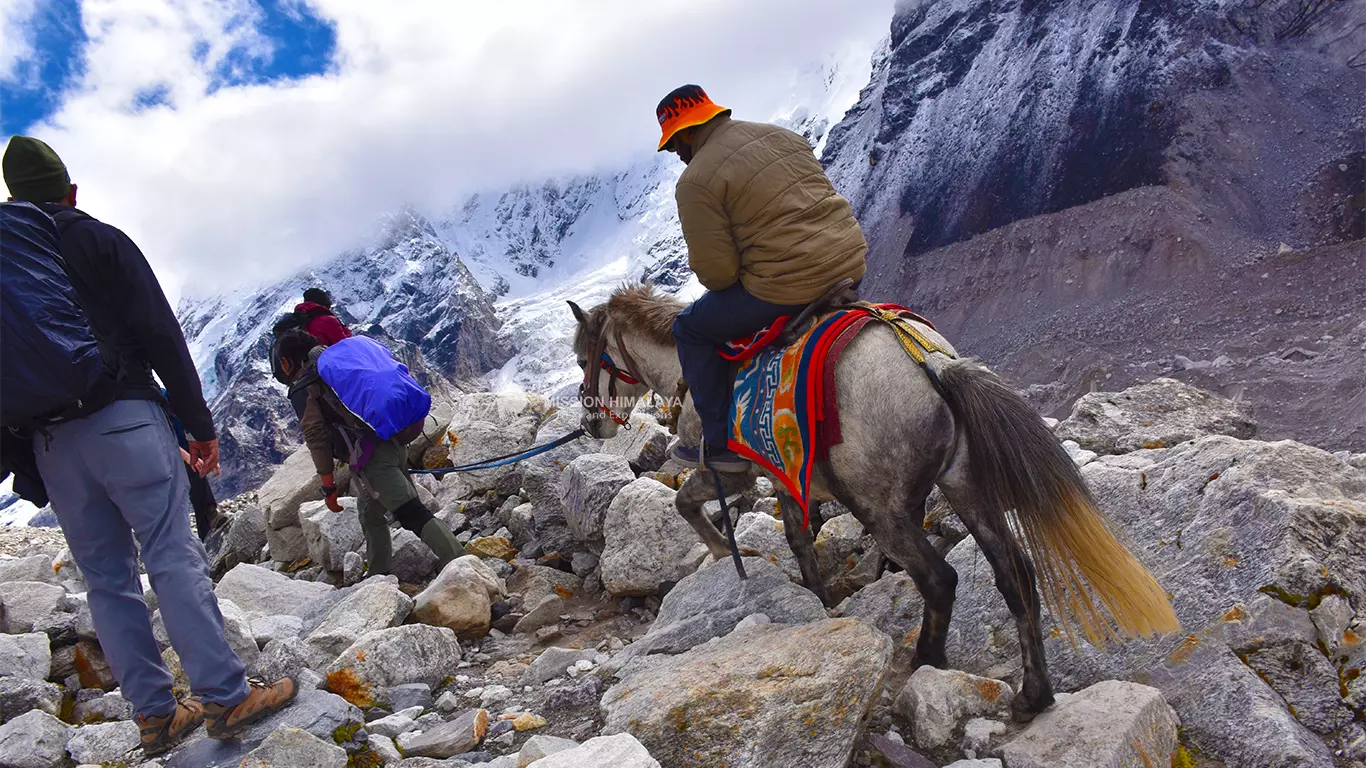
Everest Base Camp Trek Difficulty

Everest Base Camp Trek in Spring
Trekking information.
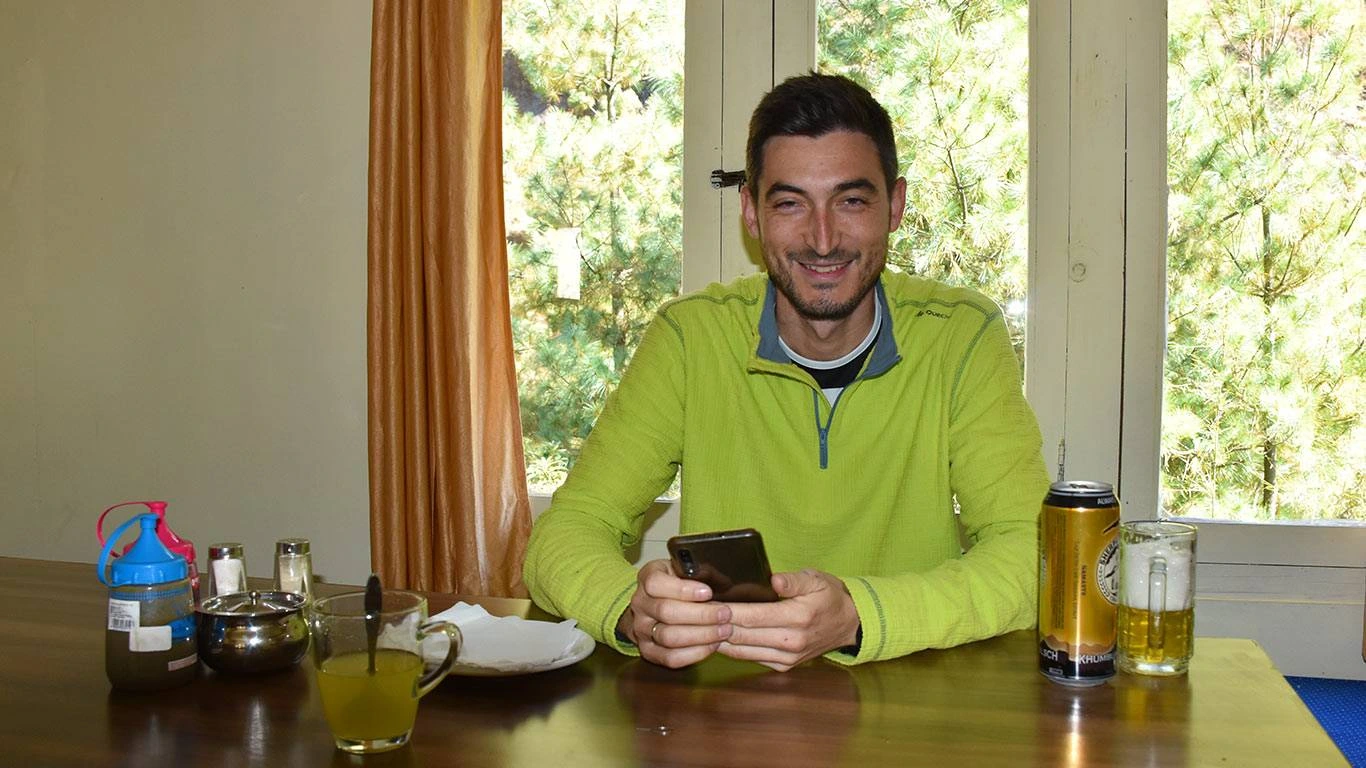
Everest Base Camp Trek Cost

Everest Base Camp Trek vs Annapurna Base Camp Trek

Facts About Mount Everest You Might Not Have Known
Tourism info.

Flight to Lukla – Everything you need to Know

How Much does an Everest Base Camp Trek Cost? (updated 2024)
- Time to read: 15 mins
Share this article:
When you’re thinking about going on an adventure like the Everest Base Camp trek , there will be lots of factors to take into consideration. When do you want to go, which route would you like to take, how fit do you need to be? But one of the most important questions will be; “How much does Everest Base Camp trek cost?” Whether you are budget-dependent or this isn’t a big concern, it’s important to consider how much you want to pay for your Everest Base Camp trip – and what this cost will actually get you.
How much does a trek to Everest Base Camp cost?
The baseline cost of trekking to Everest Base Camp will depend on a number of variables. The costs will change based on how inclusive you want your trip to be.
At the cheapest end of the scale, there is the option of trekking to Everest Base Camp independently. At this time, it is not a legal requirement to have a guide to trek to Base Camp – you can go it alone if you choose. This will obviously save you money, but there are several drawbacks.
If you are trekking alone, you will have to navigate your own way along the trails and carry your own bags. This makes the trek much more physically and mentally difficult. You will also have no-one to go to with questions or advice. If something goes wrong, there is no expert on hand. When you take everything into consideration, the cost of a local guide is a very small price to pay for the safety and ease they will bring to your experience.
On the other hand, if you’re looking for an option that gives you complete ease of experience – taking away all the stress of organisation and allowing you to focus on the adventure, then booking with a tour company is the best option. This will, of course, cost you more – but only because everything is included in one price!
One important thing to bear in mind when you’re choosing a company to trek Everest Base Camp with is whether they include UK guides as well as local guides.
Local guides are fantastic – they have all of the local knowledge and expertise from living in Nepal and having done the Base Camp trek hundreds of times. However, UK guides are a great benefit, because they give you a point of contact, someone to ask all of your questions the whole way through your trip, from the moment you depart from the airport to the moment to arrive back home.
There are also several other pragmatic elements to take into account when you are looking at an Everest Base Camp hike cost comparison.
Cost of flights to Kathmandu
Operators that provide land-only packages will usually offer lower prices, but this obviously means that you will have to pay for your own flight separately. Not only does this often mean a lot of work, it may also work out being more expensive.
Tour operators will already have relationships formed with flight agents, and they will be able to get good industry rates on quality flights. If you decide to go land-only, just bear in mind that you might end up having to take several connections in order to get a more affordable flight from your home country to Kathmandu. The average cost of a return flight from London to Kathmandu is around £500, so this is important to budget if you decide to go solo.
In-country transport
Of course, to get from the airport to the Everest Base Camp trailhead, there will be several internal journeys you’ll need to take. First of all, there will be a transfer from the airport to your accommodation in Kathmandu. Generally-speaking, taxis and tuk-tuks are affordable in Nepal, but as with any country, journeys to and from the airport will be charged at a much higher rate. For this reason, having a transfer booked in with your tour operator is usually preferable.
Then you will have to get from Kathmandu to the beginning of the trek. The most common way to do this is by taking a flight to Lukla. This costs around £180 each way, but there is a high demand for flights, so if you try to just turn up you are likely to have to wait for hours if not days to get on a flight. Again, booking your flight as part of a package tour is a much better idea in most cases.
Accommodation cost in Kathmandu
Another cost to take into consideration if you are looking to do Everest Base Camp independently or with an in-country team is your accommodation. Throughout the Everest Base Camp trek, most people will be in the same kind of accommodation regardless of how they have booked the trek. This will comprise of comfy local teahouses.
However, in Kathmandu, the prices for hotels vary significantly – you could pay anywhere from under £10 per night to over £100 per night depending on the level of luxury you are after.
Again, a tour agent will be booking rooms in hotels for a larger group of clients, so it is highly likely that they will be able to get a much more competitive rate for accommodation than you could independently.
How much does food cost on the Everest Base Camp trek?
Another important cost of the Everest Base Camp trek is food. When you’re hiking for several hours per day at altitude, it’s important that you’re getting all the nutrition you need, so good food is worth the investment. Luckily, though, Nepal is a very affordable country when it comes to eating.
You can expect to spend around £25 per day for three meals if you are not using an inclusive operator, plus money for any snacks. A major cost for some trekkers is that of bottled water. You can’t drink water out of the tap in Nepal, but plastic water bottles are very expensive in the mountains as they have to be flown in by helicopter or driven up in a Jeep. This means that you can save yourself a lot of money by bringing along a filtering water bottle (use our code ‘BLC15’ for 15% off Water-to-Go bottles !)
Altogether, this can mount up to a quite significant amount of money. So, again, it’s worth considering trekking to Everest Base Camp with a travel agency that offers an all-inclusive package , which will cover all of your food on the trail, as well as refreshments. This may well end up saving you a big chunk of money – and we know what to recommend, too!
How much does EBC Trek cost per day?
The daily costs of the Everest Base Camp trek will vary depending on your chosen accommodation, how much you eat and various other factors. However, if you are not doing the trek on an inclusive basis, you can expect to pay these kinds of costs during the trek itself:
- Accommodation in teahouses: £10 per night
- Local guides: £40 per day
- Food: £25 per day
- Permits: £53
- Flight to Lukla: £180 each way
Cost of booking your Everest Base Camp Hike Independently
When you consider that you are trekking for twelve days during the Everest Base Camp trip, it is often more than worth it to do the trip with a tour operator! However, it’s also worth bearing in mind that many tour operators don’t actually include the cost of food in their treks. Here at The Bucket List Company, we include all of your meals and refreshments, permits, flights, accommodation and everything else in the price of all our treks in Nepal , so that you never have to worry about unexpected costs.
So why book with a group?
Ultimately, even if you trek to Everest Base Camp independently, you’re going to be spending well over £2000 all-in, before you even think about spending money. But this will not get you experienced UK guides to go to with all of your queries and needs, and it will also mean you have to do the admin of paying for every individual meal, transfer, permit – and the rest – and you can’t be sure you’re getting a fair price, either. Not to mention that you’ll be hiking alone, which isn’t a lot of fun.
For just a little bit more, you could book with a company that offers you all-inclusive pricing and a hassle-free experience, so you can simply immerse yourself in the moment. Here at The Bucket List Company, we book everything for you and include it in our prices. This includes:
- Accommodation in Kathmandu and on the trek
- Flights to and from Lukla
- Food during the trek
- Local guides and porters
Kathmandu city tour
Uk guides and 24-hour support.
Another major benefit of booking your Everest Base Camp trek with The Bucket List Company is the fact that we take qualified UK guides on our trips. Our guides are highly experienced and first aid trained, and they will take care of you throughout your trip. We will meet you in the airport in UK and guide you throughout your trip. We also have a 24-hour support team in the UK to take care of any administrative needs. This will make your trip so much more simple and enjoyable.
One thing that most tour operators don’t include is a tour of Kathmandu. On a locally-guided tour, you’ll discover the highlights of Durbar Square, Monkey Temple, Swayambhunath stupa, Boudhanath stupa and many more fascinating sites. This is an amazing opportunity to experience the cultural heritage of Nepal, which adds a unique dimension to your Everest Base Camp trip. That’s why we include it in our prices!
Travel with a group
Trekking to Everest Base Camp with a group adventure company also means that you’ll make friends during your trip. Even if you think you’re a fiercely independent traveller, you will find that undertaking a challenge like Everest Base Camp is much more special when you have someone to share it with.
Check out our photographer Ali’s blog post to find out how he, as a formerly anti-group-travel adventurer, suddenly understood why trekking in a group is so amazing after he photographed our Annapurna Circuit trek .
So, make sure that you’re travelling with a company that offers you the full package , with flights, transfers, food, accommodation in Kathmandu and UK guides included. Luckily, that’s where we come in!
If you’d like to find out more about our treks to Everest Base Camp , feel free to give us a call! You can contact us on 01769 309 007 .
More To Explore

Main Navigation
- TESTIMONIALS
- Why Travel With Us?
- Associate Membership With
- Know about Everest Base Camp Trek
- Why book Trekking with Local Trekking Company
- Legal Documents
- privacy policy
- 12 Days Everest Base Camp Trek
- 14 Days Everest Base Camp Trek
- Everest Base Camp Trek and Helicopter Return
- Everest Base Camp Luxury Lodge Trek
- Everest Base Camp Budget Trek
- Everest Three High Passes Trek
- Short Gokyo-Cho La-Everest Base Camp Trek
- Everest Base Camp Via Gokyo Lakes Trek
- Everest Base Camp Trek for Indian
- Gokyo Lakes and GokyoRi Trek
- Short Everest View Trek
- 05 Days Everest Namche Bazaar Trek
- Everest View Classic Trek
- Everest View Luxury Trek and Helicopter fly
- Island Peak Climbing Package
- 03 days mera peak climbing package
- Island Peak Climbing with Everest Base Camp Trek
- Everest Base Camp Trek with Island Peak Climbing
- 18 days Mera Peak Climb climbing
- Gokyo High Pass EBC & Island Peak
- Lobuche East Peak with Everest Base Camp Trek
- 20 Days Everest Base Camp with Island Peak
Please share your experience if you have already travelled with Everest Base Camp Trek & Tours
- Everest Base Camp Trek Cost
Everest Base Camp Trek Cost - 12 Days
- Short Trekking In Everest
- USD 1240 USD 1180
Trip At Glance
Accommodation:
3 star Hotel in Kathmandu, Lodge in Trekking
Breakfast, lunch, dinner.
Activities:
walking, flight to Lukla, Kathmandu sightseeing, explore Sherpa cultureand Trek from lukla to lukla
Starts/Ends
Kathmandu to Kathmandu
March to may - september to november.
Walking Hours
The 12-day Everest Base Camp Trek is a thrilling and immersive adventure that takes you through the heart of the Khumbu region in Nepal. Along the way, you'll be treated to breathtaking views of towering Himalayan peaks, including Everest , Lhotse, Nuptse, and Ama Dablam . The trek offers a glimpse into the Sherpa culture , with opportunities to visit monasteries, interact with locals, and experience their warm hospitality. The 12-day Everest Base Camp Trek is a perfect balance of adventure, natural beauty, and cultural exploration, providing you with a once-in-a-lifetime experience in the majestic Himalayas.
Are you ready to embark on a life-changing journey to the iconic Everest Base Camp? Join us for a thrilling 12-day trek that will take you through stunning landscapes, introduce you to the Sherpa culture, and bring you face-to-face with the world's tallest peak, Mount Everest. This trek offers a unique blend of challenge, cultural immersion, and unforgettable memories. In this comprehensive overview, we'll delve into the cost of the trek, the allure of Everest that attracts adventurers from all corners of the globe, and answer key questions to pique your interest.
Everest Base Camp Trek 12 Days Cost 2024 and 2025
- Panoramic views of Mount Everest, Pumari, Nuptse, Lhotse, and many more peaks during sunrise from Kalapathar
- Views of the Khumbu Icefall and glacier are breathtaking from Everest Base Camp.
- Take advantage of the opportunity to tour the Buddhist monasteries at Namche, Khumjung, Tengboche, and Panboche.
- Views of snow-capped mountains, including Lobuche East, Kangtega, Ama Dablam, Lobuche West, Thamserku, Taboche Peak, etc.
- Exciting climb to the base of Mount Everest, the highest mountain peak in the world
- Trekking over the difficult, remote, and adventurous terrains of the Khumbu region
- Discover the fauna and flora of the Nepalese Everest Region, which includes several rare and endangered species.
- Exploration of the Khumbu region's cultural history, including its Tibetan Buddhist temples, villages, and other landmarks.
- The teahouses and lodges run by Sherpas offer a warm welcome and hospitality.
What are the inclusive costs of the Everest Base Camp trek, and how can you plan your budget effectively?
The Everest Base Camp trek typically ranges from $1,200 to $3,500 USD per person, depending on the tour operator, itinerary, and inclusions. The cost generally covers permits, accommodation, meals, experienced guides, porters, and transportation within Nepal. Additional expenses may include international flights, travel insurance, personal gear, and optional activities.
What drives people to conquer Everest Base Camp, and what unique experiences await those who undertake this incredible journey?
Adventure and Challenge:
Adventurers seek the ultimate challenge of reaching Everest Base Camp, testing their physical and mental limits while trekking through varying terrains and altitudes.
Cultural Immersion:
Trekking through traditional Sherpa villages provides an opportunity to immerse in the rich Sherpa culture, witness ancient monasteries, and experience their warm hospitality.
The Everest Summit Dream:
For many, the Everest Base Camp trek is a step towards fulfilling a lifelong dream of standing at the base of the world's highest mountain, Mt. Everest.
Spectacular Scenery:
Immerse yourself in the awe-inspiring beauty of the Himalayas, from lush forests and picturesque villages to the towering peaks and glaciers that grace this region.
Personal Challenge:
The Everest Base Camp trek presents an opportunity to test your physical and mental endurance, offering a sense of achievement as you conquer varying terrains and altitudes.
The Everest Legacy:
For many, standing at Everest Base Camp is a profound moment, a step closer to the dreams of adventurers and mountaineers who have made history on this awe-inspiring peak.
Everest Base Camp Trek Distance, Duration, and Altitude
Day to day itinerary expand/collapse all, day 1 : arrival in kathmandu /kathmandu sightseeing, breakfast/lunch/dinner.
After your arrival on Kathmandu our representatives will be there waiting to give you a hearty welcome to Nepal with your name card. You will be taken to hotel by our representatives. After you freshen up our guide will tour you to the Kathmandu city. You will visit the different world heritage sites and cultural and historical monuments that are located in the city. At the evening we will serve you with warm welcome dinner at a well known Nepali restaurant.
Day 2 : fly to Lukla, trek to Phakding, and 3-4 hrs. Trek.
On our 2nd day of the trek we will take an early morning flight to Lukla airport. It is the main entrance of our journey to the Himalayas.We will meet our rest of the team members have some breakfast there and start our trekking. We will walk on a trail that gradually descends too Cheplung village from where we will get a glimpses of Mt.khumbila , a sacred mountain which has never been climbed. We will take lunch there take some rest and then we will gradually descend until Phakding . We will have our dinner in Phakding . Our overnight stay will be on Phakding .
Day 3 : Phakding to Namche Baazar. 5- 6 hours trek
On our 3rd day after having breakfast we will start our journey where our trial passes through a beautiful pine forest and we will continue our walk on a trial that goes north up the Benkar valley following the banks of Dudh Koshi River. We cross the Dudh Koshi River and pass Chumoa and Monjo village before reaching the entrance of Everest National Park. Then after crossing suspension bridge, we pass Jorsale village and walk alongside of Dudh Koshi and Bothe Koshi River. We ascend on a step trial and reach the biggest town in the Everest region i.e. Namche Bazar. It is also the major economic hub for people of Khumbu region . We will be staying overnight witnessing beautiful NamcheBazar.
Day 4 : Namchebazar to Tengboche 2-4 hrs.
On our 4th day after having breakfast in Namche Bazaar we will have our breakfast and will move towards Phhunki. The trek until Phunki is not very difficult. After reaching Phunki we will ascend towards the biggest monastery which is Tengboche Monastery which lies in Tengboche village. The UNESCO world heritage site Sagarmatha National Park is also located here; we can enjoy the beautiful panoramic views of the Himalayas which the monastery is blessed with. The Himalayas including Mt.Everest , Nuptse, Lhotse, Ama Dablam and Thamserku can be viewed from here. The Monastry opens at 3:00pm, so if we reach thereby 3 o’clock we can observe the Buddhist religious ceremony. We will be staying overnight in Tengoboche
Day 5 : Tengboche to Dingboche 5-6 hrs
Breakfast/llunch/dinner.
On our 5th day of trek we will pass through overgrown forest of birch, confer and rhododendron trees. We will be exploring the magnificent views of Mt.Everest , Lhotse, and Ama Dablam . Here we will walk downhill to Debuche and cross the Imja River to Pangboche Monastery. We will be walking around the Imja valley and Lobuche River before ascending to Dingboche . This beautiful village gives amazing pictures of Himalayan agriculture and animal husbandry. We can have amazing views of beautiful barely, potato, and buckwheat fields along with animals grazing along those fields. Our overnight will be on Dingboche .
Day 6 : Dingboche acclimatization / Rest Day
Breakfast lunch dinner.
Our 6th day will be acclimatization day in a Sherpa village called Dingboche . It is located in Chukung Valley. After having breakfast we will trek towards Chukung valley which is not very difficult. We will have our lunch here. This valley is famous for remarkable views of mountains such as Makalu, Lhotse, Chalotse, and Ama Dablam. Moreover we will also get to see the beautifully arranged fields with stone walls in order to protect the seasonal crops from cold winds and grazing animals. After this remarkable short trek we will then go back to Dingboche . We will have our dinner here and our overnight stay will be on Dingboche .
Day 7 : Dingboche to Lobuche, 4-5 hrs
On our 7th day of the trek after having lite and healthy breakfast we will bid a goodbye to our lodge owner and head towards Lobuche . After approximately two hours trek we will reach to Thugla. There we will take a rest for sometime by having some hot drink. We can see the high mountains getting closer to us as we proceed towards Lobuche . On our trek to Lobuche we will climb up to steep hill where we can see the Everest Memorial which is a memorial for the climbers who have lost their life while attempting to summit Mount Everest. As we continue our trial to the Khumbu Glacier moraine we will be facing several great peaks. After 5-6 hours trek from Dingboche we will reach to Lobuche . Our today’s overnight stay will be on Lobuche .
Day 8 : Lobuche to Gorakshep, 2-4 hrs.
On our 10th day of the trek we will be heading towards Goarakshep . The hike up to Gorakshep is about 2 hours . As we further our trials it will get harder than before but the trial gets easier as we climb about 150m. There will be strenuous walk along the Khumbu Glacier and up to Everest Base Camp. As we reach to the base camp at 5365m , we will enjoy the amazing view of Khumbu icefall. Moreover the Everest Base Camp itself is incredibly beautiful. The mesmerizing views of Nuptse, Khumbuste and Pumori mountains from the base camp are so alluring. We will return back to Gorak Shep for the night. Our overnight stay will be on Gorakshep .
Day 9 : Gorakshep to Kala Patthar to Pherice, 7-8 hrs.
On the 9th day of our trek we will have an early breakfast in Gorakshep . After having breakfast we will be heading towards the best view point on the earth which is Kalapatthar . From there we can grasp the remarkable view of the Mt. Everest . The views from Kalapatthar are outstanding. It will give us that heavenly pleasure we might have never thought having off. We will have our lunch there and will return back to Pherice . Our overnight stay will be on Pherice .
Day 10 : Pheriche to NamcheBazar 6-7 hrs.
Today on our 10th day of the trek we will wake up early in the morning and start our journey by following the trials of beautiful juniper and rhododendron trees and crossing the bridge of Dudh Koshi river we will move downwards loosing almost 2,000ft of elevations. Leaving the beautiful mountains behind us we can also spot mountain goats, pheasants and other wild animals and birds habitual to the area. We will ultimately reach Sansa from where we will witness mesmerizing views of Ama Dablam, Thamserku, and Nuptse mountains . We will arrive back to Namche and our overnight stay will be there.
Day 11 : NamcheBazar to Lukla 6-7 hrs.
Today we will have our last day on mountains. There will be mostly a downhill trek on a trial along the bank of the Dudh Koshi River. We will trek toward the Hillary Suspension bridges, and also pass by several monasteries and villages before reaching Lukla. After reaching Lukla we will take rest and spend some quality time remembering all those bittersweet reminiscence of the journey. Our overnight stay will be on Lukla .
Day 12 : Lukla to Kathmandu
Bidding a goodbye to Everest region we will take an early flight to Kathmandu from Lukla airport along with the glimpses of the mountains we have recently visited. After reaching Kathmandu we will go back to our hotel and take some rest or do some shopping as reminder. Our guides will help you for shopping. We will also provide you farewell dinner and then our representative will drop you to the airport for your departure from Nepal .
What Is Included ?
- Pick up and drop facilities from Airport-Hotel-Airport (by private car)
- Full day city tour by private vehicle.
- Welcome and farewell dinner at typical Nepali restaurant with live cultural program.
- Stays in 3 star standard hotels or clean lodge/guest houses during the trek. (as per availability)
- Every meals during the trek.( breakfast, lunch, dinner, including tea and coffees)
- Seasonable fresh fruit.
- Experienced, well trained, English speaking guide with all his expenses, insurance, equipment during your travel period.(4:1)
- One porter for each two member in a group (with all his expenses, insurance, equipment during your travel period)
- Entrance fees for sightseeing/monument visits as per itinerary.
- Down jacket and sleeping bag (to be returned after trip completion)
- Medical kit (carried by your trek leader)
- All necessary paperwork and trekking permits (national Park Permit, TIMS)
- Domestic flights (Kathmandu-Lukla-Kathmandu)
- All government and local taxes.
What Is Excluded?
- Tips for guides porters and drivers
- Nepalese visa fee.
- Extra night accommodation due to any reason in Kathmandu.
- Extra luggage charge.
- Person expenses not included in the itinerary.
Altitude Graph

Is Everest view trek is difficult?
The Everest View Trek is considered a relatively moderate trek, suitable for individuals with a reasonable level of fitness and some prior hiking experience. While it does not involve reaching Everest Base Camp or tackling high mountain passes, it still presents certain challenges. The trek involves ascending and descending trails, which can be steep and rugged at times. Altitude can also be a factor, as trekkers will reach elevations above 3,000 meters ( 9,800 feet ). However, compared to longer and more strenuous treks in the region, the Everest View Trek offers a shorter duration and lower elevation gain, making it more accessible to a wider range of trekkers. It provides an opportunity to enjoy magnificent views of Everest and neighboring peaks, experience Sherpa culture, and soak in the natural beauty of the Khumbu region, making it a rewarding and less demanding trekking option.
why we have to choose Everest Base Camp for trekking?
Embarking on a trek to Everest Base Camp isn't just a journey; it's an odyssey into the heart of the world's tallest peaks, a dance with the clouds at the rooftop of the Earth. With every step, you traverse a landscape adorned with ancient monasteries, prayer flags fluttering like colorful whispers of hope against the backdrop of majestic Himalayan peaks. Your heart races in sync with the rhythm of the Sherpa guides, and the tea houses become your cozy havens, where stories are exchanged over steaming cups of local brew. The allure lies not just in conquering Everest, but in immersing yourself in the culture, the camaraderie, and the sheer awe of Mother Nature, making Everest Base Camp a pilgrimage of the soul, a symphony of thrill and wonder that echoes in the heart long after the trek is over.
How much does it cost for Everest Base Camp Trekking?
The cost of Everest Base Camp trekking can vary depending on several factors, such as the duration of the trek, the type of accommodation chosen (teahouse or luxury lodge), the inclusion of a guide and porter, permits, and additional services like transportation and meals. On average, the cost can range from $1,000 to $2,500 per person. This estimate typically covers the trekking package, permits, meals, accommodation, and the services of a guide and porter. However, It is recommended to research and compare prices from different trekking agencies, considering their reputation and services offered, to ensure a suitable and reliable package that fits your budget and requirements.
What are the best season for Everest Base Camp Trek?
The best seasons for Everest Base Camp trek are generally considered to be spring ( March to May ) and autumn ( September to November ). During these periods, the weather is generally stable, with clear skies, mild temperatures, and less precipitation. Spring brings blooming rhododendrons and lush landscapes, while autumn offers crisp air, stunning mountain views, and vibrant foliage. These seasons provide optimal conditions for trekking, with good visibility and comfortable temperatures during the day. However, it's important to note that the weather in the mountains can be unpredictable, and it's advisable to be prepared for sudden changes. Winter ( December to February ) can be extremely cold, with heavy snowfall and limited services, making it less popular for trekking. The monsoon season ( June to August ) brings heavy rainfall and cloudy conditions, leading to slippery trails and limited mountain views, so it is generally not recommended for trekking.
Is it possible to trek Everest Base Camp without guide and porter?
Yes, it is possible to trek to Everest Base Camp without a guide and porter. Many experienced and independent trekkers choose to undertake the trek on their own. Without a guide, you will need to navigate the trail yourself, ensuring you have proper maps, trekking permits, and knowledge of the route. Carrying your own gear can be physically demanding, so it's crucial to be in good physical condition. If you have prior trekking experience, are confident in your abilities, and have done through research on the trail and requirements, trekking to Everest Base Camp without a guide and porter can be a rewarding and self-reliant adventure. However, it's always recommended to carefully assess your skills, experience, and comfort level before making this decision, as safety should be a top priority in the mountains.
Additional Information
Do actual adventure offers fixed departures for 12 days everest trekking.
Actual Adventure has a track record of 100% Everest trek success . We are a Destination Management Company (DMC) where travellers from different countries benefit from our premium tours and trekking services.
We operate the Everest base camp trek on fixed departures where we set the best guide, porters, and number of people for this trekking. We have fixed departures for Everest trekking this Spring and coming Autumn months.
Learn more about availability and departures of Everest base camp trekking and helicopter return for ten days. Contact our tour manager Mr. Kedar Neupane
You can also contact to our manager Mr. Kedar Neupane at +977 9851012358 or
E-mail at [email protected] and [email protected].
Food and accommodation in the Everest Base Camp Trek
During the Everest Base Camp Trek, you will find a range of food and accommodation options along the trail. Accommodation primarily consists of teahouses or guesthouses, which are basic lodges offering rooms with twin beds or dormitory-style accommodations. Teahouses provide communal dining areas where trekkers can enjoy meals and socialize. The menu at teahouses offers a variety of dishes, including local Nepali cuisine, Tibetan dishes, and international options like pasta, pizza, and soups. Common food choices include dal bhat (rice with lentil soup and vegetables), momo (dumplings), noodles, fried rice, and pancakes. The availability of food and accommodation can vary depending on the altitude and the time of year, so it's advisable to have some flexibility in your preferences and expectations. It's also important to note that as you ascend to higher altitudes, the menu options may become more limited and prices may increase due to the logistical challenges of transportation. Overall, the teahouses along the Everest Base Camp Trek provide basic but comfortable accommodation and a variety of meals to keep you fueled throughout your journey.
What about the internet service in the Everest Base Camp Trek?
Internet service along the Everest Base Camp Trek is available, but it can be limited and unreliable, especially at higher altitudes. In the lower regions of the trek, such as Lukla, Namche Bazaar, and Dingboche, you may find teahouses and lodges that offer Wi-Fi connectivity for a fee. However, the speed and reliability of the internet can vary greatly, and it is not uncommon to experience slow connections or intermittent service. As you ascend to higher elevations, the availability of internet access decreases significantly, and in places like Gorak Shep (the last village before Everest Base Camp ), it may be quite challenging to find any internet service at all. It's important to be prepared for limited connectivity during the trek and to inform your family and friends accordingly. It's always advisable to have alternative means of communication, such as a satellite phone or a local SIM card, in case of emergencies or important communications.
"How can you prepare for the 12-day Everest Base Camp trek, and what can you expect at each stage of this epic journey?"
Day-by-Day Journey:
Experience a day-by-day itinerary, immersing yourself in the trek, from the vibrant capital of Kathmandu to the thrilling ascent towards Everest Base Camp.
Suggested Preparations:
Get insights into pre-trek fitness routines, essential gear, and recommended training, ensuring you're fully prepared for the adventure that lies ahead.
Safety and Comfort:
Discover how tour operators prioritize safety, acclimatization, and comfort throughout the trek, making it a memorable and secure journey.
Embark on this once-in-a-lifetime journey, where every step brings you closer to the majestic Mount Everest. Make your adventure count—join us and experience the best that the Himalayas have to offer!
Trip Reviews (5)
Life time adventure, ebc 12 days.
The 12 days trek to Everest Base Camp was one of the great adventures of my life. Glad that I chose to do the trek with amazing team Everest Base Camp Treks and Tours, they are amazing. Thank you guys!
Max Simpson
16th Jun, 2022
Lovely Sherpas, EBC Trek 12 Days!
It was wonderful to see those beautiful faces everywhere around a place where there was no easy access to anything. The ever smiling Sherpa’s proved that money cannot buy happiness. Besides, the Everest looked absolutely amazing and I had a wonderful time in Nepal with Everest Base Camp treks and tours.
Beautiful Experience!
Do visit the Everest Base Camp once. It’s amazing and much more beautiful than seen on pictures. I just loved my trek to Everest Base Camp.
Grace Washington
Amazing experience with great team, 12 Days EBC trek!
It was really exciting and joyful trek to EBC 12 Days. The views were amazingly wonderful and mesmerizing. The entire team and their effort were remarkable without them I couldn’t have made it to the base camp. The guides were great and services were very satisfying. All the staffs were very friendly and helpful. They took a very great care of me and my team members during our stay in Nepal. We are pleased by such a homely environment and kind behavior towards us. We can recommend this company to everyone.
Linn Kierkegaard
Great trek with amazing services with Everest Base Camp Treks and tours to EBC.
We booked the trip with everest base camp trekking tours and they showed a very warm hospitality soon after we landed at tia. sujan was there to pick up at airport and he took us to the hotel where we met with kedar and we were already impressed with him on the very first meet. the guide deepak was very talented and professional and the services were always great. i and my son had a great time trekking to ebc with deepak. we completed the trek within 12 days and it was wonderful experience. if anyone asks me about which company to choose for to travel in nepal then i will definitely say everest base camp treks and tours. .
Adrien Mcglasson
You can send your enquiry via the form below.
Image gallery.

From USD 1240 To USD 1180
Similar packages.
Enjoy the popular trekking and tour packages in Nepal Himalayas. 2024.

5 Reviews 9 Days

5 Reviews 5 Days

5 Reviews 19 Days

7 Reviews 19 Days

12 Reviews 15 Days

5 Reviews 10 Days

6 Reviews 10 Days

6 Reviews 12 Days

5 Reviews 20 Days
6 Reviews 19 Days

6 Reviews 16 Days

6 Reviews 1 Days

5 Reviews 14 Days

4 Reviews 10 Days

5 Reviews 4 Days

5 Reviews 7 Days

9 Reviews 14 Days

10 Reviews 10 Days
5 Reviews 13 Days
5 reviews 16 days.

5 Reviews 17 Days

5 Reviews 18 Days

5 Reviews 3 Days

5 Reviews 24 Days
5 reviews 12 days.

5 Reviews 15 Days

4 Reviews 19 Days

5 Reviews 1 Days

INR ₹45000 +GST of 5%. INR ₹35000 +GST of 5%.

We Accept Payments

All Contents & Photographs Within This Website Is Copyright © by Everest Base Camp Trek & Tours & May Not Be Reproduced Without Our Permission.
Notice. This site uses cookies to optimize your user experience. By using this site, you are consenting to our use of these cookies. Check out our Privacy Policy and our Cookies Policy.

Everest Base Camp Trek
Trip details.
- Destination: Nepal
- Trip Difficulty: Moderate Strenuous
- Trip Style: Lodge to Lodge Trek
- Transport: Private Vehicle / Aeroplane
- Food: Breakfast + Lunch + Dinner
- Accommodation: Hotel + Teahouses + Lodges
- Group Size: 1-16
- Max Elevation: 5545m Kala Patthar
- Best Months: Feb, Mar, April, May spring Sept, Oct, Nov & Dec falls
- Activity Per Day: Approximately 4-6 hrs walking
- Scenic and thrilling flight to and from Tenzing Hilary airport Lukla (38th highest airport in the world!).
- Trek on one of the most popular Himalayan trails.
- Explore and overnight at various traditional Sherpa villages.
- Visit the oldest and biggest monastery at Tengboche.
- Incredible views of some of the highest mountains in the world such as Mt Everest, Mt Lhotse, Island Peak, Mt Cho Oyu, Mt Nuptse, Mt Ama Dablam, and Mt Pumori.
- Visit and explore around Everest Base Camp.
- See the mighty Khumbu Glacier and Ice Falls up close.
- Witness a stunning sunrise and sunset view from a top Kala Pathhar.
About Everest Base Camp Trek - 14 Days
Everest Base Camp trek is a journey of adventure. This Trek is not a luxury trek but it is a lifetime experience with adventure, Nature, culture, and spirituality. This popular and favorite trek in Nepal is done by many people every year all around the world. Everest Base Camp Trek is considered one of the best treks in Nepal. Fly to the world’s 38th highest airport in Lukla, visit iconic Sherpa villages such as Namche Bazaar and Kumjung village, trek to Everest Base Camp lying at the lap of the world’s highest mountain, and see a breathtaking sunrise and sunset view from Kala Patthar and Khumbu glacier. Discover the Everest Base Camp trek of 14 days with Beyond The Limits Treks and Expedition.
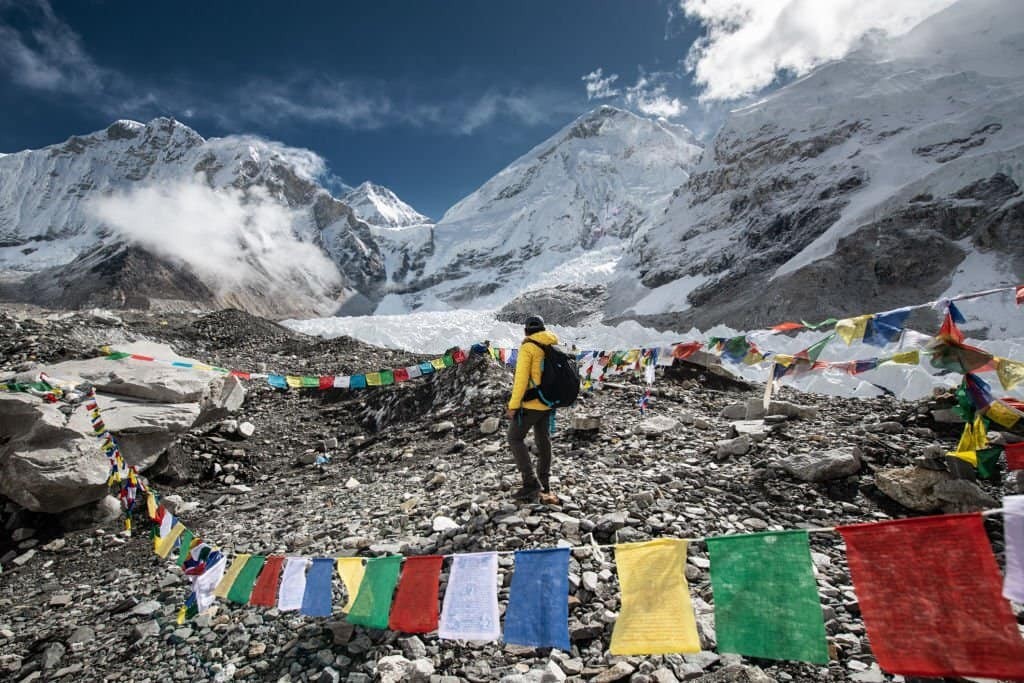
Arrival in Kathmandu
Upon your arrival at the international airport in Kathmandu, a representative of Beyond The Limits Treks and Expedition will be waiting with a Company flash board where written your name on it, As we respect Nepal, the guest is God. Our representative welcomes you and will transfer you to your booked hotel in Kathmandu. when you check in our Booked Hotel Our Trek Leader will give you a short briefing about the Everest Base Camp trek itinerary and route. The rest of the day is free, Just take a rest. if you like to explore, we do suggest taking a stroll around Thamel. Also known as a trekker’s paradise, Thamel is just filled with restaurants, trekking gear stores, boutique and souvenir shops as well as countless hotels and guesthouses. Spend the night at your hotel and tomorrow we head out for detailed trek preparation in the morning and sightseeing.
After breakfast, we’ll meet up at the hotel and go over all essential gear during the trek to Everest Base Camp. Once we’re all set and done you’ll go on a sightseeing tour in Kathmandu to the Monkey temple, Holy Hindu temple of Pashupatinath. This famous Mandir is dedicated to the head deity Shiva and according to legend is the location of one of the tridents of Shiva. Also a popular burial ground the ancient architecture and its scenic location on both banks of the Bagmati River make this an ideal sightseeing spot. Continue on we head for the giant white Buddhist Stupa of Boudhanath. This enormous round Stupa is an important pilgrimage site for Buddhists and is visited daily by people from around the world. Last up is a stroll around the old palace squares of Kathmandu, locally named Kathmandu’s Durbar Square. While the palaces and temples are ancient and not used the entire area is like a maze of cobbling alleys filled with handicraft shops and markets. A great place to end this sightseeing tour in Kathmandu during your Everest Base Camp trek holiday package.
The Trek to EBC (Everest Base Camp):
We have an early morning flight to catch and head for Lukla. As the world’s 38th highest airport the flight is quite adventurous. Seeing the high hills transform into the Himalayas is just incredible. The landing can get thrilling but it just adds up to the adventure! Landing in Lukla we start at an altitude of 2,860m/9,380ft above sea level. After meeting up with our Beyond the Limits porter team and holding a final gear check we set out on the Everest Base Camp trek!

Our first destination is the village of Phakding at an altitude of 2,610m/8,563ft. Mostly descending we trek through lush forests along the Dudh Koshi River until reaching the suspension bridge leading to the village. This day is perfect to get accustomed to the Himalayan trails. After our first overnight, we have a long day ahead as it’s a straight climb upwards to Namche Bazaar. We need to elevate about +900m/2,953ft in a single day. The trail consists mostly of jungle trails following the Dudh Khosi Khola. At Monjo we have our first permits check post as well as a short break. This marks the entry into the Sagarmatha (Everest) National Park. The feeling just gets surreal and we head further ascending to Namche Bazaar, also known as the biggest Sherpa village in the Everest region!
Namche Bazaar is just amazing. Filled with everything trekkers might dream of it also serves as a last supply post before heading on. We’ll need to stay here a day to properly acclimatize to avoid any chances of getting acute mountain sickness. Beyond the Limits takes you on an acclimatization hike to the Everest View Hotel from where the first views of Mt Everest can be seen! The hike goes up to Syangboche and then down into the Khumjung Valley. We’ll return in the afternoon to Namche Bazaar where we can see the Everest Photo Gallery and the Sherpa Culture Museum. The next day we continue on our trek to Everest Base Camp and head for the region’s oldest and largest Buddhist Monastery in Tengboche (3,867m/12,687ft). The views get better and better with each step and from Tengboche, you’ll get to see those white Himalayas contrasting against the blue sky. Standing at Tengboche Monastery gives a spiritual feeling and we’ll be sure to explore here and see the monks performing their duties, before turning in for the night.
How many Kilometers do I Need to walk for the Everest Base Camp Trek?
Tenzing Hilary Airport Lukla to Everest Base Camp trek-EBC trek and return to Lukla Covering approximately 130 kilometers or 80 miles. There are a lot of sites walked during the Acclimatization days That makes a few Kilometers Longer or shorter it depends on the package you booked.
📌 See here for the Everest Base Camp Cost
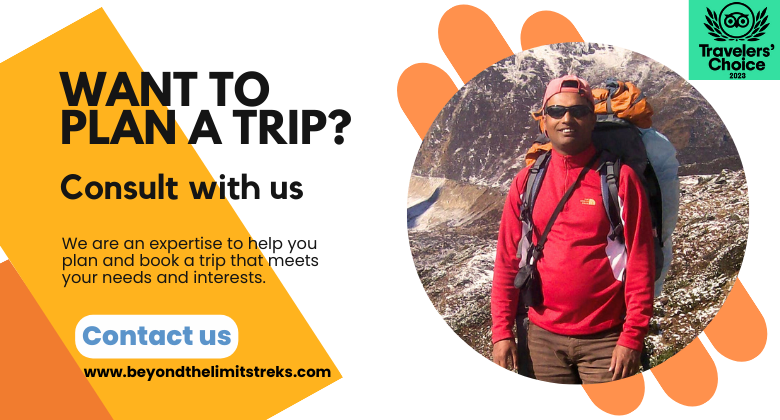
Our next destination during the Everest Base Camp trek is Dingboche at 4,410m/14,470ft. Serving as our second acclimatization destination, we’ll need to head down from Tengboche and cross the Imja Khola River to access the Imja Valley. Dingboche is also the main point for Island Peak Climbers. Views of Mt Everest, Mt Ama Dablam, and Island Peak are the day's main highlights. Having spent our first night in Dingboche we’ll hold our second acclimatization hike up to the Nagarsang Peak with a height of 5,170m/16,962ft. It’s quite the hike but the rewards are just amazing. Incredible views of Mt Lobuche (6,119m/20,076ft), Mt Thamserku (6,623m/21,729ft), Mt Kangtega (6,782m/22,251ft), Mt Ama Dablam (6,812m/22,349ft), Taboche Peak (6,542m/21,463ft), as well as others can be seen from atop Nagarsang Peak! We head back down to Dingboche overnight.
Another day of trekking takes us to Lobuche (4,940m/16,210ft). Serving as a crossroads for trekkers heading to the Gokyo Lakes it makes for the perfect place to overnight, as the next day we’ll be reaching Everest Base Camp! It’s a short trek to Gorakshep (5,164m/16,942ft). Following a part of the Khumbu moraine, we ascend gradually up until reaching the village. After checking in to the local tea house and dropping off heavier gear, we head out for EBC! The trail is quite wide and follows the Khumbu Glacier. The world’s highest and longest glacier. It’ll take about 2 hours to reach Everest Base Camp and the feeling is just incredible. A wave of accomplishment hits once you see the colored tents of the base camp come into view. We spend some time exploring around and making some memorable memories before heading back to Gorakshep. It’s important to get a quick sleep as the next day we hike up to Kala Patthar hill in the early morning.
With our head torches and flashlights, we head out in the morning. It’ll still be dark so we make our way slowly up to the blackish hill just in time to see the sunrise rising Mt Everest and its neighbors. The view is really incredible and breathtaking. Enjoy the moment! After reaching back at Gorakshep and having enjoyed breakfast we’ll be heading back down making our way slowly back to Lukla. We stop at Pheriche, and back at Namche Bazaar for overnights before reaching back at Lukla airport. It is customary to hold a celebration party in Lukla with the team but completely optional. As the next day we fly back to Kathmandu to conclude Beyond the Limits 14 days Everest Base Camp trek.
Book today this incredible trek to Everest Base Camp with Beyond the Limits , and get the Himalayan holiday that you deserve! Never compromising on service Beyond the Limits is your ideal travel partner for any Himalayan adventures!

Everest Base Camp Trek - 14 Days Itinerary
Beyond the Limits Treks offers the Everest Base Camp Trek for 14 Days Package . We also customize the package depending on your time & preferred routes. Contact us if you need customized itineraries.
Day 01 : Arrive at Nepal Transfer to your hotel
• Arrive at Tribhuvan International airport in Kathmandu
• Meet up with our team and transfer to your hotel
• Explore the streets of Thamel aka Trekkers’ Paradise
• Overnight stay at your hotel in Kathmandu
- Hotel Royal Suite Kathmandu
Day 02 : Trek preparation and Free Day in Kathmandu
• Hotel breakfast
• Meet up with your trekking guide at the hotel
• Trek preparation and gear check
• Afternoon Free and easy day.
If you like to do sightseeing tour in Kathmandu
• Visit the Hindu Temple Pashupatinath
• See the mighty Buddhist Stupa Boudhanath
• Explore around Kathmandu’s Durbar (Palace) Square
• Evening dinner with live Nepalese culture show
- Hotel Royal suite Kathmandu
Day 03 : Flight to Lukla Trek to Phakding (2,610m/8,563ft)
• Hotel breakfast + check out
• Transfer to the national airport
• Scenic flight to Lukla
• Meet up with our porter team
• Start the trek to Phakding
• Descend towards the Dudh Khosi River
• Follow the banks of the river
• Cross the suspension bridge to reach Phakding
• Dinner and overnight stay at the lodge/tea house
- Lodge/Tea House
Day 04 : Trek to Namche Bazaar (3,440m/11,286ft)
• Breakfast + start the trek
• Follow the trail through pine forests
• Head for Zam Phute and Tok Tok village
• Ascend to Benkar and cross the bridge to reach Monjo
• Short break + permits check
• Enter the Sagarmatha (Everest) National Park
• Head for Jorsalle
• Continue upwards until reaching Namche Bazaar
• Dinner and overnight stay at the lodge/ tea house
- Guest House
- Namche Bazar
Day 05 : Acclimatization hike around Namche Bazaar & Khumjung
• Breakfast
• Acclimatization hike:
• Hike up to Syangboche’s airstrip
• Continue further to the Everest View Hotel (first views of Mt Everest)
• Visit the Everest Photo Gallery & the Sherpa Culture Museum
• Optional: Hike to Khumjung and Kande Villages
• Return back to Namche Bazaar
Day 06 : Trek to Tengboche (3,867m/12,687ft)
• Head to the highest point of Namche Bazaar
• Continue on towards Kyangjuma
• Trek on through pine forests steeply ascending to Pungki Thanka
• Follow the right side of the Dudh Koshi River
• Ascend further up to Tengboche
• Explore around the region’s oldest and largest monastery
Day 07 : Trek to Dingboche (4,410m/14,470ft)
• Descend down to Deboche village
• Head for the Imja Valley by crossing the Imja Khola River
• Continue on the trail towards Pangboche
• Follow the trail right to Dingboche
• Enjoy the views of Mt Lhotse, Ama Dablam and Island Peak
Day 08 : Acclimatization hike to Nagarsang Peak (5,170m/16,962ft)
• Hike up the Nagarsang Peak
• Enjoy the views of the surrounding Himalayas
• Hike back to Dingboche
• Explore around Dingboche village
Day 09 : Trek to Lobuche (4,940m/16,210ft)
• Follow the trail to Thukla
• Head on rugged paths to Chupki Lhara
• Head up the moraine of the Khumbu Glacier
• Cross the moraine and further to Lobuche
Day 10 : Trek to Gorakshep (5,164m/16,942ft) + Hike to Everest Base Camp (5,364m/17,598ft)
• Make your way up alongside the Khumbu Glacier
• Reach at Gorakshep village and check in to the lodge/ tea house
• Hike further up to Everest Base Camp
• Congrats you made it!
• Enjoy the views and scenes from Everest Base Camp
• Start by hiking back to Gorakshep
Day 11 : Sunrise view at Kala Patthar (5,545m/18,192ft) Trek Pheriche (4,371m/14340ft)
• Early wake up call according the briefing
• Hike up to Kala Patthar hill for a stunning sunrise view
• Head back to Gorakshep for breakfast
• Start to trek following the same route up to Pheriche
• Explore around Pheriche village
Day 12 : Trek back to Namche Bazaar (3,440m/11,286ft)
• Retrace your steps back exiting the Imja Valley
• Pass by Tengboche
• Reach back at Namche Bazaar
- Namche Bazaar
Day 13 : Trek back to Lukla (2,860m/9,350ft)
• Make your way back to Monjo and Phakding
• Ascend up to Lukla
• Check in to the lodge/ tea house
• Optional celebration with the team
Day 14 : Flight back to Kathmandu Transfer to your hotel
• Breakfast + check out
• Fly back to Kathmandu
• Pick up and transfer back to your hotel
• Trip review + evening celebration dinner
• Overnight stay at your hotel as well as ending of the trip
What's Included
- Pick up from Kathmandu International Airport Terminal 01
- Your round-trip flight to & from Lukla
- Drop at the Airport on your departure day
- Round trip flight for guide and Assistance guide ( if you have an assistance guide)
- Ground Transportation as per itinerary( note that from the 1st of October to the last of November and the 1st of April to the last of May, Nepal Civil Aviation moves to Ramechhap Manthali Airport for Lukla flight due to heavy air traffic, in this care if you like to travel by private car, it is an extra charge by car cost RS.12000 By Jeep Rs17000, By HAice RS.26000) but sharing Transportation is including in Price
Accommodation
- 3-night Hotel in Kathmandu 3-star standard, If you like to stay in a Luxury Hotel in Kathmandu please let us know (extra price will be applicable)
- 11 Night Accommodation on Twin Sharing basis on trekking trails during trekking
- Daily freshly cooked meals three times a day (Breakfast, Lunch & Dinner) in the mountains
- 3 Breakfast in Kathmandu
- Seasonal Fresh fruits after dinner during the Trek
- Farewell Dinner
Trekking Staff
- Government Registered English speaking Professional a Trekking guide
- One Assistant guide for every 8 trekkers including their food, accommodation, transportation, insurance, salary
- Trekking staff salary, insurance, meals, accommodation, equipment, transportation, etc.
Permits and Taxes
- Everest National Park Permit
- Pasang Lhamu Municipality Trekking Card fees
- Agency service charge and government tax/VAT
Complimentary
- Trekking maps for Everest Base Camp Trek
- Emergency rescue service arrangement ( Please do Insurance from your country that covers Medical and Evacuation)
- Sleeping bag on request (you have to return after your Trek)
- Complimentary Duffel bags to keep your belongings to be carried by a porter if required
- Certificate of achievement
Not Included
- International airfare
- Nepal visa fees
- If you like to Take porter($22 USD per day ( Including salary, insurance,meals, accommodation and equipment)
- All drinks( Hot/cold/Alcoholic on the mountain)
- wifi expenses
- Personal Nature expenses
- Travel Insurance( need to cover Medical and evacuation)
- Nepal Visa Fee( Can be received on your arrival day at Kathmandu Airport. It depends on what type of visa in Nepal , you like to Take)
- If more than the 3-night hotel in Kathmandu
- if you like to Take a sightseeing package for Kathmandu Valley $50 one day with a car and driver
- Meals in Kathmandu
- Hot shower during the trek
- All chargeable batteries, camera
- Extra cost Natural or Political Disturbance which beyond our Control.
- The Extra cost of any case earlyof return from the tour. Anything beyond the included section above or an unforeseen event out of the control or beyond the limits may incur additional charges. Where possible we will negotiate with the client for alternative arrangements.
- Tips for a guide and porters
Dates & Price
Dear Trekkers, We will have Everyday departure on your request or on your Demand and we will have seats available for groups joining Everest Base camp trek, you can look at our departure dates and contact us if you like to join our Group for the trek. If you have your own group and Like to make a private trek feel free to Book with our booking firm
Contact us Email: info[a]beyondthelimitstreks.com
Useful Information
✔ Apply for Online Nepal Tourist Visa: Apply Here
Everest Base Camp trek is fully customizable. Your satisfaction is our top priority. If our standard service falls short of your expectations, we are happy to give you the choice to upgrade your accommodations and services in accordance with your unique needs.
Additionally, if you have created a personalized itinerary that perfectly matches your journey preferences, we greatly appreciate your proact i ve effort and will work to give you the greatest options possible to make the trip better. Let Us Know if you have Brig Group,
You can be confident that Beyond the Limits Treks and Expedition will provide an outstanding experience as you set out on an exciting adventure through the magnificent Everest Region. Our knowledge, competence, and steadfast dedication ensure that your vacation will be full of long-lasting memories.
Everest Base Camp Trek Map:
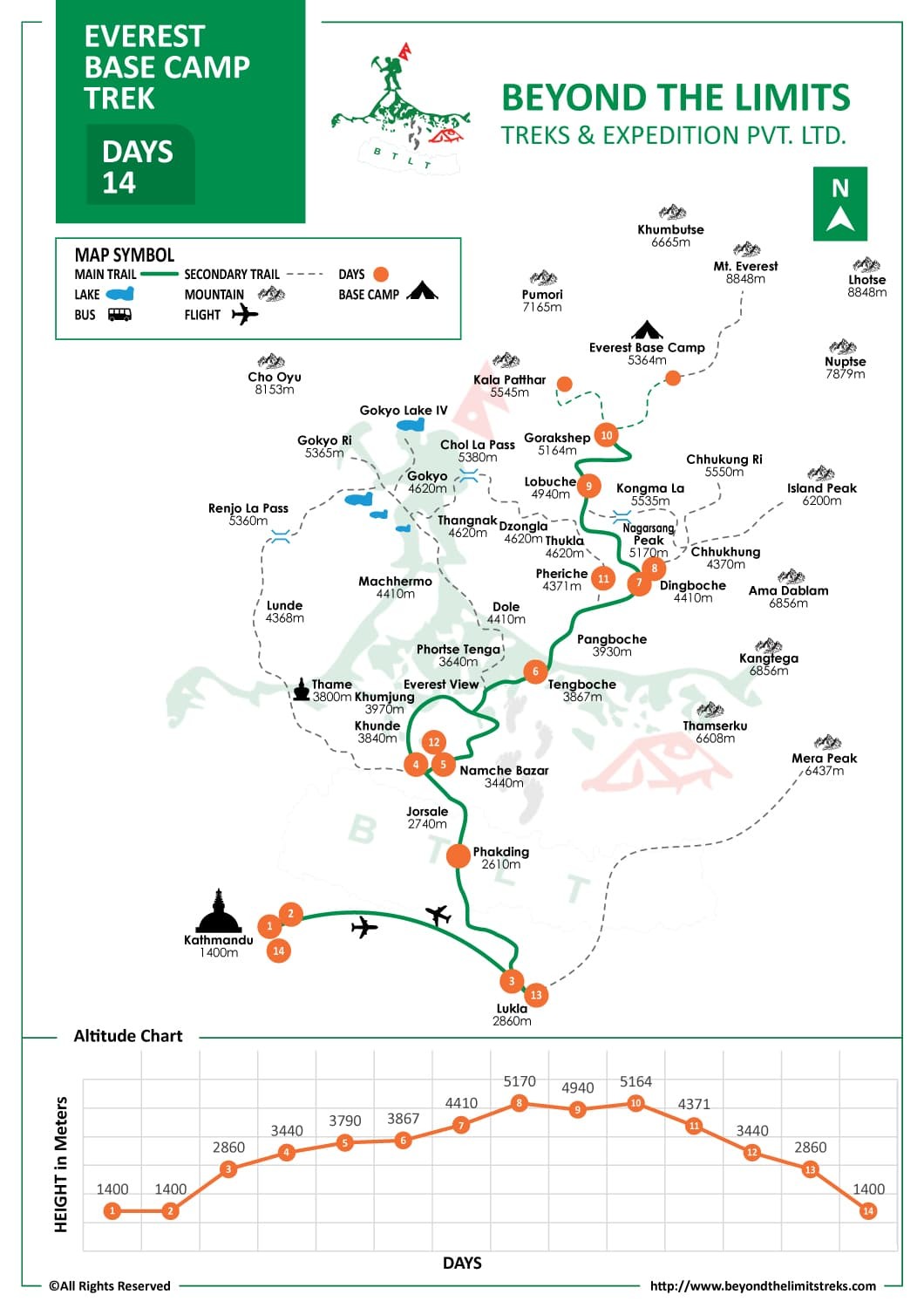
Everest Base Camp Trek Difficulty
Everest Base Camp Trek is a moderate to strenuous trek in the Himalayas. The trail includes many ascents and descents on steep, rugged, and rocky paths. You will trek for approximately 4 to 7 hours per day. All of these demands sound health, good physical fitness, and strong stamina. You do not need to have prior trekking experience to go on Everest Base Camp Trekking, however, if you do have, it will help you a lot during the trek.
Accommodation and Food
Everest Base Camp Trek is a guest house/ lodge trek. The rooms will be basic with little furniture and clean washrooms. Keep in mind that washrooms will be on a shared basis.
You will get food served as per the menu of the guest house/lodge house. You will find Nepali, Indian, and Tibetan cuisines. Besides that, you can also buy bars and snack items on the trail. Make sure to carry a reusable water bottle with you and refill it every time it gets empty.
Best time to go on Everest Base Camp Trek
Spring (March to early May) and Autumn (September to November) is the best two best time to go on Everest Base Camp Trek.
Please Note : Lukla Flights are departing and returning to Ramechhap Airport instead of Kathmandu from the 1st of April to the end of May and the 1st of October until the end of November due to busy Air Traffic in Kathmandu Airport. It's about a 4-hour drive to Ramechhap from Kathmandu so we will get started for the airport around 2 am. The return drive at the end of the trek is between 3-4 Hours depending on traffic.
Airfare from Kathmandu to Lukla USD 217 one way so Kathmandu Lukla Kathmandu $434 Airfare Ramechhap Manthali $177 one way total Airfare Ramechhap Lukla Ramechhap $354
Most Common FAQ's:
1) how much does it cost just to go to everest base camp.
✔ While prices differ per services given during the trek, you can estimate a 1,400USD per person for the trip. This includes all overnights, permits, guide + porters, meals during the trek, and transportation according to the itinerary. International flights are usually excluded. Beyond the Limits offers a unique and professional service in trekking to Everest Base Camp, do check out our packages with different routes and options as well as costs for Everest Base Camp.
2) Is getting to Everest Base Camp hard?
✔ The trek can be tough for beginner trekkers but is certainly doable. With children 7 years of age and seniors of 80 years making the trek successfully, we feel that anybody who has the determination can easily make this trek. Beyond the Limits has been trekking this route since over a decade and will guide you safely to Everest Base Camp!
3) Is Everest Base Camp Trek worth it?
✔ Yes, it is. Besides the incredible views of the highest Himalayas in the world, you’ll also get to see up close the mesmerizing culture of the Sherpa as well as visiting there unique Himalayan villages. The Everest Base Camp trek also offers its visitors a unique experience by trekking through varied geography, from lush jungles to rocky barren no man’s lands.
For more Everest FAQ's.
Related Trips:
- 12 Days Everest Base Camp Bed and Breakfast
Gokyo Ri Trekking
- Everest Panorama Trek
- Three Pass Trek in Everest
- Everest Circuit via Chola Pass
- Lower Everest Trek
Related Packages

Lower Everest Trek - 12 Days
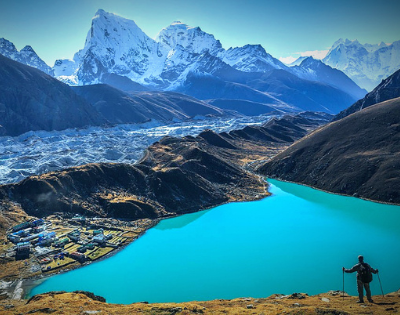
Everest three pass trek
Send an inquiry, we are associated with.

Everest Base Camp Trek
Activity level, kathmandu, nepal.
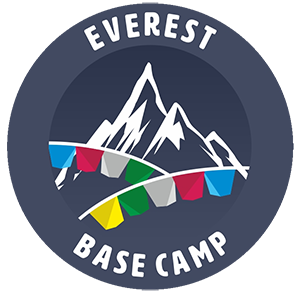
Trek to Everest Base Camp in Nepal
Join The Explorer’s Passage (TEP) on one of the world’s most extraordinary adventures: an Everest Base Camp trek in Nepal! On this journey into the heart of the mighty Himalayas, you will follow in the daring footsteps of some of Mount Everest’s legends, including Sir Edmund Hillary and Tenzing Norgay.
The trail to Everest Base Camp immerses you in truly unparalleled landscapes. Along the way, you will pass through forested valleys and small villages, ascend past the tree line, and eventually reach the famed base camp at the foot of Earth’s tallest mountain. You will cross glacier-fed rivers, visit monasteries and shrines, traverse high-altitude yak pastures, and will constantly be glancing up past fluttering strings of prayer flags to take in the regal peaks and glaciers that surround you.
This captivating region is unlike any other, and will undoubtedly give you remarkable stories that you can pass down through generations. Your unique reward on this trip will not only be up-close experience with Mt. Everest, our planet’s highest summit, but also an unrivaled sense of personal achievement as you take on one of the world’s most famous trekking journeys.
Trip Highlights
Explore Kathmandu on a private guided tour, and experience the sights, sounds, and tastes of one of South Asia’s most intriguing capital cities.
Visit UNESCO World Heritage Sites such as Boudhanath and Pashupatinath, where you can walk among some of Nepal’s most sacred places.
Journey deep into the Himalayas as you hike to Everest Base Camp, and find yourself surrounded by the majesty of the soaring peaks, peaceful woodlands, rhododendron forests, mammoth glaciers, unique wildlife, and rushing rivers of Nepal.
Discover vibrant Nepalese communities along the route, including the colorful market town of Namche Bazaar, the serene Tengboche monastery, and other adventurous waypoints such as Dingboche, Thukla, Gorakshep, and more
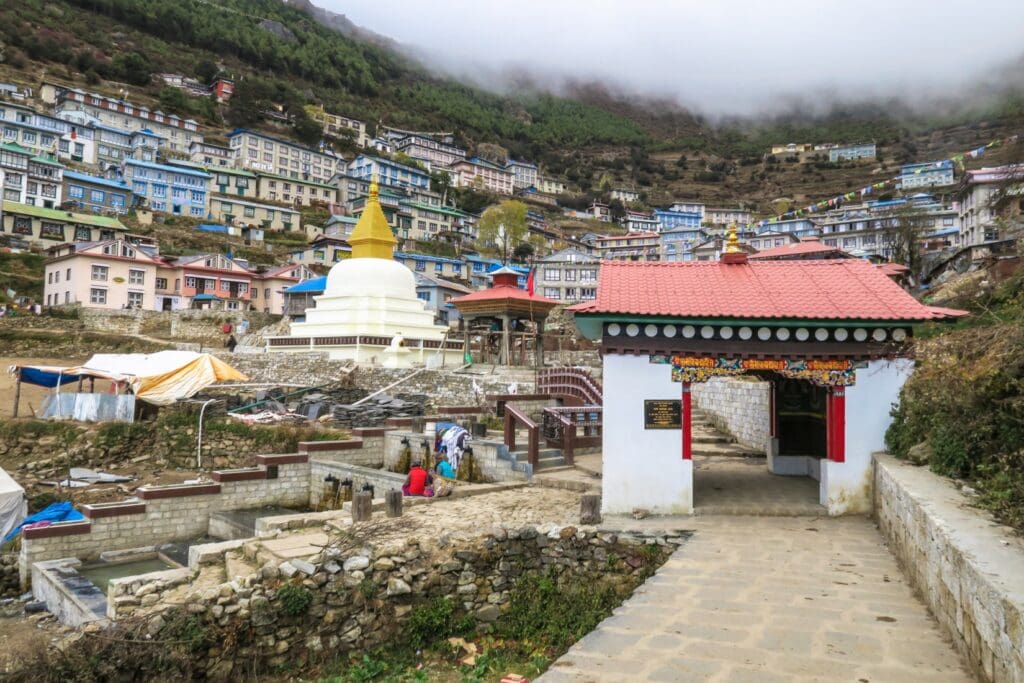
Let’s Plan Your Trip Today:
Click below to download our Sample Base Camp Itinerary
From $4,295 USD per person Our Everest Base Camp trips are all-inclusive, crafted with the intent of providing you with an unforgettable adventure travel experience.
More questions? Read more about pricing here
Start dates
We offer both Pre-Schedule Group Departures and Private Custom Departures
2024 Group Trip Dates below:
- September 14, 2024
- September 27, 2024
- October 11, 2024
- October 21, 2024
- November 1, 2024
- November 11, 2024
2025 Group Trip Dates below:
- March 14, 2025
- March 28, 2025
- April 11, 2025
- April 25, 2025
- May 9, 2025
- May 23, 2025
- September 12, 2025
- September 26, 2025
- October 10, 2025
- October 24, 2025
- November 7, 2025
- November 21, 2025
Private custom departures are available. To inquire about a custom date, please contac t us!
Option for 18 or 14 Day Itinerary
With 18-day itinerary, trekking duration is 13 days. With 14-day itinerary, trekking duration is 9 days (for more information about itinerary options, please review the section about trip customization on this webpage)
Accommodations
We offer a variety of accommodations
In Kathmandu (before and after the trek to Everest Base Camp), choose between 3-Star or 5-Star hotels. While hiking to E.B.C., everyone stays in ‘tea houses,’ which are comparable to many other mountain lodges/huts in other parts of the world. Please note that there are opportunities to upgrade to nicer tea houses in certain villages on the E.B.C. Trek.
*Read more about your accommodations in Nepal
max. group size
Maximum 12 people
Fixed Group Departures: 12 People
*Private Groups : 20 people
ACTIVITY LEVEL
Multi-day hiking on the route to Everest Base Camp.
Total trekking distance: either ~85 miles / ~136 kms or ~56 miles / ~90 kms (depending on itinerary option selected)
*Please refer to our Trip Activity Level Guide for more information
Sample Trip Itinerary
Note: this map only corresponds with the standard 18-day itinerary’s 13 days of hiking to and from Everest Base Camp. The alternative 14-day itinerary option (featuring 9 days of trekking) is very similar – except that on the return trip, trekkers take a helicopter from Pheriche to Kathmandu. For more information about itinerary options, please review the section about trip customization on this webpage.
Want more information? Download a detailed itinerary.
Itineraries include detailed descriptions of each day, tips on travel arrangements, regional highlights, and more. It’s the perfect resource to help you choose!
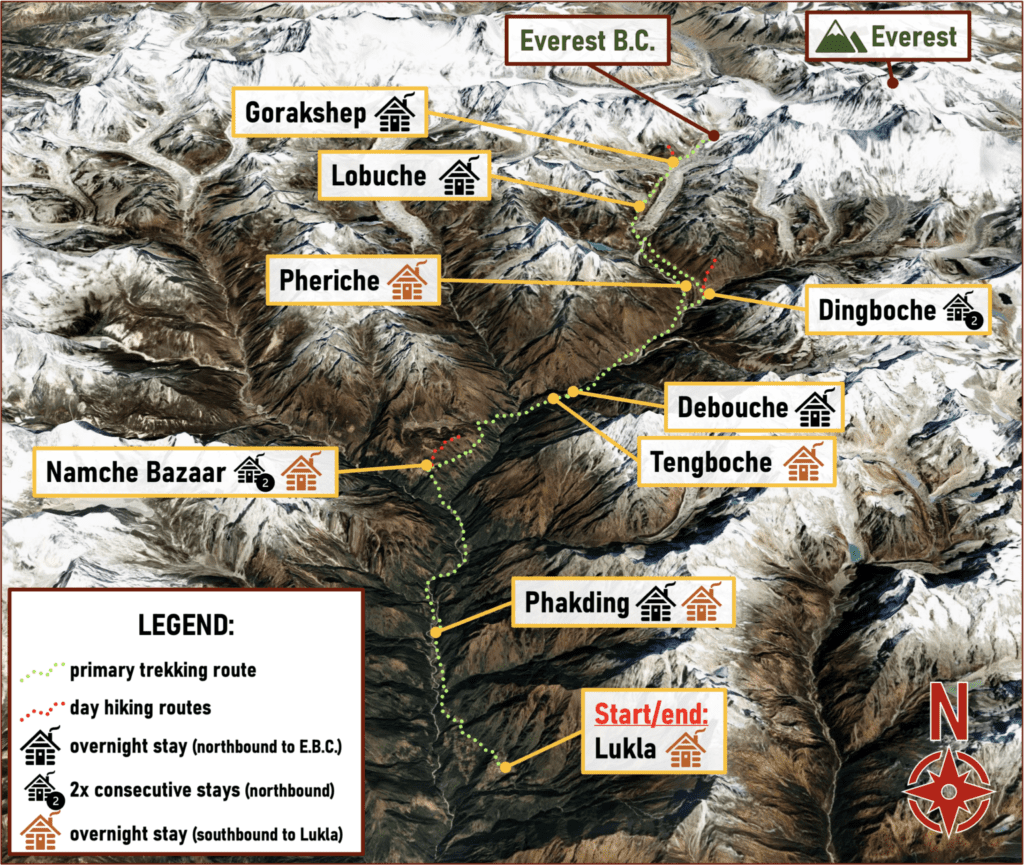
Day 1: Arrival in Kathmandu, Nepal
Namaste and welcome to Kathmandu (elevation: 4,347 feet / 1,325 meters)! Get ready to experience one of the most undeniably awe-inspiring journeys our planet has to offer. At the airport, you will be greeted by a member of our team (your driver will be waiting for you, holding a sign with the T.E.P. logo and/or your name) and then driven to the hotel. Depending on your arrival time, you will have some free time today to explore Kathmandu on your own. Later in the evening, you will enjoy a festive meal at one of our favorite restaurants in the city.
Accommodations: Hotel Marshyangdi
Day 2: Explore Kathmandu
We begin by exploring two UNESCO World Heritage Sites. The first is Pashupatinath, a sacred Hindu temple complex located on the banks of the Bagmati River, which includes an array of temples, ashrams, sacred images, and inscriptions. We will spend some time walking around the grounds before driving to Boudhanath, our second stop for the day. Boudhanath is home to one of the largest stupas in Nepal. At Boudhanath, we will enjoy a group lunch and then a walking tour of the site. Eventually, at the conclusion of the tour, you will be driven back to the hotel. Later in the afternoon, your guides will conduct a 45 – 60 minute pre-trek briefing at the hotel. Following the briefing/orientation, you will have free time to get dinner and explore the city even more! In your free time, you may want to walk to Durbar Square, in front of the old royal palace.
Accommodations: Hotel Marshyangdi
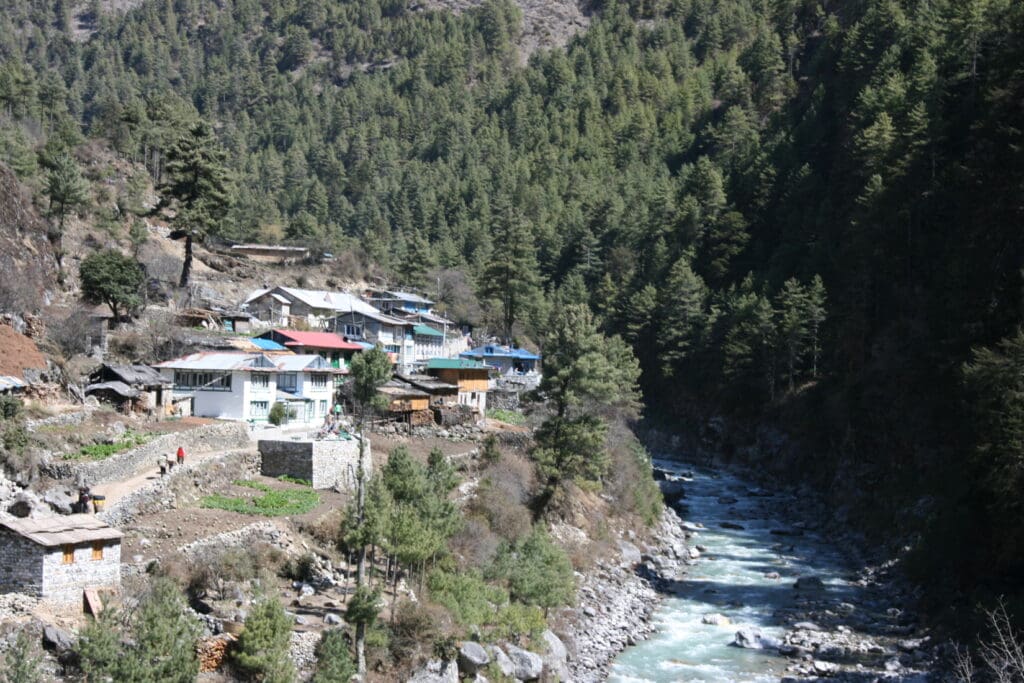
Day 3: Travel to Lukla, then Trek to Phakding
Embark on your Everest Base Camp adventure with an early morning drive to Ramechhap Airport for a flight to Lukla. Upon arrival at Lukla Airport (9,300 feet / 2,835 meters), meet your trail team and prepare at a local lodge with tea, snacks, and final preparations. By 9:30 or 10:00 AM, start your trek, passing through Chauri Kharka village and heading north. Enjoy stunning views of the Dhudh Kosi River and the snow-capped Himalayas as you make your way to a tea house in Phakding for the night.
Daily trekking distance: approximately 5.6 miles / 9 kilometers (over ~4-5 hours)
Accommodations: Tea Houses
Day 4: Trek to Namche Bazaar
Begin the day with breakfast with your fellow trekkers, before setting out north along the river again, crossing several bridges along the way. We will stop for lunch in Jorsale (9,200 feet / 2,804 meters) before continuing towards Namche Bazaar. Eat heartily, because the post-lunch section is fairly challenging (one of the trek’s toughest segments), with lots of switchbacks and an elevation gain of several hundred meters. Known as the gateway to Everest, Namche Bazaar (11,286 feet / 3,440 meters) is a particularly key trading hub, home to a variety of stores and other services.
Daily trekking distance: approximately 7.5 miles / 12 kilometers (over ~5-6 hours)
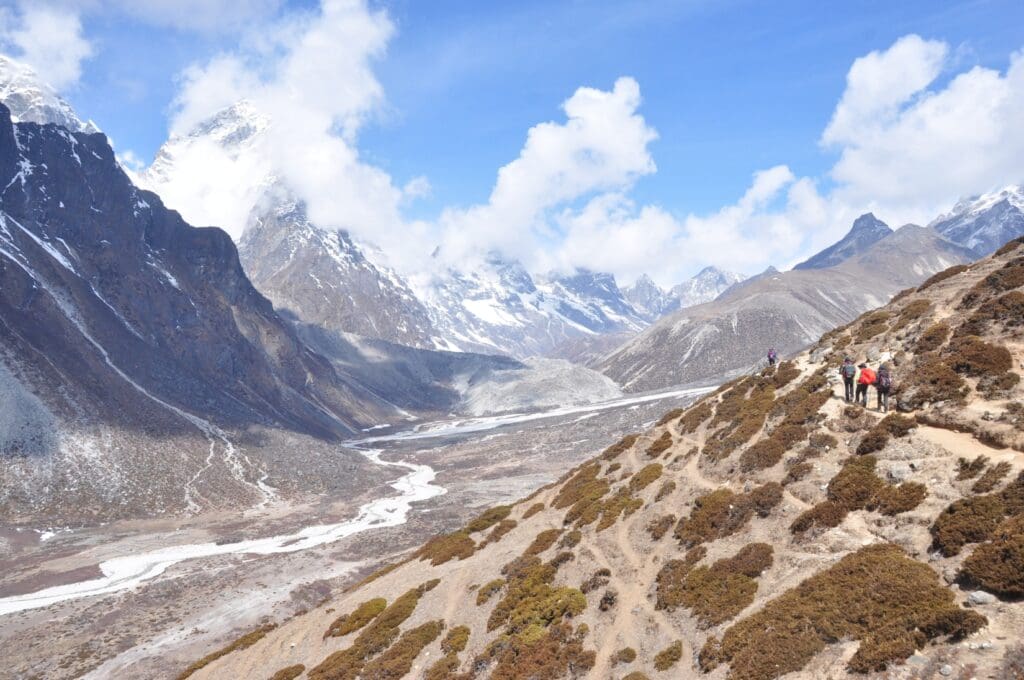
Day 5: Third Day of Trek (to Phuyupatamarca)
Today, acclimate and soak in the beauty of snowy peaks like Kwangde, Thamserku, and Kangtega. After breakfast, hike to the Everest View Hotel (13,000 feet / 3,962 meters) through alpine terrain and an old airstrip. Enjoy tea and snacks while admiring breathtaking views of Ama Dablam, Nuptse, Lhotse, and Mount Everest. Return to Namche Bazaar in the early afternoon for lunch and free time to explore the town and experience vibrant Sherpa culture.
Day-hike distance: approximately 2.5 miles / 4 kilometers (~4 hours round-trip)
Day 6: Trek to Debouche
Today, leave Namche Bazaar and descend to the Phunki Tenga Bridge over the Dhudh Kosi River. Continue to Debouche (12,533 feet / 3,820 meters), with a lunch stop near some stupas. Visit the Tengboche monastery in the village, the largest in the Khumbu region, rebuilt with global support after being damaged by an earthquake and fire. Admire Tibetan art, inscribed stones, and prayer flags, and perhaps meet the resident monks. Afterwards, hike for about 30 minutes through rhododendron forests to Debouche, where you’ll spend the night with stunning views of Tawoche and Ama Dablam.
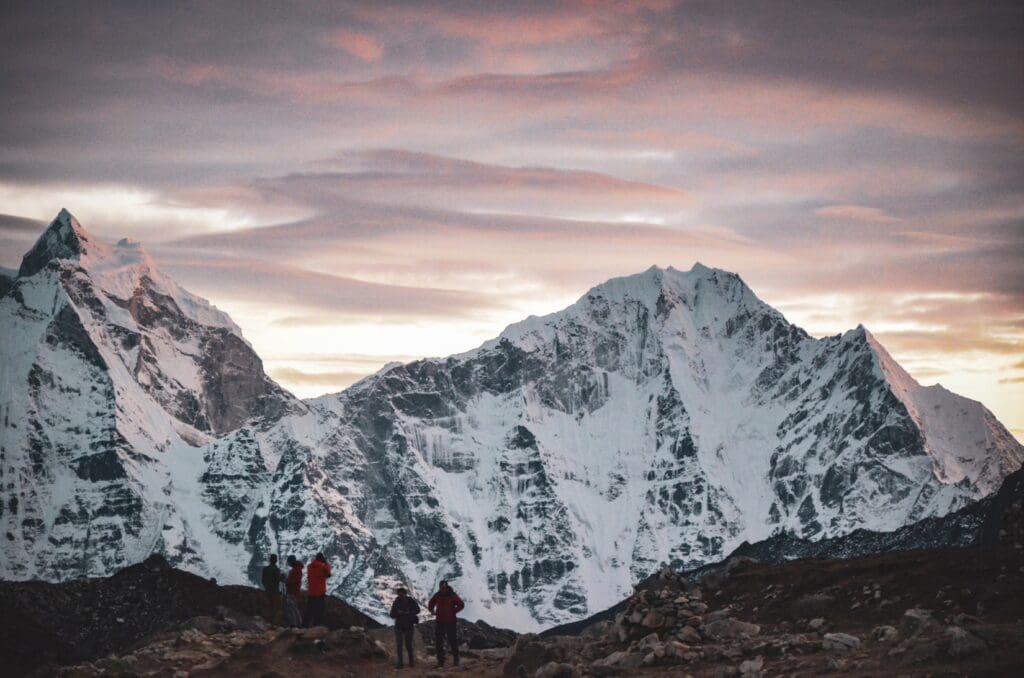
Day 7: Trek to Dingboche
Today, trek from Debouche to Dingboche (14,304 feet / 4,360 meters). Pass through Pangboche, with a lunch stop at around 4,000 meters where the treeline ends. Enjoy a gradual ascent to Dingboche, spotting Mount Everest along the way. Observe the terraced fields where locals grow barley, buckwheat, and potatoes. In Dingboche, you’ll overlook the Imja River and see extensive stone walls across the valley.
Daily trekking distance: approximately 8.1 miles / 13 kilometers (over ~4-5 hours)
Day 8: Acclimatization Day in Dingboche (w/day hike)
Enjoy a leisurely start with breakfast around 7:00 AM before departing at 9:00 AM for a day hike. Ascend Nagarshang Ridge (16,732 feet / 5,100 meters) for stunning views and further acclimatization. Return to Dingboche for a relaxed afternoon and evening. Explore the village, socialize with fellow trekkers, or opt for an additional short hike. Weather permitting, consider a visit to Chukhung (15,518 feet / 4,730 meters), traditionally a yak-raising area, about 2-3 hours northeast.
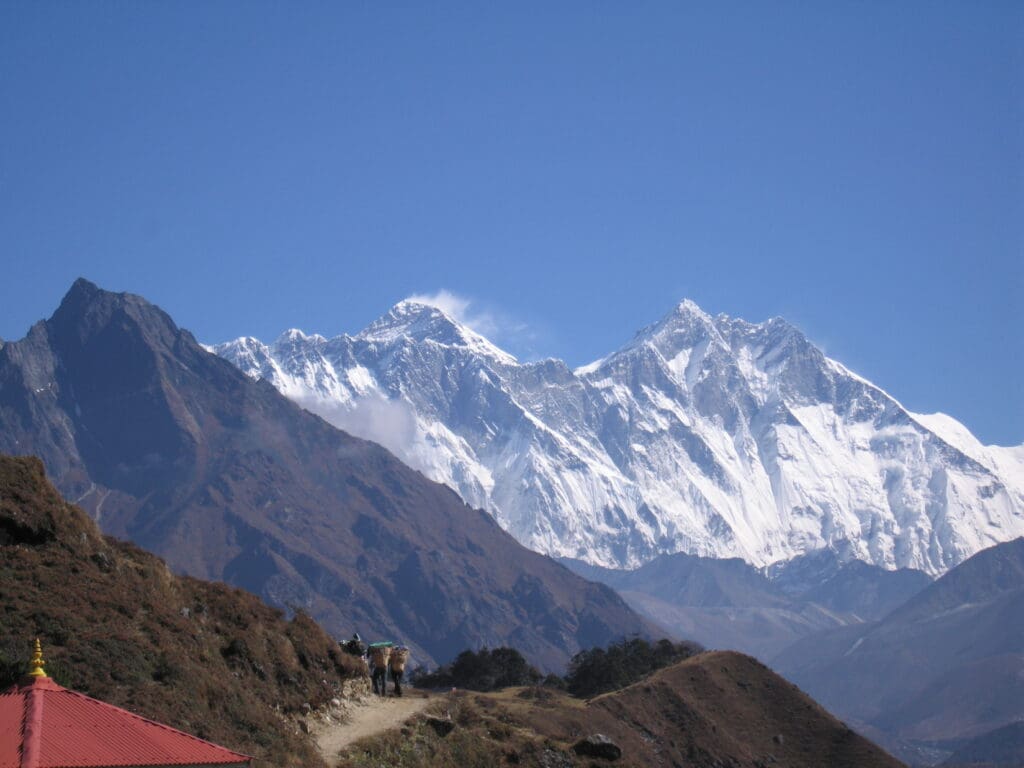
Day 9: Trek to Lobuche
A gentle ascent through alpine scrub and yak pastures today takes us first to Thukla (15,156 feet / 4,620 meters). As we hike above the Pheriche Valley, we will reach the Summiteers’ Memorial in Thukla Pass. This memorial, surrounded by dozens of colorful flags, pays tribute to the explorers who have come before. From this point, we will follow the trail north through a big valley towards Lobuche (16,175 feet / 4,930 meters).
Day-hike distance: approximately 7.5 miles / 12 kilometers (over ~4-5 hours)
Day 10: Trek to Gorakshep, then Everest Base Camp
Start with a 3-hour hike to Gorakshep (16,995 feet / 5,180 meters), a village at the intersection of the Changri Shar and Khumbu glaciers. After lunch, trek northeast along the Khumbu Glacier to Everest Base Camp (17,600 feet / 5,364 meters). Marvel at the glacier’s scale and the icy waters that feed it, understanding why this region is known as Earth’s “Third Pole.” At Base Camp, enjoy the accomplishment, take photos, and soak in the adventurous spirit. Return to Gorakshep for the night with a deeper appreciation of this remarkable landscape.
Day-hike distance: approximately 7.5 miles / 12 kilometers (over ~8 hours)
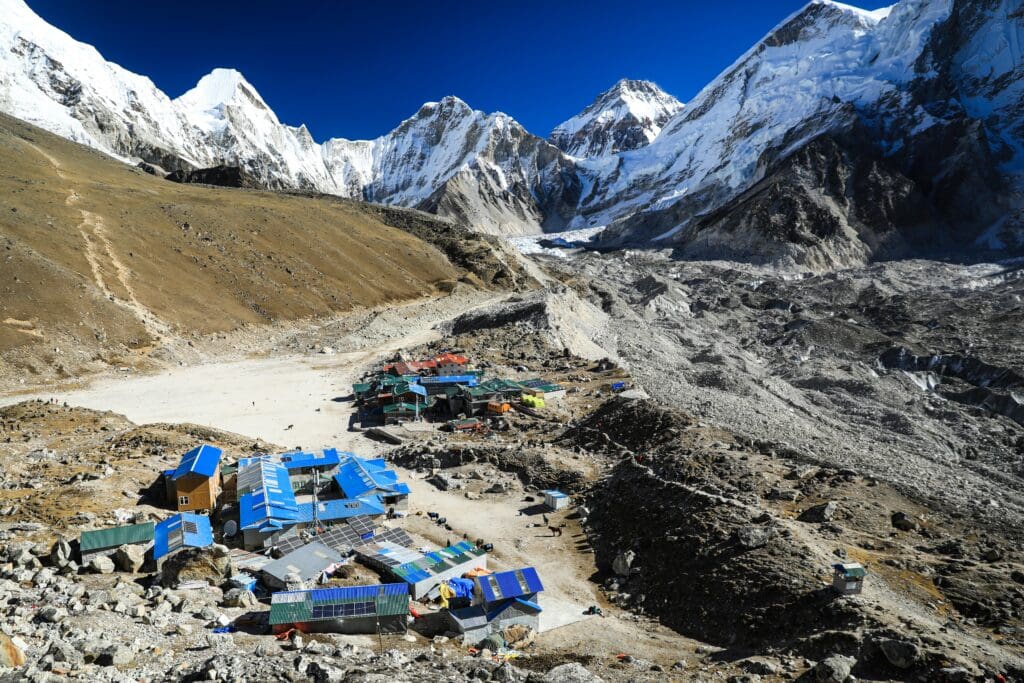
Day 11: Kalapathar Viewpoint, then Trek to Pheriche
Begin the day with an early 5:00 AM start to hike to Kalapathar, the highest point of your trek at ~18,000 feet / ~5,500 meters. The ascent involves a gradual climb over grassy terrain followed by rocky sections. At the top, enjoy stunning close-up views of Everest and capture incredible photographs. Return to Gorakshep for breakfast and final packing. Depart mid-morning for Pheriche (14,041 feet / 4,280 meters), retracing your steps south. The trail splits at Thukla, where you’ll follow a slightly different route through a scenic valley with views of Ama Dablam. Arrive in Pheriche by late afternoon, around 4:00 PM.
Day-hike distance: approximately 9.3 miles / 15 kilometers (over ~8-9 hours)
Day 12: Trek to Tengboche
Today, we continue hiking south, following the river and enjoying lunch in Pangboche. We then continue on to Debouche and pass the nunnery, which is also the oldest Buddhist convent in Nepal. Although a 2015 earthquake damaged the building, the site has been rebuilt. After passing through Debouche we continue a short distance to Tengboche, where we will rest for the night. Today’s hike is descending the entire time (except for a few hundred meters between Debouche and Tengboche at the end).
Day-hike distance: approximately 6.2 miles / 10 kilometers (over ~5-6 hours)
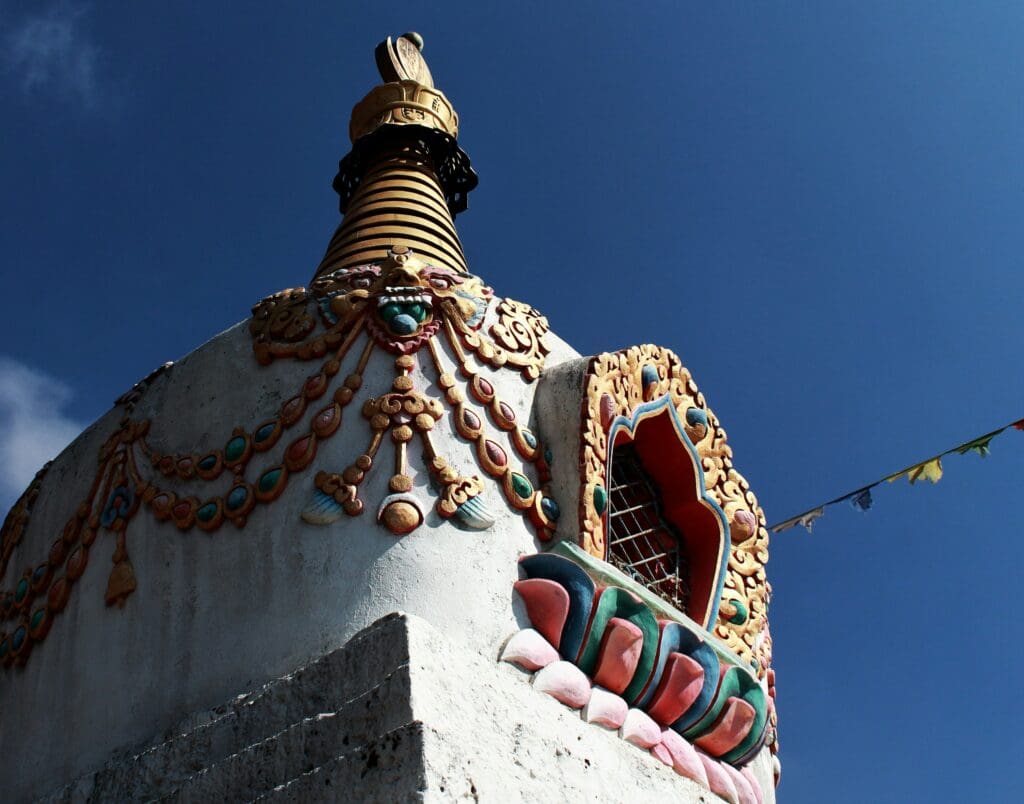
Day 13 : Trek to Namche Bazaar
Retrace your steps to Namche Bazaar, nestled in the hills and known for its local guides and porters. Explore the town’s market, streets, and architecture, or unwind at a cozy bakery or cafe. Visit the Sherpa Culture Museum if time permits. Don’t miss the highest altitude Irish pub on the planet—just remember to drink cautiously, as alcohol affects you more at higher altitudes.
Day-hike distance: approximately 7.5 miles / 12 kilometers (over ~5-6 hours)
Day 14: Trek to Phakding
As we continue our journey, today we will hike alongside the frigid waters of the Dhudh Kosi River, fed by some of the enormous glaciers that you have experienced up close during this adventure. As we trace the winding river, we will have lunch in Monjo and then continue to the village of Phakding, where we will stop to rest for the night.
Day-hike distance: approximately 7.5 miles / 12 kilometers (over ~4-6 hours)
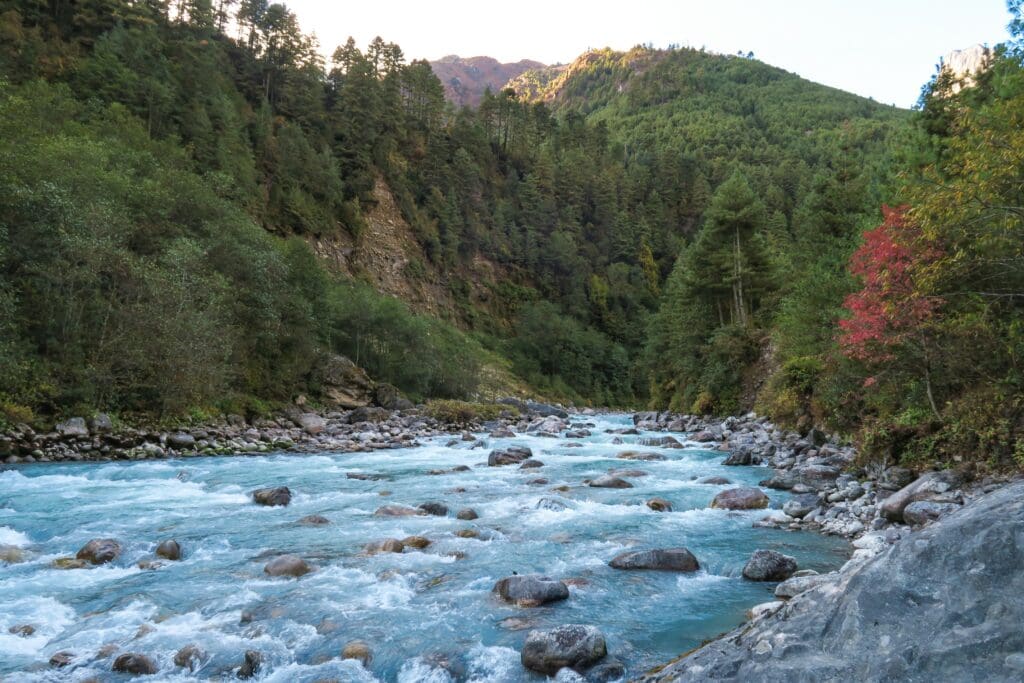
Day 15: Trek to Lukla
From Phakding, we begin our final full day of trekking, which you will spend surrounded by stunning Himalayan scenery as well as in the excellent company of fellow adventurers. We will reach Lukla in the afternoon, and once there you will be able to enjoy a hearty lunch, shower, and relax at the conclusion of the trekking portion of this incredible journey!
Day-hike distance: approximately 5.6 miles / 9 kilometers (over ~4-5 hours)
Day 16: Return to Kathmandu
Start your day early with a quick breakfast at 5:00 AM before a short walk to Lukla Airport for a 15-20 minute flight to Ramechhap. From there, board a private van for the drive back to Kathmandu. Upon arrival in the afternoon, refresh at the hotel and explore the city. Wander through the Thamel District’s vibrant streets, or visit the serene Garden of Dreams next to the former royal palace. For dinner, savor an authentic thali—a hearty South Asian meal with rice, lentils, meat, and vegetable curry. Enjoy it; you’ve earned it after your trek!
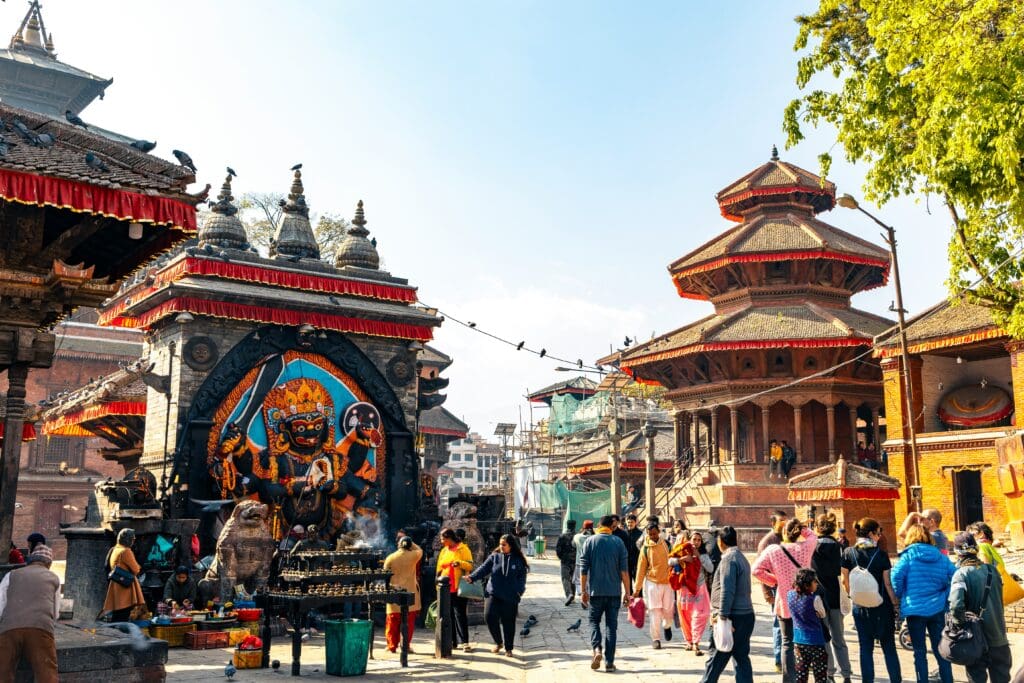
Day 17: Explore Kathmandu, then Farewell Dinner
On your last full day, explore Kathmandu’s offerings: catch live music in Lazimpat or visit the 350-year-old Newa Chen house in Lalitpur for a glimpse into Newari heritage. Your local team can suggest more activities. Make the most of your time exploring the city before we gather for our final group meal in the evening. Celebrate your trek, the friendships made, and the extraordinary journey through this remarkable part of the world!
Day 18: Final Day in Nepal
You’ve been among the fortunate few to experience the majesty of Mt. Everest up close. This adventure is now a cherished part of your personal story. As you head home, carry with you the unforgettable memories of this journey. We look forward to welcoming you on your next adventure!
Accommodations: N/A
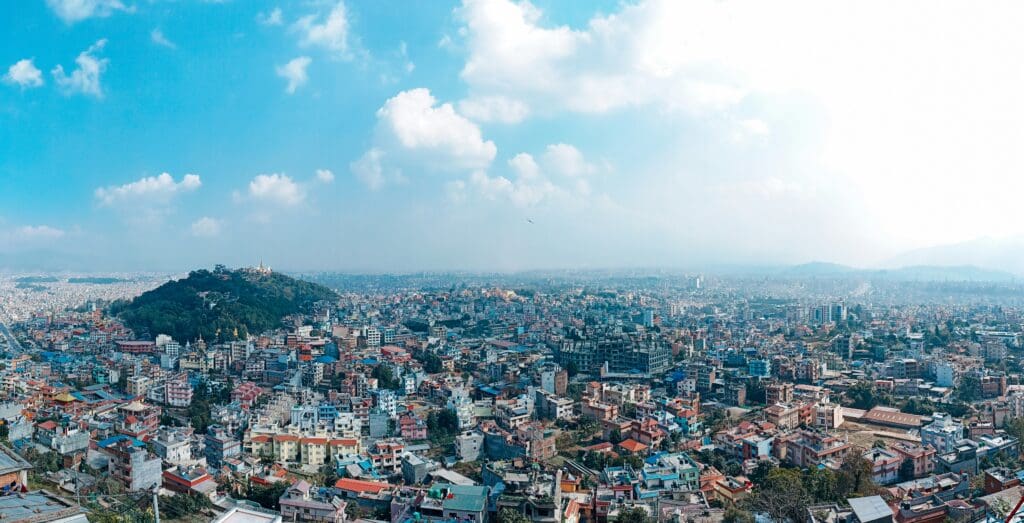
Customizing Your Everest Base Camp Trek
Are you interested in another activity or destination in Nepal that isn’t listed above? Planning to spend extra time in the region, or interested in specific travel dates? No problem. As experts in tailored trip planning, we can weave your interests and your timeframe into our customizable itineraries so that every detail of your extraordinary trip unfolds just the way you want it to. Click the options below to learn more:
In our standard itinerary, you spend 18 days in Nepal, starting and ending in Kathmandu. 13 of these days are spent ‘on the trail.’ You can review this full sample itinerary in the Itinerary Overview section of this webpage.
To shorten your Everest Base Camp trek, you can instead opt for a 14-day itinerary (featuring 9 days of trekking, instead of 13). This itinerary is identical to the 18-day itinerary up until Day 12, when you reach Pheriche as you head back south. There, you will take a helicopter to Kathmandu.* Once back in Kathmandu, the itinerary is similar to the final few days of the standard 18-day itinerary. This 14-day option omits most of the southbound return trip on foot (between Pheriche and the original start point of Lukla).
*Please note that pricing for the helicopter between Pheriche and Kathmandu is variable, contingent upon the number of passengers (up to 5 with bags). The helicopter pricing is also separate from the overall trip pricing.
On your adventure, you can choose to add on one or several of the following:
- * Important Notes: camping at Everest Base Camp is subject to availability. Furthermore, an overnight stay at E.B.C. means that there will not be enough time to ascend the Kalapathar Viewpoint on the following day (typically on Day 11 as described in the standard itinerary).
- Flight over Mount Everest: soar above Everest in a fixed-wing plane, and enjoy incomparable views of the entire landscape ( what more is there to say! ).
- Extra Nights in Kathmandu: if you would like to extend your time in Nepal, we are happy to help arrange additional nights in Kathmandu.
Contact us today to get started customizing your dream trip to Everest Base Camp!
Hear what travelers are saying:

Trip Accommodations
5 star accommodations, 3.5 / 4 star accommodations.
- Accommodations on the Trek
Hotel Yak & Yeti | Kathmandu, Nepal
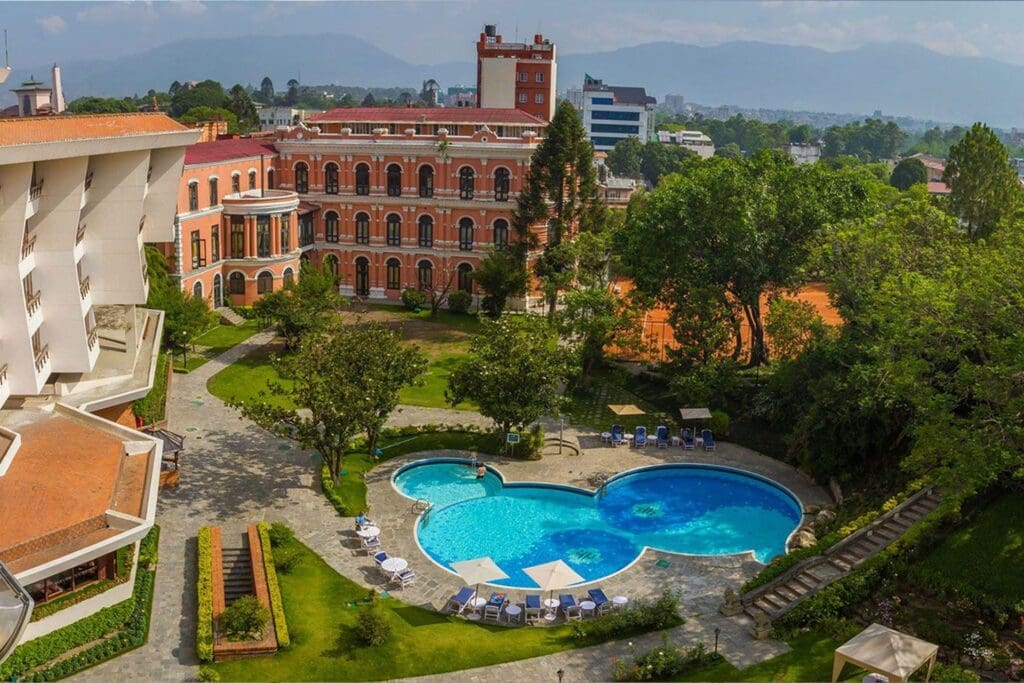
Hotel Yak and Yeti is a heritage hotel located in Durbar Marg, the thriving city center of Kathmandu Valley, in a prime location that is minutes walking distance from the former Royal Palace. Durbar marg is a commercial area with high-end shops and a variety of food options. Kathmandu retains its architectural reminders of the Rana period scattered throughout the city. One of them is the Red Palace or Lal Durbar, situated in the heart of the city, minutes walk from Durbar Marg.
Hotel Website
Hotel Marshyangdi | Kathmandu, Nepal
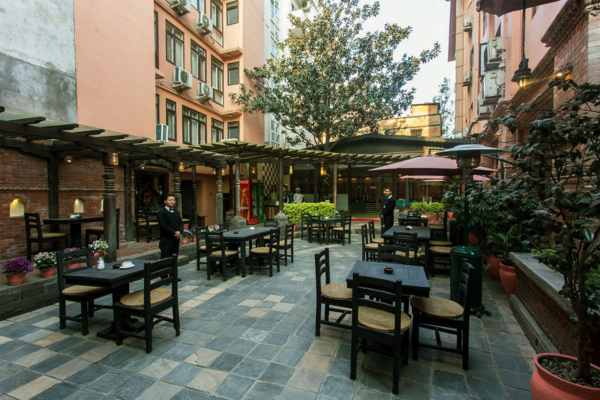
Located in the attractive Thamel District and close to many city attractions, Hotel Marshyangdi is owned and operated by a family from Manang. Manang is a mountainous region of Nepal, and Marshyangdi means ‘raging river’ in the local Manangi dialect.
All rooms are air conditioned with en-suite bathrooms and internet available. The property also features a relaxing courtyard restaurant, a bar, and a café. Finally, breakfasts at the hotel are included during your stay.
Hotel website
Accommodations on the Trek – Tea Houses
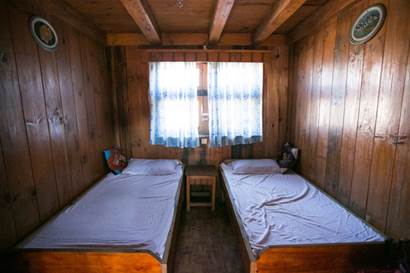
During the trekking portion of the adventure, the accommodations will be in tea houses that offer dormitory-style rooms with single and double bunk beds, comparable to many other mountain lodges/huts in other parts of the world.
The tea houses are typically equipped with running cold water and shared bathrooms in a separate section. At most of them, there are propane-fueled hot showers available to use for a small fee (typically $5-10 USD equivalent). It is usually possible to charge personal electronic devices in the common/dining areas, however they also charge a small fee for this (typically $5-10 USD equivalent).
Frequently Asked Questions
Looking for something.
Check here for our Frequently Asked Questions for the Everest Base Camp adventure, and if you can’t find the answer you are looking for then send us a message . Click the button below to access our general FAQ section!
The Everest Base Camp Trek isn’t overly challenging, though it does feature a couple of steep climbs lasting approximately an hour each. Despite the days seeming lengthy, they typically involve only about three hours of walking. The primary difficulty of the trek is the altitude.
Yes, Everest Base Camp can be tackled by beginners, but there’s a catch. It’s not easy, requiring both physical and mental preparation. The trek to Everest Base Camp is commonly viewed as moderately challenging, but don’t let that steer you away.
Whether Everest Base Camp is worth it depends on what you’re seeking. For many, the stunning views, cultural immersion, and personal achievement make it truly a worthwhile experience. However, it also involves physical exertion, high altitude challenges, and considerable preparation. Weighing out these factors, it’s more than worth it for the people seeking unimaginable views and a fantastic experience.
The duration of the hike to Everest Base Camp can vary depending on the specific route taken and individual pacing. You can trek from 9 to 13 days depending on what you choose within our selections. The amount of days trekking also allows for acclimatization to the high altitude.
The cost of trekking to Everest Base Camp can vary widely depending on the days chosen to trek. The standard cost for the trip is between $3,800 to $5,000 USD per person. Changes to accommodations could also alter your cost.
Trekking to Everest Base Camp requires a moderate level of fitness. While you don’t need to be an elite athlete, you should be prepared for several hours of hiking each day. This trek includes walking on steep and rocky terrain, and at high altitudes where oxygen levels are lower. You should have a significant amount of cardiovascular endurance, leg strength, and core strength.
Image Gallery
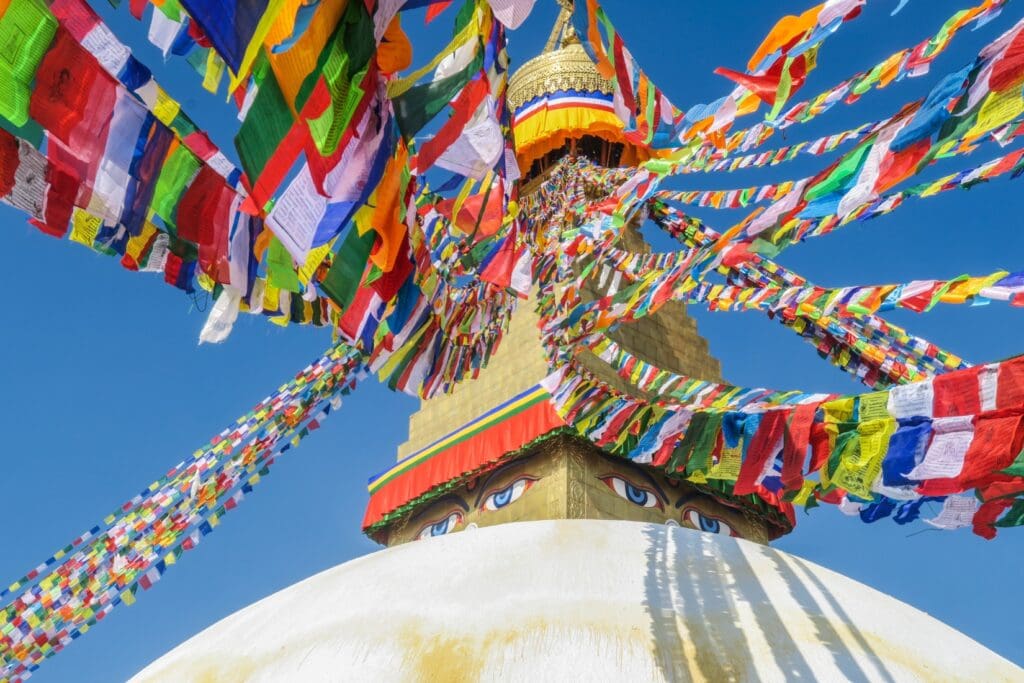
Trip Support
There is no other operator in the travel industry that will provide the same level of personal attention to your travel experience., personal attention & preparation before every trip.
We get very involved with our travelers before each trip by offering a series of pre-planning calls in the months and weeks before departure. This provides you with an opportunity to hear directly from us on preparation, trip experience, and training. It also gives you the platform to ask questions about any aspect of the trip. We also provide comprehensive packing lists, pre-adventure checklists, and other detailed information.
Staff Support & Logistics
We go above and beyond our competitors in handling every aspect of your trip, so that you can focus exclusively on experiencing all that Peru has to offer. Our knowledgeable support staff takes care of the details of your in-country ground transportation, lodging, meals, tours, permits, and activities. We’ve even scheduled a bit of free time for you to explore, relax, shop, or eat on your own.
Additional Trip Information
Check out our detailed educational content on the Everest Base Camp , written by our adventure team. The article provides a complete overview of everything that you need to know about this amazing journey on the Everest Base Camp Trek.
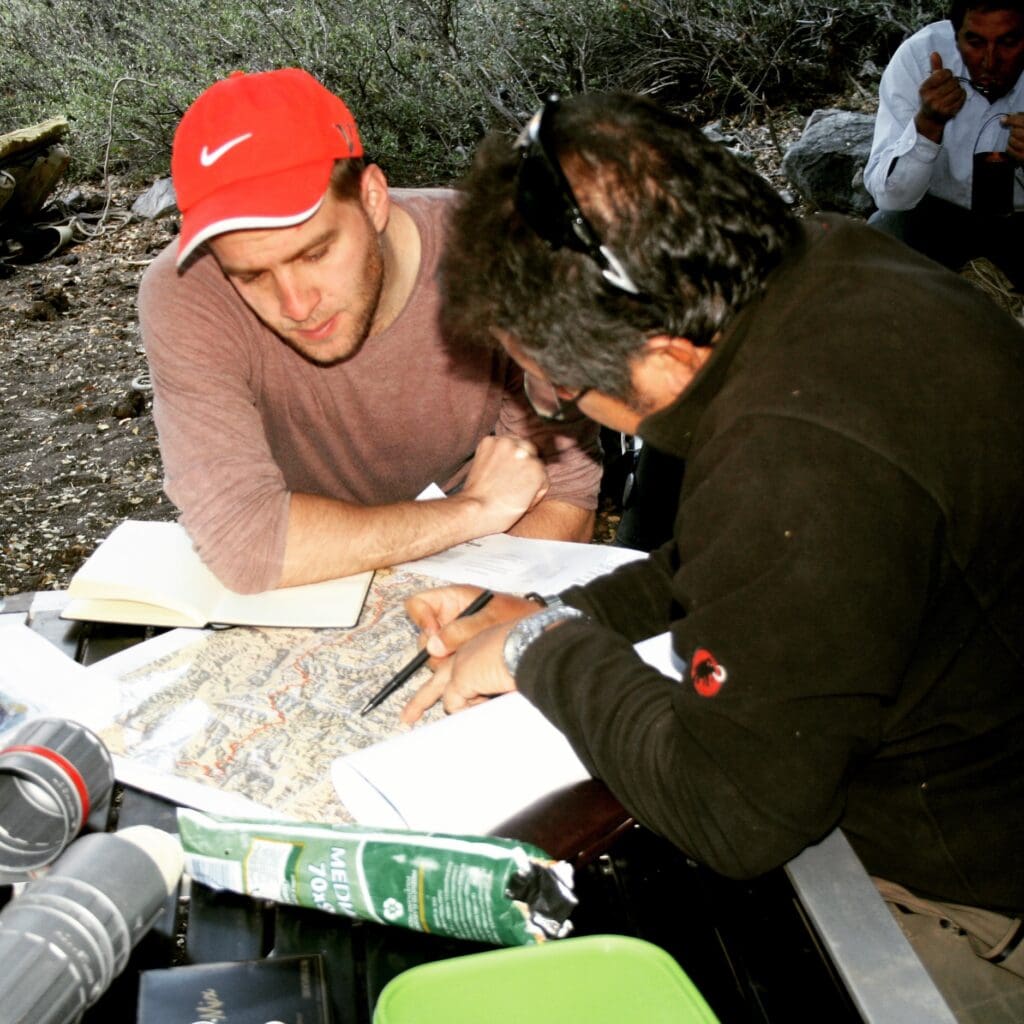
More Trip Inspiration:
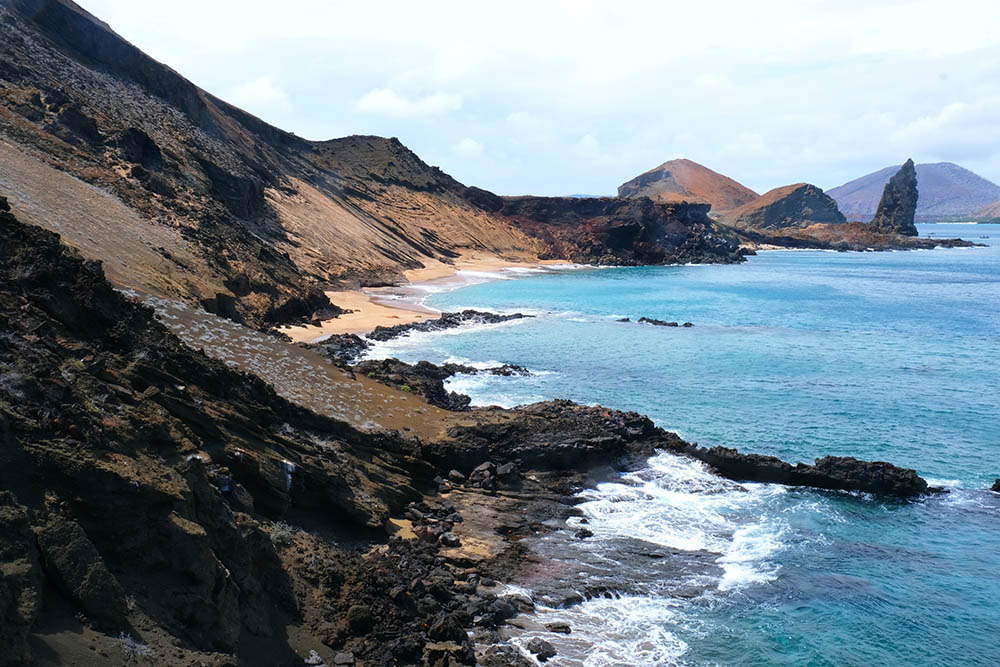
Galapagos Islands Cruise
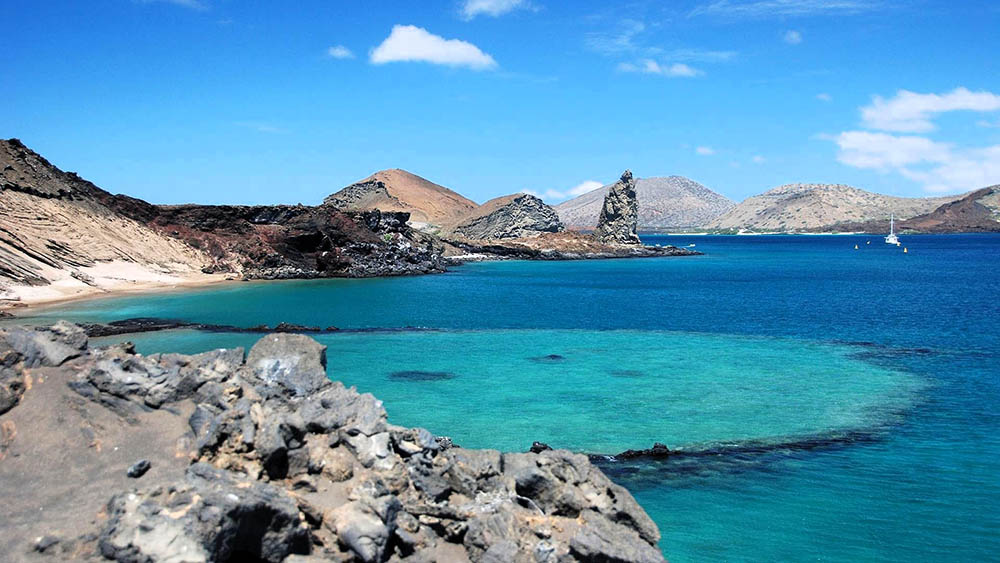
Galapagos Safari Camp
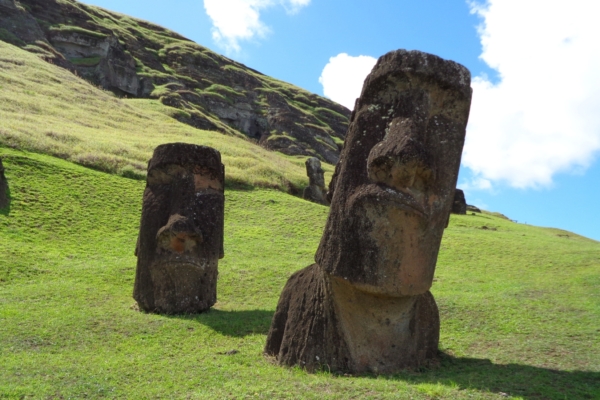
Easter Island
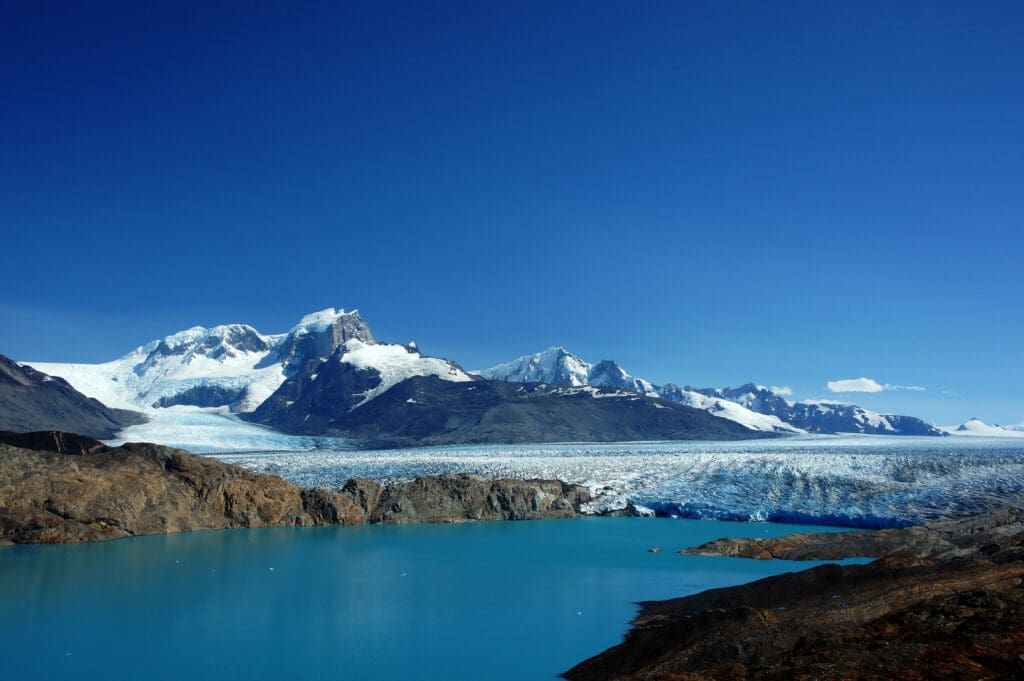
Jordan Adventure
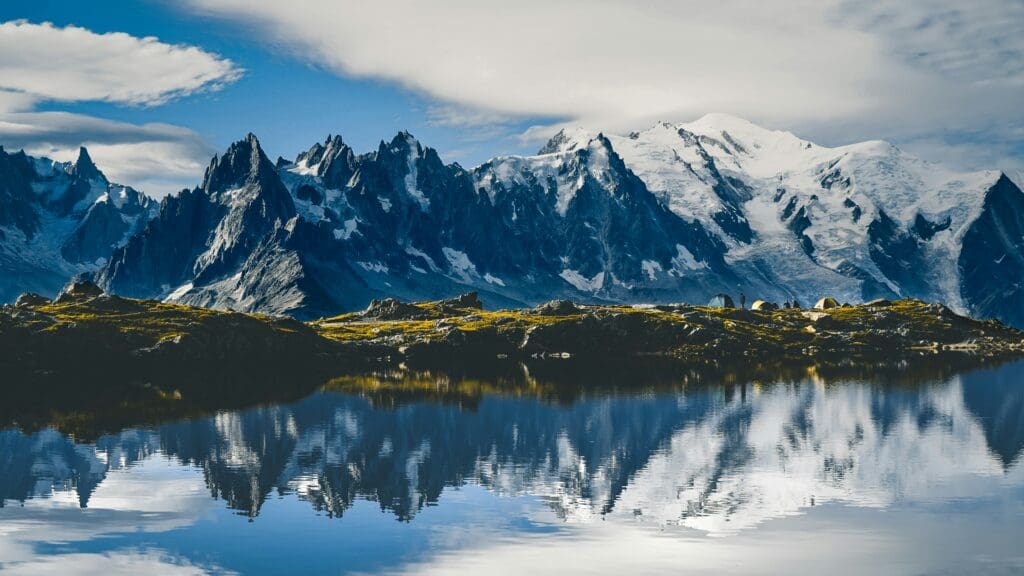
Tour du Mont Blanc
We look forward to helping you plan your next big adventure, (855) 208-6800, [email protected].
Newsletter Sign-Up
- 24*7 Bhagwat Simkhada
- +977 - 9851138875
- Thamel, Marg Kathmandu
- [email protected]

Budget Travels Everest Region Trekking in Nepal Everest Base Camp Budget Trek

- Website : https://www.himalayanadventuretreks.com/
- Contact Person : Bhagwat Simkhada
- WhatsApp : +977- 9851138875
- Address : Thamel, Marg Kathmandu
- Email : [email protected]
Max Altitude:
Arrival city:, departure city:, group size :, tour customize :, trip grade :, best season:.
- Scenic Views: Stunning vistas of snow-capped peaks including Mount Everest, Lhotse, Nuptse, and Ama Dablam.
- Cultural Immersion: Interaction with Sherpa communities, visits to monasteries such as Tengboche, and experiencing local traditions and hospitality.
- Challenging Terrain: Trekking through diverse landscapes including lush forests, alpine meadows, glacial moraines, and rocky terrain.
- High-Altitude Passes: Crossing high-altitude passes like the Kongma La, Cho La, and Renjo La, offering panoramic views and thrilling challenges.
- Everest Base Camp: Reaching the iconic Everest Base Camp, a symbolic achievement and opportunity for photos with the world’s highest peak.
- Kalapatthar: Summiting Kalapatthar for unparalleled views of Everest at sunrise, providing one of the trek’s most unforgettable moments.
- Sherpa Villages: Exploring picturesque Sherpa villages like Namche Bazaar, Dingboche, and Gorak Shep, rich in culture and history.
- Flora and Fauna: Encounters with unique Himalayan flora and fauna, including rhododendrons, blue sheep, and various bird species.
- Buddhist Monuments: Visiting ancient Buddhist stupas, prayer flags, and monasteries, immersing in the spiritual ambiance of the Himalayas.
- Tea Houses: Staying in cozy tea houses along the trail, enjoying warm hospitality, and bonding with fellow trekkers over hearty meals and beverages.
- Challenging Weather: Coping with the unpredictable Himalayan weather, including cold temperatures, strong winds, and occasional snowfall.
- Personal Growth: Overcoming physical and mental challenges, pushing personal limits, and gaining a sense of accomplishment and resilience.
What's included
Mt. Everest (8848.86m) and the Khumbu Valley are known to house some of the most famous trekking trails in Nepal. As such, the Everest Base Camp Trek is the most iconic of them all. The trek explores the natural and cultural riches of the Everest region and concludes at the Everest Base Camp . As such, the Everest Base Camp Budget Trek is a shorter version of this grand adventure. Thus, this trip visits the beautiful destinations which have attracted thousands of travelers across the world. All in all, this trip is best for those who want to trek in the Everest region in a limited time frame.
Like any other trip in Nepal, your adventure begins in Kathmandu. Next, you head to the Everest region on a short flight to Lukla. Here, you land at the Tenzing Hilary Airport and begin the trek. You will trek across the Dudh Koshi River and reach Phakding on your first night on the trek. Then, you enter the Sagarmatha National Park as you relish its biodiversity on the way to Namche . At Namche Bazaar, you can explore the village and experience modern amenities in the company of the Himalayas. Further, you continue along the Imja River to reach Tengboche . From here, you continue to ascend to Dingboche.
Then, the trails enter the snowy region as you continue to Thukla. Crossing the Thukla Pass, you head to Lobuche. Further, you trek along the Khumbu Glacier to reach Gorak Shep. Finally, you make the trek to Everest Base Camp while enjoying the views of Mt. Everest (8848.86m), Pumo Ri (7165m), and Nuptse (7861m). At the Base Camp, you can also relish the sights of Khumbu Glacier and Icefall. After you return to Gorak Shep, you hike to KalaPatthar . It is one of the most famous vantage points to soak in the views of Everest Himalayas. For the final part of the trek, you descend through Sherpa villages and reach Lukla. A scenic flight from Lukla brings you back to Kathmandu.
Everest Base Camp Budget Trek is a grand and difficult trip in the Himalayas. So, it is necessary for the trekkers to be in good physical condition. Similarly, the autumn and spring seasons are the best times to do the trek.
At Himalayan Adventure Treks, we always offer the best finest services to our clients. Also, we provide numerous trip packages and offers in Nepal.
Reason to do Everest Base Camp Trek:
- Iconic Destination: Everest Base Camp is the starting point for mountaineers attempting to summit the world’s highest peak, Mount Everest. Trekking to this legendary location allows you to stand in the shadow of Everest and witness its awe-inspiring presence.
- Breathtaking Scenery: The trek offers unparalleled views of some of the world’s highest and most majestic peaks, including Everest, Lhotse, Nuptse, and Ama Dablam, as well as stunning landscapes of glaciers, valleys, and alpine forests.
- Cultural Experience: Trekking through the Khumbu region provides an opportunity to immerse yourself in Sherpa culture and traditions. You’ll visit traditional villages, monasteries, and stupas, interact with local people, and gain insights into their way of life.
- Physical Challenge: The Everest Base Camp Trek is physically demanding, involving long days of hiking at high altitudes. For many trekkers, the challenge of conquering steep ascents, navigating rugged terrain, and overcoming altitude-related obstacles is a significant draw.
- Sense of Achievement: Reaching Everest Base Camp is a monumental achievement for many trekkers, representing a personal triumph over physical and mental challenges. Standing at the base of the world’s highest peak is a symbol of determination, resilience, and perseverance.
- Adventure and Exploration: Trekking to Everest Base Camp is an adventure of a lifetime, offering the thrill of exploring remote and pristine wilderness, encountering diverse flora and fauna, and experiencing the raw beauty of the Himalayas up close.
- Spiritual Connection: The Himalayas have long been revered as sacred mountains in various cultures and religions, including Buddhism and Hinduism. Trekking through this ancient landscape can evoke a profound sense of awe, spirituality, and connection to the natural world.
- Personal Growth: The Everest Base Camp Trek is not just a physical journey but also a journey of self-discovery and personal growth. It challenges you to push beyond your comfort zone, confront your fears and limitations, and emerge stronger, more resilient, and more confident.
Best season for EBC Trek:
The best season for trekking to Everest Base Camp (EBC) is generally considered to be during the pre-monsoon (spring) and post-monsoon (autumn/fall) seasons. Here’s a breakdown of these seasons and why they are preferred:
Spring (Pre-Monsoon):
Months: March to May
- Weather: Spring offers stable weather conditions with clear skies, mild temperatures, and minimal rainfall. The days are generally sunny and warm, making it ideal for trekking.
- Scenery: The spring season brings vibrant colors to the landscape with blooming rhododendrons and other wildflowers, enhancing the beauty of the trekking route.
- Visibility: Clear skies provide excellent visibility of the surrounding mountains, including Mount Everest and other Himalayan peaks.
- Crowds: Although spring is a popular trekking season, it is less crowded compared to the autumn season, allowing for a more peaceful and enjoyable experience.
Autumn/Fall (Post-Monsoon):
Months: September to November
- Weather: Autumn is characterized by stable weather conditions, with clear skies, mild temperatures, and low humidity. Rainfall is minimal, and the air is crisp and refreshing.
- Scenery: The autumn season offers stunning views of the Himalayan landscape, with clear visibility and vibrant colors as the foliage changes to shades of gold, red, and orange.
- Trails: The trekking trails are in excellent condition during autumn, making it easier to navigate and providing a more comfortable trekking experience.
- Festivals: Autumn coincides with major festivals in Nepal, such as Dashain and Tihar, allowing trekkers to experience local culture and celebrations in villages along the route.
- Crowds: Autumn is the peak trekking season in Nepal, attracting a large number of trekkers from around the world. While this means more crowds on the trail and in tea houses, it also creates a lively atmosphere and opportunities to meet fellow trekkers.
Both spring and autumn offer favorable weather conditions, stunning scenery, and memorable trekking experiences. The choice between these seasons ultimately depends on personal preferences regarding weather, crowd levels, and cultural events. Regardless of the season chosen, it’s essential to check weather forecasts and trail conditions before embarking on the trek.
Everest Base Camp Trek and its difficulties:
The Everest Base Camp (EBC) Trek presents several challenges and difficulties that trekkers should be aware of and adequately prepared for. Here are some of the key difficulties associated with the EBC Trek:
- High Altitude: One of the most significant challenges of the EBC Trek is the high altitude. The trek reaches elevations above 5,000 meters (16,400 feet), where oxygen levels are lower, and altitude-related illnesses such as acute mountain sickness (AMS), high altitude pulmonary edema (HAPE), and high altitude cerebral edema (HACE) can occur. Acclimatization is crucial to minimize the risk of altitude sickness.
- Physical Demands: The EBC Trek involves long days of hiking, often on steep and uneven terrain. Trekkers should be prepared for challenging ascents and descents, including sections of rocky trails, narrow paths, and high mountain passes. Physical fitness and endurance are essential to tackle the demanding trekking routes.
- Weather Conditions: Weather in the Himalayas can be unpredictable and harsh, especially at higher altitudes. Trekkers may encounter cold temperatures, strong winds, snowfall, and sudden changes in weather conditions. It’s essential to be prepared with appropriate clothing and gear to stay warm and dry.
- Tea House Accommodations: Accommodations along the EBC Trek are basic tea houses or lodges, offering limited amenities and facilities. Trekkers should be prepared for simple accommodations, shared bathrooms, and occasional cold showers. Tea houses can also get crowded during peak trekking seasons, requiring early booking.
- Altitude-Related Symptoms: Altitude sickness can affect trekkers at various stages of the EBC Trek, especially as they ascend to higher altitudes. Symptoms of altitude sickness may include headaches, nausea, fatigue, dizziness, and difficulty sleeping. Trekkers should be familiar with the signs and symptoms of altitude sickness and take appropriate measures if they experience any symptoms.
- Remote and Isolated Terrain: The EBC Trek takes place in remote and isolated areas of the Himalayas, far from medical facilities and emergency services. Trekkers should be prepared for self-sufficiency and carry essential items such as a first aid kit, water purification tablets, and communication devices in case of emergencies.
- Trekking Duration: The EBC Trek typically takes around 12 to 16 days to complete, depending on the itinerary and pace. Trekkers should be prepared for long days of hiking and be able to sustain their energy levels throughout the duration of the trek.
Despite these challenges, the EBC Trek is a highly rewarding and unforgettable experience for many trekkers, offering stunning mountain scenery, cultural immersion, and a sense of accomplishment upon reaching Everest Base Camp. Proper preparation, including physical conditioning, acclimatization, and packing appropriate gear, can help mitigate the difficulties associated with the trek. Additionally, hiring an experienced guide and following their advice can enhance safety and enjoyment during the journey.
How we prepare physically and mentally for ECB Trek?
Preparing physically and mentally for the Everest Base Camp (EBC) Trek is essential to ensure a safe, enjoyable, and successful journey. Here are some key steps to prepare for the physical and mental challenges of the trek:
Physical Preparation:
- Cardiovascular Fitness: Focus on improving cardiovascular endurance through activities such as hiking, walking, running, cycling, or swimming. Aim to gradually increase the duration and intensity of your workouts to build stamina for long days of hiking.
- Strength Training: Incorporate strength training exercises to build muscular strength and endurance, especially in the legs, core, and upper body. Include exercises such as squats, lunges, deadlifts, push-ups, and pull-ups to strengthen the muscles needed for hiking and carrying a backpack.
- Hiking Practice: If possible, engage in regular hiking practice on trails with varied terrain and elevation gains. This will help simulate the conditions of the EBC Trek and prepare your body for the demands of trekking at high altitudes.
- Interval Training: Incorporate interval training workouts to improve your cardiovascular fitness and endurance. Interval training involves alternating between periods of high-intensity exercise and rest, helping to improve aerobic capacity and recovery.
- Flexibility and Mobility: Perform regular stretching and mobility exercises to improve flexibility, reduce the risk of injury, and enhance recovery. Focus on stretching the major muscle groups used during hiking, such as the calves, hamstrings, quadriceps, and hip flexors.
- Altitude Training (if possible): If possible, consider altitude training or simulated altitude training to acclimatize your body to the lower oxygen levels experienced at higher altitudes. This can include training in hypoxic chambers or using altitude simulation devices.
Mental Preparation:
- Set Realistic Expectations: Understand the challenges and difficulties associated with the EBC Trek and set realistic expectations for yourself. Recognize that trekking to high altitudes involves physical exertion, discomfort, and potential adversity, but also offers incredible rewards and experiences.
- Develop a Positive Mindset: Cultivate a positive attitude and mindset towards the trek, focusing on the opportunities for growth, adventure, and personal achievement. Visualize yourself successfully completing the trek and overcoming any obstacles that may arise along the way.
- Practice Mindfulness and Resilience: Practice mindfulness techniques such as meditation, deep breathing, and visualization to reduce stress, increase focus, and enhance mental resilience. Learn to stay present in the moment and adapt to changing conditions with a calm and composed mindset.
- Educate Yourself: Educate yourself about the trekking route, weather conditions, altitude sickness, and other potential challenges you may encounter during the EBC Trek. Knowledge and preparation will help alleviate anxiety and build confidence in your abilities.
- Seek Support: Surround yourself with a supportive network of family, friends, and fellow trekkers who can provide encouragement, advice, and assistance throughout your journey. Share your goals and concerns with others, and seek guidance from experienced trekkers or guides if needed.
- Stay Flexible and Adapt: Understand that plans may change, and unforeseen circumstances may arise during the trek. Practice flexibility and adaptability, and be prepared to adjust your itinerary, pace, or expectations as necessary to ensure your safety and well-being.
By following these physical and mental preparation strategies, you can enhance your readiness for the Everest Base Camp Trek and increase your chances of having a successful and fulfilling trekking experience. Remember to listen to your body, pace yourself appropriately, and prioritize safety at all times during the trek.
Everest Base Camp Trek Cost:
No of People Price P.P
1 – 1 USD 1200
2 – 2 USD 1000
3 – 5 USD 900
6 – 10 USD 800
11 – 16 USD 700
- Detail Itinerary
Outline Itinerary:
- Day 01: Fly from Kathmandu to Lukla (2860m) and trek to Phakding (2610m) 3-4 hours.
Day 02: Trek from Phakding to Namche Bazaar (3446m) 6-7 hours.
Day 03: Acclimatization Day Visit Khumjung Village, Hotel Everest View (3880m).
Day 04: Trek from Namche Bazaar to Tengboche (3860m) 5 -6 hours.
Day 05: Trek from Tengboche to Dingboche (4360m) 5 -6 hours.
Day 06: Trek from Dingboche to Lobuche (4910m) 5-6 hours.
Day 07: Trek from Lobuche to EBC (5360m) to Gorakshep (5160m) 6-7 hours.
Day 08: Trek from Gorakshep to Kalapatthar (5545m) to Pheriche (4371m) 6-7 hours.
Day 09: Trek from Pheriche to Namche Bazaar (3446m) 6-7 hours.
Day 10: Trek from Namche Bazaar to Lukla (2860m) 5-6 hours.
- Day 11: Fly from Lukla to Kathmandu.
- Day 02: Trek from Phakding to Namche Bazaar (3446m) 6-7 hours.
- Day 03: Acclimatization Day Visit Khumjung Village, Hotel Everest View (3880m).
- Day 04: Trek from Namche Bazaar to Tengboche (3860m) 5 -6 hours.
- Day 05: Trek from Tengboche to Dingboche (4360m) 5 -6 hours.
- Day 06: Trek from Dingboche to Lobuche (4910m) 5-6 hours.
- Day 07: Trek from Lobuche to EBC (5360m) to Gorakshep (5160m) 6-7 hours.
- Day 08: Trek from Gorakshep to Kalapatthar (5545m) to Pheriche (4371m) 6-7 hours.
- Day 09: Trek from Pheriche to Namche Bazaar (3446m) 6-7 hours.
- Day 10: Trek from Namche Bazaar to Lukla (2860m) 5-6 hours.
Day 1 of the Everest Base Camp Budget Trek typically involves a flight from Kathmandu to Lukla, followed by a trek to Phakding. Here's a breakdown of what to expect on this day:
You will need to wake up early in the morning to catch your flight to Lukla. Flights typically depart from Kathmandu between 6:00-8:00 am, depending on weather conditions and other factors.
The flight to Lukla is a scenic and exhilarating experience, as you soar over the rugged mountains and deep valleys of the Himalayas. The flight takes around 30-40 minutes and offers stunning views of some of the world's highest peaks, including Everest, Lhotse, and Cho Oyu.
Upon arrival in Lukla, you will meet your guide and begin your trek towards Phakding. The trail descends from Lukla through a series of small villages and lush forests, with the Dudh Koshi River flowing alongside. You may also pass by several suspension bridges along the way, which offer thrilling views of the rushing river below.
The trek from Lukla to Phakding typically takes around 3-4 hours, depending on your pace and the conditions of the trail. Phakding is a small village situated on the banks of the Dudh Koshi River, with several guesthouses and tea houses offering basic accommodation and meals.
After reaching Phakding, you can take some time to rest and explore the village. You may also choose to take a short hike to nearby sites like the Gompas or the Sacred Stones, which offer insights into the local culture and traditions.
Overall, the first day of the Everest Base Camp Trek is a relatively easy and scenic experience, with plenty of opportunities to take in the stunning views and get a taste of the unique culture and landscape of the region.
Day 2 of the Everest Base Camp Trek involves a trek from Phakding to Namche Bazaar. Here's a breakdown of what to expect on this day:
After breakfast, you will start your trek towards Namche Bazaar. The trail follows the banks of the Dudh Koshi River and passes through several small villages and forests, with occasional views of the snow-capped peaks in the distance.
The trail gradually ascends towards Namche Bazaar, with several steep uphill sections and occasional downhill sections. You will need to pace yourself and take regular breaks to avoid altitude sickness and exhaustion.
After around 6-7 hours of trekking, you will reach Namche Bazaar, the largest town in the Khumbu region. Namche Bazaar is situated at an altitude of 3446m and offers stunning views of the surrounding mountains, including Ama Dablam and Thamserku.
Namche Bazaar is a bustling and vibrant town, with several shops, restaurants, and guesthouses offering a wide range of services and amenities. You can take some time to explore the town and acclimatize to the high altitude before continuing your trek towards Everest Base Camp.
You may also choose to visit some of the local attractions in Namche Bazaar, such as the Sherpa Culture Museum or the Everest Photo Gallery, which offer insights into the local culture and history.
Overall, the second day of the Everest Base Camp Trek is a challenging but rewarding experience, with stunning views of the mountains and a chance to explore the vibrant culture and community of Namche Bazaar.
Day 3 of the EBC Trek is an acclimatization day, during which you will hike to Khumjung village and the Hotel Everest View. Here's what to expect on this day:
After breakfast, you will hike towards Khumjung village, which is situated at an altitude of 3780m. The trail follows a gradual uphill path, with stunning views of the surrounding mountains and valleys.
Khumjung village is a traditional Sherpa village that offers a unique insight into the local culture and way of life. You can explore the village and visit the Khumjung Monastery, which houses a sacred skull that is believed to belong to a yeti.
After exploring Khumjung village, you will continue your hike towards the Hotel Everest View, which is situated at an altitude of 3880m. The hotel offers stunning panoramic views of Mount Everest and the surrounding peaks, and is a popular spot for trekkers and climbers to take a break and enjoy the scenery.
You can take some time to rest and acclimatize at the Hotel Everest View, before hiking back to Namche Bazaar for the night.
It's important to take acclimatization seriously during the Everest Base Camp Trek, as the high altitude can have serious health risks. Taking regular rest days and gradually increasing your altitude can help prevent altitude sickness and ensure a safe and enjoyable trek.
Overall, Day 3 of the Everest Base Camp Trek is a chance to explore the local culture and enjoy stunning views of the mountains, while also taking necessary steps to ensure a safe and successful trek.
Day 4 of the Everest Base Camp Trek takes you from Namche Bazaar to Tengboche, a distance of approximately 11 km that takes around 5-6 hours to complete. Here's what you can expect on this day:
After breakfast in Namche Bazaar, you will start your trek towards Tengboche. The trail follows a gradual downhill path to the river, before ascending uphill through the forest.
Along the way, you will pass through several small villages, including Phunki Tenga, where you can take a break and enjoy some refreshments.
The highlight of the day is reaching Tengboche, a picturesque village that is home to the famous Tengboche Monastery. The monastery is the largest in the Khumbu region and is considered a spiritual center for the Sherpa people.
Tengboche also offers stunning views of Mount Everest, Lhotse, Nuptse, and Ama Dablam, making it a popular spot for trekkers to rest and take in the scenery.
You will spend the night in a teahouse in Tengboche, where you can enjoy a hot meal and rest up for the next day's trek.
Overall, Day 4 of the Everest Base Camp Trek offers a mix of cultural and natural highlights, with a visit to the famous Tengboche Monastery and breathtaking views of the surrounding mountains. The trek is moderate in difficulty and suitable for most physically fit individuals.
On Day 5 of the Everest Base Camp Trek, you will trek from Tengboche to Dingboche, a distance of approximately 12km that takes around 5-6 hours to complete. Here's what you can expect on this day:
After breakfast in Tengboche, you will begin your trek towards Dingboche. The trail descends through rhododendron and juniper forests and crosses the Imja Khola River via a suspension bridge.
From here, you will climb up towards Pangboche village, where you can visit the Pangboche Monastery and see the relics of the Yeti.
You will then continue your trek to Dingboche, passing through the beautiful village of Shomare and enjoying stunning views of Ama Dablam along the way.
Dingboche is a small village nestled in a valley surrounded by beautiful mountains. It is a popular spot for acclimatization, and you will spend two nights here to help your body adjust to the altitude.
You will spend the night in a teahouse in Dingboche, where you can enjoy a hot meal and rest up for the next day's trek.
Overall, Day 5 of the Everest Base Camp Trek offers a mix of natural and cultural highlights, with stunning views of Ama Dablam and the opportunity to explore the Pangboche Monastery. The trek is moderate in difficulty and suitable for most physically fit individuals. It is important to take it slow and allow your body to acclimatize to the altitude to avoid altitude sickness.
On Day 6 of the Everest Base Camp Trek, you will trek from Dingboche to Lobuche, a distance of approximately 11km that takes around 5-6 hours to complete. Here's what you can expect on this day:
After breakfast in Dingboche, you will begin your trek towards Lobuche. The trail gradually climbs up towards the terminal moraine of the Khumbu Glacier, offering stunning views of the surrounding mountains.
You will pass through the small settlement of Dughla, where you can stop for a quick break and admire the views of the Khumbu Glacier.
From here, you will climb up a steep hill to reach the memorial of climbers who have lost their lives on Everest. This is a somber and emotional place, but it offers a chance to pay your respects to those who have made the ultimate sacrifice in pursuit of their dreams.
You will then continue your trek to Lobuche, passing through the beautiful Gorak Shep Lake and enjoying stunning views of the Khumbu Glacier and surrounding mountains.
Lobuche is a small village located at the foot of the Khumbu Glacier. It is the last stop before reaching Everest Base Camp and offers stunning views of the surrounding peaks.
You will spend the night in a teahouse in Lobuche, where you can enjoy a hot meal and rest up for the next day's trek.
Overall, Day 6 of the Everest Base Camp Trek offers a mix of natural and cultural highlights, with stunning views of the Khumbu Glacier and the opportunity to pay your respects to fallen climbers. The trek is moderate to difficult in difficulty and suitable for most physically fit individuals. It is important to continue taking it slow and allowing your body to acclimatize to the altitude to avoid altitude sickness.
On Day 7 of the Everest Base Camp Trek, you will trek from Lobuche to Everest Base Camp (5360m) and then to Gorak Shep (5160m), a distance of approximately 15km that takes around 6-7 hours to complete. Here's what you can expect on this day:
You will start your day early in the morning after breakfast and begin trekking towards Gorak Shep. The trail is initially flat but becomes more challenging as you start to climb up to the Khumbu Glacier.
As you near Gorak Shep, you will get your first glimpse of Mt. Everest, which is a truly breathtaking sight.
After reaching Gorak Shep, you will have a quick lunch and then continue on to Everest Base Camp. The trail to base camp is rocky and uneven, so be sure to watch your step.
Once you reach Everest Base Camp, you will have a chance to explore the area and take in the stunning views of the Khumbu Icefall and surrounding mountains. You will also see the colorful tents of the mountaineers who are preparing to climb Everest.
After spending some time at base camp, you will make your way back to Gorak Shep for the night. The high altitude and physical exertion of the day will likely leave you feeling tired, so be sure to get plenty of rest.
Overall, Day 7 of the Everest Base Camp Trek is the culmination of your journey and offers the chance to stand at the foot of the world's tallest mountain. The trek is moderate to difficult in difficulty and suitable for most physically fit individuals. However, it is important to continue taking it slow and allowing your body to acclimatize to the altitude to avoid altitude sickness.
This day starts early in the morning as you will trek to Kalapatthar to witness the spectacular sunrise over Mount Everest and other surrounding peaks. It takes about 2-3 hours to reach Kalapatthar from Gorakshep. After spending some time at the viewpoint and capturing some amazing photos, you will return to Gorakshep for breakfast before starting the trek back to Pheriche. The trail is mostly downhill, and you will retrace your steps through Lobuche, Thukla, and Dingboche before reaching Pheriche. This day can take around 7-8 hours in total.
After breakfast, you will begin the trek from Pheriche to Namche Bazaar, following the same trail you took on the way up. The trail descends through the beautiful rhododendron forest, passing through several Sherpa villages like Pangboche and Tengboche. You can take some time to explore the Tengboche monastery before continuing the descent to Phunki Tenga. From here, the trail climbs steeply up to Sanasa and then follows a gradual descent to Namche Bazaar. You can enjoy the last views of the stunning mountains before reaching Namche Bazaar. The total duration of this day's trek is around 6-7 hours.
After breakfast, you will begin the final leg of the trek back to Lukla. The trail descends steeply to the Dudh Kosi River and then follows the riverbank back to Lukla. You will pass through several Sherpa villages, suspension bridges, and forests of rhododendron and pine. Upon arrival in Lukla, you can relax and enjoy your last night in the mountains. The total duration of this day's trek is around 5-6 hours.
After breakfast, you will take a scenic flight back to Kathmandu from Lukla. The flight time is around 35 minutes and offers breathtaking views of the mountains and landscapes. Upon arrival in Kathmandu, you will be transferred to your hotel. You can spend the rest of the day exploring the city or relaxing at your hotel. In the evening, you can attend a farewell dinner hosted by your trekking agency to celebrate the completion of your Everest Base Camp Trek.
What’s included?
- National Park Permit.
- Trekkers’ Information Management System (TIMS) Permit.
- All necessary paper works.
- Domestic airport picks up and drops by private vehicle.
- Flight Ticket (LUK-KTM-LUK) / domestic airport Tax.
- All accommodations in lodges/tea houses during the treks.
- An experienced, helpful, and friendly Guide.
- Travel and rescue arrangements.
- Medical supplies (first aid kit will be available).
What’s excluded?
- Nepal Visa fee you may obtain easily in Kathmandu airport.
- International airfare to and from Kathmandu.
- All expenses in mountain over than Scheduled because sometimes can be stuck in a mountain due to bad weather delay flight or any reason.
- Travel and rescue insurance.
- Personal expenses (phone calls, laundry, bar bills, battery recharge, extra porters, bottle or boiled water, hot shower, etc).
Physical Fitness:
Many people have questions as to what level of physical fitness is required for trekking in Nepal and that is extremely reliant on what activity the visitor is engaging in Nepal With that said, for a standard easy trek to Extreme hard level of trekking. The daily activity (trek) would be 5-6 hours,(depend on the trekking trail) and elevation will generally not exceed 5,600 meters like Everest Base Camp, Throng la passes, Chola passes treks and other passes or Base Camp but some of them are less than 4000m. The trekking day is involving both long steep climbs, and descents with a variety of terrain underfoot from well-trodden paths, to rocks covered with ice or snow, depending on the season. Mostly a day would include a number of climbs or descents of 600 meters more or less, starting after the early morning breakfast, resting at a lunch place in the afternoon, then continuous trekking until arriving at the teahouse.
In preparation for trekking in Nepal, it is important, to begin with, the basic training requirement at least 2 months before departing for trekking in Nepal. Two to three hours of aerobic exercise like running, walking, swimming, cycling & some gym work per week is the minimum and most will find it beneficial to add some basic strength training to their physical fitness routine required for the hard trekking and for normal and easy trek just have some physical fitness is enough. One of the best ways to prepare is to take practice hikes with a daypack roughly the same weight as what you will be taking during the trek. Your calf should be enough fit and prepare for trekking. Mostly during the trekking calf pain or tiredness is the main issue. Do this only after a baseline of fitness has been reached. Moving fast is not our goal, will provide a more enjoyable and safe adventure trekking in Nepal for all easy and hard level.
Trekking Seasons in Nepal:
There are main two seasons in which Nepal where the most amount of visitors visit. (September, October & November) being the most popular season which is also called the peak season in Nepal, and spring (March, April & May) coming in close behind which is also called the mini-season in Nepal. The summer months of June, July, and August are the monsoon season and most of the time raining as such the trails are mostly washed out sometimes, and roads can sometimes be impassible due to landslide activates. Nevertheless, you can trek to rain-shadow regions like Upper Dolpo and Upper Mustang during the monsoon seasons. Nepal is a suitable destination for all seasons.
Winter is very dry & extremely cold and all the high passes become inaccessible due to ice and snow conditions. The temperature doesn’t usually fluctuate during the day time temperature is around 20-25 degrees. However, you gain altitude the temperature decreases. The temperature can drop to around 0 to -25 degrees at night when staying at tented camps in the Himalayan regions. Winter trek in higher altitudes is not advised due to the danger of avalanches and also altitude sickness. Although some may enjoy the sight of the snow-covered mountains as you reach your destination. However, the temperature does not change as much in lower mountain regions the nights are slightly colder than days’ time.
Autumn &Spring is the best timing for trekking in Nepal because the weather is generally warm and dry, and flowers are in bloom in the lower elevations of the country on the same time you can see the many festivals during that period.
Trekking Day:
A typical trekking day begins with the early morning breakfast around 7 am in the hotel. (Depend on the trekking region). It would advise you to pack your trekking gears in a duffle bag and essential supplies in your day pack after having breakfast; we begin the trek and head along the trail at around 8 am. The morning walk is more energetic to be longer as we begin with refreshed bodies and enthusiasm. A good morning’s walk, we make a stop for lunch at around 11-12 pm. The lunch involves group meals enjoying the vicinity around the stop & enjoys the organic & local food in the mountain. After resting for about an hour or two, we resume our trek to reach the teahouses or camp by 2-3 pm. The afternoon walk is relatively shorter and can involve games and side trips as organized by the trekking experienced guides. You also can enjoy breaks during the trek to relax, read, and stroll around the area or doing yoga. You can explore with the local people and observe their lifestyle & culture. Dinner is served around 7-8 in the evening to round off the day.
Meals and Accommodations:
During the trekking period, the accommodation is commonly referred to as teahouses. These are family-run basic lodges that fill the role of the restaurant, Dining hall, and boarding house for tourists. Now a day’s electricity can be found in the rooms, which means one light bulb, and one or two outlets for charging electronics. The common areas are also lit by electricity. Alternatively, teahouses may also use solar, hydroelectric, or have electrical lines running into the village, so the commonality and availability of electricity may vary. Still, a few of the trekking route electricity service is not available. Use the local traditional kerosene light.
Most of the teahouses have private rooms, though if the trek is in a more remote or high altitude place there are limited teahouses so season time dormitories are the norm. Most of the room has 2 single beds with basic bedding, and the bathroom is shared. Some of the places we can get the private bathroom also with a mix of western and squat style toilets in the bathrooms.
Breakfast and dinner are taken at the same teahouses and these lodges have large family-style dining rooms centered on a stove or coal to provide heat basically in mountain areas. Most of the area’s menu will have Nepali-style western foods such as Pancake, pizza, Burger, fries, etc. Also on the menu is the traditional Nepali food Dal Bhat meal. This is a lentil soup with rice, vegetable, Pickle, or meat curry. Most menus will also offer a smattering of local cuisine.
Internal Flight Delays:
Nepal is an incredible and beautiful country mixed with the White Mountains, deep valleys, Landscape, rivers, and green rolling hills. With this incredible diversity of landscapes, road travel can be extremely time-consuming and flights within Nepal to reach popular trekking destinations is the easiest way. Not all the trekking destination has flight service, so road transportation is the only option. Mountainous terrain also comes with the possibility of in-climate weather. It mentions the incredibly high number of visitors during peak seasons makes internal flight delays a genuine possibility. To manage this situation, it may be helpful to have a few extras days on either end of your tour. If any cancellations or flight delays do occur (high chances of flight delays from around Kathmandu to Lukla, Everest region, Pokhara to Jomsom, Annapurna region), we also provide services to arrange chopper on the last stage to help you to be on your schedule on the premises of Civil Aviation Rules in Nepal which state that helicopters can fly if the visibility is 1500m. The cost ranges from USD400 to USD650 according to the number of passengers. The payment can be made either to the helicopter company or to us directly and can be made either by cash or using a credit card. It will be beneficial to purchase and review your insurance, the insurance companies may cover some of the alternative measures of travel. Flight insurance may cover changing your international flight if it is necessary.
Travel Insurance:
Most expeditions, Adventurous trekking, and tours require that travel insurance and it is purchased prior to arriving in Nepal, but other normal treks and tours may not require it. However, travel insurance is definitely an important consideration. There are a number of reasons to consider insurance. Firstly, it may be required, so check to see what is being asked for by the company. Second, Nepal is a landlocked country, and there are only a few direct flights. Travel in and out of the country can encounter some disruptions if purchasing insurance, make sure flight delays and cancellations also included. Always choose insurance that, though every safeguard is in place during your Holiday, there are always extenuating circumstances that may result in an accident during trekking & tours. Read carefully printout of insurance policies to ensure that the trekking or any other activity you are engaging in is covered or not, as some policies have stopped covering trekking in certain places. If you are going above 5000 m or high always mention the policies so it’s cover the chopper service in the last condition. It is very important that if you have the comfort of good insurance, so do the research and choose carefully which makes your trip relaxing and joyful.
Nepal Visa Entry Procedure:
There is only one International airport which is the Tribhuvan International Airport in Nepal. Immigration Office, TIA (Tribhuvan International Airport) under the Department of Immigration has been facilitating tourists flying to Nepal by providing visas on Arrival.
The ‘On Arrival’ visa procedure is very quick and simple. October, November, March, April can expect some queues during peak Tourist season and October is basically the Nepalese got the Main festival Dashain. You can also get Visa from Nepalese Diplomatic Missions stationed abroad prior to your arrival. The choice is yours.
Visa obtains from Nepalese Diplomatic Missions, and then you must enter Nepal within six months from the visa issued date. Your total stay is counted starting from the day you enter Nepal.
Visas obtained on Arrival at the Entry and Exit points are ‘Tourist Visas’. They bear multiple Re entry facilities. Tourist Visa ‘On Arrival’ is the only entry visa to Nepal. If you are visiting Nepal for purposes other than Tourism (sightseeing, tour, travel, mountaineering, trekking, visiting friends and families), you should still get a ‘Tourist Visa’ to get into the country. However, you must change the category of visa as per your purpose and length of stay in Nepal from the Department of Immigration by producing the required documents.
Please click below for the online Visa form.
http://online.nepalimmigration.gov.np/tourist-visa
The following visa rules apply for tourists:
For 15 days Multiple Entry Visa, the visa fee US $ 30 or equivalent foreign currency.
For 30 days Multiple Entry Visa, the visa fee US $ 40 or equivalent foreign currency.
For 100 days Multiple Entry Visa, the visa fee US $ 100 or equivalent foreign currency.
According to the immigration regulations, a tourist is allowed to stay in Nepal only for 150 days a year. You can extend the visa up to another 90 days.
US$ 2 or equivalent Nepalese currency per day for extension.
Additional US$ 25 or equivalent Nepalese currency on visa fee, if Multiple Entry facility is required for the extended period
For more details please visit our FAQ link
https://www.himalayanadventuretreks.com/faq/
Acute Mountain Sickness (AMS):
Acute Mountain Sickness (AMS) is usually seen in un-acclimatized people shortly after ascent to high altitudes. The condition occurs due to the thinning of air as the altitude increases. The condition, if not taken seriously and treated immediately, can be life-threatening and its symptoms can be seen generally above 3200 meters. The symptoms of Acute Mountain Sickness are nausea, vomiting, tiredness, shortness of breath, and cerebral pain. The itineraries are designed to properly acclimatize you to the change in high altitude climate and sufficient precautionary measures too are taken to take utmost caution for our valuable guests. Our staff also equipped with cell phones and satellite phones (Option) in the occurrence of any emergency cases. We are greatly driven to keep the safety and security of our clients as our foremost concern.
Drinking-Water:
Water is essential for life, and clean water is imperative while on holiday. When visiting less developed countries like Nepal it is a concern that all travelers should consider. There are few options when trekking or traveling in Nepal that will mitigate any chances of drinking contaminated water. The first consideration to take into account is that tap water should not be ingested. That even means when brushing your teeth in an urban area. Most will choose to buy bottled water and if doing so make sure the cap has sealed properly. Plastic bottle reuse is a big problem, and with that being said there are other options on the market to assist in making water drinkable. Mountain spring water is drinkable but if you use the purified tablet. The conservation area project also sells this tablet to most of the trekking area. A guide will assist you to find out it also.
Arrival Instruction:
Upon your arrival at Tribhuvan International Airport (TIA) Kathmandu Nepal, our company representatives are stationed to welcome you to the country. We request you to carefully look for your and company name placard being held by our representatives following the events upon landing. Our representatives will be responsible to escort you up to your hotel in Kathmandu. There are many brokers, Taxi drivers, and troublemaker people offering you to carry your luggage and take you to your destination as you exit from the gate. We request you to pay no attention to these people and follow the company representatives and follow their instructions.
How to Book Your Tour:
Before booking any tour or trekking please read all the terms and conditions thoroughly and call or email the company representative with any questions prior to making any payments. Begin by filling out a booking form and pay the non-refundable deposit. Fill out the form completely and if any confusion contacts the company person so as not to disrupt the expediency of the process. The form may be submitted online or by downloading the form and mailing or Whatsapp the form to your company representative.
It is very important to understand all aspects of the chosen trip, from what’s included and excluded, to the level of service, or even what trip may be right for your level of experience and fitness. Take the time to get all the questions answered so that when booking the trip, it is without trepidation.
Equipment List for Everest Base Camp Budget Trek:
Everest Base Camp Budget Trek is not easy trekking but however our long-year experience of operating Trekking to Nepal, We learn many things and would like to give some information to pack your equipment list for your Everest Base Camp Budget Trek and we hope, this information will be helpful you so success your trip.
Luggage/Duffle bag:
You will require a duffel bag or a backpack for trekking (65- 75 L) max and all our trekking stuff is kept in this duffle bag and this will be carried by our porters. However, Himalayan Adventure also provides the duffle back if needed.
A day backpack:
You will need a day backpack and you will be carrying it every day by yourself and we recommend you it has to be at least 25L and you can carry important documents like Passport, credit card along with a need to carry a water bottle, snacks bar and clothing layers (hat, gloves, fleece, sunblock, poles, etc…).
Trekking/Hiking boots:
Everest Base Camp Budget Trek is not easy to trek and It is very important to have good trekking boots and it should be waterproof (in case of snow, or rain) Make sure it should be fit on your feet and comfortable during walking. Also, recommend you bring the Crompton during the winter season in Nepal.
Sport sandals:
You need to have a pair of sports shoes or sandals to use while you are in camp or tea houses after the trek.
Everest Base Camp Budget Trek is difficult trekking so sneakers are not suitable for this trek so you can leave your sneakers in the Kathmandu hotel until you get back.
Sleeping Bag:
You need to have a lightweight sleeping bag that works for minus 15 degrees for the summer season but during the winter we recommend minus 20 degrees for the Everest Base camp budget trek. Himalayan Adventure can provide it if you need one but has to be returned after the trek.
Fleece jacket:
You need to have good quality fleece jacket at least 1 synthetic jacket or pullovers are a great alternative to fleece because they are lighter and more compressible and gives you enough warmth during trekking.
Down jacket:
A down jacket is compulsory and recommends you bring warm enough so can keep you warm during the Everest Base Camp Budget Trek.
You need to have at least 5 pairs of thick socks during the spring & autumn but winter and monsoon need at least 7 pairs of socks for the Everest Base Camp Budget Trek.
Lightweight/ warm insulated pants:
You need to have at least 3 pairs of lightweight trekking pants like Lightweight expedition thermal bottoms, Nylon hiking shorts, Softshell and hardshell trekking pants, Water/windproof trousers, and Casual pants so we can use them like the weather.
Short-sleeved shirts:
You need to have 3 ice-breaker merino wool to keep you warm from the cold or synthetic shirts and if you are not allergic to wool products, merino wool is the ideal for Everest Base Camp Budget Trek.
Long-sleeved shirts:
You need to have at least three shirts.
You need to have few pairs of underwear and this can be as much as you need as there are no washing facilities every day on Everest Base Camp Budget Trek so, we highly recommend you to have enough pair of underwear.
Waterproof jacket:
You need at least one waterproof jacket for the rain/snow and wind for the Everest Base Camp Budget Trek and waterproof pants may be an option.
Head and face gear:
Sun Hat or cap during the daytime, Woolen Hat for morning & Evening, and Polarized sunglasses are compulsory.
You need warm gloves.
Traveling supplies:
Adapter Plug for Charging the Camera and Mobile, Camera belt, Passport belt ( nice to have), Swiss army knife (option), Flashlight, Headlamp, Water bottle, Extra camera battery, Hand sanitizer, Alarm clock, Hiking poles (optional ), and Binoculars (optional).
Toiletries:
Razor, razor blades, shaving cream, aftershave toothbrush, toothpaste, dental floss, sunscreen, toilet paper, small towel, and period pads (for women).
Medication:
First Aid Medical Kit box (can be purchased in Thamel Kathmandu), Altitude Medicines (Diamox), Tylenol, aspirin, ibuprofen, Anti-diarrheic, Powerful antibiotics, and Nasal Spray or Drops.
Fixed Departure Dates
There are no comments yet.
Write your Review Cancel review
Your email address will not be published. Required fields are marked *
Submit Your Review
Best time for Everest Base Camp Trek?
The best time for Everest Base Camp Trek is during the pre-monsoon season (February to May) and post-monsoon season (September to November). During these months, the weather is generally dry and stable with clear skies, making it easier to trek and providing spectacular views of the mountains. The temperatures during the day are also mild and comfortable, ranging from 10°C to 15°C, while the nighttime temperatures can drop to below freezing point. The monsoon season (June to August) should be avoided due to heavy rainfall, landslides, and leeches. The winter season (December to January) is also not ideal for trekking due to extremely cold temperatures and heavy snowfall.
Why Everest Base Camp Budget Trek?
The cost of an Everest Base Camp Trek can vary widely depending on the level of comfort and luxury you prefer, as well as the time of year and other factors. Here are some general guidelines for a budget trek to Everest Base Camp:
- Trekking permits and fees: All trekkers need to obtain a TIMS (Trekkers’ Information Management System) card and a Sagarmatha National Park permit, which cost a total of around $40-50 USD.
- Guide and porter fees: Hiring a guide and/or porter is optional but recommended for most trekkers. A guide can provide valuable information about the trek, the culture, and the environment, while a porter can help carry your bags and lighten your load. Expect to pay around $25-30 USD per day for a guide and $15-20 USD per day for a porter.
- Accommodation and meals: Most teahouses along the trekking route offer basic accommodation and meals, with prices ranging from $3-10 USD per night for a bed and $5-10 USD per meal.
- Transportation: Flights to and from Lukla, which is the starting point for most treks to Everest Base Camp, typically cost around $300-500 USD roundtrip.
- Miscellaneous expenses: You may also want to budget for other expenses like gear rental, snacks, drinks, and souvenirs.
Overall, a budget trek to Everest Base Camp can cost anywhere from $800-1500 USD per person for a 12-16 day trek, depending on the level of comfort and luxury you prefer. It’s important to research and compare prices from different trekking companies, and to keep in mind that prices may fluctuate depending on the time of year and other factors.
Do we need insurance for EBC Trek?
Yes, it is highly recommended to have travel insurance that covers medical emergencies, trip cancellations, and evacuation by helicopter in case of an emergency during the Everest Base Camp trek. Trekking in the high altitude region of the Himalayas involves risks, and having travel insurance can provide peace of mind and financial protection in case of unexpected circumstances. It is important to ensure that the insurance policy covers high altitude trekking up to at least 5,500 meters and includes emergency medical evacuation by helicopter, as well as any other activities that you may undertake during your trip. It is advisable to carefully read the policy terms and conditions to ensure that it covers all aspects of your trip.
Who can do EBC Trek?
The Everest Base Camp trek is a challenging trek that requires a good level of fitness and stamina. It is suitable for individuals who enjoy hiking and have experience of trekking at high altitudes. However, the trek is not limited to experienced trekkers, and anyone who is physically fit and healthy can undertake this trek with proper preparation and training.
It is important to consult a doctor before embarking on the trek, especially if you have any pre-existing medical conditions such as heart or lung problems. The trek involves walking on steep terrain, and there are some sections that require climbing up and down on rocks and boulders. Therefore, it is essential to have proper trekking gear and equipment, including sturdy trekking shoes, warm clothing, and a good quality backpack.
In addition to physical fitness, mental preparation is also crucial for completing the trek. Trekking in high altitude regions can be mentally challenging, and it is essential to have a positive attitude and mental resilience to overcome any obstacles that may arise during the trek. With proper preparation and the right mindset, anyone with good health and fitness can undertake the Everest Base Camp trek.
How do you prepare for Mount Everest Base Camp Trek?
Preparing for a trek to Mount Everest Base Camp is essential to ensure that you can handle the physical and mental demands of the trek. Here are some tips on how to prepare for the trek:
- Cardiovascular and Endurance Training: The trek involves long days of walking for several hours each day. Cardiovascular and endurance training such as running, cycling, swimming, and hiking uphill with a backpack can help prepare your body for the physical demands of the trek.
- Strength Training: Strengthening your muscles through weight training or bodyweight exercises like push-ups, lunges, and squats can help build the strength you need to carry your backpack and walk for long hours.
- Altitude Training: Altitude sickness is a potential risk while trekking to Everest Base Camp. To help your body acclimatize to high altitude, you can do altitude training by spending time in high altitude areas or using an altitude training mask.
- Packing: Make sure to pack all the necessary gear such as good quality trekking shoes, warm clothing, sleeping bag, trekking poles, and backpack.
- Mental Preparation: Trekking to Everest Base Camp can be mentally challenging. Being mentally prepared and positive can help you overcome the difficulties and keep going.
- Consult with a doctor: Consult with a doctor before embarking on the trek to ensure that you are in good health and have no pre-existing conditions that may be exacerbated by the trek.
- Get Travel Insurance: As mentioned before, getting travel insurance is important to cover any medical emergencies or evacuation in case of accidents or illness during the trek.
How much does it cost to do the Everest Base Camp BudgetTrek?
The cost of doing the Everest Base Camp Trek can vary depending on several factors, such as the duration of the trek, the season you choose to go, the level of comfort you prefer, whether you hire a guide or porter, and your personal spending habits. Here are some approximate cost ranges:
- Permit Fees : You’ll need permits to enter the Sagarmatha National Park and the Everest region. The Sagarmatha National Park Permit costs around $34 USD, and the Khumbu Pasang Lhamu Rural Municipality Entrance Permit (required since 2019) costs around $20 USD.
- Guide and Porter Fees : Hiring a guide and/or porter is optional but highly recommended, especially if you’re not experienced in high-altitude trekking. Guides can range from $20 to $40 per day, and porters from $15 to $25 per day, depending on their experience and services.
- Accommodation : Tea houses along the trekking route offer basic accommodation. Prices can range from $5 to $20 per night, depending on the location and the level of comfort.
- Food : Meals along the trek can cost between $5 to $15 per meal, depending on the teahouse and the items you order. Prices tend to increase as you ascend due to the difficulty of transportation.
- Equipment : If you don’t have your own trekking gear, you might need to rent or purchase items like trekking poles, sleeping bags, and jackets. Rental costs can vary, but it’s advisable to budget around $50 to $100 for renting equipment if needed.
- Travel Insurance : It’s highly recommended to have travel insurance that covers high-altitude trekking and emergency evacuation. The cost varies depending on the coverage and the insurance provider.
- Transportation : The cost of getting to and from Kathmandu, the starting point of the trek, varies depending on your location and mode of transportation (flight or bus).
- Miscellaneous : You might want to budget extra for unforeseen expenses, snacks, souvenirs, and tips.
In total, the Everest Base Camp Trek can cost anywhere from $1000 to $3000 or more per person for a 12 to 16-day trek, depending on your choices and preferences. Keep in mind that these are rough estimates, and actual costs may vary.
User How much money should I take on Everest Base Camp Trek?
The amount of money you should take on the Everest Base Camp Trek depends on several factors such as the duration of your trek, your spending habits, whether you’ve prepaid for any services, and whether you’re hiring guides or porters. Here’s a general guideline:
- Daily Expenses : Budget for your daily expenses including accommodation, meals, snacks, and drinks. On average, you might spend between $30 to $50 per day on these items.
- Permit Fees : Make sure you have enough cash to cover the permit fees for Sagarmatha National Park and the Khumbu Pasang Lhamu Rural Municipality Entrance Permit. This will be around $50 USD in total.
- Guide and Porter Fees : If you’re hiring guides or porters, ensure you have enough cash to pay them. The daily rates for guides can range from $20 to $40 per day, and for porters from $15 to $25 per day, depending on their experience and the services they provide.
- Emergency Funds : It’s always a good idea to carry extra cash as an emergency fund in case of unforeseen circumstances such as injury or unexpected expenses.
- Insurance : Ensure you have enough money to cover the cost of travel insurance, especially if it includes coverage for high-altitude trekking and emergency evacuation.
- Transportation : If you haven’t pre-booked transportation to and from Kathmandu, make sure you have enough money for flights or bus tickets.
- Equipment Rental or Purchase : If you need to rent or purchase trekking equipment, allocate funds accordingly. Rental costs can vary, but budget around $50 to $100 for renting equipment if needed.
- Miscellaneous Expenses : Budget for souvenirs, tips, and any additional expenses you may encounter during the trek.
Considering these factors, it’s advisable to carry at least $1000 to $1500 in cash for the Everest Base Camp Trek, though some trekkers may choose to bring more depending on their preferences and circumstances. Additionally, it’s a good idea to carry a mix of cash (in Nepalese rupees) and USD, as USD is widely accepted in the region, especially in more remote areas. Remember to keep your money in a secure and waterproof container to protect it from moisture and theft.
How much does it cost to go to Everest Base Camp in rupees?
To provide you with an estimate of the cost of going to Everest Base Camp in Nepalese rupees, I’ll convert the approximate costs mentioned earlier into NPR (Nepalese Rupees) based on the current exchange rate. Please note that exchange rates fluctuate, so the conversion may vary slightly. As of my last update, $1 USD is approximately equal to 120 NPR.
- Permit Fees : Permit fees total around $50 USD, which is approximately 6,000 NPR.
- Daily Expenses : Budgeting $30 to $50 USD per day for daily expenses would be around 3,600 to 6,000 NPR per day.
- Guide and Porter Fees : Hiring guides at $20 to $40 USD per day and porters at $15 to $25 USD per day would be approximately 2,400 to 4,800 NPR and 1,800 to 3,000 NPR per day, respectively.
- Emergency Funds : It’s advisable to carry extra cash as an emergency fund. Bringing around $100 to $200 USD, or 12,000 to 24,000 NPR, would be prudent.
- Insurance : Ensure you have enough money to cover the cost of travel insurance. This can vary greatly depending on coverage and provider, but allocate at least 15,000 to 30,000 NPR.
- Transportation : Flight or bus tickets to and from Kathmandu can vary in price, but budgeting around $200 to $400 USD, or 24,000 to 48,000 NPR, would be reasonable.
- Equipment Rental or Purchase : Budgeting around $50 to $100 USD for renting equipment would be around 6,000 to 12,000 NPR.
- Miscellaneous Expenses : Budgeting for souvenirs, tips, and additional expenses, around $100 to $200 USD or 12,000 to 24,000 NPR, would be sufficient.
Considering these estimates, the total cost of going to Everest Base Camp in Nepalese rupees could range from approximately 55,800 NPR to 134,800 NPR, or more, depending on your preferences and circumstances.
Is it worth trekking to Everest Base Camp?
Whether trekking to Everest Base Camp is worth it depends on individual preferences, interests, physical fitness, and expectations. Here are some factors to consider when deciding if it’s worth trekking to Everest Base Camp:
- Stunning Scenery : The trek to Everest Base Camp offers breathtaking views of the world’s highest peaks, including Mount Everest, as well as stunning landscapes, glaciers, and Sherpa villages. If you enjoy mountain scenery and outdoor adventures, this trek can be incredibly rewarding.
- Cultural Experience : The trek provides an opportunity to immerse yourself in the Sherpa culture and visit traditional villages along the way. Interacting with local people, experiencing their hospitality, and learning about their way of life can be a culturally enriching experience.
- Personal Achievement : Trekking to Everest Base Camp is a challenging physical and mental endeavor. For many people, reaching Base Camp is a significant personal achievement and a once-in-a-lifetime experience.
- Adventure and Challenge : The trek involves hiking at high altitudes, which can be physically demanding and challenging. If you enjoy outdoor adventures and testing your limits, the Everest Base Camp Trek offers an exciting challenge.
- Bucket List Experience : For many travelers, visiting Everest Base Camp is a bucket list item. If you’ve always dreamed of standing in the shadow of the world’s highest peak, trekking to Base Camp can fulfill that dream.
However, it’s essential to consider some potential drawbacks:
- Altitude and Physical Challenges : Trekking to high altitudes poses risks such as altitude sickness, which can affect anyone regardless of fitness level. Proper acclimatization and physical preparation are essential.
- Crowds and Commercialization : The Everest Base Camp Trek is popular and can be crowded during peak seasons, detracting from the sense of wilderness and solitude. Additionally, some trekkers may find the commercialization of the trek, including tea houses and facilities along the route, to be overwhelming.
- Cost and Logistics : Trekking to Everest Base Camp can be expensive, especially if you opt for guided tours or choose to hire porters and guides. Additionally, logistics such as obtaining permits, arranging transportation, and planning accommodations require careful consideration and organization.
Ultimately, whether trekking to Everest Base Camp is worth it depends on your personal interests, fitness level, willingness to face challenges, and expectations. For many travelers, the opportunity to experience the world’s highest peaks and immerse themselves in Himalayan culture makes the trek a profoundly rewarding experience. However, it’s essential to research and prepare adequately to ensure a safe and enjoyable journey.
How is the accommodation during the EBC Trek?
Accommodation during the Everest Base Camp (EBC) Trek primarily consists of tea houses or guesthouses, which are basic lodges located along the trekking route. Here’s what you can generally expect:
- Tea Houses : Tea houses are the most common form of accommodation along the EBC Trek. These are simple lodges run by local families or businesses, offering basic facilities such as dormitory-style rooms or private rooms with shared bathrooms. The quality of accommodation can vary from basic to relatively comfortable, depending on the location and altitude. Some tea houses may have electricity, hot showers (often for an extra fee), and dining areas where meals are served.
- Rooms : Accommodation typically consists of wooden or stone-built rooms with simple furnishings such as beds or mattresses, blankets, and pillows. Rooms are usually small and may not have heating, so it’s advisable to bring a warm sleeping bag, especially at higher altitudes where temperatures can drop significantly at night.
- Shared Facilities : Most tea houses offer shared bathroom facilities, which may include squat toilets or Western-style toilets. Hot water for showers may be available, but it’s often provided at an additional cost and may be limited, particularly at higher elevations where fuel for heating water is scarce.
- Food : Tea houses typically provide meals for trekkers, including breakfast, lunch, and dinner. The menu at tea houses usually includes a variety of local and international dishes such as dal bhat (rice and lentils), noodles, pasta, soups, momos (dumplings), and fried rice. While the food is generally safe to eat, it’s essential to choose cooked items and avoid raw vegetables and unfiltered water to prevent gastrointestinal issues.
- Booking and Availability : During peak trekking seasons, such as spring and autumn, accommodation in popular tea houses along the route can fill up quickly. It’s advisable to arrive at tea houses early in the afternoon to secure a room, especially at higher elevations where accommodation options may be limited.
Overall, while accommodation along the EBC Trek is basic, it provides trekkers with a comfortable and convenient place to rest and recharge after a day of hiking. Additionally, staying in tea houses offers an opportunity to interact with fellow trekkers and experience the warmth and hospitality of the local Sherpa communities.

Why book with Us ?

We are a local adventure company that promises you to deliver the best, trek, tours or an adventure you are looking for in Nepal, Tibet & Bhutan. When you choose a company, always choose a local one. Whether it is with your group, family, friends or solo, we offer you the best life time experience.

“Customer satisfactions is our Motto” Our aim is the highest quality in customer service, that’s why we have fully satisfied and repeated customers. We pledge to take you in your destination, in safely and satisfaction, so that our clients will always remember and recommend us in future for their next trip.

We follow a simple free cancellation policy. You can cancel your booked trips at your will, a full refund of your deposits is possible, if you cancel the booking on the first 7 days after you booked. After 7 days a minimum of 10% cancellation charge will be levied.

Booking your adventure trip with a local company always has its perks. When you book with third party travel companies, they impose a high commission for more benefits. Since we are a local company in Nepal, we assure you a best price out there.

We are concerned about our environment, it is deplorable to only do business and not care about our world. Our company focuses on sustainability, recycling of resources and making the visitor aware of environment friendly.

Our Guaranteed Departure dates make sure that you will go on that trip on the exact day. We are aware that you have planned your trip in tight schedules, so we make sure that all our departures are fixed.

We Offer Group Discount
Your choosen date is :- sep-08-2024 or check availability, how many guests.

May You also Like

- Customize Departure
- Download Pdf
Everest Base Camp Budget Trek
Our partners.

Association

Head Office
- Bhagwat Simkhada
- Thamel Marg, Kathmandu, Nepal
- Phone : + 977-0142 29 672
- Skype : bhagwat2006
- 24 hrs Emergency Contact
- +977- 98511 38 875 (Bhagwat)

- Cathy Newie
- Tweed Heads NSW, Australia
- Email : [email protected]
- Phone : +61 43 34 56 782

- Trip Advisor
- Trust Pilot

COPYRIGHT @ HIMALAYAN ADVENTURE TREKS & TOURS | THE TOURISM LICENSE NO.1885, COMPANY REGD. NO.131922/071/072
- Terms & Condition
Ace the Himalaya
Trekking in Nepal, Peak Climbing, Mt Biking and Tours in Nepal, Bhutan and Tibet
Everest Base Camp Trek - 14 Days
- EBC Trek with Helicopter Return - 12 Days
- Everest Base Camp Luxury Trek - 14 Days
- Everest Base Camp with Island Peak - 19 Days
- Everest Three Passes Trek - 20 Days
- Annapurna Base Camp Trek - 13 Days
- Annapurna Circuit Trek - 19 Days
- Ghorepani Poon Hill Trek - 9 Days
- Manaslu Circuit Trek - 15 Days
- Gokyo to Everest Base Camp Trek - 17 Days

Enjoy an exciting journey across the Khumbu region's trails with the stunning vistas of mountain peaks and the world's highest peak, Mt. Everest.
EBC Trek Highlights
- Embark on a journey to the base of mighty Mt. Everest – Everest Base Camp .
- Captivating aerial views of the Himalayas en route to Lukla .
- Experience the wilderness of Sagarmatha National Park .
- Discover Namche Bazaar, the gateway and cultural heart of the Everest region.
- Immerse in the lively culture and tradition of the Sherpa community.
- Great perspectives of the mountain range from the highest-placed hotel – Hotel Everest View .
- Visit the oldest monastery in the Everest region, Tengboche Monastery.
- Get a glimpse of the Khumbu glacier and Khumbu icefall .
- Picturesque trek to Kala Patthar (5,555 m) and Nangkartshang Peak (5,083 m) .
- Spectacular views of Mt. Everest, Ama Dablam, Lhotse, Nuptse, Thamserku, Cho Oyu , and many more.
Everest Base Camp Trek Overview
The Everest Base Camp trek combines the convenience of well-maintained paths with the raw beauty of the Himalayas. The Everest region, located in the lap of the mighty Himalayas, is recognized for its beautiful scenery and welcoming Sherpa people. This adventure not only brings you to the base of the world’s highest peak but also immerses you in the rich culture and traditions of Nepal.
The 14 day Everest Base Camp trek will take you to a height of roughly 5,364 meters. It provides panoramic views of many 8,000-meter-high summits. You can witness the incredible view of Pumori, Lhotse, Nuptse, Lobuche, and other peaks, as well as the iconic Mt Everest itself.
The EBC trek journey begins with a breathtaking 35-minute flight from Kathmandu to Lukla in the month of (January, February, June, July, August, September, and December) or a 20 minutes flight from Manthali/Ramechhap to Lukla including a 5 to 6 hours drive from Kathmandu to Manthali in the month of March, April, May, October, and November .
The Mount Everest Base Camp trek begins and ends in Lukla. The journey starts along the Dudh Koshi River’s bank, passing through the Sagarmatha National Park on the way to Namche Bazaar . Namche is the main trading point in the Everest region, also popularly known as an acclimatization destination for Everest region treks.
The walk is challenging, but the beautiful scenery of verdant forests, farmland, hills, and mountains will inspire you to keep going. We will depart Namche Bazaar after a day of acclimatization and continue our trek to Tengboche.
Upon arriving, we visit the renowned Tengboche Monastery. We will continue our walk to Dingboche and eventually to Lobuche from here. During the hike, you will be able to see Lhotse , Nuptse, Makalu, Cho Oyu, Ama Dablam, and many more peaks.
Continuing the journey, we hike to Gorak Shep and walk alongside the Khumbu Glacier until we reach mount Everest base camp. The Khumbu Glacier , the world’s deepest glacier, can also be seen from the Everest base camp. We then return to Gorak Shep to spend the night.
The following day, we hike up Kala Patthar, where we can see the sunrise over Mt. Everest and other peaks. After observing the scenery for a while, we return to Gorak Shep before descending to Pheriche Village.
We retrace our steps to Tengboche, passing through the lush forests of rhododendron and juniper, and continue to Namche. Once in Lukla, a flight back to Kathmandu concludes the EBC trek in Nepal .
Short Itinerary
Arrival at Tribhuvan International Airport in Kathmandu (1,400 m) and transfer to hotel. Overnight at a hotel.
Flight to Lukla (2,840 m) from Kathmandu – 35 minutes or drive to Manthali/Ramechhap (474 m) – 5 to 6 hours and a 20 minutes flight to Lukla, and then trek to Phakding (2,610 m) – 3 to 4 hours. Overnight at a guesthouse.
Trek to Namche Bazaar (3,440 m) from Phakding – 5 to 6 hours. Overnight at a guesthouse.
Acclimatization Day at Namche (3,440 m). Hike to Hotel Everest View (3,880 m) and back – 4 to 5 hours. Overnight at a guesthouse.
Trek to Tengboche (3,860 m) from Namche Bazaar – 5 to 6 hours. Overnight at a guesthouse.
Trek to Dingboche (4,410 m) from Tengboche – 5 to 6 hours. Overnight at a guesthouse.
Acclimatization Day. Hike to Nangkartsang Peak (5,083 m) and back – 4 to 5 hours. Overnight at a guesthouse.
Trek to Lobuche (4,910 m) from Dingboche – 5 to 6 hours. Overnight at a guesthouse.
Trek to Everest Base Camp (5,364 m) and then back to Gorak Shep (5,190 m) – 8 to 9 hours. Overnight at a guesthouse.
Early morning Hike to Kala Patthar (5,555 m) and then, descend to Pheriche (4,240 m) – 7 to 8 hours. Overnight at a guesthouse.
Trek to Namche Bazaar (3,440 m) from Pheriche – 7 to 8 hours. Overnight at a guesthouse.
Trek to Lukla (2,840 m) from Namche Bazaar – 7 to 8 hours. Overnight at a guesthouse.
Flight Back to Kathmandu – 35 minutes or Manthali/Ramechhap – 20 minutes from Lukla and same day drive to Kathmandu – 5 to 6 hours. Overnight at a hotel.
Transfer to the International Airport for your Final Departure.
Our standard itinerary might differ slightly due to unpredictable happenings and events out of our control. Factors such as flight cancellation/delay, unfavorable weather, natural calamities, newly implemented government rules, political affairs, trekkers’ health condition, etc., are possible. Evaluating the situation’s possible solutions allow the trekking to resume as much as possible based on the best alternatives. In these times, we look for your cooperation and flexibility. Read more
It is advised you arrive a day before the trip start date so you can rest and it also gives you time to buy clothing equipment and gear required for the trek. Also, it is best if you book your international flights with spare days in Nepal before and after your trek in case of any flight delays or cancellations due to weather. Moreover, you have options to customize this trip where you can add on a sightseeing tour in Kathmandu , other adventure sports or day trips around the country before or after the trek.
Lukla flight information
We would like to inform you regarding the Lukla flight details which may affect your itinerary. During peak seasons, (including March, April, May, October and November) the flight to Lukla will be operated from Ramechhap/Manthali due to air traffic expansion, which is about a 5 to 6-hour drive from Kathmandu. Whereas, during nonpeak seasons, (including January, February, June, July, August, September and December) the flight is operated from Kathmandu.
Please be aware that the decision regarding the operation of flights solely depends on the airline and is influenced by the volume of travelers during the specific month.
Unpleasant weather conditions, congested traffic in the Airport, unmanaged runway, topographical difficulties, etc., are the significant reasons for Lukla flight delay/cancellation. Therefore, if you intend on trekking in the land of Everest region, arranging additional one or two days in your trip is highly preferable. This will help in case of flight delay/cancellation and thus board on the pre-planned international flight.
Everest Base Camp Trek Departures 2024 & 2025
Secure your spot now on our best-selling trip! Spaces fill up fast, so book early to avoid missing out. Feel free to ask any questions later – reserve your adventure today and embark on an unforgettable journey!
Looking for personalized Everest trek? We organize privately guided journey which is mainly designed to fit your taste and interest. Please fill out the form below to get started.
Departure Date
- Lead Traveler's Full Name *
- No. of Travellers * No. of Travellers 1 2 3 4 5 6 7 8 9 10 11 12 13 14 15 16 17 18 19 20 20+
- Country Country Afghanistan Albania Algeria American Samoa Andorra Angola Antigua and Barbuda Argentina Armenia Australia Austria Azerbaijan Bahamas Bahrain Bangladesh Barbados Belarus Belgium Belize Benin Bermuda Bhutan Bolivia Bosnia and Herzegovina Botswana Brazil Brunei Bulgaria Burkina Faso Burundi Cambodia Cameroon Canada Cape Verde Cayman Islands Central African Republic Chad Chile China Colombia Comoros Congo, Democratic Republic of the Congo, Republic of the Costa Rica Côte d'Ivoire Croatia Cuba Cyprus Czech Republic Denmark Djibouti Dominica Dominican Republic East Timor Ecuador Egypt El Salvador Equatorial Guinea Eritrea Estonia Ethiopia Faroe Islands Fiji Finland France French Polynesia Gabon Gambia Georgia Germany Ghana Greece Greenland Grenada Guam Guatemala Guinea Guinea-Bissau Guyana Haiti Honduras Hong Kong Hungary Iceland India Indonesia Iran Iraq Ireland Israel Italy Jamaica Japan Jordan Kazakhstan Kenya Kiribati North Korea South Korea Kosovo Kuwait Kyrgyzstan Laos Latvia Lebanon Lesotho Liberia Libya Liechtenstein Lithuania Luxembourg Macedonia Madagascar Malawi Malaysia Maldives Mali Malta Marshall Islands Mauritania Mauritius Mexico Micronesia Moldova Monaco Mongolia Montenegro Morocco Mozambique Myanmar Namibia Nauru Nepal Netherlands New Zealand Nicaragua Niger Nigeria Northern Mariana Islands Norway Oman Pakistan Palau Palestine, State of Panama Papua New Guinea Paraguay Peru Philippines Poland Portugal Puerto Rico Qatar Romania Russia Rwanda Saint Kitts and Nevis Saint Lucia Saint Vincent and the Grenadines Samoa San Marino Sao Tome and Principe Saudi Arabia Senegal Serbia Seychelles Sierra Leone Singapore Sint Maarten Slovakia Slovenia Solomon Islands Somalia South Africa Spain Sri Lanka Sudan Sudan, South Suriname Swaziland Sweden Switzerland Syria Taiwan Tajikistan Tanzania Thailand Togo Tonga Trinidad and Tobago Tunisia Turkey Turkmenistan Tuvalu Uganda Ukraine United Arab Emirates United Kingdom United States Uruguay Uzbekistan Vanuatu Vatican City Venezuela Vietnam Virgin Islands, British Virgin Islands, U.S. Yemen Zambia Zimbabwe
- How did you find Ace the Himalaya? * How did you find Ace the Himalaya? Google Search Yahoo Other Search Engine Facebook Twitter Newsletter Ace Blog I m a Previous Client Friend Recommendation Lonely planet Trip Advisor Magazine Advertisement Brochures/flyers I met you in Trade shows I am your Trade partners From North American Representative From European Representative From Australian Representative The Clymb Groupon Travel Zoo Scoupon From Other Deal Sites Others
- I agree to Ace the Himalaya Terms and Conditions
- Prove your humanity : ten plus 1 =
- Email This field is for validation purposes and should be left unchanged.
Inclusions in the EBC Trek Price
- All (international and domestic) airport transfers on a tourist vehicle
Twin-sharing/double accommodation in a 3-star hotel for 2 nights in Kathmandu including breakfast (Private room accommodation can be organized at an extra cost)
Twin-sharing guesthouse accommodation during the trek for 11 nights in the Everest Region with attached toilets in Lukla, Phakding & Namche
- All your standard meals during the trek (Breakfast, Lunch, and Dinner) including one hot drink and seasonal fruits
- Experienced, first-aid trained, government licensed, English-speaking Ace the Himalaya's trekking guide
- Permits for Sagarmatha/Everest National Park and TIMS (Trekkers' Information Management System)
- Porters during the trek for carrying luggage (1 porter for every 2 clients)
- Wages, accommodation, meals, gear, insurance, and medications for all staff
- Purified drinking water during the trek using Water Filter or water purification tablets.
- Round-trip airfare between Kathmandu/Manthali and Lukla
- 1 Ace the Himalaya’s duffel/kit bag, trekking map, sun hat, Buff (Neck Gaiter) and trip completion certificate
- A farewell dinner on the last night in Nepal
- All administrative expenses and government taxes
Price Excludes
- Meals (lunch and dinner) in Kathmandu
- International flight fare and airport departure tax
- Any beverages including bottled and boiled water
- Travel insurance along with high-altitude emergency evacuation coverage
- Tips to trekking staff and driver
- Nepal Entry Visa (Visa can be acquired easily after your arrival at Tribhuvan International Airport in Kathmandu with a fee of USD 50 for 30 days visa and USD 125 for 90 days visa)
- Personal Trekking gear and equipment
- Any expenses other than the Price Include section
Everest Base Camp Trek Itinerary
Day 01: arrival at tribhuvan international airport in kathmandu and transfer to hotel.
Upon your arrival at Tribhuvan International Airport in Kathmandu, one of our representatives will warmly welcome you. You’ll be escorted to your hotel in our private tourist vehicle.
During the pre-trip meeting, you’ll have the opportunity to meet your trip guide and address any questions or concerns you may have about your upcoming mountain trekking adventure with one of our team members.
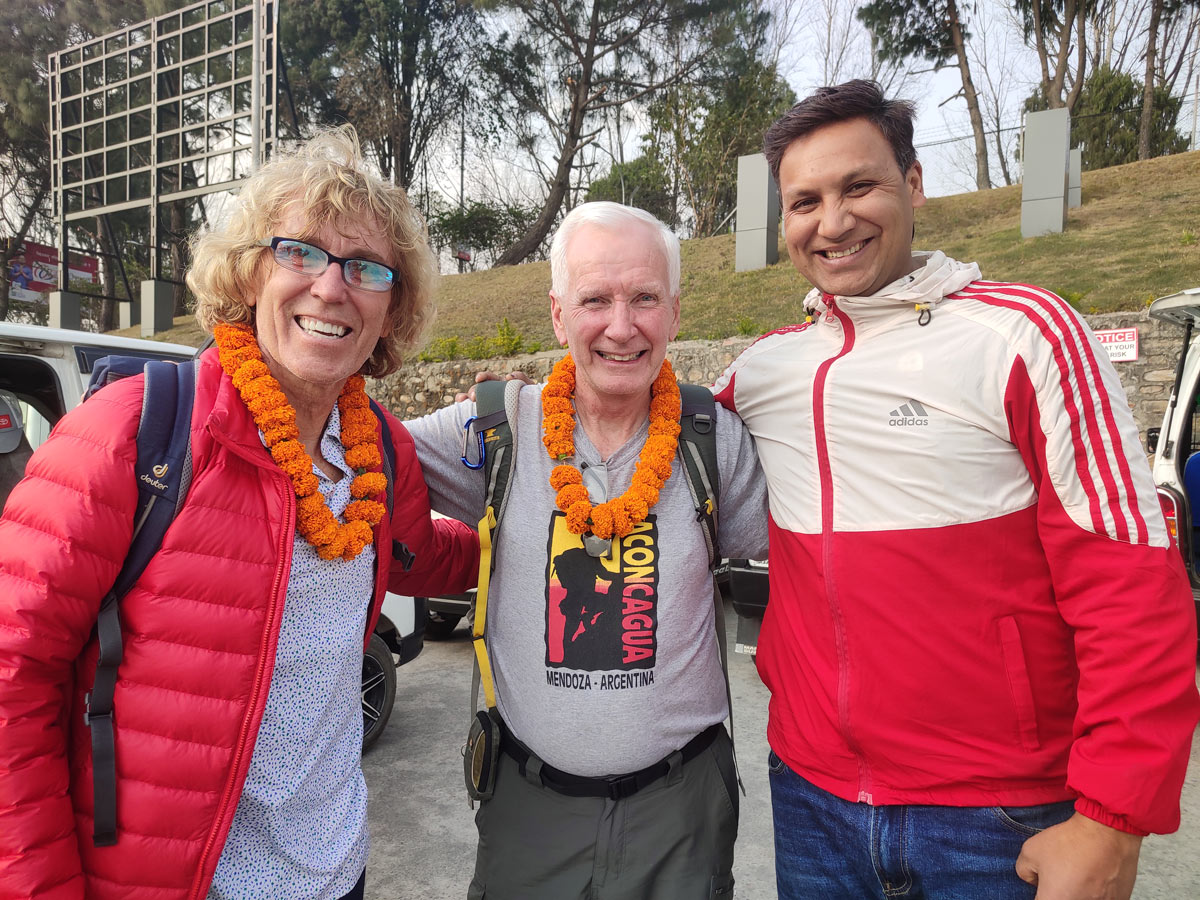
Note : Pre-trip meeting will be done at the office if you arrive before 4 pm and in your hotel itself if you arrive later in the evening. Be sure to bring two copies of passport-sized photos and a readable copy of your travel insurance policy to the meeting.
These documents help to acquire trekking permits and related documentation during the trek. Pay the remaining balance of your invoice and sign in the legally binding trip form and non-liability disclaimer.
Day 02: Fly to Lukla from Kathmandu or drive to Manthali/Ramechhap & flight to Lukla and then trek to Phakding
Manthali to Lukla Flight (March, April, May, October, and November) During peak seasons, such as March, April, May, October, and November, the flight to Lukla will be operated from Ramechhap/Manthali due to air traffic expansion. The Manthali/Ramechhap airport is about a 5 to 6 hours drive away from Kathmandu. On this day we wake up at 1:30 to 2:30 am and take an escorted shuttle to Manthali airport on a shared tourist vehicle and board a 20-minute flight to Lukla.
Kathmandu to Lukla Flight (January, February, June, July, August, September, and December) The flight to Lukla is typically operated from Kathmandu during nonpeak seasons, which include January, February, June, July, August, September, and December . Please be aware that the decision regarding the operation of flights solely depends on the airline and is influenced by the volume of travelers during a specific month. On this day we wake up at 5 to 6 am. Our staff will escort you to the domestic airport terminal in Kathmandu and board a 35-minute flight to Lukla.
Helicopter Option
You have the option to book a direct helicopter flight from Kathmandu to Lukla for an extra charge of USD 550 per person. This price is quoted on a 5-people sharing basis. This is the best alternative to avoid the long drive to Manthali airport during peak season (March, April, May, October, and November).
Prepare your luggage for the trek the day before the flight. You will be arriving at the Tenzing Hillary Airport early in the morning. Breakfast in Lukla. Porters will meet the group in Lukla and are assigned to carry luggage. For every two clients, one porter is assigned.
Today we trek to Phakding. The trail is straightforward. We head out of Lukla and follow the Dudh Koshi River downhill. The route connects to the Namche Bazaar trail, just above Chaurikharka (2,713 m/8,900 ft). Continuing, we come across the small village of Ghat. After a brisk hike, we arrive at Phakding.
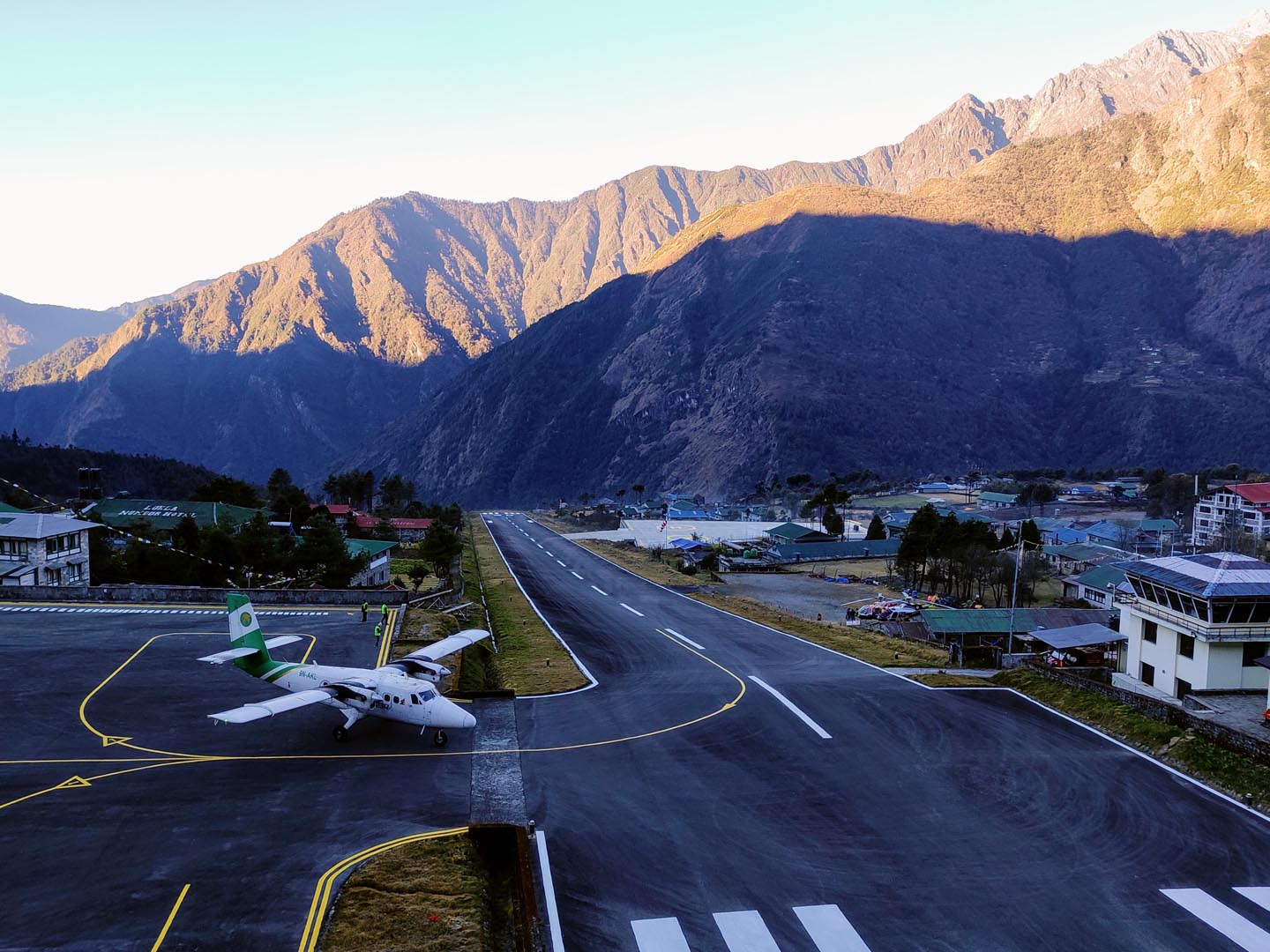
Day 03: Trek to Namche Bazaar from Phakding
After breakfast, we follow the trail alongside the Dudh Koshi River while crossing suspension bridges along the way. After hiking for a while, we come upon Sagarmatha National Park and go through entry permit verification in the Everest region.
As the trek advances, we ascend a steep climb with astonishing perspectives of majestic Himalayas, splashing glacial rivers, multi-colored prayer flags, and sacred mani stones. We arrive in the charming Sherpa town of Namche Bazaar in the early evening.
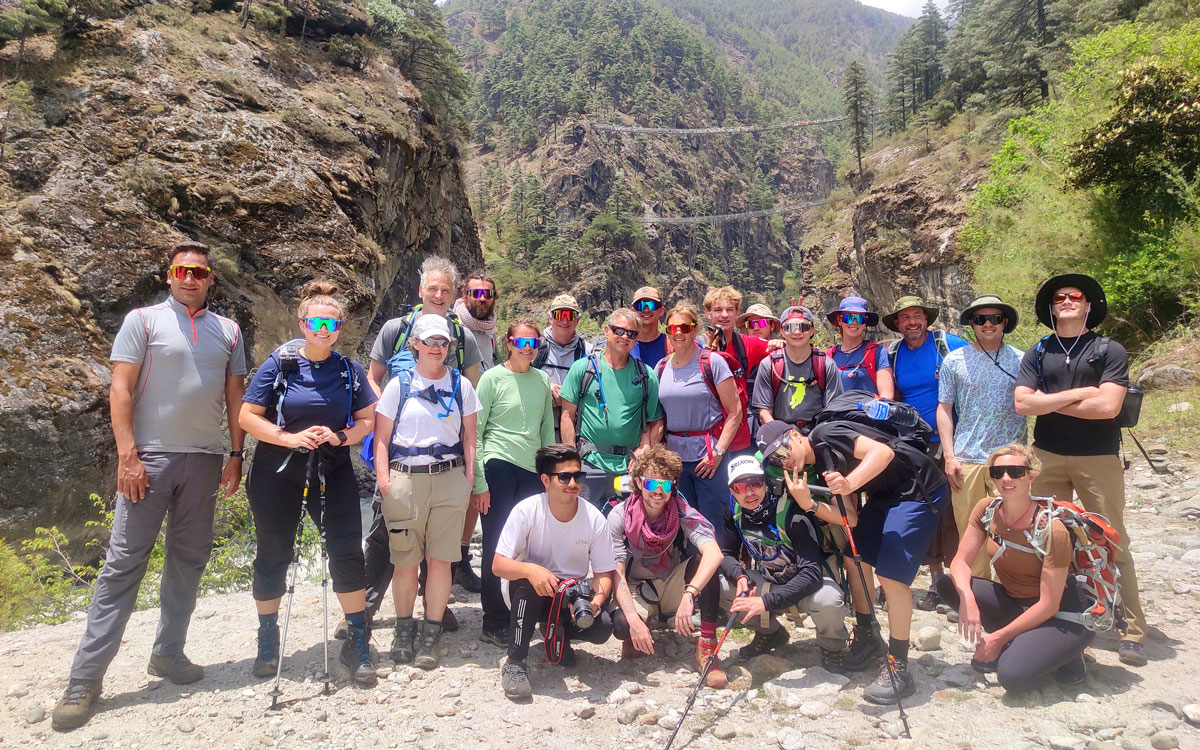
Day 04: Acclimatization Day at Namche. Hike to Hotel Everest View and back
Trekking at higher elevations can lead to altitude sickness and other severe illnesses. That is why it is a must to acclimate to the increasing elevation. The initial acclimatization day on this trek is scheduled in Namche Bazaar.
Namche Bazaar the main trading center in the Everest Region run by the Sherpa people. Here you can purchase various things such as trekking equipment, and local handicrafts, as well as find accommodations like hotels and guesthouses.
On this day, we acclimate at Namche Bazaar by hiking nearby destinations. We make our way to Sherpa Cultural Museum and discover the history and culture of the Sherpa community.
Afterward, we hike up to Syangboche Airport (the highest airport in Nepal) and Hotel Everest View (the highest hotel on the planet), one of the best viewpoints in the Everest region . Gorgeous vistas of Everest, Ama Dablam, Lhotse, Nuptse, and other peaks can be seen from here.
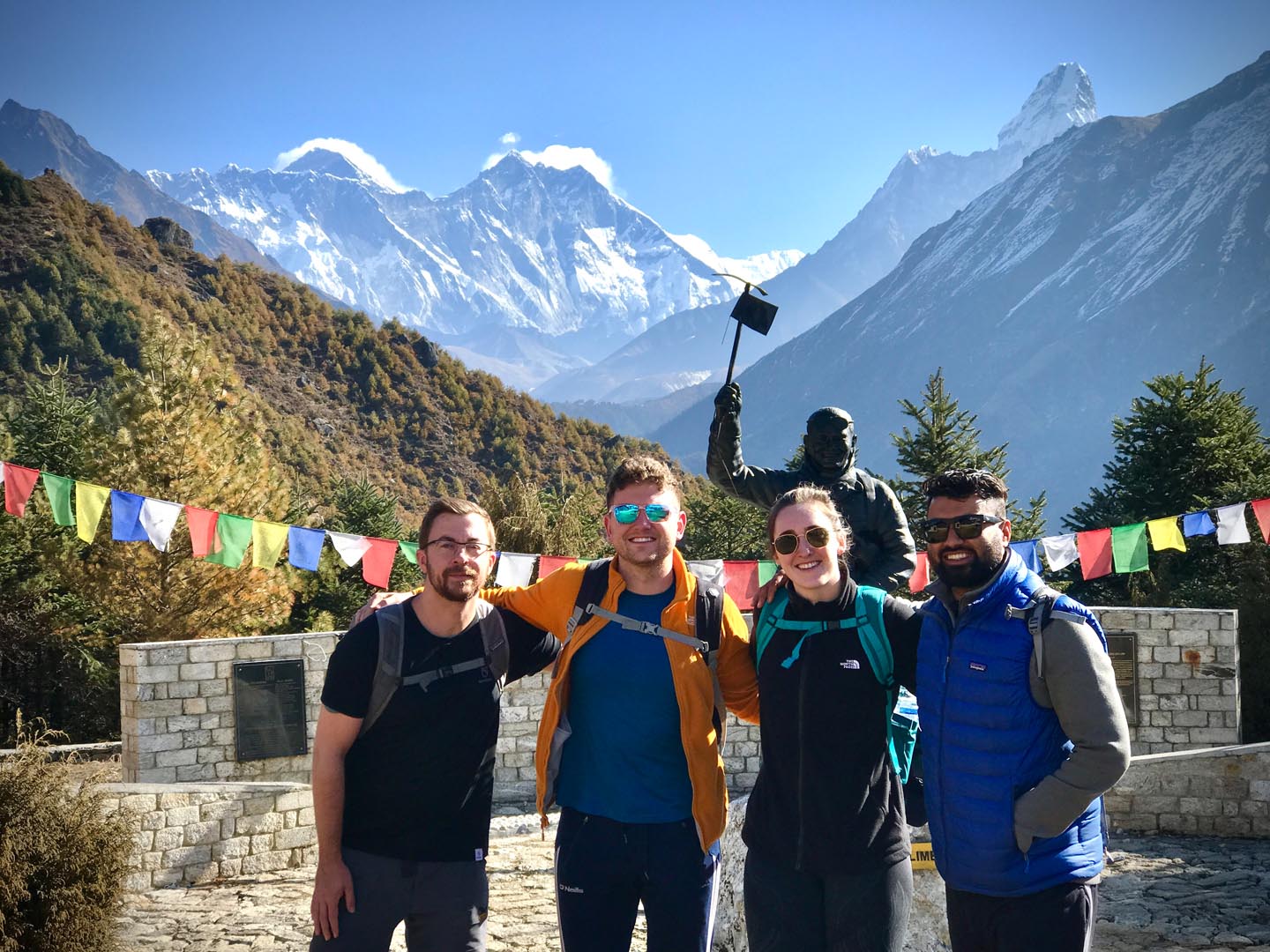
Day 05 : Trek to Tengboche from Namche Bazaar
The trail to Tengboche is rocky. The route descends early in the day and then climbs up to Tengboche.
Begin the trek advancing along the Dudh Koshi River. Witness the enchanting sight of the mountains along the way. Advance to Phungi Thenga, passing through lovely rhododendron forest.
On moving further, you arrive at Tengboche with an astonishing view of Mt. Everest, Ama Dablam, Lhotse and Nuptse. The stunning views of lush rhododendron forest, glacier, rivers, and monasteries along the EBC trail is rewarding.
After arriving in Tengboche, we visit the Tengboche Monastery and observe Lamas performing a prayer ceremony either in the morning or evening.
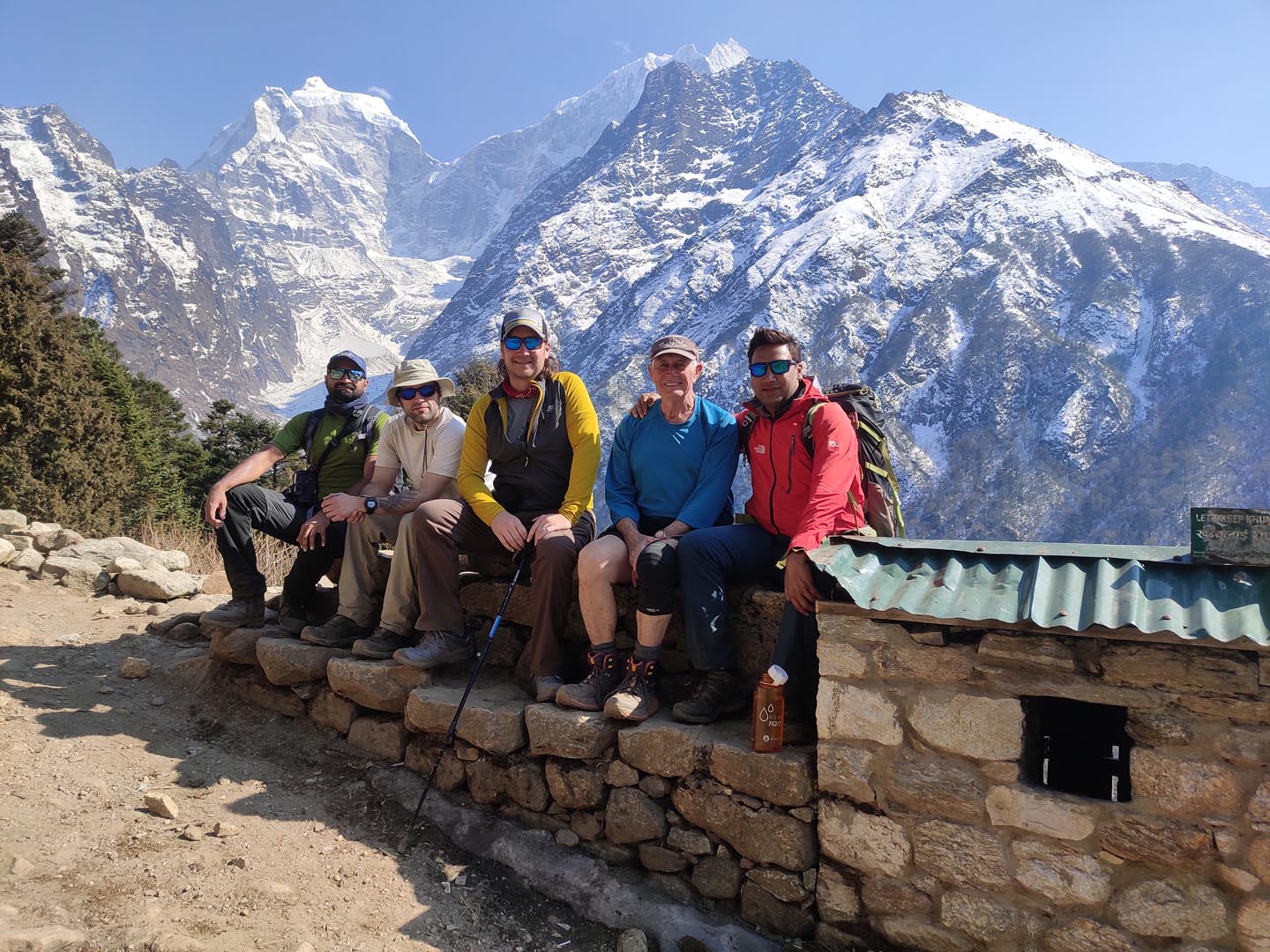
Day 06: Trek to Dingboche from Tengboche
After spending a night in Tengboche, we head for Dingboche in the morning. The trek moves on to Deboche through the alpine forest, and we cross Imja Khola via a suspension bridge. On the way, we come across a wall inscribed with stones.
Later in the day, you will be rewarded with a captivating view of Ama Dablam. After we ascend to the village of Pangboche and follow the trail leading to Imja Valley. At long last, we reach Dingboche village after making an ascent.
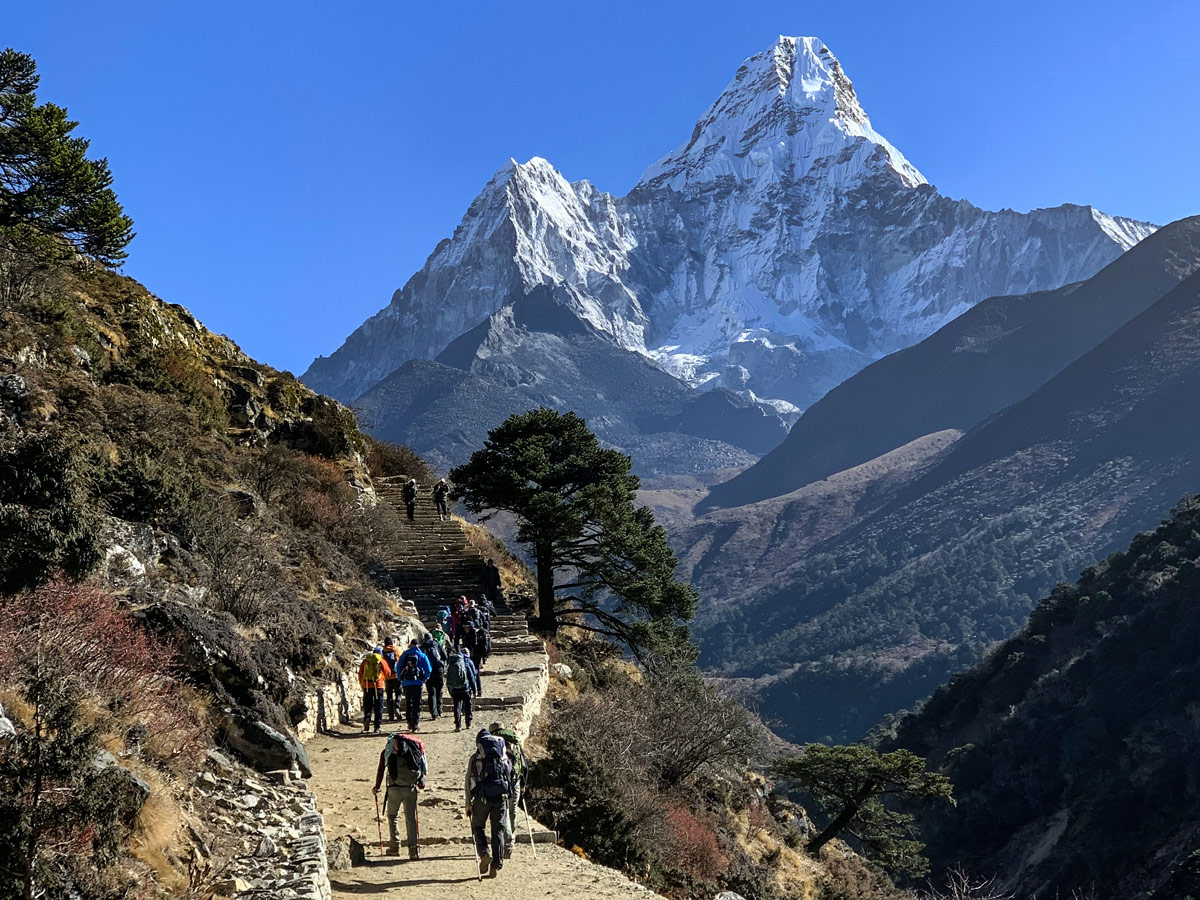
Day 07: Acclimatization Day. Hike to Nangkartsang Peak and back
After acclimating for the first time at Namche, we will have a rest day today. Adapting to the increasing altitude and changing environment is essential for the human body to prevent altitude sickness .
Today we acclimate by making a hike to Nangkartsang peak . The view of Ama Dablam from the peak is awe-inspiring. After the acclimatization hike, you can explore the village or relax in the teahouse.
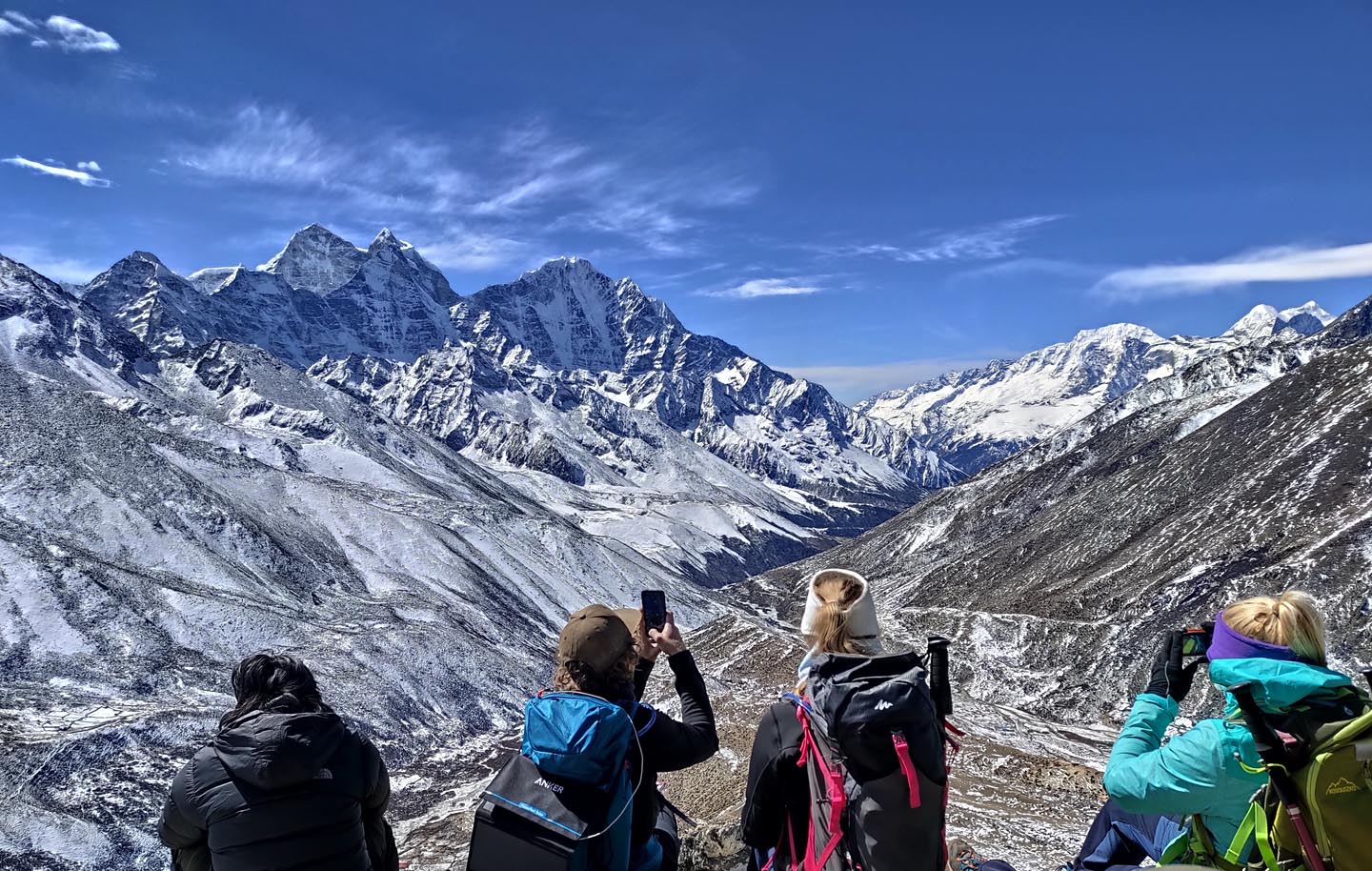
Day 08: Trek to Lobuche from Dingboche
On this day, we leave for Lobuche by hiking a gentle climb to Thukla. From this point, you’ll be stunned by the splendid sight of Taboche and Cholatse. Continuing, we pass through the lateral moraine of the Khumbu Glacier and stone memorials at Thukla Pass .
These stone memorials are constructed in the memory of the departed souls of climbers, adorned by colorful prayer flags. After a brisk hike, we arrive in Lobuche village. The massive mountain vistas of Nuptse, Lobuche, and Pumori can be seen from the village.
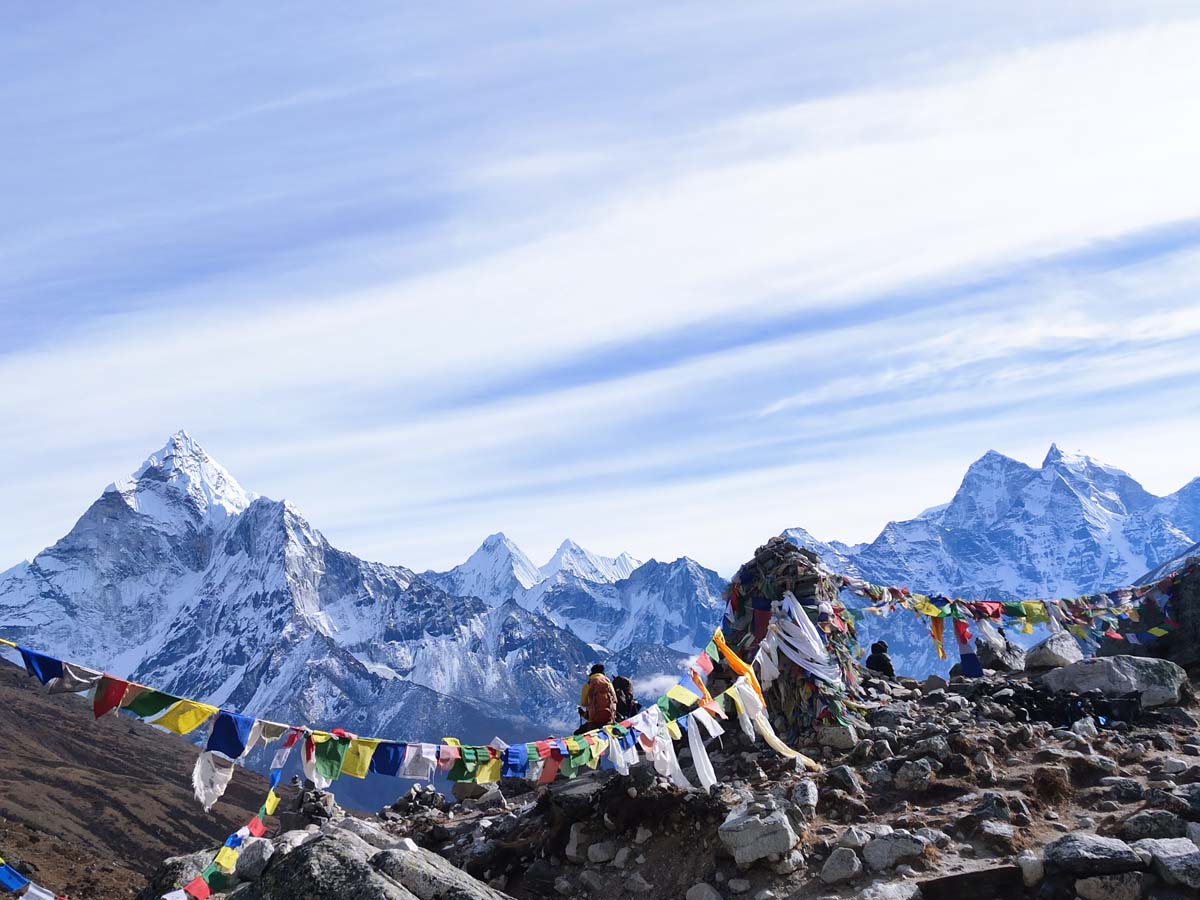
Day 09: Trek to Everest Base Camp and then back to Gorak Shep
Today there are two sections of the EBC trek. First, the trail follows the route to Gorak Shep and then to Mount Everest Base Camp.
After having breakfast, we leave Lobuche, hiking along the Khumbu glacier while enjoying the magnificent view of Mt. Nuptse. Soon we reach the village of Gorak Shep.
From this point, we continue our trek all the way to Everest Base Camp. The trail ahead is challenging as it is rugged terrain. The captivating view of Khumbu Glacier and Khumbu Icefall is visible along the way.
Once we reach base camp, you will be rewarded with a panoramic view of Mt. Everest, Nuptse, Pumori, Khumbutse, and surrounding peaks. It’s a great feeling to be present at the base of the world’s highest mountain.
In addition, we may encounter expedition teams and climbers during peak seasons. We then retrace the path back to Gorak Shep.
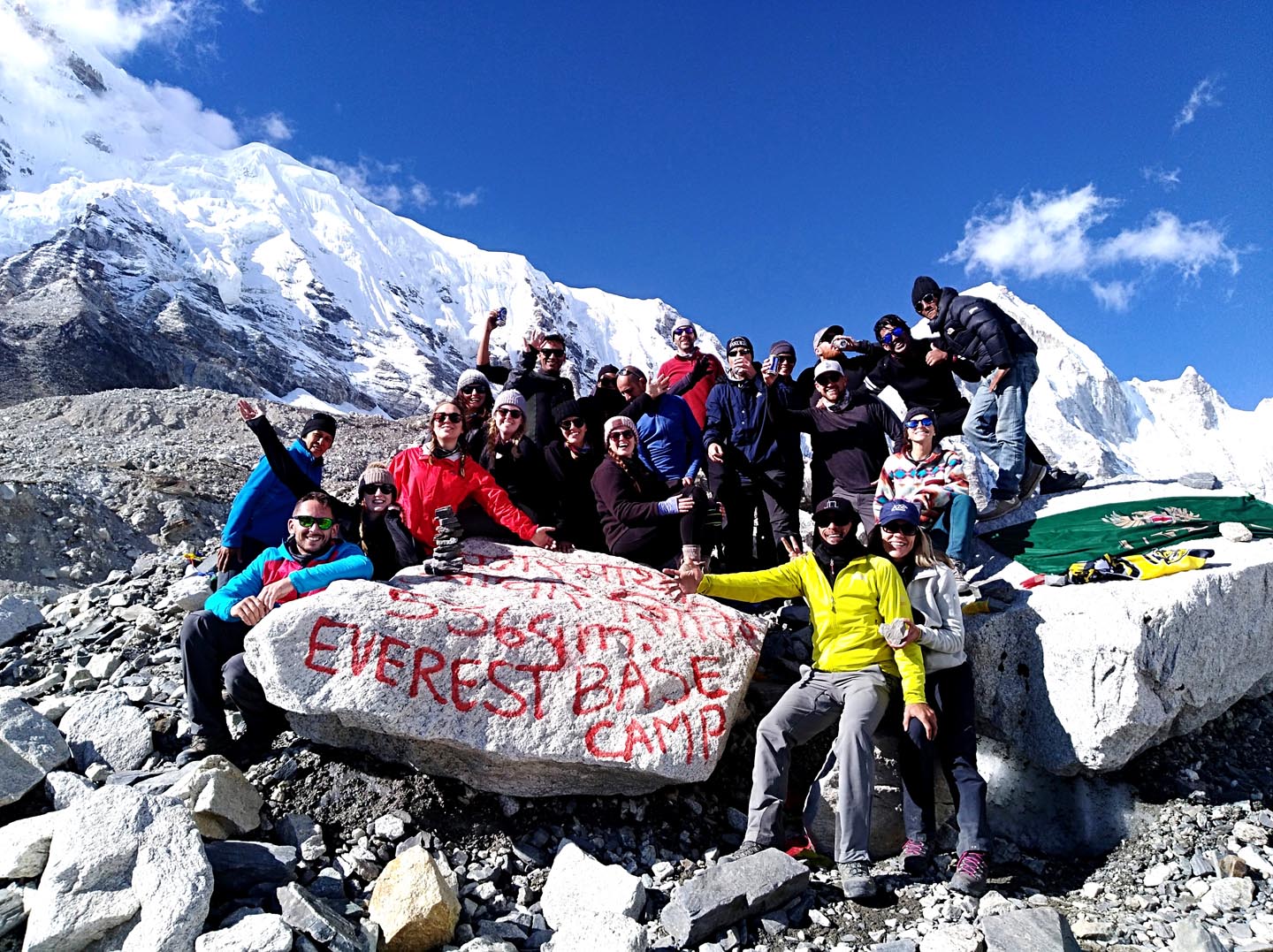
Day 10: Morning Hike to Kala Patthar and then, Descend to Pheriche
Today we hike to the highest point of the Everest Base Camp Trek, Kala Patthar. The hike begins very early in the morning with a breathtaking sunrise view over the giant mountains.
Kala Patthar is an excellent vantage point for the incredible view of Lhotse, Nuptse, Pumori, and Mount Everest.
Embrace every moment of joy and sensational feelings you experience while in Mount Everest’s lap. After enjoying quality time, we make our way down to Gorak Shep and resume our EBC trek following the route down to Pheriche village.
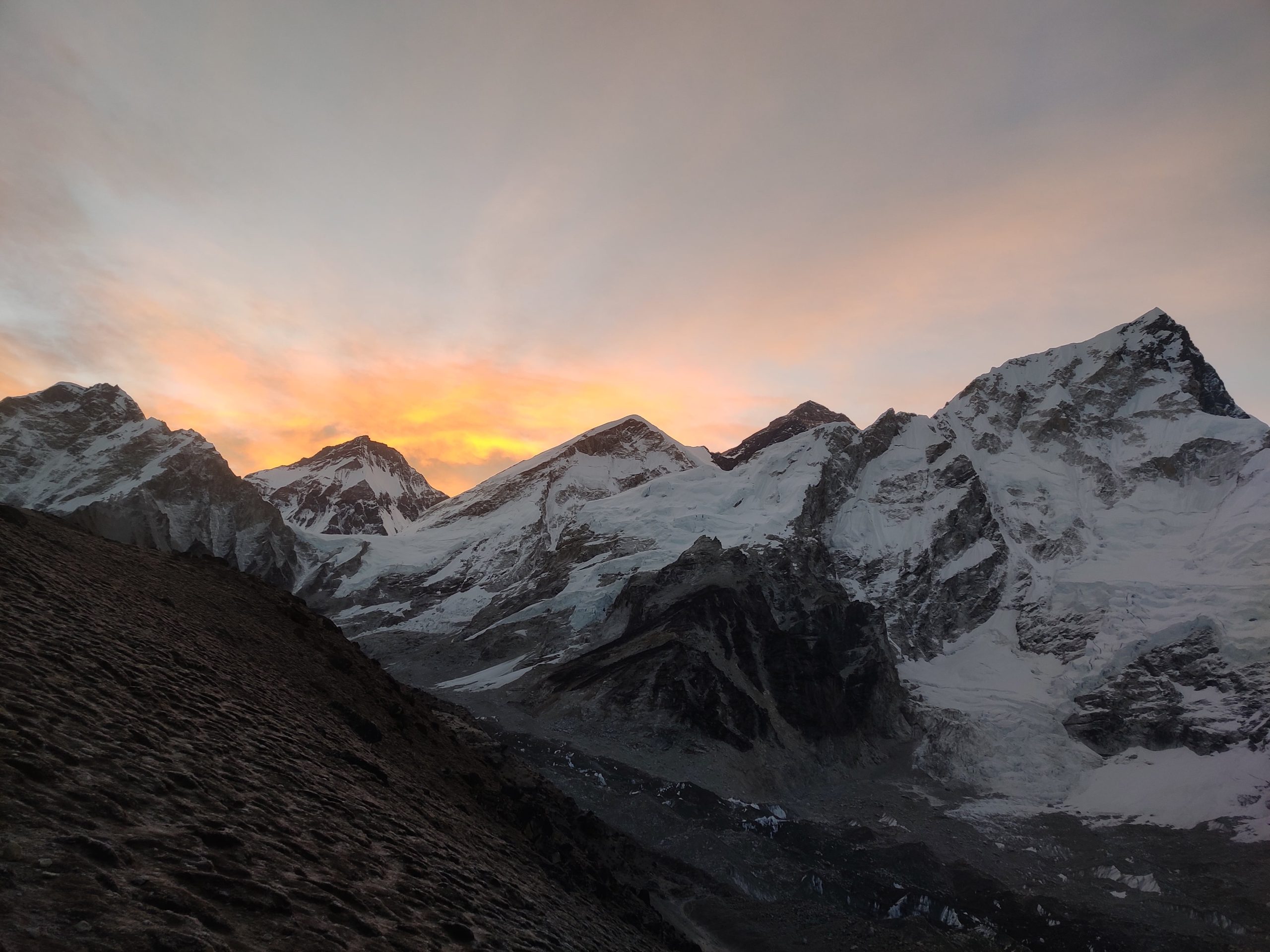
Day 11: Trek to Namche Bazaar from Pheriche
After a hearty breakfast, we move down to Namche, hiking along the trail we had taken earlier. As the trek progresses, we come across Pangboche village, following Tengboche village.
We cross a suspension bridge and enter the forest trail hiking until we arrive in Namche Bazaar.
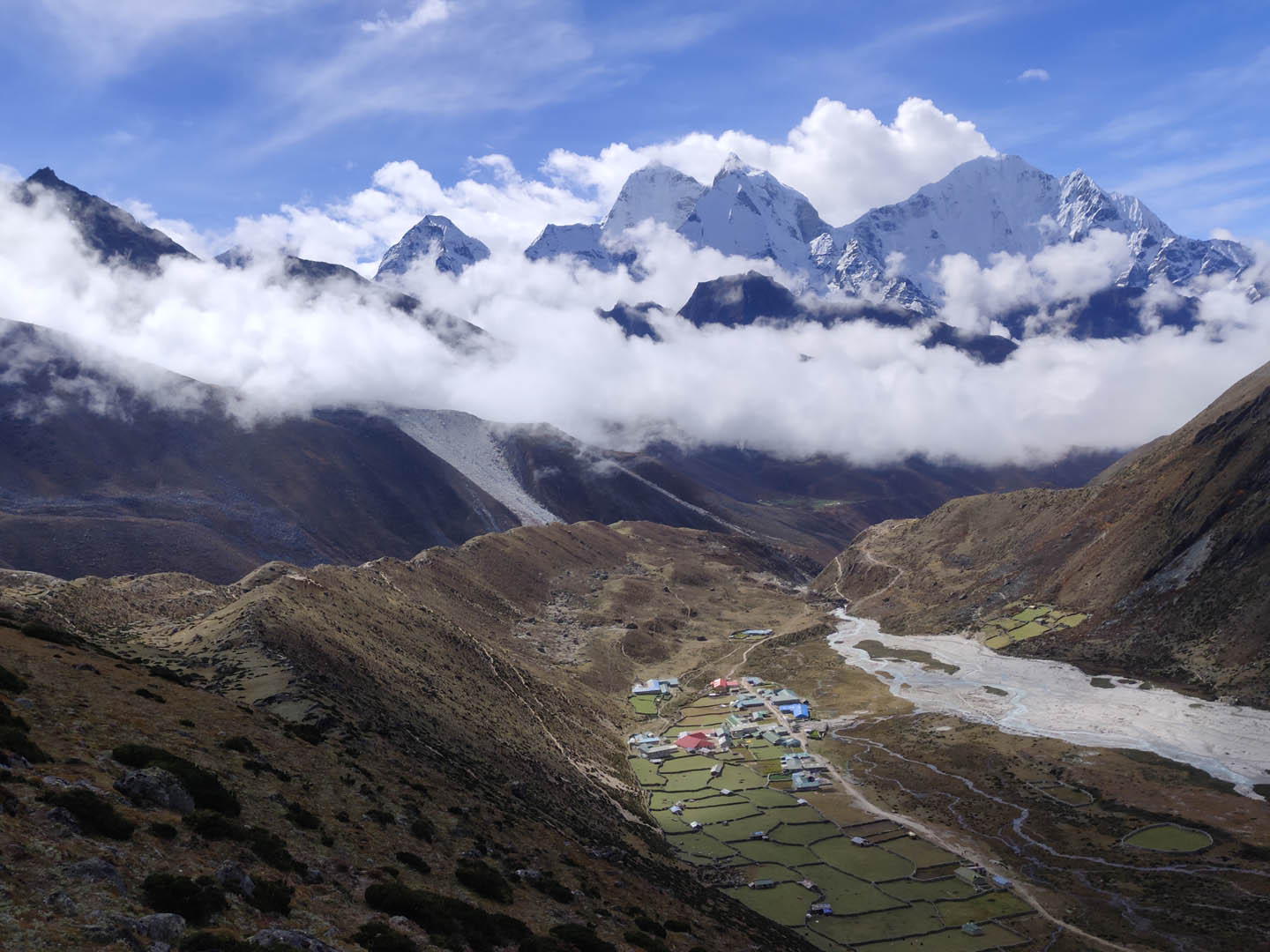
Day 12: Trek to Lukla from Namche Bazaar
The adventure of hiking Everest Base Camp ends today once we reach Lukla. We leave Namche Bazaar for Lukla after breakfast. Since this is your last day in the Everest region, take a walk around the village.
Enjoy and celebrate the lifelong moments made along trails of the region.
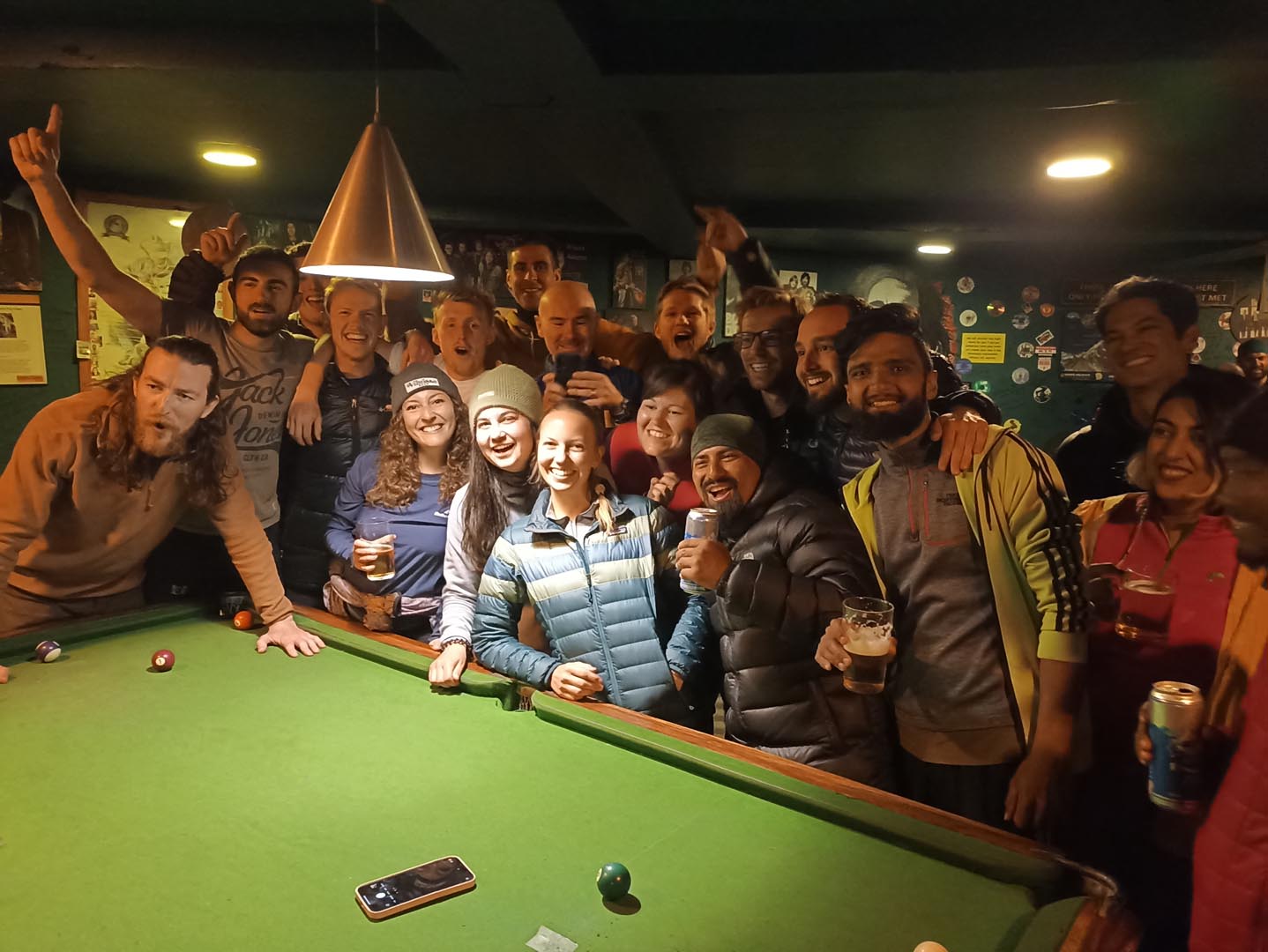
Day 13: Flight back to Kathmandu or Manthali/Ramechhap from Lukla and same day drive to Kathmandu
Lukla to Manthali Flight (March, April, May, October, and November) The flight from Lukla to Manthali is a 20-minute flight. After that, it is about a 5 to 6 hour drive to Kathmandu. Please note that the driving hours may vary according to the highway traffic condition. You’ll be transferred to the hotel in Kathmandu on a shared tourist vehicle.
Lukla to Kathmandu Flight (January, February, June, July, August, September, and December) The flight from Lukla takes about 35 minutes. After arriving at the airport, you will be transferred to the hotel in Kathmandu via a shared tourist vehicle. Please be aware that the decision regarding the operation of flights solely depends on the airline and is influenced by the volume of travelers during a specific month.
You have the option to book a direct helicopter flight from Lukla to Kathmandu for an extra charge of USD 550 per person. This price is quoted on a 5-people sharing basis. This is the best alternative to avoid the long drive to from Manthali airport to Kathmandu during peak season (March, April, May, October and November).
If you would like to spend more time in Nepal, we offer trips to popular destinations in Nepal. Pokhara tour, Chitwan National Park, Kathmandu Cultural Heritage Tours, etc., are some of our popular Nepal trips. In addition, we also provide outbound tours to Tibet, India, and Bhutan.
You will be served a farewell dinner in a fine restaurant.
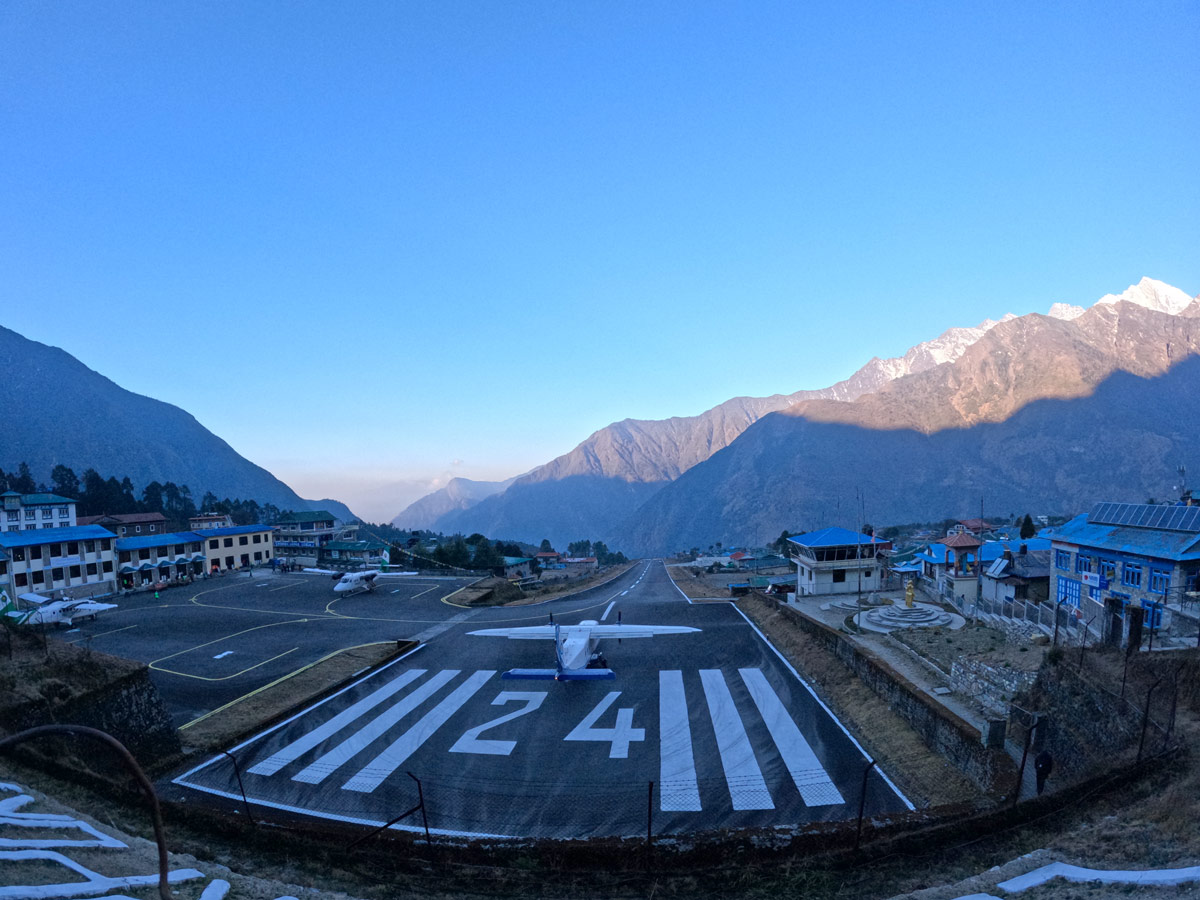
Day 14: Transfer to the International Airport for your Final Departure
It’s the end of our exciting journey in the Everest region! Today we conclude our 14 days Everest Base Camp Trekking. One of our airport representatives will accompany you to the International Airport for your flight back home.
We bid you farewell, and hoping you’ll travel to Nepal again.
Packing List for Everest Base Camp Trek
Here is a list of what you might want to pack for the Everest base camp hike. Please take this as a starting point. You’ll need layers of warmer clothing during the winter.
We provide a 75 liter duffel bag for you to use for the trek. It will be given to you during your pre-trip meeting in Kathmandu. The duffle bag is yours to keep. Also, you can rent sleeping bag and down jacket with us at the additional fee of USD 35 for each once you are in Kathmandu.
- Four-season (zero degree) sleeping bag (We have rental sleeping bags available for an additional USD 35)
- Sleeping bag liner
- Puffy down jacket ( We have rental jackets available for an additional USD 35)
- Daypack (35-45 liters recommended) with rain cover
- Sun hat or cap (We'll provide you with a free Ace the Himalaya baseball cap.)
- Knitted hat/Beanie
- Scarf/Neck Gaiter/Buff (highly recommended)
- Technical fabric base layer (light for warmer months, heavy for colder months)
- Technical fabric short (2) and long sleeve (2) shirts
- Waterproof, windproof shell
- Fleece jacket or pullover
- Hiking pants (2)
- Comfortable pants for inside the teahouses
- Hiking shorts
- Wool or technical fabric liner gloves
- Hard-shell outer gloves (insulated for colder months)
- Wool or technical fabric warm socks
- Hiking socks
- Liner socks (optional such as silk)
- Trekking/hiking boots (waterproof recommended)
- Ice Cleats /Micro Spikes (For trekking from November to March, it's recommended to include Ice Cleats/ Micro Spikes to prevent slipping on icy or wet surfaces.)
- Casual shoes
- Gaiters (lightweight for dust or heavy for snow in colder months)
Undergarments
Note: The quantity of each article of clothing can be adjusted to suit the preferences of each participant.
- Technical fabric/quick drying is best for underwear (opportunities to launder during the trip)
- Sports bras (women)
- Pajamas or sleeping clothes
First Aid Kits and Medications
- ( Note : Guides carry medications and first aid kits during the trip. However, personal kits and medications are highly recommended.)
- Cough Syrup (recommend for Khumbu Cough)
- Mosquito repellent cream (for Kathmandu and Phakding)
Other Essentials
- Extra copies of passport-sized photos
- Reusable water bottle
- Toiletry kits
- Water purification tablets or UV water purifier (if you plan to treat water)
- Hydration bladder
- Toilet paper (2 rolls)
- High protein snacks (such as protein bars or nuts)
- Waterproof/dry bags for carrying important documents and money
- Airline tickets (Please leave a copy at our office in Kathmandu. This can be useful if there is a change in the date of the flight.)
Once you are in Nepal, you have the option to purchase supplies and gear for hiking if you have spare time. Our guide will assist you in buying the equipment. Thamel, which is Kathmandu’s tourist hub, offers a wide range of trekking equipment at affordable prices.
- Power bank or extra batteries
- Cameras and mobile phone
- Pee bottle/ pee funnel for women
- Trekking poles
- Thermos for hot water
- We give you a free duffel bag and baseball cap during your pre-trip meeting in Kathmandu. The duffel bag will be used to pack your trekking supplies.
- For every two participants, we assign one porter. The duffel bag, which should weigh around 10 kg/22 lbs, will be carried by the porter throughout the walk.
- To carry your daily necessities like cash, crucial papers, a water bottle or bladder, a camera, toiletries, sunscreen, a notebook, clothing, etc., you must have your own daypack (with a waterproof cover).
- You can store your luggage (non- trekking items) at the hotel in Kathmandu.
- Total luggage allotment allowance for the Kathmandu-Lukla flight is 15 Kg/33 lbs including both duffel (10 Kg/22 lbs.) and backpack (5 Kg/11 lbs.)
- Down jacket with a hood is a must for altitudes above 4,000 m to keep warm. You can rent a down jacket for USD 35. Please note that in case of loss or damage, you need to reimburse the cost of USD 200 per item.
- You can rent a 4-season sleeping bag for USD 35. Please note that in case of loss or damage, you need to reimburse the cost of USD 200 per item.
Note: Some clothing, especially form-fitting, figure-hugging items made of elastic material (like yoga pants), may offend locals. Therefore, if you choose to wear these clothes for comfort, please make sure to wear something over them.
Everest Base Camp Trek Map & Elevation
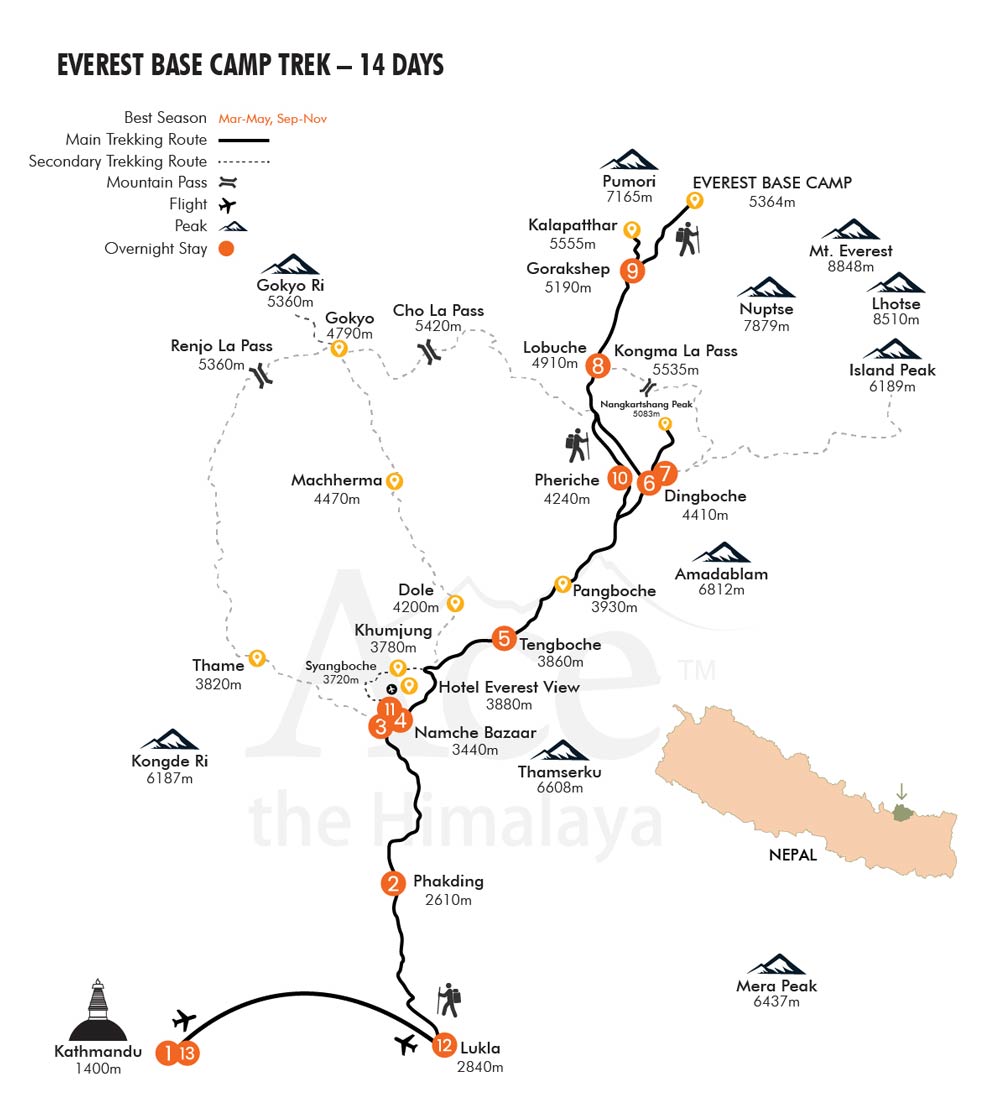
EBC Trek Video
FAQs for Everest Base Camp Trek
Why trek with ace the himalaya.
Ace the Himalaya is proudly recognized as one of the best trekking companies in Nepal. We have a reputation for successfully leading treks with knowledgeable leaders and staff taking care of all your travel needs.
We are a certified sustainable travel company that also endorses the idea of giving back to the community by participating in various philanthropic activities. Here are 17 reasons why you should choose Ace the Himalaya for your next adventure!
Is Nepal open to travelers following the Covid-19 pandemic?
Indeed, Nepal is entirely open. Travelers are welcome in Nepal without any restrictions. Arriving travelers can obtain a visa on arrival at the Kathmandu airport as well.
What are the conditions to travel to Nepal post Covid-19?
Traveling to Nepal is now hassle-free. You don’t need a vaccination certificate or negative PCR test, but check with your airlines and transit countries for any specific requirements.
We suggest you look at the Nepal immigration site https://www.immigration.gov.np for the most up-to-date information.
What additional documents do I need?
- Two passport-sized photos (2×2 inch) to give to our office staff
- A copy of your international flight ticket to give to our office staff
- A copy of travel insurance to give to our office staff
What should I know about booking my flights to/from Nepal? Do I need to plan extra days in case of delays?
The best course of action is to add a day or two before and after your intended trek days in case of flight delays or cancellations. It also gives you time to buy clothing equipment and gear required before your trip.
Please be aware that Ace the Himalaya is not responsible for any inconveniences or missed international flights resulting from unforeseen events like airport changes, flight delays or cancellations, etc.
Is hiring a guide necessary even if I have trekking experience?
You can hike to Everest Base Camp without a guide. A guide is there to assist you in going forward and making alternative plans and arrangements when unanticipated occurrences happen or when things get difficult.
Our hiking leaders are qualified experts. When talking about their trip, our guests frequently remark on how much fun they had and how crucial their guide was to make it successful.
Can the guide speak English?
Our guides are fluent in English. All the guides that we assign speak and understand English. They’ll share with you the fascinating stories, traditions, and folklore of the mountains. The guides will also help you communicate with the locals since many shopkeepers and hosts of teahouses don’t speak English.
Everest Base Camp Weather and Temperature
What is the best time to trek everest base camp.
The best time to trek to Everest base camp are autumn (Mid-September to November) and spring (March to early June). This trek is possible year-round, and we can organize it when it suits your schedule.
However, we generally suggest doing this trek in the favorable seasons and keep away from rainstorm season (July and August). In cold months of January and February, the temperature can be a little harsh in the mountains.
However, some prefer to travel during these months as it is less crowded given that you are well prepared with appropriate winter wear and other gears.
What kind of weather and temperature can I expect while trekking?
Due to its tendency to be localized, the weather in the Everest region is challenging to forecast. You could see rain, fog, cold, or hot and sunny weather while trekking. It is best to be equipped to handle various weather situations. In the Everest region, nighttime temperatures are significantly lower than midday temperatures. In less than a day, the temperature can change from a high of 25°C (77°F) to a low of – 20°C (-4°F). The weather and temperature ranges are typically predictable based on the month and season, even though it might be challenging to predict what each day in the mountains will bring.
Spring – March/April/May/June
Despite being the busiest season, spring is perhaps the best time to visit the Everest region. Activities assisting the expedition teams take place in Everest Base Camp. The many varieties of blossoming trees should be visible, and the sky should be clear with stunning vistas. During springtime, the average temperature is 20°C (68°F), with a high of 25°C (77°F) during clear days and a low of – 15°C (5°F) overnight above 4000 meters.
Monsoon season – July/August through Mid-September
Since it rains heavily at elevations below 3500 meters, this season isn’t exactly ideal for travel in the Everest region. While it can occasionally be dry in areas above 4000 meters, it frequently rains so therefore not many people travel during this season. Trekking during the monsoon season has some advantages, such as a greater possibility of seeing waterfalls and the best opportunity to escape crowds. During the monsoon, the average temperature is 22°C (71.6°F), with a high of 30°C (86°F) during clear days and a low of- 5°C (23°F) overnight above 4000 meters.
Autumn – End of September/October/November
In the Everest region, autumn is equally as busy as spring. It is one of the best times to go, too. While the plants and trees are not in bloom, the sky is often clear, offering breathtaking vistas from almost every viewpoint. The average temperature in autumn is 17°C (62.6°F), with a high of 20°C (68°F) during clear days and a low of – 15°C (5°F) overnight above 4000 meters.
Winter – December/January/February
Due to fewer tourists, some people like winter travel. Even while the views are still beautiful, it can be cloudy, thus adding extra days is highly advised during this time. The average temperature is 10°C (50°F), with a high of 17°C (62.6°F) during clear days and a low of – 20°C (- 4°F) overnight above 4000 meters. The teahouses provide extra blankets for warmth at night.
What is the temperature rating of the sleeping bag that you lend to trekkers?
The temperature rating of the sleeping bags that we rent to trekkers is about -10°C (14°F). Also, our guides can obtain extra blankets if needed at the teahouses.
Can we hike to Kala Patthar first and then to Mount Everest Base Camp?
Yes, it’s possible to hike to Kala Patthar before reaching Everest Base Camp to witness stunning sunsets. However, due to unpredictable mountain evening weather, the safer approach is to trek to Everest Base Camp first and then ascend to Kala Patthar early the following morning.
Arrival and Visas
Is it possible to obtain a visa for nepal upon arrival at the airport.
Yes, you can obtain a Nepal visa upon your arrival at the airport. There are kiosks in the arrival hall that you use to complete the necessary forms. The cost is USD 30 for a 15-day tourist visa, including numerous entries, or USD 50 and USD 125 for a 30-day or 90-day tourist visa including numerous entries respectively. You should carry cash (USD) with you to pay your visa fees quickly and easily, as digital payments are frequently unavailable.
To save time, we recommend filling out the online visa application form in advance. Applying online 2 weeks before your arrival will expedite the process at the airport. For detailed guidelines, please refer to our blog titled Guidelines for Online Tourist Visa Form in Nepal .
Who will come to pick me up at the airport upon my arrival?
Our staff will be waiting for you outside the airport terminal with our signboard (Ace the Himalaya). You will be accompanied to a hotel in a private tourist vehicle.
How long should I expect the visa process and baggage claim to take upon arrival at the airport?
The process of obtaining a visa and collecting your baggage at Tribhuvan International Airport generally takes about 1 to 1.5 hours. This duration can vary depending on factors such as the time of day, the number of arriving flights, and the passenger volume.
Can I buy a SIM card at the airport in Kathmandu?
Yes, SIM cards are available for purchase at the airport from local telecom providers such as Ncell and Nepal Telecom (NTC). We recommend choosing Ncell for its extensive coverage. The SIM card counters are open 24 hours, you can buy a SIM card in the arrivals area after collecting your baggage. Please ensure you bring a passport-sized photo and a copy of your passport for the purchase.
Where can I exchange money upon arrival in Nepal?
You can exchange currency at one of the money exchange counters in the arrivals area of Tribhuvan International Airport, which operate 24 hours a day. Alternatively, you can also exchange money at authorized exchange centers near your hotel, which are typically open during the day.
Everest Base Camp Trek Cost
How much additional money do i need per day.
Typically, USD 15 to 20 per person per day will be sufficient. This is to purchase water, tea/espresso, snacks, and hot showers in the mountains and for lunch or dinner in Kathmandu. Additionally, if you want to buy souvenirs or native Nepali goods, you can bring extra cash with you.
Can I use a credit card in Nepal?
Yes, you can use credit cards in Nepal, especially in major cities like Kathmandu and Pokhara. Visa, Mastercard, and American Express are widely accepted at most hotels, restaurants, and shops. However, please note that the use of a credit card may come with a fee to cover transaction charges.
Is it possible to use credit cards in the places I visit during the trek?
Nepalese Rupees cash is preferred to a credit card while trekking in the mountain region. Exchanging your cash into Nepali Rupees in Kathmandu before the beginning of the trek is ideal. This can be accomplished at the airport, at banks, or at your hotel. Please note the hotels will exchange up to about USD 100 for each transaction only. There are ATMs up to Namche Bazaar but can be unreliable. The currency exchange rate is better in Kathmandu.
Is it possible to reserve a trip now and pay a deposit later, or do I have to pay a deposit at booking/reservation?
When you book, you must pay a 30% deposit to secure your itinerary. The remaining balance can be paid upon your arrival at Kathmandu or before arrival. US Dollars cash and credit cards (Visa, Master, and American Express) are accepted once in Nepal. Please note a 4% transaction fee will be added for all credit card transactions.
How do I pay the remainder of my balance upon arrival in Kathmandu? US Dollars cash or credit card?
You can make payments via US Dollars cash or credit card (Visa, Master, and American Express). A 4% transaction fee is added if paying with a credit card. Thus, we encourage you to pay with USD cash if you are planning to pay upon your arrival in Kathmandu.
We prefer you pay with larger bills (USD 50 or 100). Please note that the cash should not be older than 2009 and in good condition, as banks do not accept worn, torn, or crumpled bills.
How are the ATM and money exchange facilities in Kathmandu?
There are ATM and money exchange facilities almost every few meters in Thamel, where you will be staying in Kathmandu. So, you can easily use your cards to cash out limited sum of money to which a minimum charge is deducted by the ATM facility itself. You can easily exchange your foreign currencies in currency exchange centers for an exact rate.
Who Can Trek?
Do i need prior trekking experience.
Previous trekking experience is not required if you are physically healthy and have enough enthusiasm for the trek.
Are there any age restrictions for joining Everest Base Camp Trek Packages?
Our treks have no age restrictions if members are healthy and willing. We warmly welcome trekkers of all ages to embark on this incredible adventure.
We have had families with kids as young as 5 years do the treks along this region, and our oldest adventurers have been in their late 70s.
For more information, check out our blog titled Everest Base Camp Trek with Kids .
Is trekking to mountain regions safe for solo female travelers?
It is safe for a female to trek alone in Nepal. Nepal is usually regarded as a safe nation for female visitors traveling alone. It is entirely safe for a solo woman to trek with Ace the Himalaya on any of our treks.
Physical Fitness
How difficult is the everest base camp trek .
The Everest Base Camp Trekking in Nepal is somewhat challenging due to the altitude and long duration of the trek. It is a strenuous journey that comprises walking 5 to 8 hours a day. If you’re curious about the specific challenges and preparation needed, check out our blog on Everest Base Camp Trek Difficulty for more insights.
How quickly do you walk on the trail?
The average walking speed for a reasonably fit person is 4 kilometers per hour. At higher elevations, it is highly recommended that you walk slowly to help with acclimatization.
What kind of physical training is necessary for trek preparation?
For Everest base camp trekking, you must prepare your body to walk over uneven, hilly landscapes while carrying a backpack. Walking at an incline, jogging, cycling, and going for long-distance hikes are all good ways to exercise.
You should work out for at least one hour four to five times a week for at least two months before trekking. For more comprehensive tips and detailed insights on how to prepare for this once-in-a-lifetime journey, check out our blog: How to prepare for Everest Base Camp trek .
What are the physical standards that I need for the trek?
Participants in good physical condition should be able to complete this trek. If you are not physically active, we advise starting an exercise regimen two months before the trek that includes at least an hour of walking at an incline, running, or biking four to five times a week.
Incorporating hiking into your workouts is ideal. It is advised to speak with a doctor before making travel arrangements if you have any health conditions that could affect your ability to complete the trek.
Trek Preparation and Packing
What is the weight limit for the lukla flight.
The weight limit for the Lukla flight is 15 kg (33 pounds), including your duffel bag and daypack. If your daypack weighs more than the allowed weight, you can pay an extra USD 2 to USD 5 per kilogram. Despite the extra pay, the baggage allowance is occasionally withheld. Therefore, we recommend you pack within the 15 kg weight limit.
What are the procedures after I make my deposit?
After making the deposit, one of our staff will email you for further information. We will require a copy of your passport photo page and your arrival/departure flight details. We will also provide you with additional trip information.
What sort of insurance do I need? How can I obtain a policy?
Travel insurance is mandatory for our hiking itineraries. We require your policy have medical evacuation coverage for the maximum elevation of your itinerary. Insurance may also cover additional costs in the event of a flight delay or cancellation caused by bad weather, medical costs, theft, loss, and damage to your items while traveling.
Travel insurance can be obtained online by one of several travel insurance companies. Please note that insurance obtained from an airline at the time of booking your flight may not cover medical evacuation coverage.
What are the necessary items that I should pack for this trek?
You can find the necessary items to pack for the trek on the Equipment Section of this trek. Gear and equipment can be bought or rented upon your arrival in Kathmandu. If you plan on buying or renting gear in Kathmandu, please allow extra time.
Do you provide sleeping bags or down jackets for rent?
Yes, we do provide sleeping bags or down jackets for rental costs of USD 35 each. Do let us know before initiating the trek and we shall provide items.
What are the weights of the sleeping bag and down jacket?
The sleeping bag weighs approximately 1.5 kg (3.3 lbs), while the down jacket weighs about 1.1 kg (2.4 lbs).
What type of bag will the porters carry?
We provide you with a free duffel bag of 70 to 80-liter capacity that our porters will carry. The maximum weight that porters can safely carry is 30kg, and each porter is assigned to two people.
What type of daypack should I bring?
We suggest a 30 to 40-liter capacity daypack. Wider straps and hip belts are recommended to assist you in carrying weight evenly and reduce pain.
What about my passport, medications, and belongings?
Bring copies of your passport, insurance papers, and other essential items in your carry-on during your flight. If you need to take medications daily, keep them in your daypack with your other essential possessions. You can store other non-trekking essentials in the office of Ace the Himalaya or at the hotel in Kathmandu.
EBC Trek Accommodation
What kind of lodging is available on this trip.
In Kathmandu, we use three-star hotels including breakfast. We use Hotel Thamel House, Gaju Suite Hotel, Hotel Jampa, or comparable-class lodging in Kathmandu. Teahouses with clean rooms are used during the trek. For further information see Teahouses in the Everest region trek
Is it possible to have private rooms while trekking in the Everest region or while in Kathmandu?
A private room in the teahouses and in Kathmandu can be guaranteed for an additional cost.
Do the rooms at the teahouse have a private attached toilet or do we have to use a common toilet?
Yes, we provide you with attached toilets in the teahouse in some places like Lukla, Phakding, and Namche only. You will have a shared toilet available in the teahouse for the rest of the places.
What happens if I end up staying an extra night/s in Kathmandu due to an unforeseen delay or cancelation?
The Everest Base Camp trek package includes 2 nights’ accommodation in Kathmandu.
In case of unforeseen circumstances such as flight cancellation, your health, or for any reason you decide to discontinue the trip and arrive early in Kathmandu then you will need extra accommodations in Kathmandu.
The cost of the teahouses in the mountains is not equivalent to the cost of a hotel in Kathmandu. In such cases, we will arrange your accommodations, but you will need to pay a supplemental charge.
Is it necessary to bring toilet paper for the trek?
You can buy toilet paper in the guesthouses during the trek, but it can be expensive, so we suggest you bring some with you. You also need to bring personal items such as towels, soap, hand sanitizers, and so on.
Are there restrooms along the trail?
There are toilet facilities in the teahouses/lodges during the trek. Trekkers can also find private areas along the trail for emergencies.
What sort of food can I expect in trekking?
Multiple food choices are available in the guesthouses. Options include daal bhat (rice and lentil), bread, eggs, potatoes, noodles, soup, pasta, and pastries. We suggest eating vegetarian during the trip.
You will find a great deal of garlic on the menu since it helps with acclimatization. Each meal includes one hot drink. Hot drinks include coffee, hot chocolate, tea, and hot lemon drinks. You can purchase an additional hot drink or sometimes soda at your own expense. You can also purchase candy or cookies (crisps) at your own expense.
Is the food in the mountains prepared to international standards in terms of safety?
Indeed, the guesthouses follow international guidelines while setting up the food and serve you clean, protected, and warm meals .
I'm a vegetarian. Is that a problem?
Most of the teahouses in the mountains offer vegetarian meals. So, being a vegetarian is not a problem. Vegetarian meals are preferable to avoid food poisoning and indigestion.
Is the water okay to drink? Do I need to bring purifying tablets or filters?
Natural spring water or tap water can be found along the trek and in guesthouses but must be treated. We use Katadyn filters to purify the natural water sources to make them safe to drink. This way, it is sustainable and pocket friendly as you need not buy bottled mineral water. You must carry a water bottle that can hold both hot and cold water and a hydration pack.
If the temperature drops too low for the Katadyn filter to function properly or if any technical issues occur, it is recommended to buy boiled water from the teahouse to ensure safe drinking water as an alternative.
Can we get hot or boiled drinking water? Does it cost extra?
Yes, teahouses do provide hot boiled water for an extra charge of USD 2 to 5 per liter. The cost varies and increases at higher altitudes.
Can I shower/bathe during the trek?
Yes, hot showers are available from Lukla up to Namche Bazaar for an additional cost. Some villages at higher elevation too might have shower availability. However, you can purchase a pail of warm water at higher elevations to bathe with.
It is not recommended to take showers above the village of Dingboche to avoid sickness. Depending on the location, it will cost an additional USD 5 to USD 8 for each shower during the trip.
Are there any laundry services available on EBC trek?
Some teahouses provide laundry services in the Everest region for an extra charge. However, it’s not guaranteed that your clothes will dry on the same day.
There is a possibility that you can wash your clothes yourself during acclimatization days in Namche and Dingboche. However, we recommend you pack enough clothes for your trek and do not rely on laundry services.
Can I charge my electronic equipment during the trek?
Yes, you can charge your equipment during the trek for an additional cost. The cost will vary but is around USD 1-5 per charge. Two pins (type C) and three pins (type D) adaptors are highly recommended. Bring these adaptors or purchase them while you are in Kathmandu.
Health and Safety
Do your guides have the trekking guide certificates from the hotel management and tourism center have they received first aid training for high altitudes.
We provide licensed trekking guides with fluent English. Our guides are certified by the Hotel Management and Tourism Center after receiving 45 days of training. Similarly, the guides receive high-altitude training from Kathmandu Environmental Education Project (KEEP).
What are safety measures in place? What safety equipment do your guides carry on the trek to deal with sickness/accidents?
Our guides are well trained and certified in first aid. Throughout the journey, our guides will evaluate your condition and your oxygen level using an oximeter. Our head office receives continuous updates on your condition and location through the guides. In places without a phone signal, your situation will be updated through a satellite phone during emergencies.
How do you allocate guides and porters in a group?
We allocate one guide for groups of up to 8 participants. For groups of over 8 participants, we allot an associate guide. As per the size of the group, we may add more guides or divide them into sub-groups.
We provide one porter for every two clients. Two clients’ duffel bags will be carried by one porter. The weight limit is 30kg or 15kg for each client. For an additional cost, we can arrange for one porter to carry one participant’s duffel.
Is Ace the Himalaya's staff insured?
Our company insures all our trekking staff members, including guides, cooks, Sherpa, and porters. Please browse through our legal docment page to view insurance details.
What vaccinations will I need?
While no vaccinations are strictly mandatory for travel to Nepal, it is highly advisable to take precautionary measures to protect your health. To ensure a safe and enjoyable trip, we recommend the following vaccinations: Routine Vaccines, Malaria, Japanese Encephalitis, Hepatitis A, Hepatitis B, Typhoid, Rabies, Cholera, etc.
It is also helpful if you inform us of any medical condition that is relevant so we may convey this information in the event of an emergency. Ace the Himalaya keeps your medical condition confidential unless treatment is necessary.
What if I am very sick in the mountain?
Our guides are 24 hours available for the services during the trek. They are trained to use first aid kit and have knowledge to use Oxy meter. They are very much aware that higher the altitude the oxygen level gets lesser so to get updated on the oxygen level of our client and to know whether they are fit enough or needs extra precautions to continue.
Guides carry local sim cards both Nepal Telecom and Ncell in order to update whereabouts and situation of our every client. During the time of emergency our guides are alert and keeps updated to head office in Kathmandu that is available 24 /7 to arranging from horse to mules or helicopters in the must needed cases especially when client is seriously sick in the mountain and needed to be hospitalized.
Do you guys have a PAC (Portable Altitude Chamber)?
Yes, we have access to a portable altitude chamber in case of an emergency. It is not essential to carry during the trek. Though, we can use arrange it upon request for an extra cost of USD 200.
Do you provide oxygen supply if needed?
Yes. Guesthouses at higher elevations such as Lobuche and Gorak Shep offer oxygen at an extra cost if needed. The cost of oxygen can be high so we recommend having travel insurance so they can reimburse you.
We can also provide pre-booked oxygen for an extra cost of USD 200 for 1 tank that can be carried along with you during the trek starting from Namche to higher elevations.
How are acclimatization and altitude related?
Altitude sickness is a possibility during the EBC trek. Air at higher elevations has less oxygen available. To avoid altitude sickness, acclimatization days and slow climbs are recommended at higher elevations. Along the trek, you’ll be assisted by our professional guides in recognizing and preventing altitude sickness.
What kind of trekking boot would be best for the trek?
An important piece of equipment is your trekking boots. Invest in a durable and comfortable pair, preferably with water-proof lining. Boots that provide ankle support on rough ground and have stiff soles are recommended.
What is necessary for sun protection during the trek?
Even when the sun isn’t shining, sun protection is essential. UV rays are reflected by the snow and the harshness of the sun will damage your skin before you notice it at high elevations. Therefore, proper clothing and sunblock are necessary. Hat, sunscreen, sunglasses, clothes, etc. are vital for sun protection.
Practical Matters
What is your cancellation policy.
Notice should be provided 20 days before the trip start date in case of cancellation. The trip can be canceled for justifiable reasons. Once the trip is canceled, a fee of 30% of the trip cost is retained for administrative costs.
However, the trip amount is entirely non-refundable if the cancellation is not made before the 20 days as per our terms and conditions. For submitting a claim to your insurance company after the cancellation, we can assist with documentation such as a receipt of monies paid. Refund will not be provided for unused accommodation in case of trip cancellation caused by personal reasons/sickness/weather.
More information about our cancellation policy can be found here in Terms and Conditions page.
Do I need to tip my guide and porter? How much would that be?
Tipping is both expected and appreciated, and it reflects your satisfaction and enjoyment of the trek. We recommend tipping based on the number of participants in your trekking group and the duration of the trek. As a general guideline, consider allocating at least 10% of your total trek cost for tipping. Detailed tipping recommendations for your guides and porters will be provided during our pre-trip briefing in Kathmandu.
Is there any communication while we are trekking?
Yes. The guides carry local cell phones, so you can use their cell phones if necessary and reimburse them. Assuming you have brought your cell phone, you can obtain a local SIM card and use it. Our guides or representatives can help you get a local SIM card after your arrival. There is the availability of Wi-Fi at most teahouses for an additional cost. We utilize satellite telephones for emergencies.
What is the Internet availability in the Everest region?
For internet usage, the Everest region has a network “Everest Link” which can be bought for around NPR 600-800(USD 5-7) for 6GB that can be used at one destination, or you can pay NPR 2500(USD 21) for 10GB data that can be used in the regions that have access to Everest link.
The purchase is valid for one device only. Some teahouses will have internet access and offer Wi-Fi hotspots for a charge. These are usually unreliable and not all teahouses will have connections, so it is recommended you purchase Everest Link or a 3G/4G SIM card to use for the duration of your trek.
Does it cost an extra amount if I am a solo traveler?
If you are a solo traveler and book one of our published dates, there is no additional fee. If you sign up for a private trip or change the trip date from one of our published trip dates, you will be charged an additional fee.
Is there a provision for a refund policy if I don't accomplish the trek?
Trekkers occasionally fail to complete the journey for medical or personal reasons. In this situation, be aware that we do not issue any refunds for products purchased or unused trek days. We must pay our administration staffs, guides, and porters, purchase trekking permits, and all other booked accommodations in advance, so our expenses remain the same.
Who else will be joining my trekking group?
If there are any, you will be allocated to a trekking group. The details of the personal data of your group members cannot be disclosed. However, feel free to contact us if you have queries about other trekkers in the group and we shall give you a general idea of the ages, nationality, and sex of your group members. Chances are you will be trekking with others unless you have booked a private trip.
What is your group size?
Our group size typically ranges from a minimum of 2 participants to a maximum of 14 participants. However, our average group size tends to be around 8 participants.
In addition to group treks, we also offer options for solo travelers and private group treks. If you’re interested in solo or private group treks, please don’t hesitate to contact us for more information.
Can I add extra days to my trekking trip?
You can extend your trekking trip for an additional cost. Potential arrangements will be made if we get a request from your guide. This is applicable for private or solo trips as the itinerary can be easily adjusted. The addition of extra days is bound by time when you are in a group. Therefore, discuss with your group and guide, what changes can possibly be made.
I want to extend my holiday, any recommendations?
Yes, you can extend your holiday. Ace the Himalaya offers many options and alternatives for your holiday extension. For more information, you can visit our Day trips pages.
Transportation and Flights
Do i need to book my international flights for the travel to nepal.
Yes, you must book your international flights. We are a local agency and do not make international flight arrangements. You can easily browse through flight tickets in airlines sites to book ones most feasible for you.
What form of transportation do you utilize?
We utilize private tourist vehicles for touring, city visits, and airport pickups. Based on the group size, we use cars, minibuses, or vans. We use 4WD when necessary.
Can we fly by plane to Lukla directly from the Kathmandu airport?
The flight to Lukla depends on the trekking season. During peak trekking seasons (March, April, May, October and November), the traffic in Kathmandu airport is congested so, the flight to Lukla may be from Manthali airport in the Ramechhap district. However, during the off-season, you can take a flight to Lukla directly from Kathmandu airport.
How can I reach Manthali Airport, Ramechhap? Do the airlines provide shuttle services to get to Manthali from Kathmandu?
You can reach Manthali airport by traveling in a vehicle. The journey is about 4 to 5 hours (depending upon traffic) by road.
Usually, the airline companies provide shuttle services at 3 am to get to Manthali airport, Ramechhap from Kathmandu (depending upon flight time). If airlines’ shuttle services are not available, Ace the Himalaya will arrange for a vehicle to Manthali airport.
To catch your Lukla flights, you will travel to Manthali early in the morning around 2 to 3 am from Kathmandu. If your departure time is early in the morning, you must arrive in Manthali the day before and spend the night there. More information will be shared 2 to 3 weeks before you arrive in Kathmandu.
The return journey from Manthali to Kathmandu will remain like your outward journey.
What sort of bus services can I expect to reach Manthali Airport from Kathmandu?
Generally, vehicles such as Toyota HiAce, Mahindra Scorpio, etc. are used for shuttle services between Kathmandu and Manthali. Even though the roads leading to Manthali are bumpy, sloping, and winding, the transportation options offered will be comfortable during the trip.
Is there a possibility of flying to Kathmandu from Lukla by plane directly after the trek?
The flight to Kathmandu from Lukla depends on the trekking season. Direct flight may not be possible during peak trekking season (March, April, May, October, and November) due to heavy air traffic in Kathmandu. Therefore, the flight arrives at the Manthali airport, Ramechhap.
What are the main reasons for Lukla flight delay or cancellation?
Bad weather conditions are the major reason for Lukla flight delay and cancellation. Other reasons can include congested air traffic at the Kathmandu Airport, staffing shortages, and other difficulties cause flight delays/cancellations.
Is there any alternative option if my flight to and from Lukla is canceled or delayed?
In the event that scheduled flight(s) to/from Lukla airport are canceled or delayed due to adverse weather conditions, making it necessary to ensure your trek departure or return, a chartered helicopter may be required, shared among up to five(5) passengers. Helicopters can operate in some weather conditions where airplanes cannot. Any expenses incurred for helicopter services will be the responsibility of the client(s) and are not covered by Ace the Himalaya. It is advisable to have a minimum of USD 550 per person (ONE WAY) readily available in case this situation arises. If you have comprehensive travel insurance, you may be able to claim these expenses later. We will provide you with the necessary documentation, including receipts and a letter from our company and the airlines, to facilitate your insurance claim process.
Is it possible to book a helicopter flight instead of regular flight between Lukla and Kathmandu?
Yes, you have the option to book a seat on a helicopter between Kathmandu and Lukla for an extra charge of USD 550 per person for a one-way flight. This price is quoted on a 5-people sharing basis.

How much should I pay for a private Helicopter charter?
A private helicopter can be reserved for an additional cost of USD 3,500 for one way in addition to the flight cost between Kathmandu and Lukla. Similarly, a helicopter charter from Manthali to Lukla costs an extra USD 2,500 for a one-way flight. The seat limit is five. Meaning you will be sharing the cost with your fellow passengers. Sometimes, if you are lucky, the cost can get cheaper if there are passengers from Ace the Himalaya sharing the cost for both ways. We can give more information at the time of booking.
What is the weight limit in a helicopter?
Assuming the five-passenger weight limit of 80kg and a baggage limit of 15kg each, with a captain on board, the helicopter carries 475 to 575 kg on a single helicopter flight.
Traveler Reviews
These full and frank reviews are from travelers who have traveled with Ace the Himalaya previously. The reviews and experiences shown here are from reputable travel websites like TripAdvisor, Google, Facebook, and Trust Pilot, etc.

Google Reviews

Everest Base Camp Trek Video Reviews
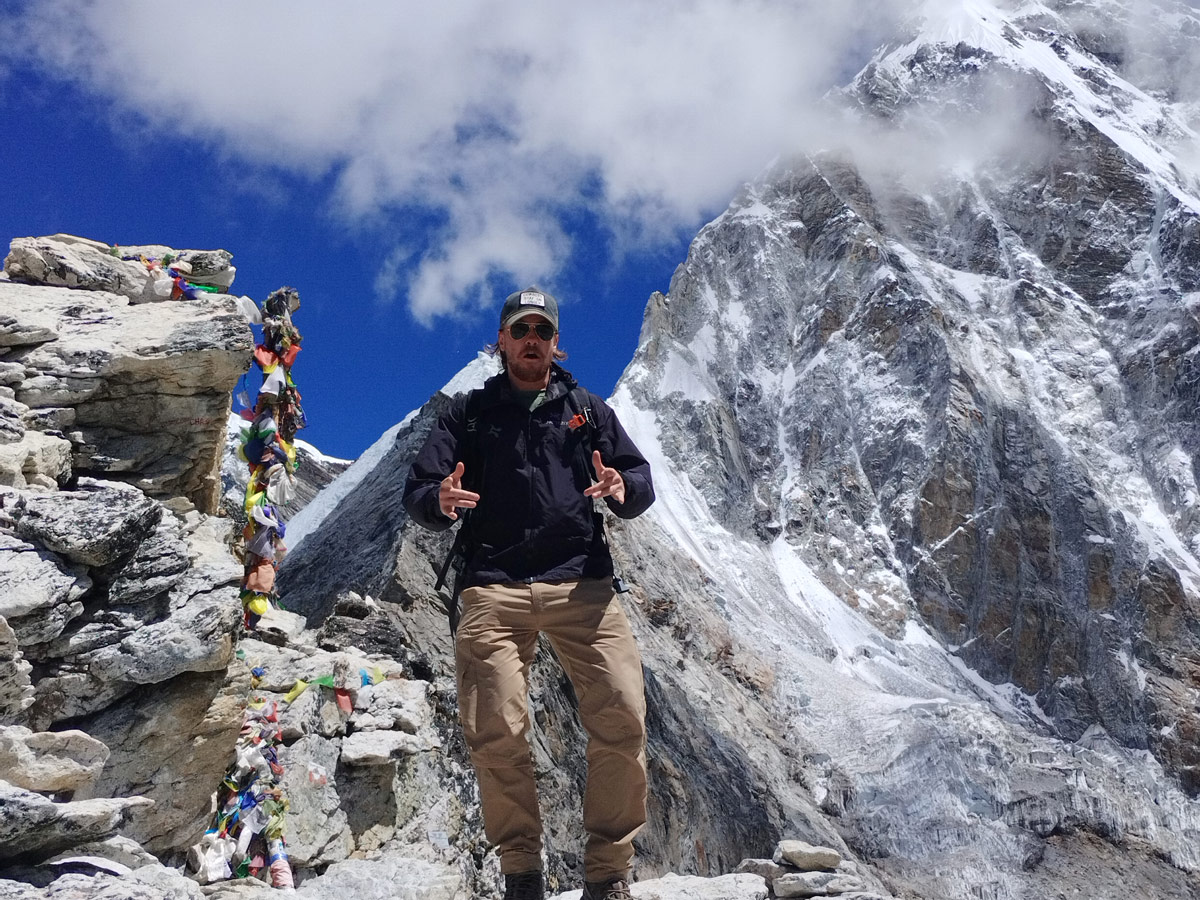
Evan Phillips
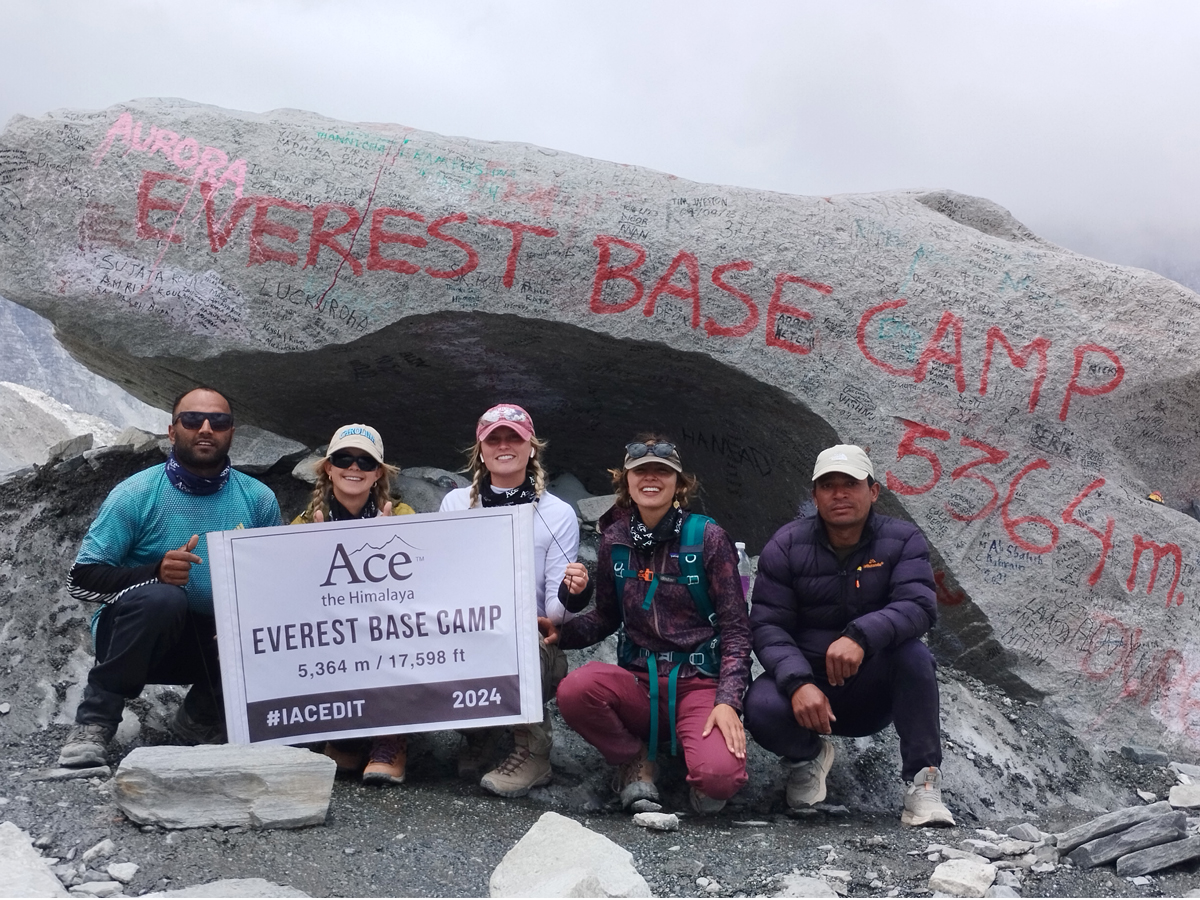
Julia, Isabella & Isabelle
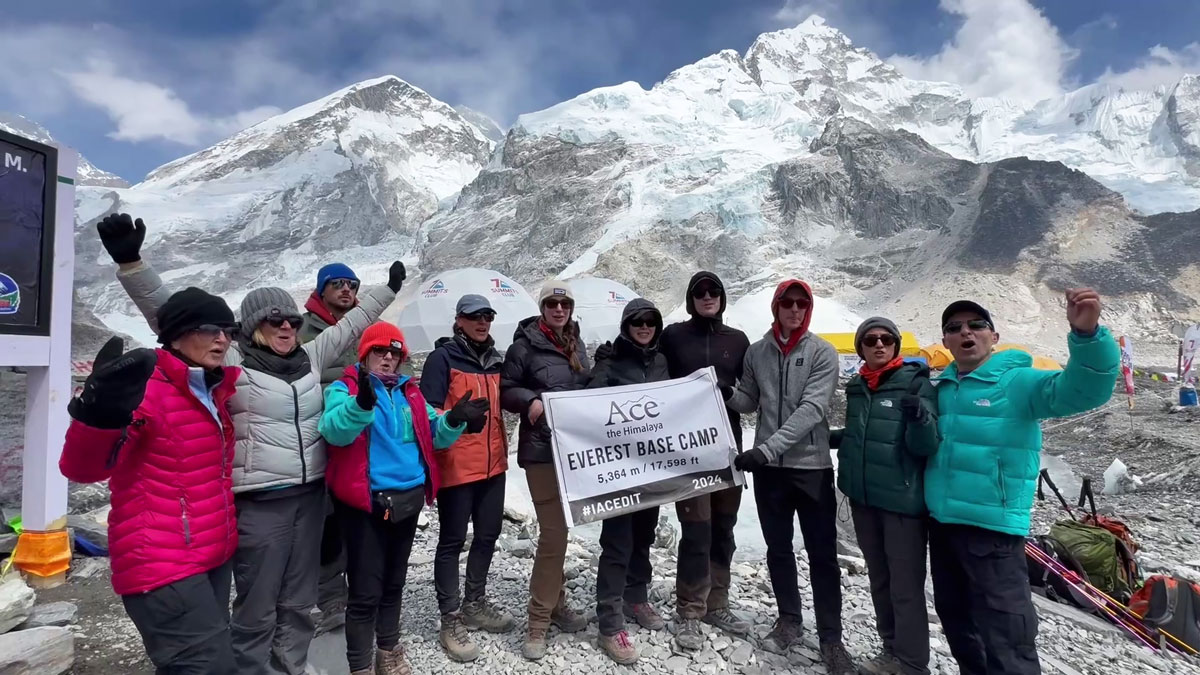
Denise & Group
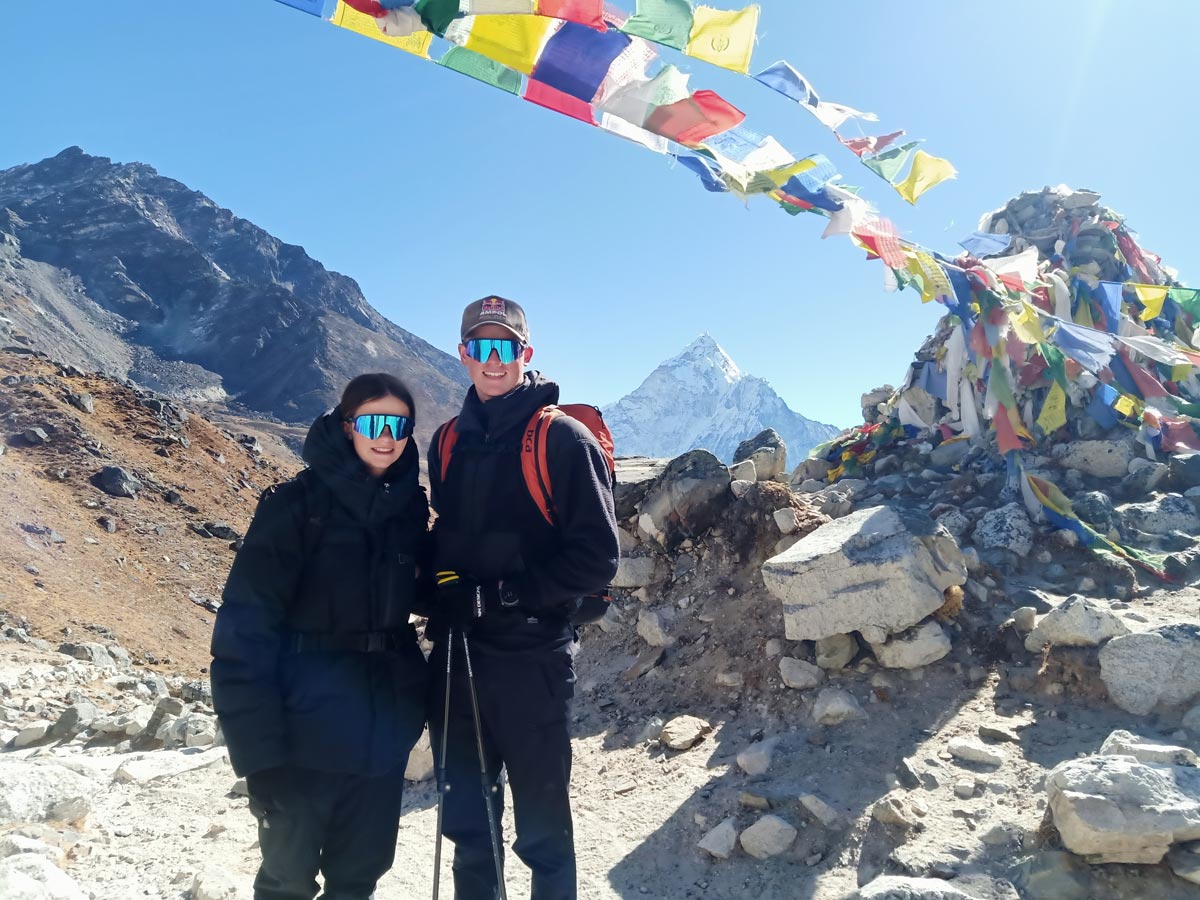
Matthew & Natalie
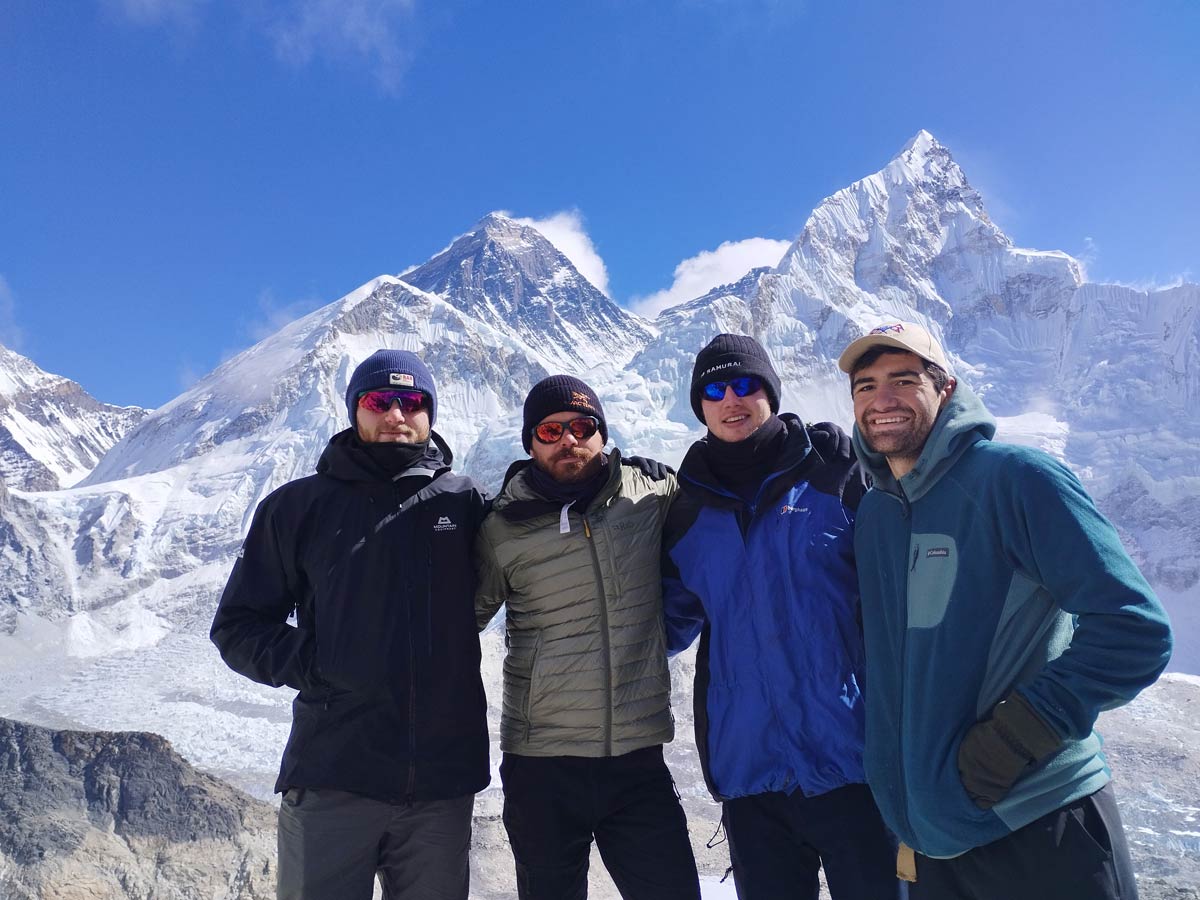
Matt, Nicholas & Charlie
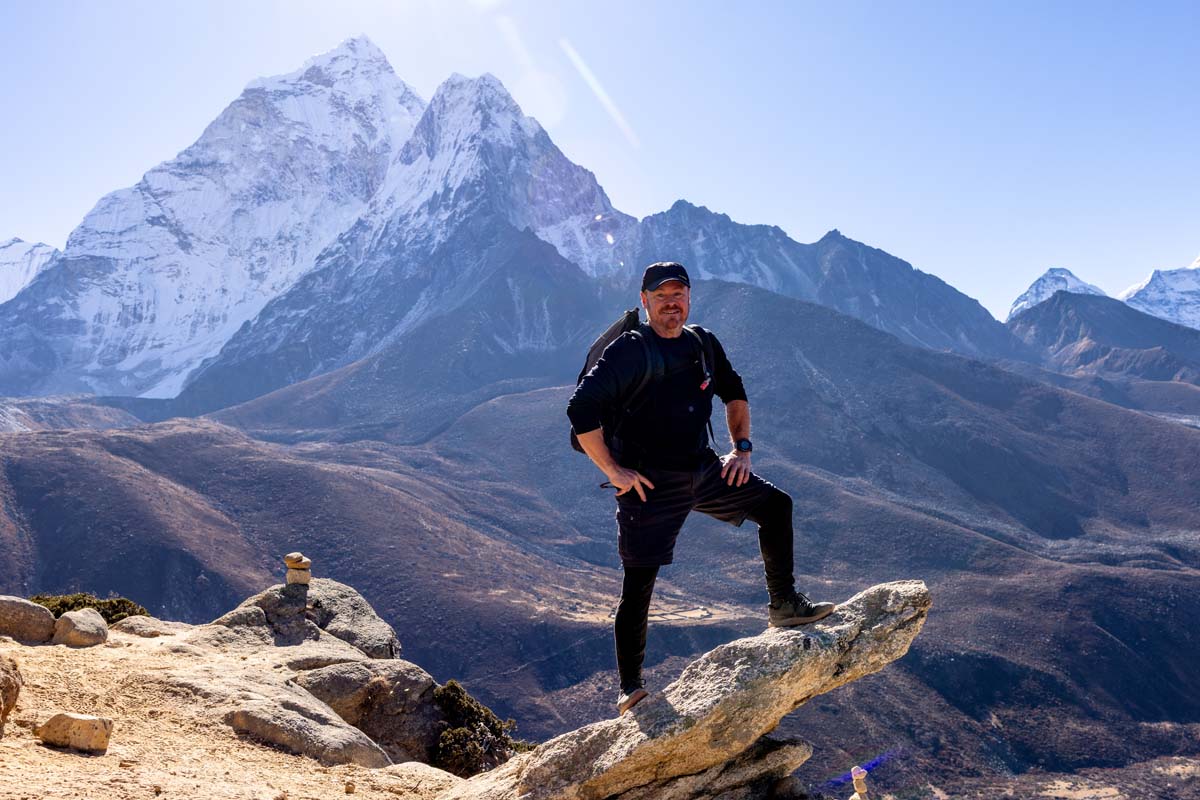
Jeffrey Lenardson
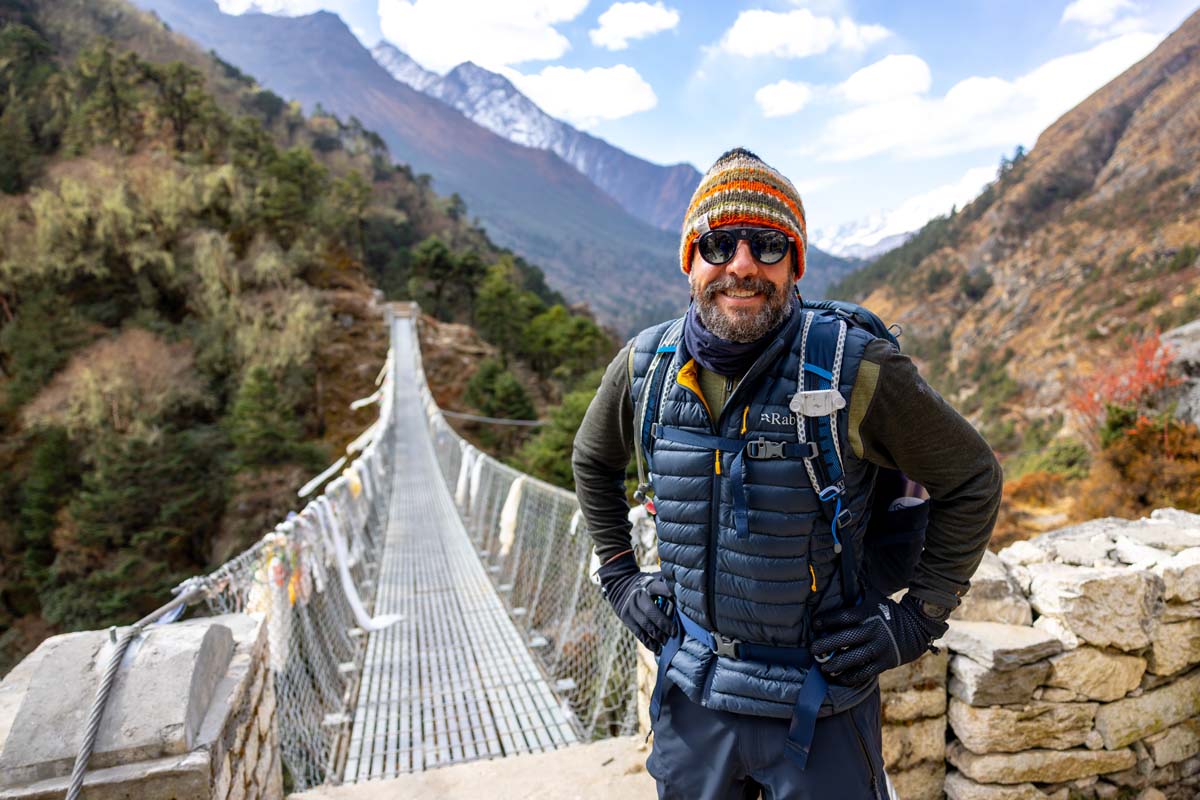
Jarrod Lopiccolo
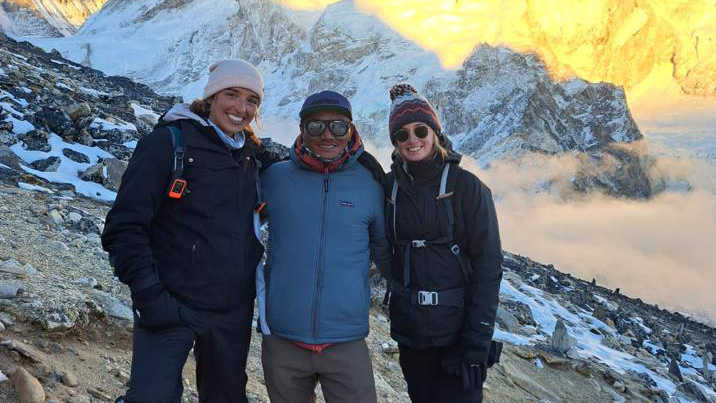
Peyton & Emily
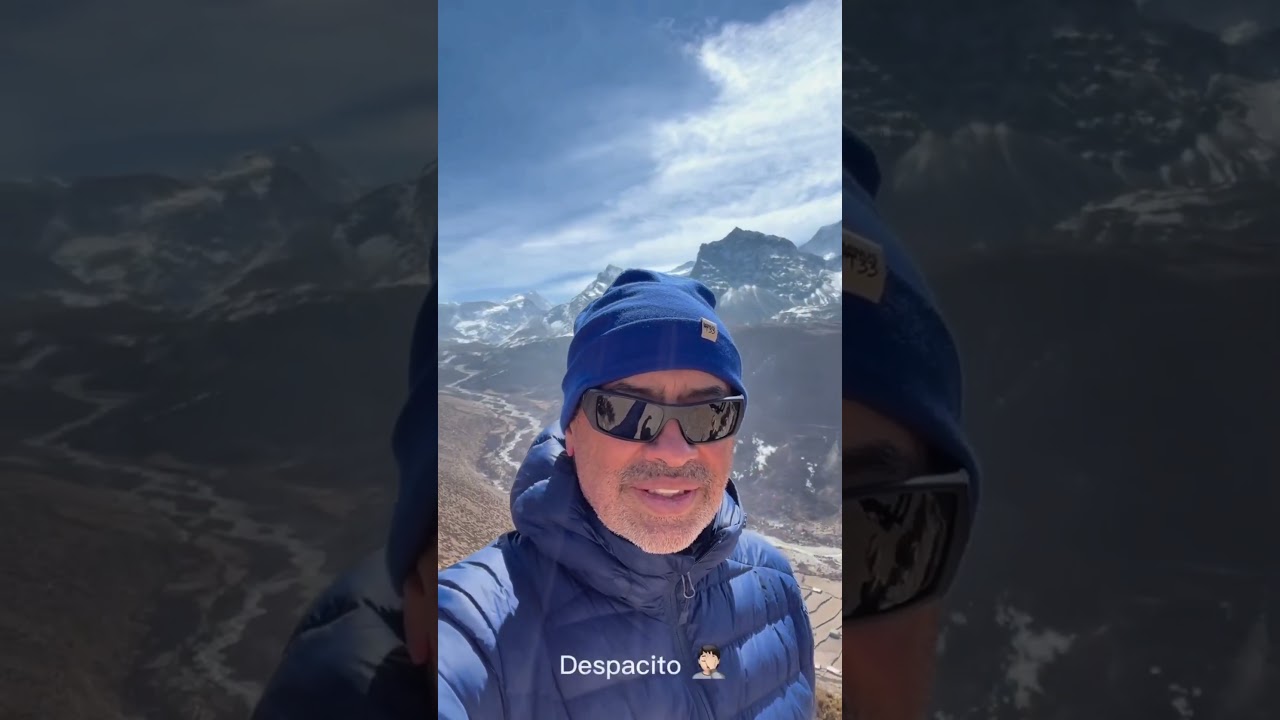
Cedric Rieder
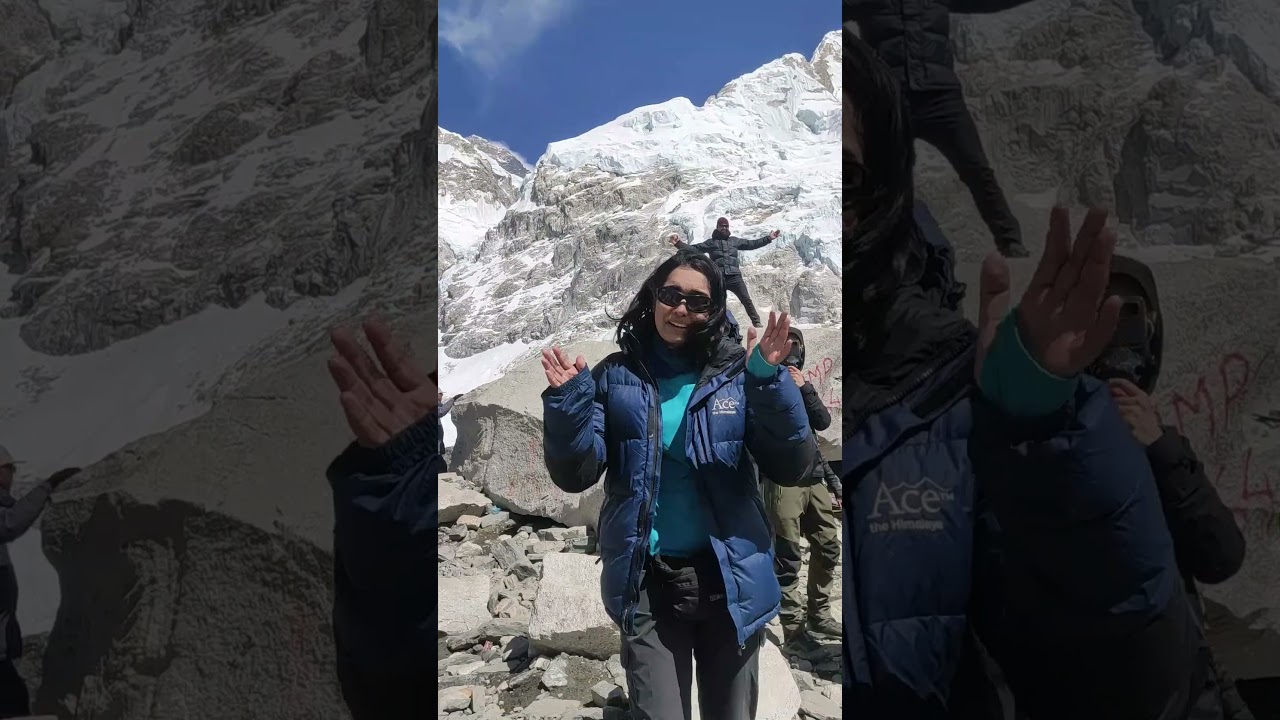
Kevin, Mayura & Gus

Jason Bergancia
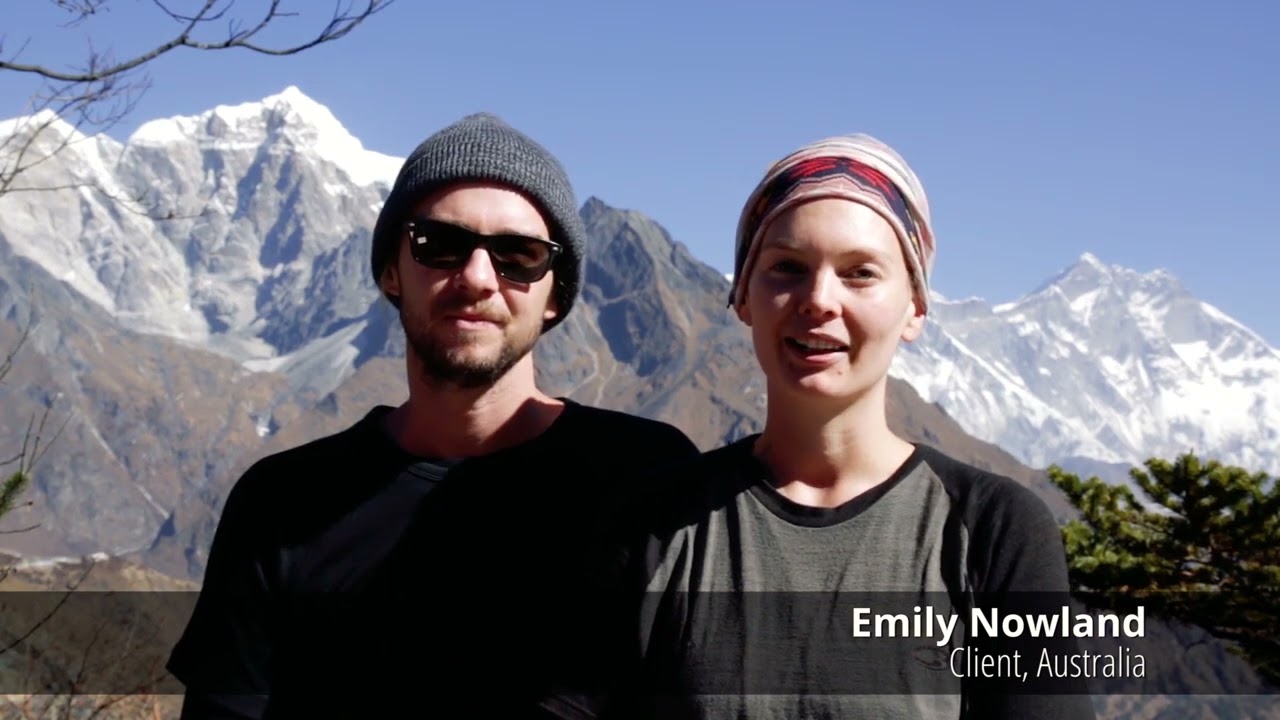
Emily Nowland

Saeid Bossaghzadeh
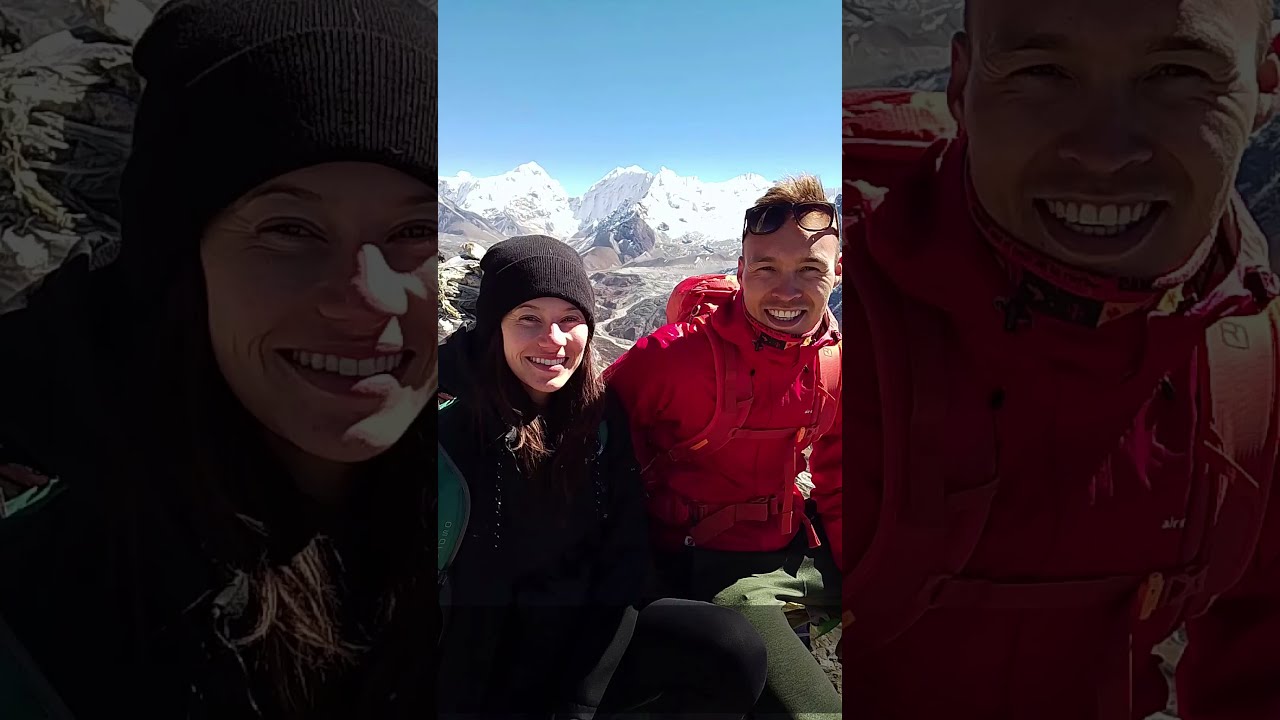
Natasha & Alex
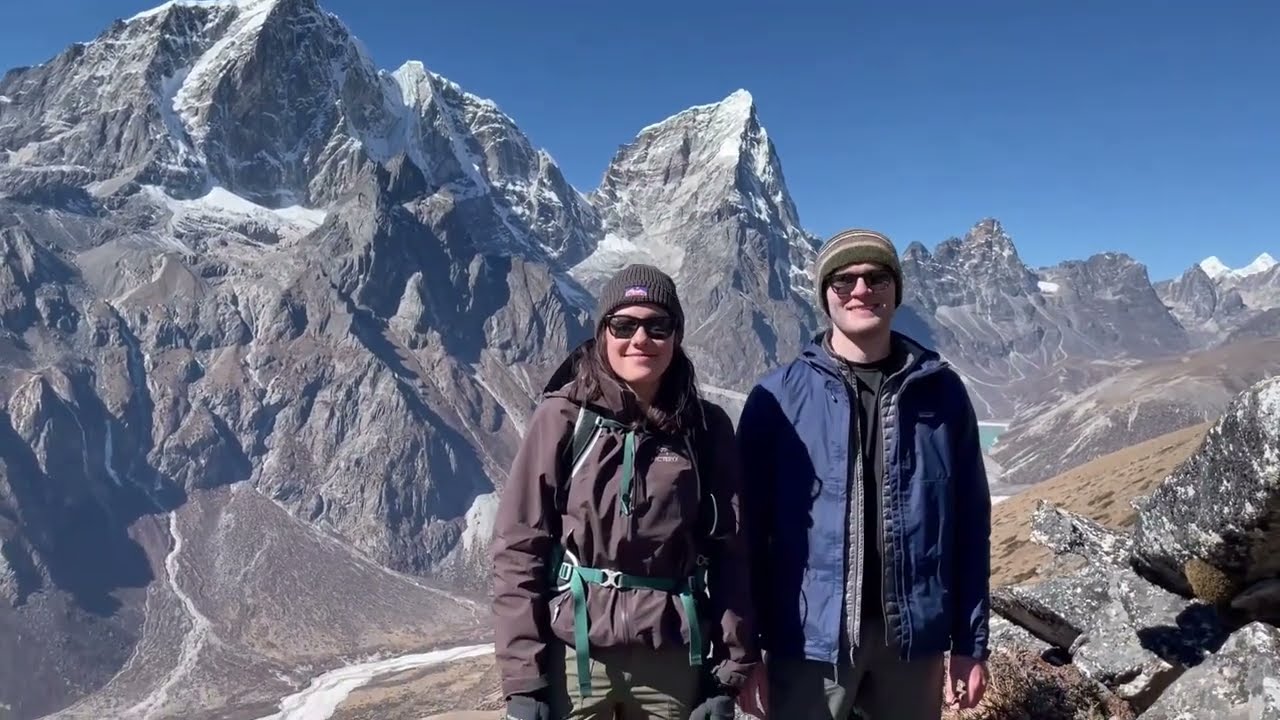
Julia & Nicholas

What makes this trip different ?
Our csr with sambhav nepal.
- Ace the Himalaya believes in giving back to the communities that surround and support tourism in Nepal. Ace provides logistical support and, if needed, cash donations to the projects of Sambhav Nepal (a local NGO).
- Sambhav Nepal and Ace work together to plan volunteer programs that will bring in foreign volunteers and make use of their enthusiasm, time, and talents in a variety of projects.
Sustainability and Responsible Tourism
- Of the few Travelife Partners in Nepal, Ace the Himalaya is one. We respect the procedures for sustainable tourism. Our excursions are socially and environmentally conscious, leaving the lowest possible impact in the Himalayas.
- About 80% of Ace the Himalaya’s staff members are natives of the regions where our trips are organized. It is one of our sustainable and responsible efforts to help local communities, support small businesses, and promote regional culture and way of life.
Related Information
Embarking on the Everest Base Camp trek is an exciting and adventurous journey. To make the most of your experience, it’s essential to have some key information at your fingertips. In this section, we provide valuable insights to help you plan and prepare for the trek.
How high is Everest Base Camp?
The elevation of Everest base camp is 5,364 meters (17,598 feet), its serves as the launchpad for climbing the world’s highest peak, Mount Everest. However, the highest point reached on the Everest base camp trekking is Kalapatthar, situated at an altitude of 5,555 meters (18,225 feet).
From this vantage point you can enjoy the unobstructed view of the Mt. Everest and other surrounding peaks if the weather is clear. Its the perfect location to experience the breathtaking perspective of the Himalayas and Khumbu region.
Accommodation during Everest trek
During the 14 day Everest Base Camp Trek, you’ll have a total of 2 nights of accommodation at a hotel in Kathmandu and 11 nights at guesthouses in the trekking areas.
Alternatively, we also have Everest Base Camp Luxury Trek package , which includes upgraded accommodations and enhanced facilities both in Kathmandu and throughout the trekking journey.
Kathmandu accommodation for EBC trekking
Upon arrival in Kathmandu, you’ll be promptly transported to your designated hotel, a comfortable and well-maintained 3-star option in the heart of the tourist hub; Thamel area, like Hotel Thamel House, Gaju Suite, Hotel Jampa, etc.
Your stay includes twin-sharing/double accommodation with breakfast. All the rooms have private bathroom, TV, and ample storage for your luggage.
If you desire a more exclusive experience, you can upgrade to single occupancy or enhance your stay to a 4- or 5-star hotel at an additional charge.
Nearby, Thamel offers various restaurants, shops, and trekking gear stores for your convenience.
Attached/toilet bathroom facilities during the EBC trekking
During the trek, you’ll be staying in local teahouses/guesthouses, offering simple lodging and meals for travelers.
However, these places have improved facilities now, especially in some areas like Lukla, Phakding, and Namche where we offer you rooms with attached toilets/bathroom. Locals run these teahouses, serving Nepali meals like “Dal Bhat.”
While dining spaces are cozy, accommodation is basic, with twin-sharing rooms and the option to upgrade for single occupancy at an additional cost. Also, please note that comfort is modest in the mountains. However, there is a possibility of having fewer choices available during the off-season. For a closer look at the lodging and dining options along the Everest Base Camp Hike.
Permits for Everest Base Camp Trekking
For your Mount Everest Base Camp trekking adventure, you’ll need three types of permits: the Trekking Information Management System (TIMS) permit, the Sagarmatha National Park permit, and the Khumbu Pasang Lhamu rural municipality entrance card.
All these permits are already covered in our packages, as detailed in the Price Include section. For SAARC nationals, the permit costs are as follows: TIMS permit – NRS 600 per person, Sagarmatha National Park permit – NRS 1,500 per person, and Khumbu Pasang Lhamu rural municipality entrance card – NRS 2,000 per person.
For foreign nationals, the permit costs are TIMS permit – NRS 2,000 per person, Sagarmatha National Park permit – NRS 3,000 per person, and Khumbu Pasang Lhamu rural municipality entrance card – NRS 2,000 per person.
How safe is it to embark on Everest Base Camp Trekking?
Trekking to Everest Base Camp is generally considered safe for individuals who are in good health and eager to undertake the adventure. Ace the Himalaya has been organizing EBC treks since 2006 and has had a diverse range of participants , including families with children as young as 5 years old and individuals in their late 70s.
Based on our experiences, it’s important to note that high altitude presents a significant challenge during this trek, and altitude sickness can affect anyone, regardless of their physical fitness level.
It is difficult to predict altitude sickness which can strike at any time. When you’re in the mountains, mental preparedness is just as important as physical fitness . Choosing the right travel company and an experienced certified guide to support you on the journey can increase your chances of safely reaching Everest Base Camp.
Regarding the trekking trails to Everest Base Camp, given its elevation of 5,364 meters above sea level, it’s expected that you will need to ascend high hills to reach your destination. However, the trail has been designed to be accessible to individuals with good physical health and determination.
Having said that, at Ace the Himalaya safety is our top priority. To ensure that, our certified guides are equipped with oximeters and first aid training. We provide one guide for small groups of up to 8 people and an associate guide for larger groups above them.
Along with that we tag 1 Porters for every 2 clients which have weight limits of 30 kg or 15 kg for each client, and all our trekking staff are insured as well. Not only that, but we also offer 24/7 support and emphasize acclimatization to prevent altitude sickness. Besides that, proper gear and optional oxygen support are also available at an additional cost.
Similarly, it’s important to acknowledge that the real danger during the trek is the unpredictable natural calamities and disasters beyond anyone’s control. It is strongly recommended to obtain travel insurance before starting your journey .
How to prevent altitude sickness during EBC trek?
Altitude sickness poses a serious and potentially fatal risk, especially during the Mount Everest Base Camp Trek. Prevention measures are crucial due to their unpredictability. Consulting medical experts beforehand for a physical exam and risk assessment is essential.
Avoiding substances like alcohol and tobacco, while limiting caffeine, aids in acclimatization. Whereas, adhering to safe altitude gain rules, maintaining hydration, and a carb-rich diet is a key factor while EBC trekking.
Likewise, gradual acclimatization through slow ascents and hiring experienced guides are highly recommended. Similarly, when you recognize symptoms like nausea and dizziness and descending to lower altitudes promptly is suggested.
For such cases carrying altitude sickness medications, a first aid kit, and testing local remedies are prudent precautions. Overall, while physically fit individuals are still susceptible, proactive steps can mitigate altitude sickness risks during Mount Everest Trekking. Navigate in detail the vital aspects through our blog about Altitude Sickness Prevention Tips for Trekking in Nepal.
What is the best time for Everest Base Camp Trekking?
Trekking to Mount Everest Base Camp is possible throughout the year, with each season offering distinct experiences. Spring (March-June) is vibrant with blooming flowers, mild temperatures (20°C/68°F), and clear skies, making it ideal.
The monsoon season (July-mid-September) brings heavy rain, particularly at lower elevations, but offers quieter trails and temperatures averaging 22°C (71.6°F). Autumn (end of September-November) is popular due to pleasant weather, clear views, and colorful landscapes.
Winter (December-February) provides solitude with cold temperatures (10°C/50°F), dropping to -20°C (-4°F) at higher altitudes. Proper gear is crucial for warmth.
Overall, spring and autumn stand out for their pleasant conditions, while the monsoon and winter offer unique experiences with challenges to overcome. For more information, you can read our blog about the best time for the Everest Base Camp trek .
Detail information about flying into Lukla
Lukla Airport, also called Tenzing Hillary Airport, is one of the world’s most dangerous airports at 2,840 meters high serving as the entry and exit point for Everest region treks via flight. However, there are some operational changes involving flights from Ramechhap/Manthali airport at times.
Lukla flight from Ramechhap/Manthali Airport
Ramechhap/Manthali Airport is in Nepal’s Terai region, about a 5 to 6-hour drive from Kathmandu from there you’ll have a 20-minute flight to Lukla. In peak months such as March, April, May, October, and November, Lukla flights are redirected to Ramechhap/Manthali (474 m) due to increased air traffic.
Lukla flight from Kathmandu airport
Similarly, in months like January, February, June, July, August, September, and December, Lukla flights originate from Kathmandu, which will take you about 35 minutes to reach Lukla. However, it is important to understand that the decision regarding the operation of Lukla flights is entirely up to the airlines and is influenced by the number of travelers each month.
Therefore, factors like unfavorable weather, airport congestion, runway issues, and geographical challenges often lead to flight delays or cancellations to Lukla.
To account for this, it’s recommended to add an extra day or two to your Everest Trekking plan. This buffer time can be valuable in case of flight disruptions, ensuring you catch your scheduled international flight back home.
Baggage allowances in Lukla Flight
Please remember that the maximum weight allowed for the Lukla flight is 15 kg (about 33 pounds), which includes both your duffel bag and daypack. If your daypack is heavier than this limit, you can pay an extra fee of USD 2 to USD 5 for each kilogram over the limit.
However, sometimes even with the extra payment, you might not be allowed to bring more weight. To avoid any issues, it’s best to stick to the 15 kg limit when packing.
Travel insurance for Everest Base Camp Trekking
Having travel insurance that covers high-altitude adventure activities (above 5,000 m) is mandatory. This includes contingencies like flight disruptions, accidents, and emergency evacuations.
You can buy such insurance online from various providers. Some of the common choices based on client experiences for Everest Base Camp Hike include:
- USA and Canada: Tugo, United Health Care, World Nomad, Blue Cross
- Australia and New Zealand: Fast Cover, Allianz Australia
- Singapore: Ergo, World Nomad (Explore plan level 3)
- Europe: Europe Assistance, Austrian Alpine Club, Allianz Europe
- India: ICICI Lombard
However, please ensure that the policy covers trekking up to 6,000 m altitude. While these are just suggestions, the policies, and coverage may vary accordingly. Contact these insurers directly to inquire about their offerings before making a purchase.
Tipping tips for your Everest trekking
Tipping is customary for guides in Mount Everest Trekking, and it’s also a kind gesture for local restaurants, drivers, and porters. A good practice is to set aside around 10% of your total trek cost to tip the staff.
Typically, we suggest a minimum of 10% of the total trip cost, divided between the guide and the porter. For instance, if the trip price is $1,500, each customer could contribute $150, dividing it by a 60-40 ratio between the guide and porter.
This recommendation considers that many hospitality establishments already include a 10% service charge for their staff. However, the decision on the tipping amount is entirely at your discretion, whether it’s 10% or more or less.
Phone and Gadgets charging
In Everest Base Camp Hiking trail, they normally use renewable energy like solar power. If you need to charge your devices, certain guesthouses may charge a fee, usually around USD 1-5 per charge.
It’s advisable to bring two-pin (type C) and three-pin (type D) adapters. However, you can either bring these adapters or buy them in Kathmandu.
Trip Extensions
Upon completing your Himalaya Base Camp trek or before embarking on it, you can further discover Nepal’s beauty through various alternatives.
These include Trishuli River Rafting, Langtang Heli Sightseeing, Paragliding in Nepal (Pokhara), Ultra-Light Flight, Kathmandu Day Tour, Bardia Jungle Safari, and Chitwan Jungle Safari.
These options unveil Nepal beyond its mountains. To delve into these captivating alternatives, explore our Extend Your Trip page.
Food options during EBC trekking
Teahouses on the Mt Everest Base Camp trekking route follow international guidelines for food preparation, ensuring clean and warm meals. Ingredients are often sourced locally, guaranteeing freshness.
The main food while trekking is ‘Daal Bhat’ – rice and lentils. Teahouses offer various options, from American breakfast to Nepali dishes. Breakfast includes items like bread, eggs, porridge, and more. Lunch and dinner feature Daal Bhat and other choices like fried rice, noodles, and soups.
Carrying protein bars and dried fruits for snacks is recommended, along with staying hydrated. Dive deeper into this culinary journey through our blog post Food on the Everest Base Camp Trek .
Can a beginner trek Everest Base Camp?
Certainly! At Ace the Himalaya, we believe that with the right support and guidance, a beginner can absolutely trek to the iconic Everest Base Camp.
Our team comprises seasoned guides who boast in-depth knowledge of the terrain and are well-trained in first aid, ensuring the safety and comfort of every trekker throughout the journey.
We highly recommend that beginners undergo comprehensive physical training and conditioning before setting off on this unforgettable adventure. This may involve engaging in cardiovascular exercises, strength training, and hiking to build endurance and stamina.
By dedicating time to this preparatory phase, beginners can enhance their overall fitness levels, making the trek a more enjoyable and rewarding experience.
With Ace, beginners can rest assured that they’ll receive the necessary guidance, support, and encouragement, enabling them to fully embrace the splendor of the Everest region while creating lasting memories of a lifetime.
Training program for Mount Everest Base Camp trekking
Proper preparation is key for a successful Everest Base Camp trekking, necessitating physical and mental readiness starting around two months in advance is highly recommended. Prioritize gradual progress, rest, and hydration to avoid strain.
Along with weekly uphill hikes, gym workouts, and diverse cardio activities to enhance stamina and endurance. Similarly, balanced nutrition with complex carbs and protein is required to support increased calories need. Incorporate stretching and yoga for flexibility and stability.
Therefore, mental preparation involves understanding challenges, setting realistic expectations, and practicing mindfulness. By blending these strategies, you’ll cultivate the necessary resilience for a triumphant and gratifying Mt Everest Base Camp journey.
Explore the detailed aspects of our recommended EBC trekking training programs in our carefully written How to prepare for Everest Base Camp Trek? blog.
Everest Base Camp Trekking Difficulty
The Mt Everest Base Camp trail is renowned yet challenging. The primary difficulties are altitude sickness and the trek’s length. Altitude sickness is unpredictable and affects anyone. Trekking entails 5 to 8 hours of daily walking, but with proper preparation and nutrition, you can manage well.
To succeed in trekking, train your body for high altitudes, walking on hilly terrain with a backpack. Additionally, plan to walk an hour, 4-5 times weekly, from 2 months prior to trekking. For more information, check out our blog How Difficult is Everest Base Camp Trek?
Nepal EBC trek cost
The cost of the Mount Everest trek varies based on one’s preferences and the duration of the trek. A Google search will show the prices ranging from $800 to $4,500.
Our standard itinerary at Ace the Himalaya offers the trek at $1,550. Similarly, factors affecting these costs are accommodation, transportation, permits, guides, and trek duration. However, please check the price inclusion section before making a purchase based solely on package cost.
14 Days Everest Base Camp Trek Cost for 2024 and 2025
Ace the Himalaya introduces the standard 14 day Everest Base Camp Trek at USD 1,550 per person. The following table outlines the cost of Everest Base Camp Trek for 2024 and 2025, considering different group sizes.
The cost for Everest Base Camp trek varies according to the specific needs and preferences of travelers. While researching the cost of this trek, one may encounter diverse price brackets contingent upon the travel agency and the range of services provided.
Please note that our prices might be higher than other local operators due to our commitment to ensuring attached toilets in Lukla, Phakding, and Namche for your convenience.
Kindly refer to the following details for the Everest base camp trek cost, structured based on group size.
For groups of 11 or more, kindly reach out to us via WhatsApp for special discounts and an additional complimentary trip for the lead traveler.
Beginners guide for Mt Everest Base Camp
The Mount Everest Trekking is accessible to beginners with enthusiasm and reasonable physical health. Similarly, mental preparedness is also equally crucial. Whereas guided EBC trekking with experienced leaders provides support and cultural insights.
Cardio and strength exercises, gradual altitude acclimatization, and proper gear are also essential to practice. And on the other hand, nutrition, hydration, and a positive mental attitude contribute to success.
Additionally, adequate rest and recovery, along with mindfulness techniques, enhance the overall experience. Remember, it’s not solely about physical fitness but also the right mindset that makes this high-altitude adventure achievable and enjoyable for beginners.
For more details information you can also go through our blog 25 Tips to Improve Your Everest Base Camp Trekking Experience .
Internet & Wi-Fi availability during EBC trek
Unlike other trekking trails in Nepal, the Everest trekking stands out for its well-developed facilities, including internet connectivity. In this region, there’s an Internet Service Provider called Airlink which offers internet packages.
The unlimited internet package from Air Link costs NPR 700 (6-7 USD) for a 24-hour duration and NPR 1200 (9-10 USD) for 48 hours. Air Link’s Wi-Fi is accessible in the majority of guest houses along the Everest Base Camp route.
It’s important to note that these packages are valid for a single device. While some teahouses provide Wi-Fi for a fee, it’s not always reliable or available everywhere. To ensure consistent connectivity during your trek, it’s advisable to purchase Everest Link or obtain a 3G/4G SIM card.
For more detailed insights, refer to the blog titled Wi-Fi and Internet Access During Everest Base Camp Trek .
Extra expenses for EBC trek
Regarding additional costs for the entire trip, a budget of approximately USD 100 to 150 excluding the tips, is generally considered adequate for purchasing snacks and beverages.
However, the exact amount of extra expenses can differ depending on individual spending preferences, as well as on choices related to buying souvenirs, post-trip alcoholic beverages and activities.
What is the trekking distance from Lukla to the Everest Base Camp?
The distance between Lukla Airport (Tenzing-Hillary Airport) and the Everest Base Camp is approximately 65 kilometers or 40 miles. The total distance of the Everest Base Camp trek is around 130 kilometers or 80 miles., typically completed within an 11-day timeframe.
These 11 days also include two acclimatization days, one in the bustling hub of Namche Bazaar and the other in the tranquil village of Dingboche, allowing your body to carefully adapt to the increasing altitude.
Which Base Camp Trek is Right for You: Everest or Annapurna?
Everest Base Camp boasts unparalleled views of the world’s highest peak, challenging trekkers at higher altitudes, while Annapurna Base Camp trek captivates with diverse landscapes in a shorter duration. For a detailed comparison, explore our blog on Everest vs Annapurna Base Camp Trek .
Similar Treks like Everest Base Camp
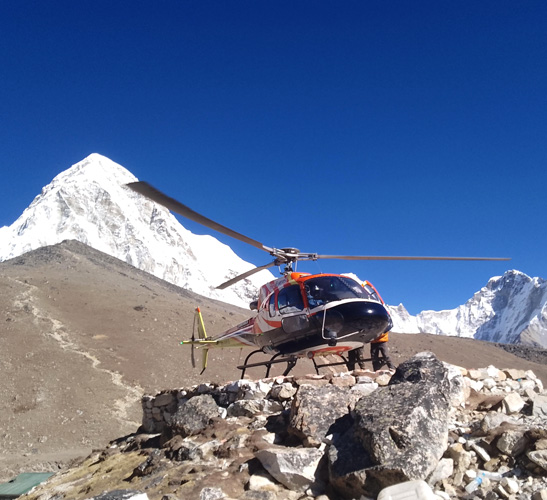
EBC Trek with Helicopter Return
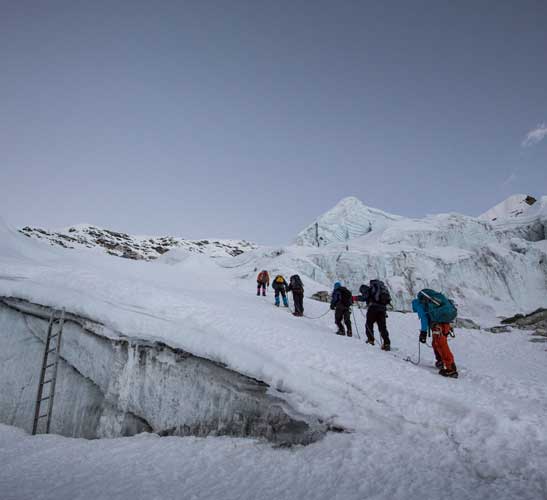
Everest Base Camp with Island Peak
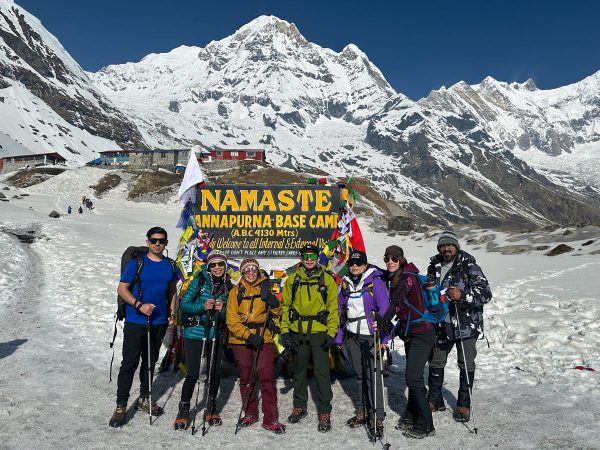
Annapurna Base Camp Trek
Speak to an expert.
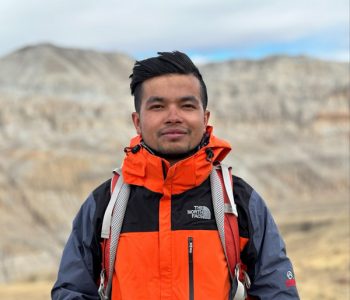
- Availability
Make An Inquiry for
- Full Name *
- Nationality * Nationality Afghanistan Albania Algeria American Samoa Andorra Angola Antigua and Barbuda Argentina Armenia Australia Austria Azerbaijan Bahamas Bahrain Bangladesh Barbados Belarus Belgium Belize Benin Bermuda Bhutan Bolivia Bosnia and Herzegovina Botswana Brazil Brunei Bulgaria Burkina Faso Burundi Cambodia Cameroon Canada Cape Verde Cayman Islands Central African Republic Chad Chile China Colombia Comoros Congo, Democratic Republic of the Congo, Republic of the Costa Rica Côte d'Ivoire Croatia Cuba Cyprus Czech Republic Denmark Djibouti Dominica Dominican Republic East Timor Ecuador Egypt El Salvador Equatorial Guinea Eritrea Estonia Ethiopia Faroe Islands Fiji Finland France French Polynesia Gabon Gambia Georgia Germany Ghana Greece Greenland Grenada Guam Guatemala Guinea Guinea-Bissau Guyana Haiti Honduras Hong Kong Hungary Iceland India Indonesia Iran Iraq Ireland Israel Italy Jamaica Japan Jordan Kazakhstan Kenya Kiribati North Korea South Korea Kosovo Kuwait Kyrgyzstan Laos Latvia Lebanon Lesotho Liberia Libya Liechtenstein Lithuania Luxembourg Macedonia Madagascar Malawi Malaysia Maldives Mali Malta Marshall Islands Mauritania Mauritius Mexico Micronesia Moldova Monaco Mongolia Montenegro Morocco Mozambique Myanmar Namibia Nauru Nepal Netherlands New Zealand Nicaragua Niger Nigeria Northern Mariana Islands Norway Oman Pakistan Palau Palestine, State of Panama Papua New Guinea Paraguay Peru Philippines Poland Portugal Puerto Rico Qatar Romania Russia Rwanda Saint Kitts and Nevis Saint Lucia Saint Vincent and the Grenadines Samoa San Marino Sao Tome and Principe Saudi Arabia Senegal Serbia Seychelles Sierra Leone Singapore Sint Maarten Slovakia Slovenia Solomon Islands Somalia South Africa Spain Sri Lanka Sudan Sudan, South Suriname Swaziland Sweden Switzerland Syria Taiwan Tajikistan Tanzania Thailand Togo Tonga Trinidad and Tobago Tunisia Turkey Turkmenistan Tuvalu Uganda Ukraine United Arab Emirates United Kingdom United States Uruguay Uzbekistan Vanuatu Vatican City Venezuela Vietnam Virgin Islands, British Virgin Islands, U.S. Yemen Zambia Zimbabwe
- Phone Number *
- Email Address *
- Prove your humanity : eight minus one =
- Comments This field is for validation purposes and should be left unchanged.

Trekking in Nepal
Climbing and expedition, cultural tour and sightseeing, cycling and mountain biking, luxury treks, luxury tours, multi country tours, voluntourism trips, extend your trip.
- Everest Base Camp Heli Trek – 8 Days
- Everest Panorama Trek – 9 Days
- EBC Trek with Helicopter Return – 12 Days
- Everest Base Camp Trek – 14 Days
- Gokyo Lake Trek – 13 Days
- Gokyo and Renjo La Pass Trek – 14 Days
- Everest Base Camp Trek without Lukla Flight – 17 Days
- Gokyo to Everest Base Camp Trek – 17 Days
- Everest Base Camp with Island Peak – 19 Days
- Everest Three Passes Trek – 20 Days
- Everest High Passes and Island Peak – 23 Days
- Classical Everest Base Camp Trek – 21 Days
- Langtang Valley Trek – 10 Days
- Langtang Valley Ganja La Pass Trek – 14 Days
- Langtang Helambu Trek – 17 Days
- Ghorepani Poon Hill Trek – 9 Days
- Mardi Himal Trek – 10 Days
- Annapurna Base Camp Trek – 13 Days
- Himalayan Highlights – 13 Days
- Nar Phu Valley Trek with Annapurna Circuit – 18 Days
- Annapurna Circuit Trek – 19 Days
- Tilicho Lake Trek With Thorong La Pass – 19 Days
- Khopra Danda Trek – 11 Days
- Shivapuri-Chisapani Trek – 4 Days
- Upper Mustang Trek (Drive & Trek) – 16 Days
- Tsum Valley Trek – 16 Days
- Manaslu Circuit Trek – 15 Days
- Dhaulagiri Circuit Trek – 21 Days
- Upper Dolpo Trek – 25 Days
- Kanchenjunga Base Camp Trek – 29 Days
- Yala Peak Climbing – 13 Days
- Island Peak Climbing – 15 Days
- Mera Peak Climbing – 19 Days
- Everest Base Camp and Lobuche East – 18 Days
- Tent Peak Climbing with Annapurna Base Camp – 18 Days
- Pisang Peak and Thorung La Pass – 21 Days
- Ama Dablam Expedition – 29 Days
- Kathmandu Cultural Heritage Tour – 3 Days
- Kathmandu Heritage – 3 Days
- Inheritances of Kathmandu – 4 Days
- Glimpses of Kathmandu & Nagarkot – 5 Days
- Kathmandu and Pokhara Unveiled – 5 Days
- Explore Kathmandu – 6 Days
- Glimpse of Nepal – 8 Days
- Nepal Heritage Tour – 10 Days
- Nepal Adventure Tour – 11 Days
- Nepal Multi Sports Adventure – 11 Days
- Nepal Vista – 10 Days
- Nepal Highlights – 14 Days
- Experience Nepal – 15 Days
- One Day Biking Trip – Kathmandu – 1 Day
- Annapurna Circuit Biking – 14 Days
- Upper Mustang Biking – 16 Days
- Kathmandu Valley Rim Biking – 8 Days
- Annapurna in Luxury – 9 Days
- VVIP Everest Base Camp Trek – 10 Days
- Everest View Luxury Trek – 11 Days
- Everest Base Camp Luxury Trek – 14 Days
- Everest Base Camp Deluxe Trek – 16 Days
- Mt Everest Base Camp to Gokyo Trek – 19 Days
- Kathmandu Luxury Tour – 3 Days
- Kathmandu and Pokhara Luxury Tour – 5 Days
- Nepal Multi Sport Luxury Adventure – 11 Days
- Best of Nepal – 14 Days
- Trishuli River Rafting – 1 Day
- Everest Base Camp Helicopter Tour – 1 Day
- Everest Base Camp Heli Tour with Gokyo Extension – 1 Day
- Langtang Heli Sightseeing – 1 Day
- Pokhara and Annapurna Heli Sightseeing – 1 Day
- Paragliding in Nepal (Pokhara) – 1 Day
- Scenic Mountain Flight (Everest Flight) – 1 Day
- Ultra Light Flight – 1 Day
- Jamacho Day Hike-One day hiking trip – 1 Day
- Kathmandu Uncovered with Nagarkot – 1 Day
- Day Tour to UNESCO Heritage Sites – 1 Day
- Nepal and Tibet – 15 Days
- Nepal and Bhutan – 15 Days
- India, Nepal and Bhutan – 19 Days
- Nepal, Tibet and Bhutan – 20 Days
- Arupokhari School Volunteer Program – 14 Days
- Rebuild Home Volunteer Program – 9 Days
- Bardiya Jungle Safari – 4 Days
- Chitwan Jungle Safari – 3 Days
Trekking in Bhutan
Festival tours, motorcycling.
- Druk Path Trek – 8 Days
- Chomalhari Trek – 12 Days
- Laya Ghasa Trek – 18 Days
- Bhutan Vistas Tour – 5 Days
- Cultural Heartland Tour – 10 Days
- Hidden Valley – 11 Days
- Bhutan Multi Sports Tour – 11 Days
- Paro Tshechu Festival – 8 Days
- Punakha Tsechu – 9 Days
- Trongsa Lhuntse Tshechu – 9 Days
- Bumthang Tangbi – 11 Days
- Bhutan Ura Yakchoe – 12 Days
- Tamshingphala Choepa – 12 Days
- Mongar and Trashigang – 16 Days
- Bhutan Biking – 8 Days
- Bhutan Motorcycle Tour – 12 Days
Trekking in Tibet
- Tibet Advance Everest Base Camp – 21 Days
- Cho Oyu Expedition – 45 Days
- Shishapangma Expedition – 47 Days
- Everest Expedition via North Side – 63 Days
- Lhasa Tour from Kathmandu – 10 Days
- Lhasa Overland Tour from Kathmandu – 13 Days
- Kathmandu to Lhasa Overland Tour with EBC – 15 Days
- Tibet Tour with Everest Base Camp via Lhasa – 15 Days
- Kailash Mansarovar Yatra – 16 Days
- Everest Base Camp Biking Tour – 21 Days

Base Camp Hike
A Local Trekking Agency in Nepal

Everest Base Camp Trek Cheap Package
Are you considering Everest Base Camp Trek in Nepal ? If you’re interested in a guided trek that’s affordable, we can help. We’re a local trekking company based in Kathmandu that specializes in EBC trek. Depending on the size of your group, we can offer discounts on EBC Trekking packages . Additionally, we offer private trips for anyone at minimal cost.
Overview of Everest Base Camp Trekking Package
We at Base Camp Hike are thrilled to present our carefully crafted 11 Nights 12 Days Everest Base Camp Trek Package , designed to give you an unforgettable experience. This itinerary features 2 days dedicated to acclimatization and 9 days for trekking , making it one of the best short and altitude-friendly options available.
Booking is open for both 2024 and 2025, and we offer discounted prices throughout the year, with additional seasonal deals. You can easily book your EBC trip in less than 5 minutes through our website.
Our passionate team is happy to customize this package to perfectly match your holiday schedule, budget, and physical fitness level, exceeding your expectations every step of the way.
When it comes to choosing a reliable Trekking company for your Everest Base Camp adventure, look no further than Base Camp Hike. We’re the local expert operator you can trust to make your EBC trip truly extraordinary.
Cost of Everest Base Camp Trek by GROUP SIZE
According to Base Camp Hike’s plan, the cost of the 12-day Everest Base Camp Trek is USD 1050 per person ( based on a group of 2 ). The cost of trekking to Everest Base Camp depends on the mode of the trip, group size, and season. The mode of trekking refers to the Economy Package, Standard Trek, and Comfort Trek .
We can say that our price is the best price because it includes everything, such as a local guide, strong porter, food, accommodation, permits, transportation, and the KTM-LUKLA-KTM flight fare . We also offer discounts for groups. This is because the cost per person is lower when the cost of most items is shared among the participants. Therefore, the price for a solo trek to EBC is more expensive than the group trek.
Daily Cost
The daily cost of trekking to the Base Camp of Everest varies depending on the package price offered by the agency, the group size, and the duration of the trek. For example, if you choose a 11-day trek with us, the daily expenditure will be approximately 89 USD per person per day , assuming double occupancy.
The following are the price schemes for the STANDARD CATEGORY. However, for those who want to go for the ECONOMY PACKAGE ( cheapest option ), we also offer partial package services that only include a GUIDE, PERMIT, and FLIGHT FARE. Nevertheless, if you are looking for a COMFORT PACKAGE that includes most of the things (all inclusive), we also offer the best price for Comfort Lodge Hiking.
CHEAPEST PACKAGE PRICES for Everest Base Camp (Group Rates)
Note on Discount: Base Camp Hike offers group discounts for the Everest Base Camp Trekking, based on the size of your group. These discounts apply only to groups you form , not to groups we ( Base Camp Hike ) create.

Why TREKKING TO EVEREST BASE CAMP
- To see the highest mountain in the world
- Watch the sunset from Kala Patthar over the Mount Everest and Lhotse
- To experience the beauty of the Himalayas.
- It great chance to see 4 of 14 highest peak
- To learn about Sherpa culture.
- To take an experience of World Dangerous Flight ( Lukla flight )
- To explore Sagarmatha National Park
- Experience the 360-degree mountain view
- To challenge yourself
Best Itinerary of Everest Base Camp Trek ( Just in 12 days )
Not satisfied with our itinerary.
Are you interested on planning custom trip? It takes only 2 to 3 minutes.
Everest Base Camp Trekking Detailed Itinerary
Day 1: fly to lukla, trekking to phakding.
On the FIRST DAY of our EBC Trekking , we will take a short flight ( around 30 minutes ) to Lukla in a Twin Otter plane. We will wake up early in the morning and have a quick breakfast at our hotel before driving to the airport for the Lukla flight. This short and exciting flight offers you a great glimpse of the Himalayan range.
Lukla is the gateway to the Khumbu Region Trekking and expedition. Upon landing in Lukla, we will meet our porter and start hiking to the Phakding village. The Phakding village is situated at 2,600 meters ( 8,500 feet ) above sea level on the banks of the Dudh Kosi River. On the way to Phakding, we will see a glimpse of the distinctive triple-peaked summit of Kusum Kanguru. We will enjoy our first night in Khumbu with comfortable accommodation at Guest House in Phakding. The total distance between Lukla and Phakding is 8.2 kilometers ( 5.1 miles ) , and it takes approximately 3 to 4 hours to hike. Stay overnight at a teahouse in Phakding.
- 4 hour walk
- 2652m/8699ft
Day 2: Phakding to Namche Bazaar
On the second day of our EBC Journey , we will trek from Phakding Village to Namche Bazaar. We will walk up the banks of the Dudh Kosi River, crossing it twice by small suspension bridges before reaching the village of Monjo. From Monjo, we will enter the Sagarmatha National Park .
The Sagarmatha National Park is home to a staggering variety of Himalayan flora and fauna. You’re sure to enjoy trekking through sweetly scented evergreen forests composed of Blue Pine, Deodar, and Rhododendron flowers.
After crossing a final suspension bridge at the junction of the Dudh Koshi and Bhote Koshi Rivers, we will hike uphill for about 2 hours before reaching Namche Bazaar. On this day, we will gain 640 meters (2,099 feet) in elevation.
Namche Bazaar is the unofficial capital of the Khumbu region, situated at 3,440 meters (11,286 feet). It is a prosperous trading town and the capital of the Khumbu Region. Many Tibetans cross the nearby border to trade their wares here, and the local market is a fascinating spectacle. Namche Bazaar is a good place to buy real Tibetan artworks.
The total distance between Phakding and Namche is 10.9 kilometers (6.8 miles) , and it takes approximately 6 to 7 hours to hike. Stay overnight at a teahouse in Namche.
- Namche Bazaar
- 6 to 7 hour
- 3,440m/11,283ft
Day 3: Acclimatization Day ( Hike to Everest View Hotel 3,962m/12995ft )
On the third day of EBC TRIP , we will rest and acclimatize to the altitude. This is an important part of trekking. Because it allows our bodies to adjust to the lower oxygen levels at higher altitudes. We will spend the day exploring Namche Bazaar. The Namche Bazaar is the colorful commercial hub of the Khumbu region. Here, we can visit the Sherpa Museum, learn about Sherpa culture, and buy souvenirs. Nonetheless, we can also visit Kancha Sherpa, the last remaining Sherpa climber from the 1953 Everest Expedition . In the morning, we can take a short hike to the Everest View Hotel , the highest hotel in the world. From the Everest View Hotel, we can enjoy stunning views of Mount Everest and the surrounding peaks. After exploring the Everest View Hotel, we will retrace our steps back to our hotel in Namche Bazaar and stay overnight there. The total distance between Namche to Everest View Hotel and back to Namche is 5.4 kilometers (3.4 miles), and it takes approximately 3 to 4 hours to hike. Stay overnight at a teahouse in Namche.
- 3 to 4 Hour Hiking
Day 4: Namche to Tengboche
Today is the 4th day of our EBC Trip . On this day, we will be trekking to Tengboche from Namche. The Tengboche village is well-known due to the Tengboche Monastery. It is the spiritual center of the Khumbu region.
Along the way, we will get our first really good views of the great peaks of the Khumbu: Mount Everest, Lhotse, Nuptse, Ama Dablam, and many more peaks. The total distance between Namche and Tengboche is 9.6 kilometers (5 miles) , and it takes approximately 4 to 5 hours to hike. Stay overnight at Guesthouse in Tengboche. Stay overnight at a teahouse in Tengboche.
- 5 Hour walk
- 3,860m/12,660ft
Day 5: Tengboche to Dingboche
Today marks the 5th day of our EBC Trip . On this day, we will trek from Tengboche to Dingboche. As we walk from Tengboche, we will first begin a descent into the forest, passing the small village of Deboche. If you prefer to stay in an alternative place to Tengboche, Diboche is another village option to stay in overnight. The trail crosses a new suspension bridge just beyond Deboche.
About an hour’s walk from Deboche, we will reach Pangboche. Pangboche is an excellent viewpoint for Ama Dablam Himal. This village was badly damaged in the 2015 earthquake. On the way to Dingboche, you will catch a glimpse of the trail lined with prayer flags and bordered by mani walls. Contouring up the valley side, we will re-cross the river and turn up the Imja Valley to reach the picturesque farming village of Dingboche at 4,410 meters (14,465 feet). There are a few internet cafes, some nice lodges, and some new bakeries.
Dingboche is known as the “summer valley” of the Everest region as it experiences summer rains from the monsoon. The total distance from Tenboche to Dingboche is 10.5 kilometers (6.5 miles) , and it takes approximately 5 to 6 hours to hike. Stay overnight at a teahhouse in Dingboche.
- 5-6 hour walk
- 4,410m/14,464ft
Day 6: Acclimatization Day ( Hike to Nagarjun hill and return 4,410m/14,464ft )
Today, we will acclimatize in Dingboche as we will be going to higher altitudes from here. Instead of resting at the same altitude, we will do a short hike to Nangkartshang Peak for acclimatization before heading to Base Camp of Everest. We will make a morning ascent of the ridge that sits behind Dingboche and try to ascend up to 5,083 meters (16,677 feet).
This worthwhile hike gives us great views of Island Peak (6,189 meters/20,305 feet), Taboche (6,367 meters/20,890 feet), and Ama Dablam (6,856 meters/22,495 feet), primarily, and secondarily, it is a way to acclimatize.
In the afternoon, we will retrace our steps back to Dingboche. If you are interested in attending a class about high altitude acclimatization at the hospital, we can go to Pheriche (4,200 meters/13,780 feet). It takes approximately 1 hour from Dingboche and is run by the Himalayan Rescue Association.
The total distance from Dingboche to Nangkartshang Peak and back to Dingboche is 5.1 kilometers (3.2 miles) , and it takes approximately 4 to 5 hours to hike. We will stay overnight at a teahouse in Dingboche.
- 5 to 6 Hour Hiking
Day 7: Dingboche to Lobuche
Today is the 7th day, and we will trek up to Lobuche (4,910 meters/16,105 feet). Due to the higher altitude, the trek will become more gradual and challenging after Dingboche. On that day, we will pass Dungla. Before reaching Lobuche, you will see some memorial stupas. These stupas are dedicated to the climbers and trekkers who lost their lives on Everest over the years.
Lobuche is a small settlement of lodges, from where trekkers can catch amazing views of Mount Lobuche, Mount Pumori, and the Nuptse peak. We will rest in the afternoon for the next day’s journey to Gorak Shep. On this day, you will see magical views of Lhotse, Ama Dablam, Lingtren, Pumori, and Khumbutse on the way to Lobuche. You can easily recognize them by asking your trekking guide. The total distance from Dingboche to Lobuche is 8 kilometers (5 miles) , and it takes approximately 4 to 5 hours to hike. Stay overnight at teahouse n Lobuche.
- 5-6 Hour walk
- 4,910m/16,105ft
Day 8: Lobuche to Gorakshep via Everest Base Camp (5,364m/17,598ft)
Today marks the 8th day of our EBC Trip , and it is the most highlighted day of our trip as you will get to touch Everest Base Camp in your life. In the early morning, we will trek from Lobuche to Gorakshep. After leaving Lobuche, we will get a sight of the Khumbu Glacier. The trail to Base Camp has gradual ups and downs. Hiking becomes rough when we get near Gorak Shep. After approximately 3 hours of walking from Lobuche, you will reach Gorakshep. Gorak Shep is located 5,180 meters (17,126 feet) above sea level. It is the location of the 1953 Everest Expedition’s base camp. With breathtaking mountain views alongside, we can also enjoy seeing snowcocks and choughs.
Upon reaching Gorakshep, we will take some hours of rest. We will store our luggage at the teahouse where we have booked a room for tonight. Then, we will move to our dream destination, the Everest Base Camp.
To avoid altitude problems, we will walk slowly from Gorak Shep than before. When we reach the top of the Khumbu Glacier, a mesmerizing view of the Khumbu Icefall will be in front of us.
Around 3 to 4 hours of walking from Gorakshep, you will be at the Everest Base Camp (5,364 meters/17,598 feet). Along the way, you will see majestic views of Mount Nuptse, Pumori, and Khumbuste. Consider yourself a lucky person to be standing at the base camp of Mount Everest. After spending some time at the base camp, we will retrace our steps back to Gorakshep. Stay overnight in Gorakshep, and this night will be a challenging night for you as it is above 5,000 meters.
The total distance between Lobuche and Gorak Shep via Everest Base Camp Hike is 11.7 kilometers (7.3 miles) , and it takes approximately 6 to 7 hours to walk. We will stay overnight at a guesthouse in Gorak Shep.
- 7 to 8 Hour walk
- 5,180m/16,990ft
Day 9: Hike to Kala Patthar (5545m/11283ft) and back to Pheriche
Today marks 9th day of our trip and on this day’s morning, we will hike to the top of Kala Pattar, a viewpoint near Gorak Shep, for the sunrise view over the massive giant mountains. The hike to Kala Pattar is about 2 hours from Gorak Shep. The trail is steep and strenuous, but the views from the top are worth it. From the top of Kala Pattar, we can get the best view of Mount Everest, Nuptse, Khumbu Icefall, Lhotse, Pumori, and Changtse. The scenery from Kala Pattar is truly breathtaking.
After enjoying the view at Kala Pattar, we will retrace our steps back to Gorak Shep. Upon reaching Gorak Shep, we will pack our bags and head back to Pheriche Village. Pheriche is a small rural community that serves as a popular stop for trekkers.
The total distance between Gorak Shep and Pheriche via Kala Pattar Hike is 15.2 kilometers (9.4 miles) , and it takes approximately 7 to 8 hours to walk. We will stay overnight at a teahouse in Pheriche.
- 7-8 Hour walk
- 4,210m/13,810ft
Day 10: Pheriche to Namche
Today marks the 10th day of our EBC trip , and it is the longest walk of the entire trip. Even though it is a long-distance trek today, it will be easier to walk than on previous days because we will be descending to a lower altitude (Namche) from a higher altitude ( Pheriche ). The trail from Pheriche to Namche is a busy trail. During the walk, we will encounter many trekkers, guides, climbers, and porters. There are many suspension bridges along the way. We will reach Namche after passing through dense forests and varying landscapes.
The ups and downs of the trail will make me tired today, but the naturally beautiful things on the trail, such as the views of the Himalayas, the diverse flora and fauna, can help me forget my tiredness. The total distance between Pheriche and Namche is 19.5 kilometers (12.1 miles) , and it takes approximately 6 to 7 hours to walk. We will stay overnight at a teahouse in Namche.
Day 11: Namche to Lukla
Today marks second-to-last day of 11 nights 12 days EBC Trip . We will be trekking from Namche Bazaar to Lukla, the place where we started our adventure journey. The trail is mostly ups and downs, and we will be crossing several suspension bridges over the Dudh Kosi river. The total distance from Namche to Lukla is 19.1 kilometers (11.9 miles) , and it take approximately 6 to 7 hours to walk. We will stay overnight at a teahouse in Lukla.
- 7 to 8 Hour walking
- 2,800m/9,184ft
Day 12: Flight from Lukla to Kathmandu
Today is the last day of our 12 Days EBC trip . Early in the morning, we will head to Lukla Airport for our flight to Kathmandu. Try to get a window seat for an enchanting aerial view of the entire region. During the flight, you will be able to recognize peaks. The Himalayas are majestic. Bid them farewell.
Finally, we will arrive at Tribhuvan International Airport in Kathmandu. From the airport, we will transfer you to your hotel. You can spend the rest of the day at your leisure. Overnight in Kathmandu.
If you have any questions or need more information about our EBC Trek itinerary, please contact us.
- 1,400m/4,600ft
EBC TREKKING Itinerary Both way Drive – 15 Days
Package includes:.
- Private transfers for your international flight 2 times ( arrival/departure )
- Flight Tickets ( Kathmandu/Ramechhap – Lukla – Kathmandu/Ramechhap) including Guide’s Flight
- Airport Transfer from Your Hotel to Domestic Airport and Domestic Airport to Your Hotel ( 2 Times )
- Meals on Trekking ( Main course: 11 x Breakfast, 11 x Lunch, 11 x Dinner ) during mentioned trekking days
- Twin Sharing Accommodation during the Trekking ( Room with attached bathroom in Phakding, Namche, and Lukla, total of 4 nights )
- Sagarmatha National Park Entry Park and Local Entry Permits
- Government License Holder, Experienced Trekking Guide for 12 days.
- All expenses of Guide including his Insurance, trekking gear, and meal
- Seasonal Fruits Each trekking day
- First aid medicine kit with an Oximeter
- Nepal Government VAT, Taxes, and official charge.
Package Excludes:
- All types of Drinks and Desserts food on Trip
- Porter to carry guests’ luggage ( Maximum weight 20kg to 23kg, 10 to 11kg per Guest )
- Extra night accommodation and meals in trekking ( in case of flight cancellation due to bad weather or any other reasons)
- Meals and Accommodation during the staying in Kathmandu
- All types of Personal Nature Expenses
- Tip for Guide ( Expected but not Mandatory )
- Any other things which are not mentioned on the list of INCLUDED
Frequently Asked Questions
Except for some nationalities, Nepal has been providing “on arrival visas” for tourists. And visa procedure is simple as well as quick too. However, you may need to queue during the spring and fall seasons. Because on that time tourist flow will be high. So all in all it’s easy to get a Nepal visa for tourists. For more information: www.basecamphike.com/nepal-visa/
We will be pleased to welcome you to TIA airport Nepal. To welcome you, one of our airport representatives will be there(Airstrip). To recognize each other, our representative will be with the Base Camp Hike placard. Upon meeting, you will transfer to your hotel with an airport representative. Not only that but he/she will also help you to check into the hotel. For the Airport drop-off, we’ll drop you at the airport before 3 hours on your scheduled flight.
The height of Mt. Everest is 8848m(29028.87 ft) from sea level. That’s why it’s called the top of the world or Roof of the world.
EBC trekking is based on tourist standard lodges, known as tea houses. Though you can do a Camping Trek, Everest tea houses are comfortable and enjoyable too. Basically, at the lower altitude of Khumbu, you’ll get more amenities on lodges/tea houses whereas at a higher altitude you’ll get low amenities. The quality of lodges will decrease with altitude increase.
It depends on the weather and your Physical fitness. Normally it takes 12-14 days to go base camp and back to Kathmandu. Within 12 days to complete 130km round-trip. It takes 8 days to get to Base Camp and 4 days to get back down to Lukla where 2 days is for acclimatization.
The others name of Everest is Sagarmatha( Nepali Name), Chomolungma (Tibetian), and Third Pole in English.
Since Base Camp Hike specializes in EBC and ABC trekking, you will get the best trekking packages. We will provide you with the best packages that include the best guides, porter, trekking accommodation, and so on things related to trekking. We had already made many trekkers’ dreams come true. Our specialists can lead you to the top of the world in a professional manner. For hiking to EBC, we’ll provide you with a local registered trekking guide. Not only a registered guide, but we will also provide you with an experienced guide. Our ultimate aim is to make you happy. If we make you happy, we think you’ll recommend your friends, and relatives to us.
Yes, they can. Those who have physically fit and can uphill walk can walk for 5-6 hours each day, they are eligible for this trek. Base Camp Hike will support you to make a successful trek whether you’re a rocky trekker or experienced.
The best time to visit EBC is Sep-Nov and Feb-May are the main trekking months when you’ll get fairly stable weather conditions, good visibility, and temps at Base Camp getting up to about -6°C. However, at this time, tourist traffic will be very high. If you wish to avoid this, Base Camp Hike can arrange your perfect time to hike.
Since it is very high altitude hiking, it is required to have a train before a start trek. Training for Base Camp should include improving your cardio endurance, and strength endurance. You should get comfortable while carrying a daypack uphill for long periods at a time. That’s why at least 8-10 weeks before your trek, you should begin hiking or taking long walks at least 1 day per week (focus on duration more than distance)
Drink a minimum of 3 liters of water a day.Eat hygienic food. Don’t stay outside of teahouses longtime. Use good clothes that warms up your body temperature Trek steadily. Don’t try to skip the acclimatization days. Take a Diamox ( if any symptoms show up while strolling). Drink a lot of Garlic Soup and other soups. Don’t try caffeinated, alcoholic, and smoking items.
Likewise, in other trekking in Nepal, you should have permits for the EBC trek. For the permit, you should have a valid passport, a tourist Visa, two passport-sized photographs. Along with this, travel insurance is also necessary(optional) due to high elevation journeys.
You’ll get laundry services in Lukla and In Namche Bazaar. It’s more expensive than city areas but it’s fortunate to get Laundry service in the Himalayas. Beyond Namche Bazaar, you’ll not get any laundry service. But you’ll get a running water tap where you can hand-wash your clothes if it’s really necessary. Otherwise, it’s better to have laundry in Kathmandu than in the mountains.
Although it is high-altitude trekking, it is a safer route than Annapurna Base Camp. No avalanches area such Like trekking to Annapurna Base Camp. Base Camp Hike assures clients of safety, security, and satisfaction(3S). We have a trained guide that can handle all obstacles for all types of trekking. All of the staff are professional in their work. To make it happen, our team starts the trek by carrying all necessary first aid kits, necessary gear, and others related to the trek. In case, if trekkers get to a high altitude, our guide can make the best decision. It means if the condition is very critical, he will immediately contact for rescue. Along with this, BASE CAMP HIKE provides Oximeters to our leader to regularly check the oxygen level of our guests. It boosts the trekker’s confidence.
Yes, WIFI is spreading all over Nepal. You will get internet access all over Khumbu, Everest. But it costs 5 to 10 dollars a day. In most places, there are internet providers that are called Everest Link.
According to our 13 days itinerary, at airable in Nepal, we’ll use private transport mode to your hotel. From the hotel to the airport we’ll also use a private car. To reach Lukla and get back to Kathmandu from Lukla, we’ll use a plane. However, if you want to customize our itinerary we can use other transportation modes too. It means if you want to do ECB in 5 days, or tour EBC in a day, we can arrange your private helicopter too.
On average(approximate), you should walk 5 to 6 hours each day. During these walking hours, you will acclimatize properly. However, if you want to walk more than this, you might get altitude sickness. Until 4000m, it’s easy to walk 5-6 hours. But beyond 4000m, we’ll walk 4 to 5 hours. Whilst we retrace our steps to Lukla, we’ll walk more than 7 hours someday.
Mount Everest is located on the border of the Himalayas country Nepal and Tibet(27°59’ North latitude, 86°55’ East longitudes). The south face of Everest lies in Nepal and the North face of Everest is situated in Tibet. Everest is situated in the Mahalangur Himalayan Range of Nepal. This Mahalangur Himalayan range is rich in the tallest mountain. Because it has 4 tallest mountains in the world. Mt. Everest is known as Sagarmatha in the Nepali language. Tibetan identification is ‘Chomolungma’. It is also called the third pole. The peak derived its name from the land Surveyor-General ‘Sir George Everest’ who was the first person to locate the exact position of the peak. On the Tibet side, Mt.Everest is situated in the Tingri Country of the Xigaze area. Everest Base Camp is the gateway for all the climbers that attempt to climb the highest summit.it is the most famous trekking location that holds a long history of pride, glory, and tragedy too. It will lead you to the best viewpoints on earth like Kala Patthar (5555 m) . Along with that, you will also be able to witness the unbelievable and magnificent view of Mt. Everest and other nearby mountains. This trek will give you a lifetime experience of the pictorial Khumbu valley. If you have around 2 weeks of holidays for Nepal, then you can do Everest Base Camp Trek for 12 days. A round flight from Lukla is the way to make Everest trek short. But we need to have around one day extra. If we can not fly out from Lukla at a written time because of the weather problems, then we need to wait for another day. Yes, WIFI is spreading all over Nepal. You will get internet access all over Khumbu, Everest. But it costs 5 to 10 dollars a day. In most places, there are internet providers that are called Everest Link.
On average(approximate), you should walk 5 to 6 hours each day. During these walking hours, you will acclimatize properly. However, if you want to walk more than this, you might get altitude sickness. Until 4000m, it’s easy to walk 5-6 hours. But beyond 4000m, we’ll walk 4 to 5 hours. Whilst we retrace our steps to Lukla, we’ll walk more than 7 hours someday.
EBC TREKKING REVIEWS
A perfectly organized trek to everest base camp.
We did the Everest Base Camp hike in March 2023. Jayaram made all the arrangements. From start to finish he provided a service that was truly superb. He was always available, answered any questions, took care of every detail and ensured that our hike was a complete success in every respect. From meeting us on arrival in Kathmandu, to the moment of our departure, every aspect of the logistics was taken care of. Coordinating transportation, flights to Luka, our guide and porter, everything went smoothly. I would highly recommend Jayaram, without hesitation, to anyone considering hiking in the Himalayas. He is an honest and reliable tour company. We had the most amazing experience of a lifetime hiking with his company.
12 Days Everest Base Camp trek with my Son
This was one of the best trek I have ever undertaken. The trekking company, BASE CAMP HIKE was superb. The guide, Kamal was knowledgeable and patient with my son and me. With his help, we were able to achieve our goal of reaching the Everest Base Camp.
View from Kala Pattar was magical. A perfectly s plendid trek in a rugged, unbelievable part of the world. We lucked out with beautiful weather throughout the trek. I recommended this agency to anyone looking for a physically challenging and completely rewarding experience under the care of a professional, responsible, and fun guide.
12 Days Everest Base Camp Trekking
We did the 12 day Everest Base Camp trek with Kamal and Prem as guide and porters. It was an AMAZING EXPERIENCE. Base Camp Hike is a fabulous company. I can’t say enough good things about Base Camp Hike. From the time getting to Nepal to leaving to getting Covid tests, everything was taken care of.
Our guide, Kamal, really did his best to ensure we had the best experience and showed us the beauty of life in the mountains. We were very impressed with the services provided by the company which exceeded our expectations.
Trekking to ECB was both the most challenging and most rewarding thing we’ve ever done. The view during the entire Everest trek was awesome. Our Guide allowed us to hike at our own pace and were never in a rush. We always felt safe and immensely enjoyed our ECB trekking.
From the beginning to the end of the trip, the whole team’s commitment to customer service was remarkable.
Hence, highly recommend them to other adventure lovers.
Pro tip: bring a pack of cards to play during the evening with the Guide and porters!
Magical Everest Base Camp Trekking
I did Everest Base Camp Trekking with Guide Kamal and had magical views in my life so far. Kamal was my guide and he was a really good guide. The company(Base Camp Hike) was very flexible with the itinerary. I found trusted services, quick support, and professionalism on Base Camp Hike. I suffered from the clouds and fogs. All in all, it was a perfect trip although we suffered from the weather. Recommend to all my friends 100%.
Fantastic EBC Trek with Base Camp Hike
What a fantastic experience doing the EBC Trek(Everest Base Camp Trekking) with Base Camp Hike.
Email corresponding with Jayaram was excellent from the inquiry of the trip. Everything on this trip(Kathmandu- Everest Base Camp -Kathmandu) was perfectly organized.
Our guide(Som) was very professional and knowledgeable. We climbed the Kalapattar for the view and i t was phenomenal.
Highly recommended for all who wish to be there.
Get QUOTE For Trekking to Everest Base Camp
The group departure dates listed below are specially quoted and specified for GROUP JOIN TREKKING. Please let us know if our departure dates are not suitable for you. BASE CAMP HIKE can arrange private trips departing on any date that suits your holiday.
💡 OFFER ! 🚶 Book your trek for July to December and receive a SPECIAL DISCOUNT! 🌄 Limited time offer, BOOK NOW and save on your journey. 🌟 Don't miss out on this SEASONAL OFFER!
Price US$ 1130
USD 1050 P.P
- Book This Trip
- Cutomize Trip

GET A QUOTE
- BEST PRICE guaranteed
- Have a BIG GROUP? We can HELP
- CUSTOMIZE your trip as per YOUR REQUEST
- LOW ON BUDGET? We can HELP
Trip Booking
Booking trip takes less than 5 minutes. Please fill in the form
Travel Info
- Trekking Equipment
- Altitude Sickness
- Hire Guide and Porter
- Food on Trekking
- Best Time to Visit Nepal
USD 1130 1050 Price based on 2 Person
- Sep 11 - Sep 23
- Request Guide
- Itinerary View
- Total Cost (Detailed Quote)
Sep 11 - Sep 23, 2024 | Change
Everest Base Camp trek (13 days) Everest Region, Nepal
Highlights: tengboche, everest base camp, and kala patthar.

Teahouse lodging, food, & transportation paid separately.
Food & Lodging
In order to provide you with the best possible price and to get as much money as possible directly to the people who are actually doing the work, we do not charge you in advance for teahouse lodging and food. The guide will be able to book accommodation for the group in advance during high season. However, you will pay the teahouse owner directly for food and lodging. Budget at least $25 a day for food and lodging to be paid in cash directly to the teahouse. Estimated food & lodging for this trip $300.00 per person.
Transportation
- Permits Sagarmatha National Park Entry and Local Everest Region Tax
- Guide Guide's wages, food, lodging, and insurance
- Guide's Transport
- VAT Tax 13% Nepal Government Tax
+ $30 per porter for porter's insurance + $2.21 per day per porter for vat tax (porter)
+ $15 per person for service/transport fee
This trip has optional side trips. Would you like to see the options?
Would you like to request a specific guide?
If you do not specify a guide, a request will be sent to all available guides (once a payment is made and the trek is confirmed). Once confirmed, you can choose from the guides who indicated that they would like to lead your trek, or ask us to recommend a guide.
or send us a message
We will try to respond within 24 hours.
This is the most popular and iconic trek in the Khumbu. Follow the footsteps of Tenzing Norgay, Edmund Hillary, and those that followed to the base of the highest mountain in the world. En route, you’ll pass the centuries old Buddhist monastery of Tengboche and hike alongside the Khumbu glacier to Gorak Shep, the last permanent encampment before Everest Basecamp. In addition to Everest Basecamp, you will climb to the dizzying height of 5643 m (18,513 ft) and view one of the most magnificent panoramas in the Himalayas atop Kala Patthar. Those with a little more time and a sense of adventure can add side trips via the spectacular Kongma La pass, the Cho La pass, and the Renjo La Pass.
- Images from Everest Base Camp Trek
Weather Conditions in September
Mid-September marks the start of the ‘Fall Season’ historically the monsoon would end in mid-September, however in recent years the monsoon has officially withdrawn in early October. While there is a good chance of precipitation, clear skies and lush, rice paddy terraced hills are your spectacular when it is not raining. The chance of rain decreases as the month progresses. The end of the monsoon means there is still a chance of the occasional heavy snowfall at high altitudes. Furthermore, high passes can have a lot of snow that has accumulated over the monsoon.
At a glance On average there are 15 days with precipitation in September. The highest point on the trek is Kala Patthar at 5643 m . During September, expect high temperatures of around 2.5°C (37°F) and lows down to -7.5°C (19°F) at Kala Patthar.
Everest Base Camp Trek (Elevation Profile)
View itinerary on map.

Build an Itinerary (13 days)
- Namche Bazaar | via Cho La
- Pangboche | via Ama Dablam Base Camp
- Lobuche | via Kongma La
- Phakding | Overland Start
Add side trips by clicking ' ' in the itinerary below.
Extra rest days and overnights can be added once the itinerary is created. However any side trips must be added in this step before the itinerary is created.
Everest Base Camp Itinerary Reviews
by Shane (Australia ) on Mar 5, 2020
Everest Base Camp led by Ang Pemba Sherpa
by Robert (Canada) on Nov 25, 2019
Everest Base Camp via Cho La, via Renjo La, and Fifth Lake & Ngozumpa Tse led by Pemba Chiri Sherpa
by Reginald (United States) on Jul 8, 2019
Everest Base Camp led by Pema Futi Sherpa
Making a trip of this level with my three teenage daughters tightened our bond. The stories we share strengthens our relationship. This trip will be a conversation piece for years to come. The Everest Base Camp trek is one which should be on everyone's bucket list.
by Ashleigh (Australia) on Apr 22, 2019
Everest Base Camp via Cho La led by Lhakpa Sherpa
by Borut (Slovenia) on Nov 29, 2018
Everest Base Camp led by Da Chhiri Sherpa
EBC trek is a fabulous experience. Wonderful nature combined with stunning peaks along with Everest make lifetime memories.
by Ludmila (Germany) on Nov 1, 2018
Everest Base Camp via Ama Dablam Base Camp led by Pemba Chiri Sherpa
by Kelly (United Kingdom) on Oct 14, 2018
Everest Base Camp led by Ang Rita Sherpa
A great trek. We are really happy that we used Sherpana as it allowed us to make the trip exactly what we wanted.
by Matthew (Australia) on Jun 25, 2018
Everest Base Camp via Cho La led by Ang Tsering Sherpa
by Susan (usa) on Jun 5, 2018
Everest Base Camp via Cho La, via Kongma La, and via Renjo La led by Nima T Sherpa
Beautiful walk to EBC. Nima accompanied us to the ridge above (where some of us waited) and others went on to the actual EBC area. Very good experience.
by Rhett (Canada) on May 16, 2018
Everest Base Camp via Cho La and via Renjo La led by Pasang Dawa Sherpa
by Paul (Australia) on May 16, 2018
Everest Base Camp via Cho La led by Pemba Sherpa
by Lucy (New Zealand) on Feb 25, 2018
Everest Base Camp via Cho La led by Pema Futi Sherpa
Such an incredible area! A massive challenge, especially at the higher altitudes but so so worth the breathlessness and sore muscles.
via Cho La Itinerary Reviews
This side trek was amazing! Lots of snow and a difficult trek, but the views are stunning and less people makes it a very special experience.
Excellent weather and conditions, though there were some tricky snow traverses. Nima and the team helped us across the snow and ice. Nima was very attentive to our stamina and well being, and was an enthusiastic guide!
Having come without crampons (not our best idea), we almost had to use a pair of socks at the suggestion of another groups guide, which he proceeded to do! Luckily another group passing in the opposite direction generously gave us theirs and we were able to cross the glacier easily.
via Ama Dablam Base Camp Itinerary Reviews
side trip to Ama Dablam was a great idea, really nice trip. I enjoyed it very much.
Overland Start Itinerary Reviews
by Andrew (United Kingdom) on Nov 5, 2018
Three Passes & Everest Base Camp Overland Start led by Nigma Tamang
- About Sherpana
- Privacy Policy
- Terms & Conditions
Everest Base Camp Trek 10 Days
- Includes / Excludes
- Departure Dates
The Everest Base Camp (EBC) trek is a breathtaking high-altitude trek across Nepal's Himalayas. Explore the tough trekking trails around the world's tallest mountain for jaw-dropping vistas and a once-in-a-lifetime cultural experience. Everest base camp is also one of the best traditional trekking options, offering breath-taking views of the world's tallest mountain. Mount Everest (8848m), Lhotse (8516m), Makalu (8463m), and Cho You (8463m) are among the four highest peaks in the world. To meet other mountain trails, glaciers, and pleasing landscape sceneries in Everest base camp trekking, Spring(March-May) Autumn (September- November) is the ideal season.
During this Season the Trail is less dusty Everest Base Camp package is available and designed for trekkers who have a desire to face the world's highest mountain in quick time as the difficulty level of the trail is moderate. Trekking to the base camp is also far less expensive than climbing Everest. The pricing of the Everest Base Camp Trek is not set in stone. Depending on the route, the outfitter and their services, your personal expenses, and the package you choose, the journey might cost anywhere from $1149 to $3499.d

USD 1360 pp
( 13 Reviews )
Why Choose Us?
- Local Company Highly Experienced Team
- Cost Effective & Affordable
- Flexible & Customizable Trips
- Authentic & Rewarding Experience
- Free Booking
- Enquire Us Now
Everest Base Camp Trek 10 Days Outline Itinerary
Everest base camp trek 10 days detail itinerary expand all.
Day 01: Fly Lukla (2,840 m/ 9,372 ft) and Phakding (2,610 m/ 8,613 ft) | Flight: 30 minutes | Trek: 3/4 hrs.
On the first starting day, we fly towards Lukla Airport, which is spotted on the list of most extreme adventurous airports in the world, spitting Tribhuwan International Airport, Kathmandu. Hence landing on Lukla, we develop a short 3 to 4 hours trek, walking down almost 500 m towards Dudh Koshi River and moving on passing through several mini walls and Monuments, murmuring Buddhist prayer to reach Phakding. Being the first day, we only extend a short trek as starting the warm-up day from Lukla to Phakding. Meal: Lunch and Dinner
Day 02: Namche (3440 m/ 11,283 ft) | Trek: 5/6 hrs.
We will have breakfast in Phakding before gearing up for a (10 to 12 km) long trek to Namche bazaar. We develop our trek over the Dudh Koshi River through a long suspension bridge and pleasing pine forest to Monjo. Soon thereafter, we officially enter Sagarmatha National Park for a brief permit check, pursuing a trial along the tough climb up to the hill rewards Namche Bazaar (the resting place). Meal: Breakfast, Lunch, and Dinner
Day 03: Tengboche (3,867 m/ 12,684 ft) | Trek: 5/6 hrs |
On the third day after having a delightful breakfast, we extend our (5 to 6 hours) trek to reach Tengboche which is considered one of the most beautiful spots in the Everest region. Triggering our trek through the valley above Dudh Koshi River offers breathtaking views of many giant Himalayas, Pleasing forests, several villages, and numerous tea shops along passing through many zigzag trails, you reach Tengboche. The moment of exploring Tengboche Monastery (Khumbu's largest Monastery) at Tengboche is incredible. Meal: Breakfast, Lunch, and Dinner
Day 04: Dingboche (4,358m / 14, 295 ft) | Trek: 5/6 hrs
On the fourth day, our (5 to 6 hours) trek starts walking through charming and lush rhododendron forest, crossing Imja Khola River to Pangboche valley (3,860 m/ 12,664 ft). Enjoy an opportunity to visit the ancient Pangboche monastery and small Sherpa villages passing through fascinating mini walls. Unique and different level of difficult experience of afternoon hike leaving Pangboche through dry landscape deserted mountain, we step Dingboche. Meal: Breakfast, Lunch, and Dinner
Day 05: Lobuche (4,928 m/ 16,164 ft) | Trek: 5/6 hrs
After a satisfying breakfast, we develop a nearly 5 hours challenging trek on high hills over Khumbu Khola valley passing memorial stupas, Chola Lake, wooden bridges, stony Mount Pumori (7,138 m/ 23,418 ft) view through the curvy trail to ascend Dungla. After there, we pass the mortal Khumbu glacier of Mount Everest exploring many giant and tall mountains to reach Lobuche. Finally, after reaching Lobuche three miles above sea level, we prepare for a chilly cold night. Meal: Brekfast, Lunch, and Dinner
Day 06: Everest Base Camp ( 5,364 m/ 17,575 ft) and return to Gokarshep ( 5,160 m/ 16,929 ft) | Trek: 5/6 hrs
We begin our sixth-day trek leaving Lobuche and aiming for Everest base camp. Developing morning walk we reach Gokarshep to have lunch and continue to climb up targeting Everest base camp. The close and giant increasing face of Mount Everest is focusing part of the day. On trekking way, just a small ascend offers you a real breathtaking sight of 360° view on high mountain kingdom. Walking through the high elevation of Everest finally, we step Everest base camp after sightseeing and captures we will be back to Gokarshep for an overnight stay. Meal: Breakfast, Lunch, and Dinner
Day 07: Morning Kalapathar (5,550 m/ 18,204 ft) and Pheriche (4358m/ 14,295 ft) | Trek: 5/6 hrs
Day seven is a separate day to hike towards Kalapathar (Black rock). Leaving Gokarshep we hike upward for a couple of hours to step on the viewpoint of Kalapathar. A spectacular and surprising view of Kalapathar and other stunning views of Mount Everest, Nuptse, Lhotse, Pumori, and many more high mountains are the offers of day seven. After having a wonderful time throughout the high giant mountains, we head back towards Pheriche for a nighttime stop. Meal: Breakfast, Lunch, and Dinner
Day 08: Namche Bazaar (3,440 m/ 11,283 ft) | Trek: 4/5 hrs.
After leaving Pheriche towards Pangboche is totally downhill, following and continuing the same route (7 to 8 hours) that we passed before we reach Namche Bazaar by late afternoon. This night we enjoy Sherpa’s traditional and cultural nights with their dishes at a restaurant. Meal: Breakfast, Lunch, and Dinner
Day 09: Lukla (2,840 m/ 9,372 ft) Trek: 6/7 hrs | Meal: BLD
On a ninth day, quitting Namche we start (7 to 8 hours trek) to step Lukla following back the same way that we had developed before passing through many bridges, charming forests, small villages, praying stones, and flattering praying flags. We also consider and follow some formalities on the National park check post as before. After stepping Lukla, it brings the last tea house and a party night with your trekking crew this will be your last night on the mountain. Meal: Breakfast
Day 10: Fly to Kathmandu | Flight: 30 minutes |
The last day of trekking is for the scenic flight leaving Lukla to Kathmandu over snow-capped mountains. Usually, flights are in the morning schedule but you will hold sufficient time to have a fine breakfast in Lukla. Our private vehicle will be following your arrival time to pick you up and shift you to a fine hotel. Meal: Breakfast

What's Included?
- Ground Transportation: Airport / Hotel / Airport pick up & drop off service by a private vehicle.
- Accomodation during Trek: 9 Nights' basic guesthouse accommodation during the trek in mostly twin-share and occasionally dormitory-style rooms. [Few nights in attached bathroom in available places]
- Meals: 3 Meals per day during trek (BLD: Breakfast/Lunch/Dinner. Each meal consist one course of meal)
- Guide: Nepal Government licensed English-speaking trekking guide.
- Porter: The required number of local staff and porters to carry your luggage during the trek (2 trekkers: 1 porter)
- Permit: Everest National Park permits and Khumbu permit for trekking.
- Domestic Airfare: Kathmandu – Lukla - Kathmandu including airport departure tax in Kathmandu and Lukla airports.
- Souvenir: Duffle Bag, Trekking T-shirt, Trekking Maps
- Equipment: Sleeping Bag and Down Jacket during Trek (upon request)
- Food, accommodation, insurance, equipment, and medicine for all staff.
- Exclusive medical kit bag carried by trekking guide
- All our government taxes, vat, tourist service charges.
- Official expenses
What's Not Included ?
- Nepal arrival visa
- Your personal expenses for mineral water, soft beverages, confectionaries, laundries, phone calls, hot drinking water, bbar bills showers etc.
- Internet facility, battery chargers, multi plugs etc.
- Extra baggage excess while flying to Lukla.
- Medical expenses and trip cancellation.
- Any other extended trips and accommodation.
- Tips of ga guides, porters and driver as a token of appreciation.
- Any other expenses or charges that are not mentioned in “cost includes” list.
Useful Information
*Note regarding the Lukla flight The Everest trek includes a flight from Kathmandu/Ramechap to Lukla. Sometimes the weather in Lukla becomes bad, at which time the flight cannot take place. So, in this case, there may be a delay or cancellation of the flights. You will have to be prepared for this. This does not always happen, but may sometimes happen depending on the weather conditions. The weather in Lukla is unpredictable, that’s why we recommend you have a few more days after the trek in case the flight is delayed or canceled. If you have a tight schedule, it will be hard to manage your return flight. So we recommend you have 2-3 extra days.
PASSPORT AND VISA:
All the foreign nationals (except Indian nationals) are required to display Visa while entering Nepal. Nepalese Visa can be obtained either at Nepalese Embassy of the respective country or can be obtained during your arrival at the International Airport in Kathmandu or from Nepal’s border entry point in Kakadvitta, Birgunj, Bhairahawa, Nepalgunj, Gaddachowki on the Nepal-India border and Kodari on the Nepal-China border.
Certain nationals are requested to arrange Visa prior to arrival in Nepal. The listed countries are- Afghanistan, Iraq, Cameroon, Ghana, Somalia, Swaziland, Palestine, Zimbabwe, Nigeria, Ethiopia and Liberia and cannot secure Nepalese Visa on arrival.
VISA FACILITY DURATION FEES
Multiple Entry 15 Days US$ 75 or equivalent convertible currency
Multiple Entry 30 Days US$ 90 or equivalent convertible currency
Multiple Entry 90 Days US$ 150 or equivalent convertible currency
You can also download VISA form and fill up. Please go through the link as below: http://www.online.nepalimmigration.gov.np/tourist-visa
MONEY & CREDIT CARD INFO
Most of the credit card, master and visa card is blocked from your card provider. It may be because of a security reason. It, sometimes, may bring you in a problematic situation that you can't get money from ATMs. To find yourself free from this problem, you can call your card provider before you travel to Nepal and inform there that you are traveling to Nepal. Ensure them to give the authorization for the payment. In Nepal, 3.5 % service charge is applicable as per Nepal Bank rules, on top of your payable amount for the trek cost. So, we suggest you bring some cash in USD just in case your card doesn’t work. Likewise, be sure you have brought some small amount for your daily expenses as well as for those items which are not included in our cost. If you want to exchange money, we provide you with the facility to change your money. Or, you can take help from Money Changers in Thamel.
TRAVEL INSURANCE:
While traveling to Nepal, you are requested to have travel insurance that should cover any comprehensive expenses possible to acquire due to medical issues or accidents. Especially, your travel insurance must protect air ambulance, treatment charges, rescue and evacuation, product cancellation and refundable charges, flight delay, and cancellations.
Insurance Policy:
Traveling in the Himalayas is full of adventurous; hence it is wise to choose a proper insurance policy. While choosing your insurance policy, make sure that it will protect all such unforeseen expenses. You must ensure that the policy you do take provides an adequate level of protection, well familiar with your itinerary and covers you for the activities involved. You must carry proof of insurance (e.g. your insurance certificate) with you on the holiday or send us scanned copy and it must be issued from your homeland.
RECOMMENDATION:
1. World Nomads
https://www.worldnomads.com/
Please, kindly note, these given reference of the insurance company above is only a recommendation, which based on the recommendation of our previous travelers. You could review their update insurance policy by contacting them directly.
VACCINATION FOR NEPAL
Travelers should consult with their physician or update on vaccination requirements before travel. (Your doctor or the health-care provider will determine what you will need, depending on factors such as your health and immunization history, areas of the country you will be visiting, and planned activities). For traveling to Nepal, we recommend you to take vaccination of Polio, Tetanus, Typhoid, Hepatitis A, Hepatitis B, Rabies, etc. However, it is not mandatory but recommended.
ALTITUDE SICKNESS (ACUTE MOUNTAIN SICKNESS)
Altitude sickness, also known as AMS (acute mountain sickness), is caused by a lack of oxygen at high altitudes (normally above 3,000m). It occurs as the result of our bodies’ inability to adapt to a sudden increase in altitude. If given time, our bodies will adjust and a gradual ascent will decrease the possibility of altitude sickness.
PREVENTION OF AMS: Go slowly, drink a lot of water, and pay attention to the sensations of your body. If symptoms occur you have climbed too far for the day. Rest at the same altitude will give you time to acclimatize and usually relieve mild symptoms.
MILD SYMPTOMS: Headache, nausea, loss of appetite, and mild shortness of breath with minimal exertion, difficulty sleeping, dizziness or lightheadedness, mild weakness, fatigue, a general unwell feeling.
SERIOUS SYMPTOMS: The inability to recover from shortness of breath with rest, severe persistent headache, low urine output, vomiting, confusion, delirium, loss of coordination. These require immediate descent as acclimatization will not take place at the same altitude.
The key is to trek slowly, carry a light pack and just take it easy. Allow your body the time it needs to acclimatize.
ARRIVAL INSTRUCTION
Upon your arrival at TIA International Airport, our company's representatives are stationed to pick you up. They will be holding your name sign along with the company's name in it. Our office representative will escort you to your hotel in Kathmandu.
For any queries !

[email protected]
Everest Base Camp Trek 10 Days Departure dates and price
Given below are the departure dates available for online booking. If the given date is not favorable then please contact us and we will happily customize your trip on dates more appropriate for you.
All the available dates for the trip
Please Select Month And Year :

Everest Base Camp with Alpha Adventure Treks
Alpha Adventure Treks took me to Everest Base Camp; we were a group of seven, and the trip was a complete success. They provided us with an unforgettable experience and attended to all of our needs. Our safety was their top focus, and they made sure we were always at ease. I would use Alpha Adventure Excursions for future treks without hesitation.
Everest Base Camp trek by Road
We had to take the road to get to the Everest Base Camp as the flight was canceled due to bad Weather. We were so sad but the reality was the opposite, the route was long and rough with beautiful settlements and landscapes. It took us 3 days to reach Lukla and join the other trekkers who had flown from Kathmandu.
Best Trekking Site for the Novice
I had no Peak climbing experience, Talked with the guys from AAT and they arranged the best package. One of the best experiences I had in a long long time.
Trekking to Gokyo Lake and Renjo La Pass is one of Nepal's top treks.
I recently completed a trekking trip in Nepal with Alpha Adventure Treks. I visited the Everest region (Gokyo Lake and Renjo La Pass); they have a great guide and a great porter; I enjoy their employees (they are extremely friendly and smiling during the trip); their service is excellent, and the guide provides us with a wealth of information about Nepal and the surrounding area. Personally, I'm overjoyed that I chose this trekking company for my Nepal vacation.
EBC trek: Up, Up, and Away
From Lukla to Everest Base Camp and back, I enjoyed the most incredible 8-day hike. The use of a guide was extremely educational and beneficial. I also hired a porter because the return trip is almost 100 kilometers at altitude, which is exhausting even if you are in good shape. Hiking in the Himalayas is both beautiful and fulfilling, and I would strongly advise it to anyone, regardless of age or physical ability. I'd do it all over again in a heartbeat and can't wait to return.
Excellent guide, landscape, and whole experience.
Our guided private trek was excellent. His English is great, and he is both friendly and humorous. We are both slow walkers, and he was extremely patient with us. We see him as a buddy after 12 days together. The journey is fantastic: the walking is strenuous, but you can order food from a vast menu and sleep in a luxurious bed every evening. This is a trek that I would strongly suggest to everyone.
Everest Base Camp Helicopter Tour
I've just returned from a terrific helicopter tour to Everest base camp. It was a fantastic adventure. Because a private excursion was out of my budget, I scheduled a group joining helicopter tour. I appreciated the companionship of the other flying passengers. While waiting for the aircraft, we had a great time chatting and sharing a delicious breakfast at Hotel Everest View.
A most memorable adventure in Nepal
Joey, our Kathmandu contact, was wonderful from our home in Australia! He was always willing to assist us with our (many) queries throughout the road. We couldn't be happier with everything that was provided, from the accommodations and schedule to connecting us with a city tour and our incredible trekking guide.
Recommended EBC Trek
In April of this year, I traveled to EBC with a buddy, and we used Alpha Adventure as our travel agent and guide. They were extremely attentive to our requirements and were able to accommodate our last-minute alterations and demands. I had a fantastic time on the trip, and I want to express my gratitude to our guide for accommodating all of our requests. Excellent service!
Best Trekking Experience!!
The hike to Pikey Peak went off without a hitch. The company's organization, the hotel's location, and the rise schedule. Our guide, was fantastic, really responsible, and knowledgeable. Thank you for a wonderful vacation, Alpha Adventure treks, Mr. Puru, and his staff.
Amazing Once In A Lifetime Experience
We just returned from the Everest Panorama Trek with Alpha Adventure Team, and it was one of the most unforgettable experiences of our lives. From the minute we landed in Kathmandu until we were transported back to the airport, Puru coordinated the entire trip for us, and we were thoroughly taken care of and treated like royalty. The entire vacation went off without a hitch, and we can't think of anything that could have been done better.
24 days EBC trek with Alpha Adventure Treks
Late April 2019, I went on a 24-day trip with Alpha Adventure to Everest Base Camp via Gokyori and Chola Pass. It was one of the most well-organized treks I've ever experienced. There were no internal planes available from Kathmandu, therefore a last-minute arrangement was devised. Because I was the only one in the group, the guides went out of their way to make me feel at ease. I always had a room to myself because there was no one else in the group of the same gender to share one with. It was a fantastic trip, and even though it has been over a month since I returned, the memories still bring a smile to my face.
journey of a life time
Went there with my freinds, Alpha Adventure Team was quick enoough to make all the arrangements on short notice. will definately recomend them and thank you.

Send quick enquiry
Request customize itinerary, recommended packages.
- 24 Days Duration
- USD 1950 Price
Everest Base Camp Trek from Jiri 24 days
- 14 Days Duration
- USD 1485 Price
Everest Base Camp Trek 14 Days
- 19 Days Duration
- USD 1755 Price
Everest Three Passes Trekking 19 Days
Stay up to date with our latest offers, deals and discounts. Your email is safe with us, we don't spam.
Everest Base Camp Trek - 14 Days

- Duration 14 Days
- Trip Grade Moderate
- Trip Destination Lukla, Namche, Gorakshep, Kala Patthar, EBC
- Starts at Kathmandu
- Ends at Kathmandu
- Max. Altitude 5,545m
- Trip Type High-Altitude Adventurous Hike
- Transport Private vehicle / By Air
- Accommodation Teahouse
- Book Now Pay Later
- Our Simple and Secure online booking system.
- Free Cancellation with Full Refund . (Cancel up to 7 days in advance).
- 17 Plus Years of experience in trekking industry of Nepal.
- With 24/7 customer service and flexible booking conditions, we're here for you when plans change.
- Best Trekking and Tour Service Provider with 100% Success Rate.
- We provide amazing trip to Everest Base Camp with Nepal's certified Guide with fluent English.
- We offer Trip postponement services available with flexible itineraries based on the needs and preferences of the client.
- We provide packages that include all transportation (in a private or public vehicle, as requested by the client).
- Trek to Kala Patthar, viewpoint of Mount Everest, a stunning sunrise view , Khumbu Icefall, and a glacier.
Everest base camp trek, #1 World's Best Hiking Trail
Everest Base Camp trek is among the most visited trekking destinations in the world with thousands of hikers visiting each year. The trek is situated in Nepal’s Khumbu region which is also fondly referred to as Everest Region.
This is a daring high altitude trek to Everest Base Camp in Nepal. Your adventure kicks off from Kathmandu in a flight to Lukla and proceeds up through the Khumbu glaciers to Kala Patthar. This trail offers a chance to experience Sherpa culture in its richness.
For individuals who adore mountains and nature, the only possible choice would have been the Everest Base Camp Trekking. After all, this trek commences from a cultural valley only to land one into Sagarmatha National Park , which is considered to be one of the most well-preserved ecosystems on this planet. Therefore, it is right to say that EBC Trek embodies an adventure spirit that’s coupled with silence; it’s filled with traditions about people who live there so far and splendorousness of Ace Mother’s creations.
The total distance of the round trip to and from the base camp normally is about 300 kilometers (186 miles). On average, it takes 14 days to trek for an ordinary trekker and it includes a scenic flight to and from Lukla by a small plane.
One of the main destination of this trek is Everest Base Camp . Another is Kala Patthar (Black Rock) , which stands at 5,645 meters (18,519 feet) above sea level. From here, you get the best views of Mount Everest and Nuptse (Tibetan West Peak) , offering a " Once in a lifetime experience. " EBC trekking is a self-discovery expedition that gives people new outlook concerning life and keeps them away from the busy nature of day-to-day existence. Further, it allows them to mingle with the bold climbers who manage to reach the top most point on this planet.
As an expedition core up to the “ Goddess of the Sky ”, trekking to Mount Everest Base Camp is what it is. Referred to as Chomolungma in Tibetan and Sagarmatha within Nepal, Everest is a name gotten from “ Sagar ” denoting sky and “ Matha ” meaning head as seen from afar; this literally means “ The Head in the Great Blue Sky ” in English.
The southeast ridge route is the pathway by which Edmund Hillary and Tenzing Norgay ascended Mount Everest to its peak in 1953. On May 29th 1953 at 11:30am Nepal Time they reached the top using the South Col route from South Col. It is also an easier path to navigate with less of a technical challenge as opposed to coming up from North side.
Everest Base Camp Trek Costs For 2024, 2025, And 2026
The Everest Base Camp trek costs $1450 per person on a group sharing basis for the years 2024, 2025, 2026 and beyond. This can be done as a group joining from Kathmandu, private trekking or solo with us. Our Everest expedition package includes airport transfers, exclusive transportation, flights to Lukla, professional guides and porters, lodging, meals, permits and additional services.
The cost of trekking to EBC varies based on type of package you choose. We have different price range for group joining trek, private trek and solo trek.
Here's the price of trek upto 15 Trekkers. Please feel free to write us incase if you have group above 15 Trekking.
How it likes to Trek to Everest Base Camp Trail in 14 Days
As you may be aware, the Everest Base Camp Trek (EBCT) is referred to as “one of the most iconic trekking routes of the world.” Trekking route, which is difficult but also fulfilling, winds through the Khumbu Valley. Beginning of our trek is Lucla 2,619 m (8,593 ft), the gateway of Mt. Everest. Lucla serves as our initial destination from where we begin our journey towards the base camp of Everest mountain. Therefore, we go up to Namche Bazaar which is called "The Sherpa Capital" from there.
In the Khumbu region, Namche Bazaar is regarded widely as the main commercial and an important stop for people trekking high in the Himalaya.
Next, our path leads to Tengboche, a sacred Buddhist monastery situated at 3,860 meters (12,630 feet). Here, we can immerse ourselves in spiritual heaven. Tengboche monastery offers unique traditional beliefs of the Sherpa people. The Himalayan peaks seen from Tengboche are Tawache, Everest, Nuptse, Lhotse, Ama Dablam, and Thamserku, among many more.
Tenzing Norgay was born in the nearby village of Thani. He was the first man to summit the peak of Mount Everest with Sir Edmund Hillary. Norgay became a monk at Tengboche Monastery. After spending a day in Tengboche, our next destination is Dingboche Camp.
Dingboche stands at an elevation of 4,410 m (14,470 ft) in the Khumbu region of Nepal. Our 14 days Everest base camp trek will pass through Dingboche village. It serves as our second base for acclimatization. The climate of Dingboche is tundra (ET), according to Köppen. The climate has cool summers with heavy rains and dry, frigid winters, influenced mostly by the altitude and the summer monsoon.

The best periods to go Everest trekking are in the spring (March and April) or fall (October and November) . The cold and stark winter months are surely among the best times for hiking. Due to this, during these months most trails are empty and accommodation facilities are cheaper. This is because most people do not prefer trekking during winter (December to February) because of cold. The Everest Trek in winter offers less crowded trails with valued customer care from local tea houses in the Solukhumbu region.
And then we head to Lobuche, in the Khumbu area of Nepal, Lobuche (also Lobuje) is a small village near the base of Mount Everest. Lobuche is one of the second-last overnight spots on the "trail to base camp" path to Everest Base Camp (South) on the southeast route.
Climb Everest Base Camp and Kalapathar
After that, we will arrive at Gorakshep which is the final stop on the way to the base camp. This location acts as the starting point for people ascending to Everest Base Camp one last time, and its elevation is 5,364 meters (17,598 feet) above the sea level. This is where we mountaineers can easily climb up the Everest base camp. After the summit, we are going to Gorak Shep. The Dalai Lama called it "the steps to heaven." Lukla to Everest Base Camp hikes wrap up here. The next day, we hike to Kala Patthar (5,545 m, 18,192 ft) for a unique vista of Everest, and start decending to Lukla via Pheriche, Namche Bazzar, and Phakding.
Best Time to do Everest Base Camp Trek in Nepal
The best time to do Everest Base Camp trek is from late September to Novembe r, March to May, and December to February . During these months, the weather is usually stable and the sky is clear, so you can see the mountains very well.

If you are an adventurer looking for a once-in-a-lifetime experience , then Booking a Everest Base Camp Trek is definitely worth considering.
Ready to pack your bag on the adventure of a lifetime? Join us for an unforgettable trek to Everest Base Camp! Don't miss this opportunity to explore the roof of the world - book your trek today!
Challenging Yet Rewarding Everest Base Camp Trek Itinerary for All Ages (with a Guide)
The 14 days Everest base camp trek itinerary is designed to reduce the risk of altitude sickness by limiting daily altitude gain and scheduling an acclimatization period. For proper rest, comfortable seating is required during the trek. In this itinerary, there are two acclimatization days: Namche Bazaar at an elevation of 3,450m (11,319ft) and Dingboche at an elevation of 4,410 m (14,470 ft) for adapting your bodies to the higher altitude. Achieving the base camp of Mount Everest is a big accomplishment which only few people will witness. The trekkers leave behind money forming a major part of income for people in those areas as they also help to advertise companies which deal in trekking to act as a form of responsible tourism and is sustainable for the people staying there and their surroundings. Starting from your arrival day at TIA in Kathmandu, Nepal, and the adventurious flight to Lukla, you’ll be hiking for six to seven hours daily, and the trail ascends and descends as it winds through countless side valleys, rough stony paths, and high-altitude mountain passes. To access the base camp of Everest is simple for anyone, whether you are of school going age, say a ten-year-old child or an elderly person who is seventy years old. Therefore, make good use of this chance and get to do something that is most people's dream-hiking high up in the mountains around Everest. Thus, one must be healthy enough-physically and even mentally sound so as to undergo through such paths. To ensure your safety and navigate through the challenging terrain while solo trekking at Everest base camp , it is highly recommended you hire a guide.
NTA Travel Tips for Mount Everest Base Camp Trip
- A good level of fitness is needed for the trek, so it's important to start training early.
- Focus on building your stamina by doing cardio and strength exercises.
- Altitude sickness is a real risk on the trek, so it's important to acclimate properly.
- Take your time to adjust to the altitude, and don't rush to higher elevations.
- The weather in the Himalayas can be unpredictable, so it's important to bring clothes that are warm and waterproof, as well as a good sleeping bag and a down jacket.
- Make sure you have all the right equipment and gear.
- Make sure to drink a lot of water and eat foods that are full of nutrients.
- If you want to do a solo Everest base camp trek , you should hire a guide or join a trekking group.
- Everest guides have the knowledge and experience to make sure the trek is safe and fun.
- Getting travel and medical insurance is a must for any trek in the Himalayas.
- Make sure that your policy covers medical care and evacuation in case of an emergency.
- Respect the local environment and culture.
- Carry trekking permits and necessary documentation
- Follow the Leave No Trace principles and don't litter or leave trash behind.
- Be ready for delays and problems that come up out of the blue.
- Be ready to adapt to changing situations and have a positive mentality.
Everest Base Camp Group Trek: Joining the Fixed Departures
14 days Everest base camp trek for group joining operates whether you are a single, double, trio, or are in any number. We provide a group joining facility with another group of strangers to complete the Everest base camp trip. The 14 days EBC trek includes 2 nights Hotel in Kathmandu , round-trip flight tickets, a guide, and a sharing 1 porter by every 2 guests.
Regular type of trek is budget frindely, in which you will share guide and porter with other trekkers. To get a Premium experience, please consider going on the Everest luxury trek .
Private Everest Base Camp Trek, 14 Days
The private trekking to Everest base camp means you will book the trip with your private team or family members. We provide everyday departure for those who book a private trip to Everest throughout the year. Traveling in a private group or solo will provide an opportunity to make the journey as lavish as possible, with private lodging, lavish meals, and other amenities. Most importantly Private Everest base camp gives you the flexiblility of trekking at your pace, no need to rush or wait for other travellers, you can enjoy entire hike one your own style.
Check out our useful information section to know about Everest Base Camp Trek . Or if you have more questions about the EBC Trek. Feel Free to TALK TO BINOD our Travel Expert
For Booking Check Availability
Book now and get free t-shirts, caps, and stickers.

Day 1: Arrival at Tribhuvan International Airport, Transfer to Hotel
- Duration A day
- Highest Altitude 1400 m
- Accommodation Hotel
Once you land at Tribhuvan International Airport our representatives will be there to take you to your hotel by our private tourist vehicle. Once you get to the hotel, we will conduct a small briefing. In that briefing, you will meet with your trip guide who will provide information regarding the trek. You can also ask about any further queries that you might have with us.
*Please note that if you arrive before 5 pm the briefing will be conducted at our office itself. However, if you arrive in the late evening we will conduct the briefing in your hotel.*

Day 2: Fly to Lukla and Trek to Phakding
- Duration 4 to 5 Hours
- Highest Altitude 2610
- Accommodation Tea House
Kathmandu to Lukla Flight: This flight is usually operated the most, especially during non-peak seasons (January, February, June, July August,, and December). Please be advised that the airline alone makes the option to continue operating flights, and that decision is impacted by the number of passengers in a given month. We will get up between 5 and 6 a.m. today. After we escort you to the domestic airport terminal in Kathmandu by our team, you will board a 30 to 45-minute flight to Lukla.
In case there are no direct flights from Kathmandu to Lukla:
Manthali to Lukla Flight: Due to an increase in air traffic, the flight to Lukla will be carried from Ramechhap/Manthali during peak seasons like March, April, May, October, and November. From Kathmandu, the Manthali/Ramechhap airport is approximately a 5-6 hour journey away. On this day, we get up between 1:30 and 2:30 a.m., go in a shared tourist car to the Manthali airport, and board a 20-minute flight to Lukla.
Once we arrive at Tenzing Hillary Airport in Lukla our official trek to Everest Base Camp starts. We will have breakfast at Lukla and porters who will be carrying your luggage will also be assigned. Also note that, for 2 people one porter each will be assigned.
After a fulfilling breakfast at Lukla, we will now hit the trails towards Phakding. By following the Dhudh Koshi River downhill, the trails connect to Namche Bazar and you will also come across a small village called Ghat. After almost 4 to 5 hours of trek, you will reach Pakhding where we will spend the night.

- Main attractions of the day : Prayer wheels, Tenzing Hillary airport (Lukla airport), Stupas, Phakding village, and ‘Gomps ‘monasteries, down flat trails.
- Mountains viewed: Mount Karyolung (6511m), Mount Kusum Kanguru (6367m), Mount Nupla (5885m), Mount Gongla (5813m)
Day 3: Phakding to Namche Bazaar Trek
- Duration 5 to 6 Hours Trek
- Highest Altitude 3440 m
Once we have breakfast at the local lodge we stay in, we will start our trek towards Namche Bazar. The trails follow through the Dudh Koshi River and you will come across many suspension bridges which will add a perfect thrill to your adventure. Since we will be officially entering Sagarmatha National Park we will need to go through an entry permit verification process. Following lunch, the trek proceeds beside meandering through pine and rhododendron forests. The ascent gets steeper with time, and you may begin to feel the effects of altitude. Finally, after approximately 6-7 hours of walking, you will reach Namche Bazaar where we will spend the night.
- Main attractions of the day: Colorful Sherpa town of Namche bazaar, Sagarmatha national park entrance gate, Sherpa cultural museum, Sagarmatha national park headquarters, Namche Monastery, Tenjin Hilary Bridge.
- Mountains viewed: Everest (8848m), Lhotse (8516m), Lhotse Shar (8393m), Nuptse (7861m), Tengi ragi tau (6983m), Ama Dablam (6814m), Thamserku (6608m), Tobuche (6501m), Kusum Kanguru (6367m), Shar (6093m), Nupla (5885m), Khumbila (5761m), Kabsila (5583m)
Day 4: Acclimatization at Namche Bazaar
- Highest Altitude 3880 m
While trekking towards higher elevations altitude sickness can be a challenge. To minimize the risk of altitude sickness acclimatization days are needed. The first acclimatization day is scheduled at Namche Bazar.
Namche Bazar is the primary hub for Sherpas to trade in the Everest Region. You can buy a variety of goods, including hiking gear and regional handicrafts, as well as lodging options like hotels and guesthouses here. We will trek nearby places to adapt ourselves to Namche Bazaar on this particular day. We will visit the Sherpa Cultural Museum to learn about the heritage and customs of the Sherpa people.
After that, we trek up to one of the greatest overlooks in the Everest area, Hotel Everest View, which is the highest hotel on Earth, and Syangboche Airport, which is the highest airport in Nepal. From here, you may enjoy stunning views of Ama Dablam, Lhotse, Nuptse, Everest, and other peaks.
- Main attractions of the day: Syanboche airport, Everest view hotel, View of Mount Everest, Namchebazar local market
- Mountains viewed: Everest (8848m), Lhotse (8516m), Lhotse Shar (8393m), Nuptse (7861m), Tengi ragi tau (6983m), Ama Dablam (6814m), Thamserku (6608m), Tobuche (6501m), Kusum Kanguru (6367m), Shar (6093m), Nupla (5885m), Khumbila (5761m), Kabsila (5583m)
Day 5: Namche to Tengboche Trek
- Highest Altitude 3680 m
You will start your journey forward along the Dudh Koshi River. Enjoy the captivating view of the mountains as you travel. Proceed toward Phungi Thenga while navigating gorgeous rhododendron forests.
As you continue the trek you will see that Tengboche offers a breathtaking panorama of Ama Dablam, Lhotse, Nuptse, and Mount Everest. The EBC trek rewards with breathtaking views of rivers, monasteries, glaciers, and rich rhododendron forests.
- Main attractions of the day: Settlements, Forests, Waterfalls, Forest covered with pines and Rhododendrons, brownish hills, and many more
- Mountains viewed: Ama Dablam (6814m), Thamserku (6608m), Tobuche (6501m), Kusum Kanguru (6367m), Shar (6093m), Nupla (5885m).
Day 6: Tengboche to Dingboche Trek
- Highest Altitude 4410 m
The magnificent and challenging trip to Dingboche begins today from Tengboche. Depending on your speed, the walk takes approximately 5 to 6 hours to complete and covers a distance of around 12 kilometers.
We will stay overnight in Tengboche and start our trek early the next day to Dingboche. Through the alpine forest, the trek continues to Deboche, where we cross Imja Khola on a suspension bridge. We will also pass a stone-inscribed wall along the route. Dingboche has stunning views of the Himalayan range, making it a popular trekking destination. The small village is situated in a valley that is surrounded by the massive peaks of Nuptse, Lhotse, and Ama Dablam. In addition, Dingboche is well-known for its potato fields and stone walls that shield crops from strong winds.
You'll be rewarded with breathtaking views of Ama Dablam later in the day. Following our trek to the Pangboche settlement, we take the path that leads to Imja Valley. After a few hours of trek, we will eventually arrive at Dingboche and spend the night there.
Upon reaching Dingboche, you can rest for the day at a teahouse.
- Main attractions of the day: Pangboche village, monastery, settlements, forests, waterfalls, forest covered with pines and rhododendron, brownish hills, rivers, and many more
- Mountains viewed: Ama Dablam (6814m), Thamserku (6608m), Tobuche (6501m), Kusum Kanguru (6367m), Shar (6093m), Nupla (5885m).
Day 7: Acclimatization day at Dingboche
- Highest Altitude 5121 m
We shall have a rest day today after our first acclimatization in Namche. It is necessary to adjust to the rising altitude and shifting surroundings to avoid altitude sickness. Our acclimatization today involves trekking up to Nangkartshang Peak. There is a beautiful view of Ama Dablam from the summit. Following the climb to acclimate yourself, you can stroll about the village or unwind in the teahouse.
You can explore the small village and discover more about the lifestyle of the Sherpas. You can also sample some freshly baked sweets from the local bakery or try some traditional Sherpa food. For a breathtaking overview of the surrounding mountains, you can also ascend to a nearby viewpoint in a short amount of time.
Main attractions of the day: World’s highest Billiard parlor, Stone Walls covering Imja valley, Internet Cafe
Mountains viewed: Lhotse (8516), Lhotse Shar (8400), Ama Dablam (6814), Taboche (6501), Cholatse (6440), Island Peak (6189)
Day 8: Dingboche to Lobuche Trek
- Highest Altitude 4940 m
Today we will trek an easy climb to Thukla and depart for Lobuche. You will be astonished by the breathtaking view of Taboche and Cholatse from this point on. We will go past stone markers and the Khumbu Glacier's lateral moraine.
You will come across stone monuments, which are decorated with vibrant prayer flags, and are built in remembrance of the climbers who have passed away. Following a long trek, you will reach the village of Lobuche. From the village, you can observe the vast mountain ranges of Nuptse, Lobuche, and Pumori.
- Main attractions of the day: Khumbu Glacier, Memorials of lost Sherpas and climbers, The view of the Chola Lake along with Mt. Pumori
- Mountains viewed: Lobuche Peak (6119m), Pumori (7138m), Nuptse (7861), Khumbutse (5849m), Kangtega (6782), Thamserku (6608m), Taboche (6501m)
Day 9: Gorak Shep to Everest Base Camp Trek
- Duration 4 to 5 Hours Trek
- Highest Altitude 5364 m
First, you will take the trails to Gorak Shep, and then to Everest Base Camp. You will depart from Lobuche after breakfast, trekking beside the Khumbu glacier and taking in the breathtaking views of Mt. Nuptse. We will soon arrive at Gorak Shep village.
You continue forward trekking to Everest Base Camp from this point on. There is a tough road ahead due to the rough terrain. Along the route is the breathtaking vista of Khumbu Glacier and Khumbu Icefall. A broad perspective of Mt. Everest, Nuptse, Pumori, Khumbutse, and the surrounding peaks awaits you upon arrival at base camp. Being at the foot of the tallest peak in the world will be an amazing experience.

Once you have spent some time in the base camp, you will return to Gorak Shep via the same route. It can be difficult to hike downhill over steep, rocky terrain on the way back. However, it's impossible to express how wonderful it feels to have completed this challenging hike. Having completed one of the most well-known treks in the world, you will feel pleased and accomplished as you make your way back to Gorak Shep.
Main attractions of the day: Mount Everest, Everest Base Camp, Khumbu Glacier
Mountains viewed: Everest (8848m), Nuptse (7861m), Changtse (7543m), Pumori (7138), Chumbu (6859), Lingtren (6749), Khumbutse (6665)
Day 10: Gorak Shep to Pheriche via Kala Pattar
- Highest Altitude 5554 m
Today, you are going to trek to Kala Patthar, the highest point on the Everest Base Camp Trek. The trek starts quite early in the morning and offers a stunning view of the massive mountains at daybreak.
For an amazing vantage point of Lhotse, Nuptse, Pumori, and Mount Everest, head to Kala Patthar. Savor each happy moment and amazing emotion you encounter while perched on Mount Everest. You will spend some quality time together before continuing our EBC trip by descending to Gorak Shep and taking the path that leads to Pheriche village.
Main attractions of the day: Beautiful Sunrise, The Golden Mountains including Mount Everest, Kalapatthar
Mountains viewed: Everest (8848m), Nuptse (7861m), Lhotse (8516m), Pumori (7138m), Ama Dablam (6814m), Taboche (6501m), Cholatse (6440m)
Day 11: Pheriche to Namche
- Duration 7 to 8 Hours Trek
On day 11 of the Everest Base Camp Trek, you'll leave Pheriche behind and make your way back towards Namche Bazaar. This part of the trek is a downhill descent, which can be a relief after the challenging uphill sections of the trail.
During your stay in Namche Bazaar, you can also explore the local market, where you'll find a variety of souvenirs and handmade crafts. You can also visit the local monastery, which offers a glimpse into the spiritual side of the Sherpa culture.
Major attractions for the day: Local villages, Suspension bridges, Namche Bazar, Tengboche Monastery
Mountains viewed: Everest (8848m), Lhotse (8516m), Lhotse Shar (8393m), Nuptse (7861m), Tengi ragi tau (6983m), Ama Dablam (6814m), Kangtewa (6685), Thamserku (6608m), Tobuche (6501m), Kusum Kanguru (6367m), Shar (6093m), Nupla (5885m), Khumbila (5761m), Kabsila (5583m)
Day 12: Namche to Lukla
- Duration 6 to 7 hours
- Highest Altitude 2860 m
After we arrive in Lukla today, the hiking journey at Everest Base Camp comes to a close. After breakfast, we depart from Namche Bazaar for Lukla. Take a stroll around the village as this is your final day in the Everest area.
More lodges and stores will start to pop up along the path as you approach Lukla, marking the return of civilization. Enjoy a hot dinner and a cool drink to commemorate the end of your trek as you arrive in Lukla. Before flying back to Kathmandu the next day, you'll have time to recover and consider the amazing experience you just had.
Main Attractions of the day: flat trail, open plains, Rhododendron and pine forests, Sherpa villages, Prayer wheels, and flags
Mountains viewed: Everest (8848m), Lhotse (8516m), Lhotse Shar (8393m), Nuptse (7861m), Tengi ragi tau (6983m), Ama Dablam (6814m), Thamserku (6608m), Lobuche (6501m), Kusum Kanguru (6367m), Shar (6093m), Nupla (5885m), Khumbila (5761m), Kabsila (5583m)
Day 13: Lukla to Kathmandu
Lukla to Kathmandu Flight: It takes around 30 to 40 minutes to reach Kathmandu from Lukla. After landing at the airport, a shared vehicle or a private vehicle will take you to the hotel in Kathmandu. Please be advised that the airline alone makes the option to continue operating flights, and that decision is impacted by the number of passengers in a given month.
In case there are no direct flights from Lukla to Kathmandu:
Lukla to Kathmandu Flight: It takes around 30 to 40 minutes to go there from Lukla. After landing at the airport, a shared vehicle will take you to the hotel in Kathmandu. Please be advised that the airline alone makes the option to continue operating flights, and that decision is impacted by the number of passengers in a given month.
In the evening, we will celebrate the farewell and Everest Base Camp 14 days trek accomplishment dinner with all the trekkers and NTA team and end the day.
We provide visits to well-known locations in Nepal if you would like to stay longer. We provide short treks such as Nagarkot trek, Mardi Himal Trek 5 days and Helicopter tours as well. In addition, we also provide travel beyond the country to places like Tibet , India , and Bhutan .
- Major attraction: Wonderful aerial view of the terrain from the plane.
- Mountains viewed: Mount Karyolung (6511m), Mount Kusum Kanguru (6367m), Mount Nupla (5885m), and Mount Gongla (5813m).
Day 14: Departure Day
Our thrilling adventure in the Everest area has come to an end! Our 14-day trek to Everest Base Camp comes to an end today. You will be escorted to the Tribhuvan International Airport by one of our members in order to catch your flight back home.
We bid you a farewell with the hope to see you soon!
Our team guides, porters and accompanying staff are locals with a broad knowledge about each and every location that we travel through.
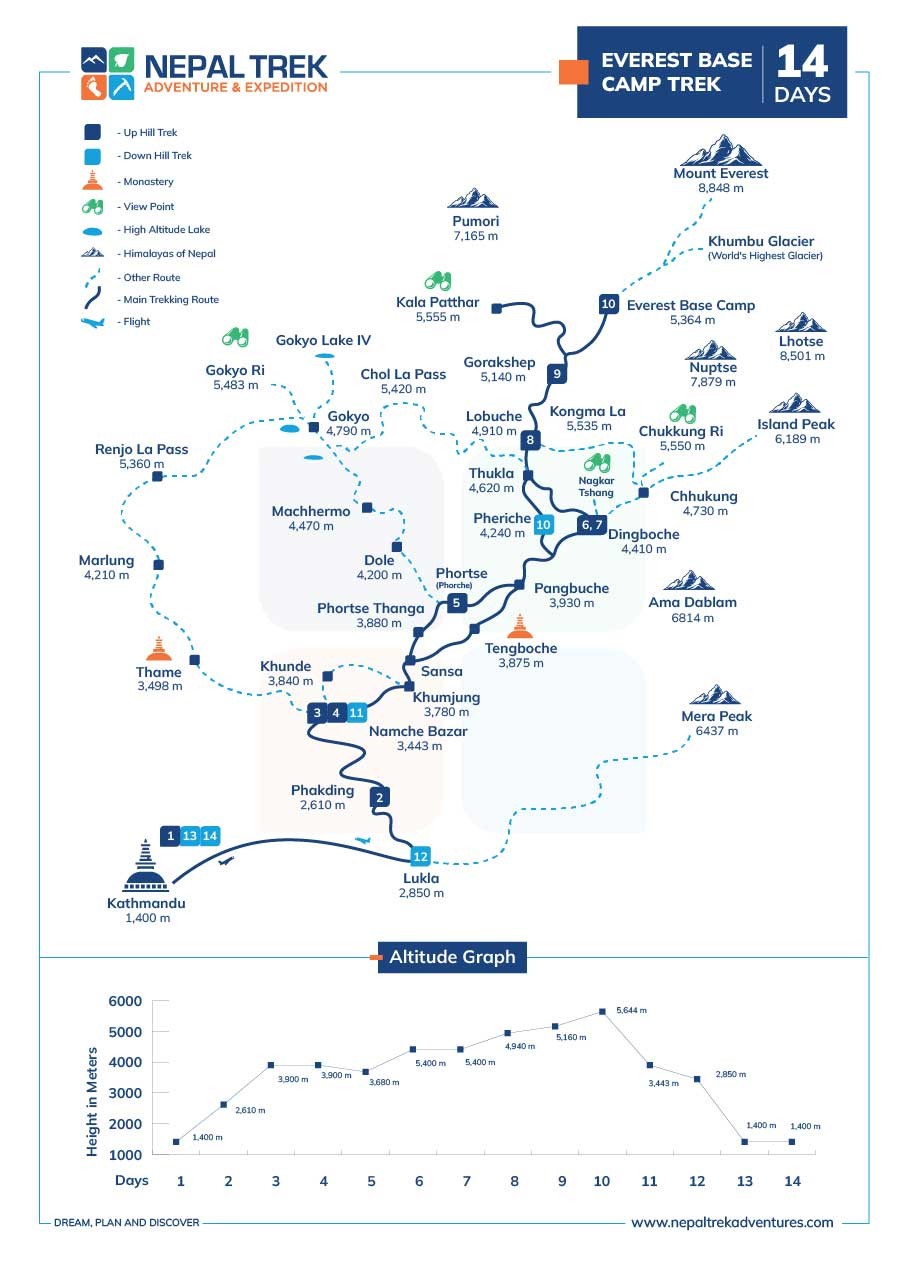
What's Included
Airport pickup and drop-off services.
- International arrival pickup
- Domestic airport drop-off from hotel (Starting of trek)
- Domestic airport Pick-up and transfer to hotel (After the trek)
- International drop-off on your final departure day
A ccommodations Services
- 2 Nights 3 star hotel in Kathmandu on BB Plan (twin-sharing basis)
- 11 nights at local tea houses in the Mountain (on a twin-sharing basis)
Trekking Permit
- Local Government Entry Permit (Trek Card)
- Sagarmatha National Park Permit (Everest Permit)
- Trekkers Information Management Systems Card (TIMS)
Domestic Flights
- Kathmandu to Lukla flight ticket
- Lukla to Kathmandu flight ticket
In case of Lukla Flight Via Ramechhap
- Kathmandu to Ramechhap drive by sharing transportation
- Ramechhap to Lukla domestic flight ticket
- Lukla to Ramechhap domestic flight ticket
- Ramechhap to Kathmandu by sharing Jeep
Food During in Kathmandu/Trekking
- 12 Breakfast: Local and continental choices from tea house Menu
- 13 Lunch: Simple and light lunch in lunch camp tea houses
- 12 Dinner: Veg and Non-Veg Meals of your choice domestic and continental foods from the local tea house Menu
- 1 Farewell dinner in Kathmandu at best restaurant with NTA Team
- 1 Breakfast at Kathmandu Hotel
Guide/Porter Services and Their Liabilities
- First-aid kit box carried by our team
- Trekking guide - English speaking licensed guide with 10 + year of experience.
- Insurances for Guide & Porter (Emergency evacuation and accidental medical expenses)
- All meals for Guide/Porter
- Salary as per the company standard rate (which is recommended by concerned association of tourism industry)
- Local sherpa for carrying your luggage up to 20 kg Maximum (2 Guest Sharing 1 Porter)
What's Excluded
- Nepal visa fees upon arrival in Nepal
- Tips and gratitude to the guides, drivers, porters, other staff, etc.
- Extra-day expenses apart from the scheduled itinerary
- Personal expenses like drinks, laundry, shopping, personal gear, a hot shower, electronic battery recharges, and WiFi
- All the other expenses which not mentioned in cost includes list.
- Travel Insurance : It must be covered for both medical and emergency evacuations with a minimum value of USD 100,000.
Upgrade: Kathmandu to Lukla By Helicopter Flight
Seamless and Scenic Journey: Elevate your adventure with a helicopter flight from Kathmandu to Lukla. For an extra US $350 per person only , experience the thrill of a faster, more exclusive transfer, enjoying breathtaking views along the way. It's not just a mode of transportation; it's a unique part of your Everest Base Camp journey.
Upgrade: Lukla to Kathmandu By Helicopter Flight
Effortless Return: Wrap up your trek in style with a helicopter flight from Lukla back to Kathmandu . For US $350 per person only , make your return journey swift and memorable, avoiding the standard domestic flight. It's a premium way to conclude your adventure, taking in stunning landscapes and maximizing your time.
By opting for these user-friendly upgrades, you tailor your Everest Base Camp trek to align with your preferences , whether it's adding a touch of luxury to your accommodations, embracing the scenic route via helicopter, or ensuring a seamless return journey. The additional costs cover enhanced services and experiences, making your trek not just a destination but a personalized and unforgettable adventure.
Availability & Private Trip
For those interested in joining a group trek , we offer a fixed departure date . However, if you prefer to choose your own date for the trip, we encourage you to explore our Book a Private Trip section, which provides the flexibility of booking on any day of your choice, as private trips offer daily availability .
We provide Porter services only for a minimum booking of 2 or more people . If you are traveling alone, the cost of Porter services is extra . Please apply add-ons to get Porter services for carrying your luggage on a Private Trek or in a Group Joining Trek.
Pick Your Suitable Date
With our Book A Private / Private Group Discount Price, You have full control over your travel dates, you can choose your own departure date. We also provide last minute departure facilites for Everest base camp trek.
If you have a group of more than 15 people , you can get special discounts and an additional complimentary trip for the lead traveler. Please contact us via Call/WhatsApp/Viber at +977-9851017030 or email [email protected] before booking the trip to confirm the departure date.
Book your spot on our best-selling trip today! Spaces fill up quickly, so reserve early to ensure you don't miss out. If you have any questions, feel free to ask later.
Everest Trek Packing List
Preparing for a trek in Nepal, including this iconic Everest Base Camp trek, involves a packing list that remains consistent across various trekking routes in the Himalayas. These gear and equipment lists also resemble those for other treks in Nepal .
We aim to streamline your experience, ensuring you carry only essential items. Explore our comprehensive packing list below:
Base Layers:
- 2-3 moisture-wicking long-sleeved t-shirts
- 1-2 merino wool or synthetic tank tops
- 1 pair merino wool or synthetic long johns
Insulating Layers:
- 1 fleece or wool sweater
- 1 down jacket
Outer Shell:
- 1 waterproof and breathable rain jacket with hood
- 1 waterproof and breathable rain pants
Other Clothing:
- 2 pairs trekking pants
- 1 pair hiking shorts (optional)
- 1 pair quick-drying underwear
- 10 pairs hiking socks
- 1 pair warm thermal socks
- 1 buff or neck gaiter
- 1 pair sunglasses
- Hiking boots : Waterproof and comfortable, with good ankle support
- Camp shoes: Lightweight and comfortable, for evenings at the teahouses
- Duffel bag: 65-75 liters, for porters to carry
- Daypack: 30-40 liters, for carrying your daily essentials
- Sleeping bag: Rated for at least 15°F (-9°C)
- Sleeping pad: Inflatable or foam
- Trekking poles: Adjustable and lightweight
- Headlamp: With extra batteries
- Water bottles: 2 liters capacity
- Water purification tablets or UV treatment system
- Pee funnel (optional, for women)
- First-aid kit: Including medications for altitude sickness, diarrhea, and other common ailments
- Sunscreen: SPF 50+
- Insect repellent: DEET-based
- Hand sanitizer
- Toilet paper and trowel
- Camera and extra batteries
- Book or e-reader
- Playing cards or other games (optional)
- Cash (Nepalese rupees) for tips and emergencies
Additional Tips:
- Pack light! You don't need to bring everything you own.
- Layer your clothing so you can adjust to changing temperatures.
- Break in your hiking boots before you go.
- Bring a copy of your itinerary and insurance documents.
- Be respectful of the local culture and environment.
- Leave no trace.
Internet Access on Mount Everest Trek
Internet access: Yes, you can access the internet at most teahouses and lodges along the Everest Base Camp Trek. However, it will likely be slow and come at an extra charge. The cost of Wi-Fi varies depending on the location, but it is generally around $5–10 per day.
Mobile C onnectivity: The two main mobile network providers in Nepal, Ncell and Nepal Telecom (NTC), offer 3G coverage along most of the trek. You can purchase a local SIM card at Tribhuvan International Airport in Kathmandu or at Namche Bazaar. 3G data is relatively affordable, and it is generally the best option for staying connected on the trek. If you are not able to buy a SIM card in the airport, then let us know and our team will guide you to buy a SIM card in Nepal .
Free Wi-Fi: There are a few free Wi-Fi hotspots along the trek, such as the Starbucks in Lukla and the bakery in Namche Bazaar. However, these hotspots can be crowded and unreliable.
Tips for staying connected on the Everest Base Camp Trek:
- Bring a portable power bank to keep your devices charged.
- This Everest trek is a guided hike; you can hike stress-free. If you have any questions regarding location or any other detail, you can directly ask your trip guide.
- Also Let your friends and family know your itinerary so they know when to expect to hear from you.
- Be prepared to be disconnected for some periods of time. The Everest trek is a great opportunity to unplug and enjoy the scenery!
Accommodation during our Trek to EBC
Our package includes comfortable and cozy tea houses throughout your stay during the Everest Hike. In Which,
Kathmandu: 2 Nights at a 3-Star Hotel on a BB Plan (Twin-Sharing Basis)
Upon your arrival in the vibrant city of Kathmandu, our carefully selected 3-star hotel will welcome you with warm hospitality. On this trip, enjoy two nights (Day 1 and Day 14) of comfort on a bed-and-breakfast basis in Kathmandu.
Before your trek, you can relax and enjoy yourself at the hotel with blend of cutting-edge amenities and warm Nepalese hospitality. You can review the trek packing list while you're here, and if anything is missing, you can purchase it from a local vendor in Thamel, Kathmandu.
Discover Kathmandu's vibrant streets and immerse yourself in its rich cultural diversity, even though you're aware that the historic Everest base camp trek is waiting for you.
In the Mountains: 11 Nights at Local Tea Houses (Twin-Sharing Basis)
As you ascend into the breathtaking landscapes of the Everest region, Our accommodations transition to the heartwarming hospitality of local tea houses. We will stay in tea houses, which are an integral part of the trekking experience. Enjoy 11 nights of twin-sharing living space and immerse yourself in the warmth of Nepali hospitality.
Our tea houses provide a cozy and traditional atmosphere and you can experience the local way of life. We furnish the rooms with comfortable beds and blankets to ensure you have a good night's rest after each day's adventure.
Delight in the simple pleasures as you savor delicious local meals (Dal Bhat), prepared with care to fuel your trekking endeavors. Tea houses in every camp offer stunning panoramic views of the Khumbu peaks. During your stay, you can engage with our local communities and learn about Nepalese traditions.
Food During the Trek to Everest Base Camp
You will need to fuel your body with the right kind of food to keep up your energy levels and maintain your physical endurance.
A wide selection of healthy and delicious options will be available to you. Dal bhat, a traditional Nepalese cuisine consisting of lentil soup, rice, and other vegetables, is the most commonly eaten meal of the day. This meal's abundance of carbs, proteins, and other nutrients will keep you going strong throughout the trek.
Popular Nepalese foods such as Dal bhat , momos (dumplings stuffed with veggies or meat), thukpa (noodle soup), and chow mein (stir-fried noodles with vegetables or meat) will all be available to you. All of these foods are heavy in carbohydrates and proteins, which makes them perfect for maintaining your energy.
It is critical to stay hydrated during trekking, so drink plenty of water throughout the day. Along the way, there are a number of tea houses where you may stop and warm up with a cup of tea or coffee.
Your body's digestive capacity will diminish the higher you go, so eating smaller, more frequent meals will be beneficial. Nuts, chocolate, and energy bars are all great options for high-energy.
Guide to Overcoming Challenges on the Everest Base Camp Trail
The Everest Trek is a moderately challenging but incredibly rewarding adventure. A good level of physical fitness is required because it involves walking for several hours a day, frequently uphill, and at high altitudes. We highly recommend that you keep up a regular exercise routine for weeks before the hike. If you have any health issues, consult with your doctor before starting the hike.
Here are some tips to help you overcome difficulties during the trek and make the most of it:
Physical Preparation
We recommend you start fitness training before your trek. Focus on cardiovascular exercises, strength training, and endurance activities. Incorporate uphill and downhill walking into your training to simulate the trek's terrain.
Altitude Acclimatization
In our package, we have included two acclimatization days at higher altitudes (Namche Bazaar and Dingboche) . It helps you to take your time to ascend, allowing your body to adjust to the decreasing oxygen levels. You can use these days to explore the local surroundings at a slower pace.
Hydration and Nutrition
You may have heard that everyone should drink eight glasses of water a day. Our guides are trained to keep you Stay well-hydrated throughout the trek. We recommend you drink as much water as you can. Consume a balanced diet rich in carbohydrates, proteins, and essential nutrients. Eating light but frequent meals is recommended. Keep a nutrition bar in your day bag.
Pacing and Rest
Rest is essential for acclimatization and overall well-being. Pace yourself during the trek. Avoid rushing to prevent exhaustion and altitude-related issues.
Listen to your body and our guide. Always take breaks as needed.
Proper Gear
We recommend you invest in high-quality, certified trekking gear, including comfortable and sturdy boots, warm clothing, a good backpack, a day bag pack, and other essential equipment. Dress in layers so that you can easily adjust to changing temperatures and conditions.
Mental Preparation
Stay positive and focused. A positive mindset can help you overcome challenges more effectively. If you have any issues that come to mind, kindly share them with our guide.
Our guides and porters are experienced in the Everest region. They can provide valuable insights and assist with logistics, allowing you to focus on the trek itself.
Travel Insurance with Medical Evacuation for Everest Region, Nepal
Getting the right travel insurance is important to make sure that trekking is safe and fun.
There are a few things you should think about when looking for travel insurance for the Everest base camp trek. Make sure that the insurance policy covers high-altitude trekking first, because not all travel insurance policies do.
You should also check to see if the policy covers medical costs, medical evacuation in case of an emergency, and trip cancellation or interruption. These are some of the most important places where you might need help when hiking in high-altitude areas.
Coverage for adventure activities is another important thing to think about. Since the Everest trek is hard on your body, some insurance companies may not cover it under a standard policy because they see it as an adventure activity. So, it's important to check the wording of the policy and make sure that trekking at high altitude is specifically covered.
When choosing travel insurance , it's also important to think about how long the trek will be. The trek to Everest base camp usually takes between 12 and 14 days, but some people choose longer treks that include climbing Island Peak or Lobuche East. In these situations, you may need to buy a policy that covers the whole length of your trip.
When buying travel insurance for the Everest base camp trek, it is best to buy it well in advance, as some insurance companies may require you to buy the policy a certain number of days before the trip.
Also, make sure you have all the documents you need, like your travel itinerary, medical reports, and anything else that may be needed for your insurance company to process your claim.
Required Permits for Trekking to Everest Base Camp
In order for the Nepalese government to preserve the natural splendor that surrounds Mount Everest and the other mountains in the Himalayan range, it is only natural for the government of Nepal to charge an entrance fee and require permits.
Any Nepalese national park, including Sagarmatha National Park, requires a permit to enter. Permits are not expensive compared to the total cost of your trip to Nepal and the Everest Area, and they are an investment in the future of this beautiful area with its snow, forests, glaciers, and cultural landscapes.
Everest treks require entrance permits, which are listed below.
- Entrance Permit for Khumbu Pasang Lhamu Rural Municipality (NPR 2000 Per Person)
- Sagarmatha National Park entry permit (NPR 3000 Per Person)
A Guide to Eco-Friendly Trekking in the Everest Region
Every year, thousands of trekkers and guides make their way to the Everest area. We need to have as little of an effect as possible on this pristine environment. To hike in a more environmentally friendly way, try these steps:
Avoid bringing bottled water: Don't bring bottled water with you on your hike. The bottles that can't be recycled add a lot to the trash problem in the area. If you want to make sure the water is clean, you can bring a Lifestraw, a Sawyer filter, Steripen, or purification tablets with you.
Take out your trash. Carry all of your trash with you and pay extra attention to things like batteries to leave no trace. Think about taking part in the #Carry_Me_Back program. Carry a 1kg bag of trash from Namche Bazaar to Lukla for recycling in Kathmandu.
Respect Local: Be polite to the sherpas, porters, and other trekkers you meet. When you're in monasteries and shrines, be careful how you act and walk around stupas in a clockwise direction.
Our goal is to give our valued guests eco-friendly travel plans. By following these rules, you can always help protect the natural beauty and cultural heritage of the Everest region. So that everyone has a good and long-lasting trekking experience.
Trekking Distance From Kathmandu to Everest Base Camp
The Kathmandu to Everest base camp distance is around 130 Km (80 Miles) round trip—if you take into consideration that, on a typically guided EBC trek , you will only be hiking for 11 days out of 14 days , you'll realize that you are actually walking around 12 km per day .
The number doesn't seem all that high when you consider that the typical Hiking length is between 2 to 3 km per hour . However, the daily distance of 12 kilometers won't be on a level, paved path.
Instead, you will be walking over quite rocky and maybe icy terrain (depending on the time of year and altitude), which is likely to slow you down. It's easy to realize that the walk gets more difficult when you examine the landscape and the fact that you're usually heading upward and gaining elevation.

How Many Days Require for A Trek to Everest?
NTA presents an Everest base camp trek itinerary , which is the best choice for hiking seekers in Nepal. It is the most commonly sold trekking package for hike-lovers.
One’s trekking experience without EBC in Nepal will not be complete, even if you hike the world.
In the Kumbu region, we offer a variety of trekking packages, including one-way treks and one-way ascending treks with flights in between.
Nepal Trek Adventure offers different varieties of EBC trek itineraries starting from a day EBC tour up to 3 weeks regarding desired options.
2 days hike to Everest means a flight to Lukla and a city excursion for the whole day. The next day, you will be picked up by our fleet, and fly to Everest base camp with land at Kalapatthar. So a trek of 3 days gives you an opportunity to trek till Namche Bazar. Namche Bazaar is the district headquarter of Solukhumbu district and also a gateway to Mount Everest.
4 days of trekking on Everest means you have a chance to experience the local Sherpa culture. On your acclimation day, you will get a chance to explore Namche Valley and also take a side trip to Thame. An Everest base camp trek itinerary of 5 days offers almost the same as above. But in addition, you will get a chance a visit Khumjung village, which is an hour away from Syangboche, by hiking.
6 days Everest base camp trek takes you up to Tengboche Monastery. From there you will be picked up by our team to go directly to Everest Base Camp. Likewise, a 7 days trek and an 8-day trek would take you further, and camps would be higher accordingly.
Those who are fit and capable and have previous trekking experiences at higher altitudes can complete the trek in 9 to 10 days or Everest trek with heli return . This trek is more popular recently due to its flexibility with the trekking itinerary and the return back in a helicopter from base camp.
If you are already in Katmandu and have your hotel booked, the standard trekking duration to Everest base camp will count as 12 days . Then we don’t provide hotels in Kathmandu. The 12-day trek starts from the capital of the nation, Kathmandu, followed by a very short (45-minute) flight to Lukla.
Lukla is the initial point from which our march starts. flight from Kathmandu to Lukla itself is a spellbinding experience packed with a lip-locking view of the deep valley, green hills, and smiling mountains. Finally, from Lukla, your official trek begins. The environment that starts from there shows the real beauty of Nepal, which is not possible in hustle and bustle of Kathmandu.
During the trek, you will have an amazing experience in the lap of Mother Nature, experiencing the vista of high mountain ranges, forests, and human settlements . It is the best route that matches your requirements and your expectations about trekking and experience in the Himalayas.
Everest Base Camp Trek Weather (January to December)
Everest base camp trek booking procedure.
To book an Everest base camp trek , you have to visit the listed fixed departure, select a preferred trip type, and proceed with the necessary steps. Once you complete the booking, you will get a confirmation email.
In case of any issues, you can reach out to us on Whatsapp (Binod) and send a prompt inquiry regarding your desired trekking experience. We can also personalize the trek package to align with your specifications.
For a confirmed departure on your chosen trip date, 100% payment of the cost is required. However, if you wish to secure your trek without full booking, a minimum of 50% of the total trek package cost should be paid, depending on the nature of your fixed departure tour or customised itinerary.
Also, a minimum of 50% of the booking amount is needed for treks that involve multiple domestic flights, a Special Permit (Restricted Area Permit), or 4-star hotels in mountain areas or cities. The remaining 50% payment can be settled at our head office in Kathmandu or upon arrival in Nepal before your scheduled trek departure.
Everest Base Camp Trek Cancellation Policy
Nepal Trek Adventures strives to provide the best and most reliable services to our customers. We do not typically cancel treks, but we must inform you that there is a minimum chance (1%) that we may need to cancel group joining treks, even at the last minute. However, we have not had to cancel any treks from our side thus far.
We understand the value of our customers' time and effort in planning for their trips, and as such, we offer flexible options for postponing trips without any extra fees applied to the full cost of the tour.
We may have to cancel the trip, though, if something happens that is out of our control, like a natural disaster, bad weather, an outbreak of a virus, a political crisis, or anything else.
Our cancellation and refund policy applies in such cases.
- We offer free cancellations up to 90 days before the tour departure.
- For cancellations made 89 days or more before departure, we will charge 30 percent of the total tour cost.
- For cancellations made 50 days before departure, we will charge 40 percent of the total tour cost.
- For cancellations made 20 days before departure, we will charge 50 percent of the total tour cost.
- For cancellations made less than 20 days before departure, we will take 75 percent of the total tour cost as a cancellation charge.
- Once the trip departure date has arrived, no refunds will be made.
Everest Base Camp (EBC)
Everest base camp is the starting point for climbing Mount Everest. EBC serves as the starting point for climbers who attempt to summit Mount Everest, the highest mountain in the world.
Climbers use the base camp to acclimatize to the high altitude, organize gear and supplies, and plan their ascent. It offers trekkers an opportunity to experience the natural beauty of the Himalayas, including snow-capped peaks, glaciers, and high-altitude lakes.
The trek to EBC is a challenging adventure that requires physical fitness, mental stamina, and determination. For many trekkers, reaching EBC is a personal achievement and a source of inspiration.
There are two main camps Mount Everest: South Everest Base Camp (Nepal) and North Base Camp.
South Base Camp is the main camp for climbers attempting to summit Mount Everest via the South Col route . Commonly known as Everest Base Camp (EBC). It is in the Nepalese side of the Himalayas . EBC is lie at an altitude of approximately 5,364 meters (17,598 feet) above sea level. South Everest Base Camp is accessible by a multi-day trek from the town of Lukla. It serves as a hub for climbers to acclimatize, organize gear and supplies, and plan their ascent.
North Base Camp is located on the Tibetan side of the Himalayas. It is also used by climbers attempting to summit Mount Everest via the North Col route . It is situated at an altitude of approximately 5,150 meters (16,900 feet) above sea level. It is accessible by a drive from the town of Tingri.
Frequently Asked Questions
Q1. is the everest base camp trek worth it.
Yes, the Everest base camp walk is worthwhile since it will provide you with lifelong memories of the most breathtaking Himalayan scenery and many more. It is an incredible accomplishment and well worth the effort to hike to the foot of the tallest mountain in the world.
Q2. Is the 14 days Everest base camp trek dangerous?
Although climbing Everest is dangerous, the trek to Everest Base Camp is typically relatively safe , you go with a skilled team. Tragedies that are reported on Everest typically occur significantly higher on the peak. However, every mountain carries a certain amount of risk.
Q3. What are the permits required for Everest Base Camp Trek?
Two permits are required for the Everest Base Camp Trek. They are the Sagarmatha National Conservation Permit and Trekkers' Information Management System (TIMS) Permit , which cost around $25.
Q4. How hard is the Everest Base Camp Trek?
The trek to Everest Base Camp is moderately challenging . Two weeks are usually required for the trek. Although no prior trekking experience is necessary for the EBC Trek, it is advised that the trekker be determined and in good physical health.
Q5. Can I do Everest Trek?
Yes, anyone can do this Everest base camp trekking but you must be physically and mentally fit. Many inspirational people from all across the world have hiked to Everest Base Camp despite having physical limitations. Dare to do t and make your dream come true.
Q6. Where does Everest Base Camp Trek start?
The Everest base camp trek mostly starts from Lukla airport after flying from Kathmandu airport. Another popular starting point of the trek is from Jiri where Edmund Hilary had started. Nowadays, almost all companies and trekkers start from Lukla
Q7. Should I Do Everest Base Camp Trek?
There are many reasons to hike to Everest Base Camp, but if you enjoy hiking and adventure, you must do it once in a lifetime.
Q8. How much does Everest Base Camp Trek Cost?
The 14 days Everest base camp trek cost $1450 per person for the years 2024, 2025, and 2026 from Kathmandu. It may vary sometimes depending on the route, the outfitter, and their services. The cost of the luxurious trekking package and the helicopter return will be slightly more than the cost of the normal packages.
All inclusive Everest base camp trek cost ranges start from $1250 up to $1800 per person with Nepal Trek Adventure. The EBC trek cost includes permits, TIMS card, guide, and porter cost, round-trip flight from Kathmandu to Lukla, accommodation, meals, and drinks. The cost generally excludes travel insurance, visa fees, trekking equipment, other personal expenses, and required kinds of stuff.
Q9. How long does the Everest base camp trek take?
The tota l Everest Base Camp Trek Package is 14 days long from Kathmandu. Of those 14 days, it takes 11 days to get to Everest Base Camp and back to Kathmandu including 2 days of acclimatization.
Q10. How far is Everest Base Camp Trek?
The traditional Everest Base Camp trek, starting in Lukla, is 130 kilometers long and 65 miles each way. The trek lasts 14 days and involves an average daily walking distance of 10 km.
Q11. How Crowded is Everest Base Camp Trek?
Everest base camp is more crowded during the trekking seasons . Due to peak times at the Base Camp, it can be difficult to get lodgings sometimes.
Q12. What to wear and Pack for the trek to Everest base camp?
First, there is no technical equipment required for the hike to Everest Base Camp. There are several trekking needs that are listed on our website and vary depending on the season. Click here for the proper trekking checklist.
Q13. What shoes or boots for Everest Base Camp Trek?
There are numerous types of amazing, lightweight, waterproof boots that are perfect for the walk. Compared to regular shoes or running shoes, hiking boots are more comfortable. For the trek to Everest base camp, shoes that support the ankle are recommended .
Q14. What currency for Everest Base Camp Trekking?
During the Everest base camp trek, Nepalese currency is used , which is easily exchangeable at the airport, Thamel, or any other money exchange. Always bring cash with you on the hike. Since cards are rarely accepted, it is best to have cash with you.
Q15. Is it possible to trek to Everest Base camp and fly back by Helicopter?
Yes, it is possible , and sometimes, people use helicopters to return to Kathmandu. It is better to take a scenic flight if you have to return via the same traditional trek route. If you want to trek to Everest Base Camp and take a helicopter ride back, you can also book an Everest base camp luxury trek .
Q16. How to prepare to trek to Everest Base Camp?
Firstly, it's best to book a longer itinerary trek so that you can finish it at your own pace. It is best to engage in some physical activity before starting on a lengthy trek, such as swimming, cycling, and so forth. Always pack lightweight, comfortable hiking gear . Since the EBC trek is a moderate trek, you don't need to worry too much about preparing.
Q17. What are the health requirements for the Mt. Everest Base Camp Trek?
The Mt. Everest base camp trek is a challenging but rewarding experience. It is important to be in good physical condition before attempting the trek, and to be aware of the health risks involved.
Q18. How high is Mount Everest?
Mount Everest is the worlds highest mountain on earth at an altitude of 8848.86m/29032ft.
Q19. Why do you need to trek to Everest Base Camp?
Everest Base Camp is a popular hiking destination in Nepal and worldwide. It leads to Mount Everest's basic campground. EBC trekking in Nepal allows you to experience the unique culture and traditions of the Buddhist and Tibetan people as you pass through ethnic villages and towns like Lukla, Phakding, Namche Bazaar, Pheriche, Tengboche, Dingboche, and Gorakshep. Due to the Himalayan services and local warmth, travelers return to Nepal for EBC trekking.
Q20. How long does it take to trek to Everest Base Camp?
The Everest Base Camp trek typically takes 10-14 days to complete. The first few days of the trek are spent acclimatizing to the high altitude, and the final days are spent hiking up to Everest Base Camp. We have several package in which you can do Everest Base Camp trek in 5 to 7 Days.
Q21. How difficult is the Everest Base Camp trek?
The Everest Base Camp trek is considered to be a moderate trek. It is physically demanding, but it does not require any technical climbing skills. However, it is important to be in good physical condition before attempting the trek.
Q22. What is the best time to trek to Everest Base Camp?
The best time to trek to Everest Base Camp is during the spring ( March-May ) or autumn ( September-November ) seasons. The weather is mild during these seasons, and the views of the Himalayas are stunning.
Q23. What is the cost of trekking to Everest Base Camp?
The cost of trekking to Everest Base Camp varies depending on the length of the trek, the type of accommodations, and the services that are included. However, it is generally a 1400$ to 4000$, depending on type of trek.
Q24. What are the health risks associated with trekking to Everest Base Camp?
The main health risk associated with trekking to Everest Base Camp is altitude sickness. Altitude sickness is a condition that can affect anyone who travels to high altitudes. Symptoms of altitude sickness include headache, nausea, vomiting, dizziness, and shortness of breath. If you experience any of these symptoms, it is important to descend to a lower altitude immediately.
Q25. What are the safety risks associated with trekking to Everest Base Camp?
The main safety risks associated with trekking to Everest Base Camp are avalanches, landslides, and falling rocks. It is important to be aware of these risks and to take precautions to stay safe.
Q26. How to reach Everest Base Camp?
The two most popular ways to reach Everest Base Camp are via Jiri and Lukla . Trekkers must fly into Nepal's capital city of Kathmandu, drive all the way to Jiri, and then walk a steep ascent to the Everest Base Camp. The expedition's time to reach Everest will be extended by a few weeks as a result.
Lukla will be another quick and well-liked route to Everest Base Camp. Trekkers can take a quick flight to Lukla, walk all the way uphill to Everest base camp, then return to Kathmandu through Lukla. From Kathmandu to Kathmandu, it will be a 14-day hike that is easy-going.
Q27. Is the trek to Everest base camp easy?
Everest base camp trek is considered a moderately difficult trek . Although the trek to Everest Base Camp won't be easy, it isn't a difficult ascent as well , and if you're in good physical and mental shape, you should be able to handle the task. This journey takes place at a high altitude and lasts for at least 10 to 12 days.
Q28. Do I need a guide for Everest Trekking?
Taking a guide is compulsory for the Everest Base camp trek but it's highly recommended . As you climb higher into the Himalayas, there is a chance of avalanches and heavy snowfall, making the Everest journey a difficult task.
Q29. How cold does Everest Base Camp get?
Winter temperatures on Mount Everest range from -37°F to -34°F . At night, Everest Base Camp averages -5 to -12 degrees Celsius. Days are warmer at 4°C .
Q30. What kind of food and water we get from Everest Base Camp Trek?
You can order meals from the menu while on the hike. The trek's meals are delicious, fresh, and healthy. Both national and international cuisines offer a wide range of choices.
Drinking water is typically not included in trek costs, so purchase some water filtration tablets or water purifiers to cleanse the water. You may simply fill up on running water and tap water at tea shops or buy mineral water.
Q31. Is trekking to Everest base Camp safe?
Yes, the trek to Everest base camp is safe . There are many lodges and tea houses along the route where you can stay the night. In addition, hotels are tidy and offer hygienic meals. If you are physically capable of hiking for about 6-7 hours per day at a high altitude, EBC is at your feet. You can find trekking maps and directions indicating the whereabouts of several Everest regions all along the way. Because of this, Everest is a safe place to visit, and the native Sherpas are helpful and kind. They always open their arms wide to welcome guests
Q32. How many people can you bring along for this walk to Everest base camp?
For this Everest base camp trek, the 12-person group is considered to be the best . However, NTA can also make arrangements if your group is larger than 12.
Q33. Can you get to Everest Base Camp by car?
It's not possible to drive by road directly to Mount Everest base camp . You can travel from Kathmandu to Jiri and then continue your 19-day hike to the Everest base camp and back. Similarly, you can fly to Mount Everest base camp by helicopter route after finishing the hiking part or can also return back to Kathmandu by helicopter. Alternatively, you can take a direct helicopter flight from Kathmandu to the Everest base camp and finish the trip in 4 to 5 hour
Q34. When is the best time to trek to Everest base camp?
The best time to trek to Everest base camp is Autumn and Sring as these seasonal have favorable weather and offer a beautiful view of mountains and natural topography.
Q35. Is it worthwhile to visit Everest Base Camp?
A trek to Everest Base Camp is a common desire for hikers, and the Everest region is a stunning location to visit. A tremendous accomplishment, reaching the foot of the highest mountain in the world is definitely worth the effort . Most people believe that the benefits of walking on more crowded pathways outweigh the disadvantages.
Q36. Can I take a hot shower during my Everest Base Camp Trek?
The short answer is yes, you can take a hot shower during your Everest Base Camp Trek. However, there are a few things you need to know:
- Hot showers are not available in all of the teahouses (lodges) along the EBC trail.
- Hot showers are typically more expensive than cold showers.
- Hot water is often heated by solar power, so it may not be available if it's been a cloudy day.
- Hot showers can be a luxury on a long and challenging trek, so it's up to you to decide if they're worth the extra cost.
Q37. Is it difficult to breathe when trekking to Everest Base Camp (EBC)?
The short answer is yes, it can be difficult to breathe when trekking to EBC. The air is thinner at high altitudes, which means that there is less oxygen available to breathe. This can cause shortness of breath, fatigue, and headaches.
The best way to deal with the altitude is to ascend slowly and give your body time to adjust. It is also important to drink plenty of fluids and eat a healthy diet. If you experience any of the symptoms of altitude sickness, such as headache, nausea, or vomiting, it is important to descend to a lower altitude immediately.
Here are some tips for breathing easier when trekking to EBC:
- Take your time and don't rush.
- Breathe deeply and slowly.
- Drink plenty of fluids.
- Eat a healthy diet.
- Get plenty of rest.
- Be aware of the symptoms of altitude sickness and descend to a lower altitude if you experience any of them.
With proper planning and preparation, you can enjoy your Everest Base Camp Trek without any breathing problems.
Q38. What is altitude sickness in Everest Base Camp Trek?
Altitude sickness may occur on high-altitude treks like Everest base camp, which also depends on the health of hikers and trekkers.
Due to altitude sickness during the Everest Base Camp Trek, the health risks of decreasing oxygen levels start to show in hikers at high elevations (1,500–3,500 meters). High altitude has a negative impact on performance and makes breathing harder.
Q39. How crowded is the journey to Everest base camp?
The Everest Base Camp trek route can get fairly crowded during peak seasons due to its growing popularity in recent years. Every year, up to 30,000–40,000 individuals travel to Everest Base Camp! Up to 500 people can set out on the trek route each day at the busiest times of the year.
Q40. Do I need travel insurance for Everest Base Camp Trek?
Yes, you will need travel insurance for the Everest Base Camp Trek . Purchase travel insurance, and make sure it covers you at altitudes more than 5000m.
Q41. Does the trek to Everest Base Camp provide WiFi?
Everest Link offers your WiFi service in the Everest region. You must pay, though, to use WiFi. The price could change. Depending on where you are, they may charge $5 or more.
Q42. How much money to take on Everest Base Camp Trek?
Normally, once you've made a booking with the company, the cost of your meals and lodging will be covered. It's better to carry approximately $200 USD for your shower, beers, refreshments, and other personal expenses during the journey.
Q43. When you hike to Everest Base Camp, do you lose weight?
In all honesty, a 12-day walk along the Everest Base Camp Trails that involves climbing and descending at a high altitude for 8 to 9 hours each day will inevitably result in a weight loss of 5 to 6 kg . However, how much weight you lose on the walk will depend on how much food, water, and rest you consume.
Q44. What are the everest Base Camp Trek packing list for the female trekker?
The Everest packing list for the female traveler is listed on our website. click the link , Everest base camp trek packing list.
Q45. On your trip to Everest base camp, where do you stay?
The accommodation is the same along the Everest Base Camp Trek route. You will be staying in lodges or teahouses with minimal amenities.
Q46. How many porters and guides will I need for the trek to Mount Everest base camp?
On the Mount Everest trek, one guide and one porter will be accompanying 2 guests . The purpose of this setup is to make sure that the Everest base camp package functions properly. It ensures that the trip will still go as planned even if one travel companion gets sick.
Q47. Does the Everest base camp have toilets and showers?
The majority of visitors look at the bathrooms or showers first when choosing a location to stay on their trip to Everest Base Camp. It's because a nice stay depends on a good, clean bathroom. Bathrooms and toilets are essential for both human and environmental health. Most lodges have restrooms and showers , but if you want a hot shower, you have to pay a charge and then you'll get a bucket of hot water.
Q48. When to do Everest Base Camp Trek?
March, April, May, October, and November are the most popular months for trekking in the Everest region because they are the months with the best weather.
Q49. What are the accommodation for 14 days trek to Everest base camp?
Apart from the hotel in Kathmandu all of the accommodations on the Everest Base Camp Trek route are likely to be teahouses . The EBC teahouses in Nepal offer simple, clean, and comfortable lodging.
Q50. What are the things to carry during the climb to Everest base camp?
Walking shoes/trekking boots, socks, pants, shirts, T-shirts, skirts, warm sleeping bag and jacket, water bottle and Trekker's bag, flashlight, toiletries, lighter, sunglasses, handbag/day bag, shaving paraphernalia, woolen hat, long underwear, trekking boots, sun cream and sandals, umbrella, raincoat, waterproof jacket, walking shoes with new waffle soles, and plastic sheeting for covering the bag.
Q51. Can I take a helicopter to Everest base camp?
Yes, you can take helicopter to Everest base camp with additional cost. It takes only maximum 2 to 3 people in one shuttle. It is because you will find less air in base camp and helicopter cannot takeoff with heavy load. Everest base camp helicopter landing cost would be $ 500 extra per person.
Q52. Can you trek alone to Everest Base Camp without a guide?
Yes. You can trek to Everest Base Camp without a guide . Although you can climb this trail on your own, we advise using the local Sherpas. This not only helps a vital industry but also provides you with insider knowledge that will improve your trip significantly
Q53. Is the Everest base camp trek open?
Yes, the Everest base camp trek is open and everyone is welcome to participate in the trek. Nepal has officially reopened to tourism in 2021 after the covid outbreak, but all visitors must be vaccinated and must have a negative covid test within 72 hours of their first flight departure.

- Reserve now and pay later
- Change dates
- You can pick a different tour
- Trip transfer to your friends
- We accept PayPal payment
- 24 hours response time

Binod Sapkota
What our clients say, everest base camp journey in nepal.
About my experience doing the Everest Base Camp journey: It was fantastic! You could tell straight away that when we arrived in Kathmandu, the NTA was exceptional. We were welcomed with warm regards and escorted to our hotel in the shortest time possible. The city tour the next day was very interesting and definitely gave us a taste of Nepali culture before we headed out on our adventure. The trek was tough but also very rewarding. Shiva, our guide, was an excellent guy; he is a follower of safety first and comfort. The teahouses during the trek were homely and offered delicious food. On the ninth day, we made it to Everest Base Camp. I can't put into words how good it felt. It was worth every step because we could see the Himalayas. I strongly advise Nepal Trek Adventure! There is nothing you need to worry about because they took care of everything. This trip would not be as memorable without their help.

14 Days Trek to Everest Base Camp
I recently returned from my 14-day trek to Everest Base Camp with NTA, on which I had the time of my life. From when the original briefing was held in Kathmandu to our return, anything associated with it went perfectly. The leadership was competent and warm, with a constant smile ready at hand. Every single day came with its own struggles and beautiful sites. Great thought was put into the plan for acclimatization days so we were not hit too hard by altitude. The pinnacle point is coming into Base Camp. The feeling of accomplishment and literally seeing Everest were amazing. I was well cared for with Nepal Trek Adventure. This is the perfect trek for any adventure seeker. I highly recommend this trek to everyone who wants to escape the hectic life and relax in nature with minimal facilities.
Overall Rating

Why travel with Nepal Trek Adventure?
Nepal Trek Adventure and Expedition is one of the best local travel companies based in Kathmandu with leading adventures.
Our experienced guides have extensive knowledge of the local area and culture, ensuring a safe and authentic adventure.
Our team is dedicated to providing exceptional customer service, from personalized trip planning to attentive support throughout your journey.
We understand that travel plans can change, which is why we offer flexible itineraries and customizable tours to meet your specific needs and preferences.
We strive to provide the best value for your money, with competitive pricing and transparent, all-inclusive pricing that eliminates hidden fees.
Get Your Free Guide Now
Download a detailed PDF with all the information you need to plan an enjoyable vacation in Nepal.
We use cookies to ensure that we give you the best experience on our website.

Magic Treks Pvt. Ltd.
Quick Questions? Email Us
Talk to an Expert (Rewati)

Please share your experience if you have already travelled with Mountain Magic Treks Pvt. Ltd.

EBC Trek Standard Package
Trip overview.
- Based On 9 Reviews
Key Information
Breakfast/lunch/dinner, moderate to adventurous.
Accomodation
4 Star Hotel In Kathmandu and Teahouse in mountain
Transportation
Private Vehicle/Flight
Best Months
Feb-May/Sep-Dec
Max Elevation
Trip Length
Starts/Ends
Kathmandu/Kathmandu
Trekking Style
Standard room in Tea House
Acclimatization
Activity Per Day
5-6 Hours Per Day
Trekking Region
Everest Region
Trek highlight:.
- Panoramic View of several peaks with Everest
- Explore in the Sherpa Village and enjoy with culture and tradition
- Leave your footprints at the base of the world's tallest mountain
- Enjoy panoramic views of Everest, Nuptse, Lhotse and other peaks from Kala Patthar
- See Nepal's largest glacier, Khumbu Glacier
- Learn about the lifestyle and traditions of the Sherpa community
- Exciting flight to Lukla, gateway to Mt. Everest Base Camp
- Nice and beautiful suspension bridges with a walk into the pine forest
- Best views on daily walks to Everest Base Camp
- Short flights with a nice view of the Himalayas and tour of the monastery
- From the alpine forest of pines and rhododendron trees rugged arctic zone of ice and glaciers
Trip Overview of Everest Base Camp Trek All Inclusive Standard Package
Everest Base Camp Trek All Inclusive Standard Package 14 days is an exciting journey that takes you through majestic Himalayan vistas and routes rich in Sherpa culture. You can trek through suspension bridges to visit hidden Buddhist monasteries.
Everest Base Camp Trek takes you on an adventure at the base of Mt. It is located in the Solu-Khumbu district of the Everest region of Province 1. EBC's trekking route also passes through Everest National Park.
The 14 days itinerary offers you great pleasure by giving you a close view of Mount Everest from multiple perspectives. You can also see other magnificent peaks like Lhotse, Nuptse, Pumori, Aba Dablam, and more.
The Everest region is mainly inhabited by the Sherpa community. Although there are other castes such as Rai, Limbu, Gurung living here, the population is low. However, most of these people follow Tibetan-influenced culture and traditions.
Trails take you to the base of Mt. Everest, but it is not the highest point. There is another destination that is located at a higher altitude, and that is Kala Pathra. This place is famous for its sunrise and panoramic view.
You can also enter the famous Everest National Park. The forest trails are home to various species of plants and endangered animals that can be seen during the trek.
The trek is 14 days long, so two days are kept for acclimatization. During this time, you do not rest but visit the famous Everest View Hotel, Khunde Hospital, Khumjung Monastery. Also, you will visit Chukung Ri or Nagarjuna Peak.
This moderate trek begins with an exciting flight adventure to Lukla with breathtaking views of hills, valleys and mountains. Then you start trekking to Phakding for the night.
The next day, you will head towards Namche Bazaar, the hub of the Everest Region. You are friendly here, so enjoy side trips to Khumjung, Khunde and Everest View Hotel.
The next day, you will go to Tengboche and later Dingboche, where your next adaptation will be completed. During your stay here, you will go trekking to nearby peaks.
After a beautiful time in Dingboche for acclimatization, you now walk to Lobuche and prepare for the trek to EBC. You visit Gorakshep the next day and then trek to Everest Base Camp and return back to Gorakshep for overnight.
From there you descend to Pheriche, then Namche, and finally reach Lukla. From Lukla, you return to Kathmandu ending your 14 days Everest base camp trek.
Trekking to Everest base camp is a once in a lifetime trip, so grab this opportunity and live your dream of trekking in the mountains.
We are selling several related trekking packages for Everest Base Camp Trekking, please check them out below:
If you want to opt for a 5-star hotel stay during the EBC trek, we have a luxury lodge trekking package .
Otherwise, are you short on time or want a comfortable walk? Take a helicopter back to Kathmandu from Everest Base Camp. First, Short Trek to EBC and return to Kathmandu by helicopter from Everest after the trek.
Finally, if you also want to climb a 6,000-metre peak on the way, we allow the Island Peak Climb after the EBC hike .
Moreover, if you want to challenge yourself with a tough trek, including a visit to the Everest base camp, opt out for the Three Passes trek .
As an alternative, we also have the Chola Circuit Trek , which includes a trek to Gokyo Lake, Chola Pass, and the base camp.
Above all, in this trekking package, we use the classic and most popular Everest Base Camp Trek 12 days
We can run a trip for solo travelers, couple, friends and family with children. Our private trips are running every day. If you are looking for a small group trip please contact us .
EBC Trek Standard Package Itinerary
Welcome to Nepal today. As soon as you enter the country you will catch a glimpse of the towering Himalayas with its mesmerizing scenery. While flying near Kathmandu, you can see the city full of houses in every corner. After landing, you will find our officers waiting for you in the airport terminal. They will collect you and take you to the hotel where you will be staying. A brief introduction session will then be held in the lobby, after which an officer will assist you in checking into your room. You have the rest of the day as there are no more plans on our schedule. You can visit the local store, pub, club, or nearby market in your free time.
Kathmandu is a beautiful city from which you can visit. There are many UNESCO heritage sites around the valley, mainly religious sites and ancient palaces. If you have an extra day or two, you can add a full day in and out of Kathmandu Valley. The next day is the start of your 14-day Everest base camp trek, so fill your stomach and go to bed early.
Drive Duration: 4 hours Flight Duration: 25 minutes Trek Duration: 3 hour Trek Distance: 7 Km Starting Point: Lukla (2,840m) Ending Point: Phakding (2,610m)
Today, you begin your 14-day Everest Base Camp trek, so wake up early, freshen up, and wait for your leader in the lobby. They will soon come to pick you up and drive you to the airport, where you will take your flight to Lukla.
The flight from Kathmandu to Lukla is scenic with breathtaking Himalayas and green hills. The ride is nerve-wracking but fun to land at one of the most exciting airports in the world.
After landing, you collect your luggage, meet the rest of the crew, and have breakfast. Lukla was once a farming village, but has become a pedestrian town with many cafes, accommodation and shops.
After a hearty meal, you now head north, passing many businesses and giant yaks. The trail takes you through a wide and well traveled trek with some suspension bridges and stone steps.
Since Phakding is lower than Lukla, today the trails are mainly downhill. You walk down the streets of Lukla and head to the ticket office to get your local permit before exiting the city.
Then moving downhill through stone steps and terraced hills, you reach the Dudh Koshi River and cross it using a suspension bridge. You then continue hiking through the beautiful forest and pass several prayer flags.
Then after several ups and downs, you descend a bit on the trails and arrive at Phakding. This beautiful village offers many side trips such as visiting the nearby monastery or walking along the river.
Please Read: Lukla Flights are departing and returning to Ramechhap instead of Kathmandu due to ongoing upgrades at Kathmandu Airport. Its about a 4 hour drive to Ramechhap from Kathmandu so we will get started for the airport around 2 am. The return drive at the end of the trek is between 4 and 6 hours depending on traffic.
Trek Duration: 6 to 7 hours Trek Distance: 12.Km Starting Point: Phakding (2,610m) Ending Point: Namche Bazaar (3,440m)
Today go to Namche Bazaar from Phakding. After breakfast, the day begins by crossing the suspension bridge over Dudhkoshi River.
Then you walk along the river bank and walk through a beautiful lush forest of rhododendrons and pines. After an hour or two, you reach Monzo and make your way through beautiful farmlands. On the way, you pass typical Sherpa villages and several suspension bridges. Thamserku, Khumung Peak, Kongde Peak and other sights greet you as you progress on the trek.
With a steep climb, you reach the Everest National Park checkpoint, where you show your permit. Then after 20 minutes or so, you get to Jorsalle, where you stop for lunch. After lunch, you move on, cross some bridges and reach the famous Hillary Suspension Bridge. You cross this bridge again and climb steeply to be greeted by your first glimpse of Mount Everest.
Taking in the beautiful scenery, you head north and arrive at Namche Bazaar. This beautiful Sherpa town is the hub of the Khumbu region and a stopping point for trekkers. You must be tired, so you can take a quick rest or walk around if you have the energy.
Your first match is held here at Namche Bazaar. It is the best place to relax before climbing to higher altitudes as the city has many areas that you can visit for side trips.
So, after breakfast, you get ready for the trek. Adaptation days are called rest days, but you don't sleep or sit still all day. Instead, you walk around and familiarize yourself with the current elevation. Today you walk around Namche Bazaar, walking to Khunde, Khumjung and the world's tallest hotel, Everest View Hotel. This hotel is only 400 meters above Namche, so it is about an hour.
You head out of town as you take the steep stairs and quickly rise to the top only to be surrounded by amazing mountain views. Walking a little further, you will reach a viewpoint to see Everest and Lhotse.
After walking steeply for half an hour, you reach a ridge, and the terrain flattens out from here. We continue on the road passing small villages, bridges and prayer flags to reach Khunde and Khumjung.
These two beautiful villages are close to each other, surrounded by picturesque landscapes. Reaching these places, you visit Khunde Hospital, Khumjung Hilary School, and Khumjung Monastery.
After exploring the areas, you return, retracing the steps to Sangboche, and climb steeply to the Everest View Hotel for lunch (Lunch will be your own expenses) . This excellent hotel is hidden among the trees while offering a close view of Mount Everest.
You enjoy your food and hot drinks while overlooking the majestic peaks and valleys. After spending some time here, you will now proceed to Namche Bazaar for the night. Today you see many peaks like Mount Kangtega, Mount Kwangde, Mount Nuptse, Mount Ama Dablam, mount Thamserkhu and villages Tengboche, Pangboche, and Phortse are in fron of you. Arriving in Namche, you can wander around town as it is the last stop with wifi and cafes.
Enjoy your time here and sleep early as you have a busy day.
Trek Duration: 5 to 6 hours Trek Distance : 9.5Km Starting Point: Namche Bazaar (3,440m) Ending Point: Tengboche (3,860m)
After enjoying time at Namche, now you resume your journey towards Tengboche. You get ready, eat breakfast, and make your way up the stone steps from town.
After about an hour or so of climbing, you reach a flat trail that offers an amazing view of the landscape. Then continuing the walk along the endless ridgeline, you slowly descend to the Dudh Koshi river. Then crossing the river, you pass a beautiful chorten with prayer flags and stop for lunch. A magnificent view of Thamserku along with other peaks can be seen from this place.
Beyond this, you proceed further and reach Sanasa, the junction of the Gokyo and EBC treks. From here, you follow a short path to Pungi Thanga and later cross suspension bridges over the Dudh Koshi River. On the way, you pass several water-powered prayer wheels and pass through dense forest to the checkpoint. Then climbing uphill through a dusty path, you arrive at the gate of Tengboche.
Tengboche is a small village lies in altitude of 3867m in the hill with a beautiful monastery. After checking into your room, you will proceed to the beautiful monastery with an incredible view of the Himalayas in the background.
Gokyo Lake trekking trail can also be seen from here. Enjoying the sunset view then you return to your hotel.
Trek Duration: 5 to 6 hours Trek Distance: 11.Km Starting Point: Tengboche (3,860m) Ending Point: Dingboche (4,410m)
You wake up early, get ready, have breakfast, and go back to the monastery to pray for a successful journey. Then descend through a dusty forest path to reach Pangboche.
From this village, the road starts going uphill through chawri herds and pastures. Then you walk for a while and cross the river. The trail continues again with another steep climb to a vantage point that gives you an exotic view of Mount Ama Dublam. You have lunch here and continue to slowly climb the trails for half an hour to reach Dingboche.
Dingboche is a beautiful but important settlement with many lodges and attraction points, unlike Tengboche. You're comfortable here, so you can go sightseeing the next day.
This is your second acclimatization on the 14-day Everest base camp trek. Today, you trek up to Chukung Valley, then trek to either Chukung Ri or Nagarjuna Peak.
You start your hike early in the morning after a hearty breakfast. At the start, you walk up a steep slope overlooking the ranges of Lobuche West, Lobuche East, Thamserku, Ama Dublam, and more. Then, slowly climbing the trails, you reach the Chukung Valley. From here, you decide to climb Nagarjuna Peak or Chukung Ri. These places are scenic spots offering panoramic views of valleys, landscapes and mountains.
You spend some time here enjoying the view and later descend to Dingboche for lunch. After a delicious meal, you can now wander around the village and explore the farmland.
Trek Duration: 4 to 5 hours Trek Distance: 11Km Starting Point: Dingboche (4,410m) Ending Point: Lobuche (4,910m)
After waking up, you have breakfast overlooking the Himalayas and later begin the trek. On leaving the settlement, two huge peaks (Tabuchi and Arkam) tower to the left.
Looking at them, you slowly make your way up the roads while surrounded by mountains and valleys. A few tea houses can be seen while walking slowly under the warm sun and reaching Thukla. You have lunch here and start the trek again by climbing the steep trail up to Dugla Pass (4830m). On reaching the top, you will see a memorial park and pass it as you continue on the paths.
Trekking higher along the way, you reach the glacial moraine of the Khumbu Glacier. Then proceeding from there, you come to Lobuche in about 30 minutes. Upon arrival at your destination, freshen up and head outside to breathe some fresh air while exploring.
Trek Duration: 7 to 9 hours Trek Distance: 15Km Starting Point: Lobuche (4,910m) Ending Point: Gorakshep (5,125m) Highest Point: Everest Base Camp (5,364m) Finally, the exciting day has arrived when you reach the foot of Mount Everest. With enthusiasm, most hikers get up early and start hiking early. After breakfast, the trek begins through flat trails, and gradually climbing it, you will see spectacular landscapes in the background of Lobuche. Leaving the village behind, you climb through the Khumbu Glacier and walk over rugged sediments.
As you walk the routes, you reach Gorkshep and leave your bags at the lodge. After lunch, you walk uphill and later reach Everest base camp. Arriving at the base camp, you will get an incredible view of Mt Everest, Lhotse, Nuptse, and more. After having fun there, now you go back to Gorak Shep.
After the achievement you might be hungry, so you eat your dinner and go to bed early.
Trek Duration: 7 to 9 hours Trek Distance: 20Km Starting Point: Gorakshep (5180m) Ending Point: Pheriche (4200m) Highest Point: Kalapathar (5,364m)
The memory of a successful climb makes you even more excited about this journey. You wake up early today and have an early breakfast to walk to Kala Patthar. Then slowly climbing the steep slope, you reach your destination. You visit Kala Patthar to watch the beautiful sunrise rising behind the mountains. Also, this view gives a close view of Mt Everest with Lhotse, Nuptse, and more.
After enjoying time there, you descend at Gorak Shep and continue walking downhill till Feriche. The hikes are steep, so it's tough and stressful.
After arriving in Feriche, you freshen up and explore the village while interacting with the locals.
Trek Duration: 7 to 9 hours Trek Distance: 20Km Starting Point: Pheriche (4200m) Ending Point: Namche Bazaar (3440m)
After an excellent breakfast, you begin the trek down rugged and dusty paths. The walk from Feriche to Namche Bazar is quite long, but you are going at a low altitude, so the walk is very leisurely.
The air gets hotter as you descend steadily to Debuche, followed by another climb to Tengboche. After that, the mountains look fascinating after going up and down to Pungi Thenga.
You stop here for lunch and continue the trek by crossing the suspension bridge over the river. From here, you go through several climbs, descents, and several suspensions.
After walking for hours on the unpaved road, you will reach Namche market. While you're back in this beautiful city, spend some time visiting cafes or restaurants.
Trek Duration: 7 to 9 hours Trek Distance: 19Km Starting Point: Namche Bazaar (3440m) Ending Point: Lukla (2810m)
Time flies so fast, because it's your last day in the Everest region. Today marks the end of your 14-day Everest Base Camp Trek. It's a long day, so you start the journey after breakfast.
After going down Namche Bazar road, the road will look familiar. Walking along the paths, you will reach Hilary suspension bridge and cross it to reach Dhorsa. Continuing on your journey, you pass numerous yak herds and grazing lands through dusty paths. Today's route takes you through several forest paths blooming with colorful rhododendrons.
While walking the routes, you will stop at one of the best points for lunch. Then after filling your stomach, you proceed past several main walls, waterfalls, prayer flags, etc. Walk along dusty paths and the Dudh Koshi River before you make the steep climb to Lukla. Please make the most of this day as your journey is now coming to an end.
Flight Duration: 25 minute Drive Duration: 4 hour Starting Point: Lukla (2,840m) Ending Point: Kathmandu (1250m)
Laughing, talking, spending time with each other, now it's time to end the journey by returning to Kathmandu. These 12-13 days in the mountains were busy, giving you adventure time.
You wake up early this morning and return to Kathmandu. Looking at the same landscapes and saying goodbye to the mountains, you arrive at the airport. The guide will pick you up at your hotel and drop you off for the day. The rest of the day is free, so enjoy your time in Kathmandu. Visit shops, restaurants, and clubs to make your day full of fun.
Your 14 days Everest base camp trek is over. The officer will drop you at the airport according to your flight schedule. We hope the trip was enjoyable for you.
Services Included on Price
Standard package, cost includes, standard package cost: usd 1450 per person.
- Domestic and international airport transfer services
- Farewell Dinner at a typical Nepalese restaurant with traditional music and dance
- Two Night 4 star Hotel In Kathmandu with breakfast
- Trekking equipment: down jacket, sleeping bag, walking poles and duffel bag
- Domestic flight tickets (Kathmandu – Lukla – Kathmandu or Ramechhap – Lukla – Ramechhap) and airport departure taxes
- Total 11 nights of standard hotels/rooms during the trek
- All standard meals: Breakfast, Lunch, and Dinner ( The main course) during the trek
- Government-licensed English-speaking trek leader. For more than 6 trekkers, 1 assistant guide.
- Porter to help trekkers luggage. 2 trekkers will share 1 porter, Max weight limit for a porter- 20 kg (10 kg per trekker, weight limit). You can store non-essential items in your hotel or at the MMT store.
- Covers guides' and porters' wages, their meals, insurance, lodging, transportation, flight, and other necessary types of equipment
- Water purification tablets for safe drinking water
- Sagarmatha National Park entry permit fee
- Khumbu Pasang Lhamu Rural Municipality fees
- Supplementary snacks: energy bar
- Seasonal fresh fruits every day after dinner
- All government, local taxes, and official expenses
- Assistance in arranging rescue operations in case of complicated health conditions (funded by travel insurance)
- Mountain Magic Treks Appreciation Certificate after the successful trek
- We provide luxurious services for the same package, explore more about our luxury services and cost below
Cost Excludes
- International flight costs
- Nepal Entry Visa Fees for multiple entries on arrival at Tribhuvan International Airport- (15 days - $25-30, 30 days- $40-50 and 90 days- $100-110)
- Excess baggage charges (Limit is 10 kg per Person) on the trek
- Meals in Kathmandu, before and after the journey
- Extra night accommodation in Kathmandu due to early arrival or late departure, or early return from the trek.
- Personal expenses (shopping, snacks, boiled bottle water, hot (Tea/ Coffee) and cold drinks, hot shower, alcohol, Wi-Fi, telephone call, battery re-charge fee, extra porters, etc
- Personal clothing and gear
- Travel insurance that covers emergency high-altitude rescue and evacuation (compulsory)
- Tips for guides and porters (recommended)
- Additional costs incurred due to causes beyond our control, for example, landslides, weather conditions, itinerary modifications due to safety concerns, illness, change of government policies, strikes, etc.
All other costs and expenses not listed in the - What are included in my 14 Days EBC Tour Package?
Luxury Package
Luxury package cost: usd 4900.
- Private vehicle for all airport transfers
- Sagarmatha National Park entry permit fee
- An experienced English- Speaking Gov. registered Guide and local Sherpa porter to carry luggage (2 trekkers: 1 porter)
- Guide, Porter, Salary, Insurance, equipment, food, and lodging
- Full meals of your choice (Breakfast, Lunch, and Dinner with Tea or Coffee) during the trek
- Hot boiled water for drinking purposes
- Supplementary snacks (Cookies and energy bar)
- Two Nights Luxury Accommodation in Kathmandu: Aloft Kathmandu Thame l
- Accommodations in the mountain (Total: 11 nights) - Six nights of luxury accommodation at Yeti Mountain Home (Lukla, Phakding (2N), and Namche(3N), Six nights of standard accommodation at Tengboche (1N), Dingboche(2N), Lobuche, Gorakshep, and Pheriche (Twin Sharing Room)
- Hot water every day (boiled water for drinking, washing water every morning, Hot shower in recommended places at low altitude)
- All government and local taxes
- Trekking Equipment such as a Down jacket, sleeping bag, Duffel bag and trekking poles
- Full support crew (1 assistant guide for 5 or more than 5 trekkers & 1 porter for every 2 trekkers)
- Comprehensive first aid kit with high-altitude medicines
- Supplementary oxygen with mask and regulator for emergency purposes on the trek
- Helicopter Flights: Kathmandu-Lukla-Kathmandu including airport taxes
- Wi-Fi Every day
- Small-Group Adventure
- Lifetime Deposit
- No Booking Fee
- International airfare, Nepal Visa and travel insurance
- Meals at Kathmandu
- Extra night accommodation in Kathmandu or on the trek for any reason (Early arrival or delay, Early arrival from trek due to any reason)
- Personal expenses
- Travel Insurance
- Gratuities for staff
Group Joining Fixed Departure Dates
Lukla Airport is one of the most dangerous airports in the world. However, more than 30 aircraft land at Lukla every day. During the high season, almost all of the 40,000 hikers fly to Lukla to visit the Everest region trek.
While it’s more dangerous statistically than a typical commercial airport, it is still pretty safe.
When it comes to safety, our focus is to get our customers on one of the first flights of the day. When you confirm the booking and send us your passport copies with a 20% advance payment, we will book the flight tickets immediately, so it is most important to send us this information quickly when you have made the deposit for the trip.
Due to the number of trekking groups we run in the Everest region, we get good priority with the airlines for our guests. In general, our groups get on either the first or the second group of flights going out each day during the peak season. We pick these flights because the weather tends to be much more stable and the visibility is better for landing first thing in the morning. Getting early flights is one of the key things we focus on to ensure our guests' safety and try to minimize delays in their itinerary’s programs.
Lukla’s landing strip is short and it runs to the edge of a large cliff face, making the approach very challenging. The airstrip has a single possible approach path through the windy valley it overlooks, and only very small aircraft and helicopters can make the journey. Due to its position and elevation, weather conditions and visibility can change rapidly. This makes the flight a difficult one to schedule or predict. The airlines do not take chances with weather conditions and will return a flight to Kathmandu anywhere along its journey rather than risk an unsafe landing if conditions have changed since takeoff.
Delays with Lukla flights are very common. These can happen any time of year but are especially likely around the monsoon season (late May to early September). If your flight is delayed, we will reschedule you for the next possible flight. As conditions can change so rapidly, this may be very soon after your scheduled departure, or as much as a few days later – it is very difficult to predict. This can be pretty frustrating but is simply part of the journey to the Everest region. We strongly recommend you add at least a day or two to the end of your trip to give yourself some flexibility in the case of any delays.
Extra days should always be scheduled at the end of the trip. This gives you flexibility with your trekking itinerary in case of any weather delays. Batter to add to your trip itinerary for at least two or three days, and those days, if you get a flight on time, can be used for city tours, river rafting, jungle safari tours, and a variety of other activities.
These are good guidelines and, in our experience, are sufficient nearly all of the time, but at the end of the day, it’s up to the weather.
It’s not common, but it is possible that your luggage will be shifted to another flight or delayed by the airline. The most important thing is to have all of your valuables and anything else you might need in an emergency, such as prescription medication, in your carry-on. Luggage delays or bags misplaced by the airline are out of our control, but we will do our best to get your gear to you on the trail.
If you do opt for a helicopter, you can expect to pay around $400 to $600 extra per person. Helicopter rates vary as a rule and increase when demand increases. That means the helicopter will be the most expensive when everyone needs one and the cheapest on nice sunny days when the flights are running normally. The rates given by our team in Kathmandu may not always match what is offered locally on the mountain. If you’re waiting for a flight back to Kathmandu, it can be worth asking at the local office in Lukla as well. The extra seats on a flight are basically a wasted asset, so prices are always changing as they’re trying to fill every seat on every flight.
The best option is just to add extra days to your trip and wait for clear weather, but if you’re stuck in Lukla, you will probably find yourself looking into other options as well.
Hike out to Salleri: It’s two long days of hiking from Lukla to Salleri, from where it is possible to get a jeep to Kathmandu, a 10 to 14-hour ride on pretty rough roads.
If helicopters are limited in availability, they may only be available to shuttle guests to Phaplu, which is an airstrip lower in the valley close to Salleri. We can arrange a jeep from Phaplu to Kathmandu. Be prepared for a 10 to 14-hour journey on rough roads. If you have extra time in Nepal, you might be better off waiting an extra day at Lukla for the weather to clear.
Helicopter to Surkhe: Surkhe is just a small village below Lukla where helicopters sometimes land as the visibility is better. It’s about an hour's hike up to Lukla from Surke.
Some policies will cover "trip interruption" that is a result of a rescheduled or canceled flight and will reimburse you for missed international connections or extra travel expenses. Mountain Magic Treks can provide the required documents for your insurance company in case you need to make a claim. We suggest you call your insurance company and see exactly what they cover before you arrive in Nepal.
Getting to Lukla can be fairly simple, or it can be a real headache with several days of delays in the case of bad weather. We will do our best to make the journey as smooth as possible either way. If you are thinking of doing the trek with Mountain Magic Treks, or have already booked, you can be assured of several things.
We will book your Lukla flight before you arrive and try to get you on the first or second batch of flights. The earlier you book and send us your passport, the more likely you will have an early flight.
If your flight is delayed or canceled, we have higher priority than independent trekkers or independent guides when it comes to rebooking. This is an important reason to book with an established tour company that can offer the support you need.
We have an office in Kathmandu and one of our staff will be at the airport in Kathmandu during periods of flight delays working to make sure everything is taken care of and you’re kept as up to date as possible on the situation.
We want you to have a great trek and will do our best to ensure a smooth, safe, and timely journey to Lukla.
Trekking depends upon your chosen areas if it’s on mainstream trekking routes like Annapurna, Everest, and Langtang you will be spending overnight in a comfortable nice, and cozy lodge or guesthouse. A normal day on trek starts with tea and breakfast around 6: Am and then pack your bags for the day walks where larger bags are carried by our porters or pack animals (Yaks). While you carry your light day pack with necessary items for the day as the trek starts follow the lead Guide to a lunch stop for an hour or more and then walk to our designated overnight halt in lodge or camping. During the walk you will be walking on a winding gradual trail with up and downhill slopes past traditional and cultural local remote farm villages along with the views of snow-capped peaks, including walking into a cool alpine forest covered with rhododendron, magnolia, hemlock, oaks, pines, and fir tree lines, walking for 5-6 hour as per day to day itinerary mentioned in your program
No doubt about it, all our guides are export and professional in this line of the job with more than decades of experience leading worldwide customers showing wonders of the Himalayas with full knowledge in flora-fauna, local culture, and history with the traditional life of the villagers including eco-tourism and responsible tourism caring, preserving and respecting local culture and saving the pristine environment from destruction. All our guides and field staff are well trained with medical knowledge and can help you when an emergency arises with proper care and assurance and will treat you with medical know-how. If it’s serious they are well equipped to call for helicopter services for emergency evacuation.
The meals that we serve on trekking routes, lodges, or Tea-House will be hygienic as our cook and kitchen are well versed in hygiene and ecotourism in lodges we have cooked to supervise and maintain the food quality as well. Food can vary depending upon the season and place according to its availability during the right season. Normally, the food menu has Nepali Dal Bhat (rice & lentil soup) with mild vegetable curry, fried rice, noodles, and soups of great variation. In some places, Continental foods like Has Brown Potato, pieces of bread, Pan Cakes, Boiled Vegetables, Stew, Pizza, Cinnamon rolls, cakes, pies, etc. But as you go higher the food menu is very limited due to the harsh cold climate and the altitude.
There are a few standards of Tea-House or lodge on the route of trekking so depending upon your choice and budget around Everest you can find the luxury of deluxe resorts and lodges in few areas, whereas in many places with overnights in a simple and basic standard lodge with views of mountains from your rooms. Most of the lodge with twin sharing rooms with separate common bath and restrooms with large and warm dining, few places where you can find rooms with attached toilet and bathrooms, higher due to harsh weather and terrain, much of the facilities are limited but serves you with the excellent food menu.
On every trek whether, on lodge or camping treks, we serve you with boiled and cooled drinking water which is safe, whereas purify tablets and process does not work 100% in Himalayan hard water, due to high mineral contains like manganese-bi-carbonate and iron. People can bottle water (but it is an expense and as well as not good for Eco-tourism wise as it creates rubbish with the plastic bottles).
At first spending, the advance trip payment to our company in our Bank account provided where you must file forms with the detail of your passport with expire dates, most important the trip of your choice and then sending a transfer minimum of 20% advance trip payment which is non-refundable to secure your booking well in advance. On receiving your details of the following document like a passport with scanned or photocopy, along with booking forms, then we will send you a full confirmation letter with a deposit as well a receipt of advance trip payment.
You can contact us for direct transfer to deposit in our Bank account and as well with Credit Card payment, we do accept Visa/ Master Card or any other safe and widely used Credit Card with an extra 04% surcharge as levy charge.
For all the types of travel around the world-wide one needs to be in normal physical shape with a sound medical background, as for trekking in the Himalayas which is within world's highest mountainous region where one requires to be physically fit with sound health depending upon the trekking program chosen. We strongly recommend that you visit a Medical doctor before you depart from the home countries where you are fit for the trek chosen, where a doctor can provide you with some medical advice if required on the special medical and physical side.
Yes, all our office staff and as well field staff, guide, and porters are well insured before leaving for the trek with medical / health insurance equipped with warm clothing as per the region of trekking/climbing destinations. Our staff is well paid as per Nepal's standard of living cost with extra company perks and bonuses in making each trek a huge success.
We strongly advise and suggest that all travelers booked with us obtain Travel and medical insurance, which is a must and important in all our trekking destinations, as some treks lead to remote areas around the Himalayas where medical facilities are less or do not exists.
All travelers should have adequate protection on tours and treks covering personal injury, death, medical expenses, and repatriation expenses by any means of transportation including Helicopter services or air ambulance in an emergency and immediate evacuation.
The insurance should also cover items or valuable if lost missing damaged or in theft situations.
Our Guide and field staff are well trained in Medical know-how, in such case emergencies, where the client needs to be evacuated from the areas of trekking our staff will contact the head office and soon and immediately we will send the helicopter for safe evacuation to reach nearest medical help and hospitals to save the clients for quick recovery from further illness.
Areas of trekking from moderate-adventurous to challenging treks or climbs, our programs, and standard itineraries have enough acclimatization days at certain heights where rest and spare days are necessary on high-altitude treks.
In certain high-altitude treks and climb we do carry portable oxygen cylinders as well Gamma or pressure Bags to reduce the problem of AMS if arises, our staff is well trained for this type of situation where the victims will be carried or brought to lower elevation for safety precaution. Normally in high altitudes, your doctor might have prescribed some medicine like Diamox or Actemodizile for high altitudes start using one tab in the morning and one in the night time before starting the trekking above 3,000 meters high keep using till return.
The best treatment for high altitude drinks plenty and pee a lot taking a slow pace uphill with plenty of short rest.
With AMS symptoms descent is the only remedy or evacuation in the severe case by any means of transport or by Helicopter.
First of all our guides are well prepared for the emergency and have gone through numerous medical and mountain rescue training each year.
We have set the itineraries days with many rest days for acclimatization at certain heights as safety measures and precaution, carrying portable oxygen bottles and Gamma or pressure bags when required by the victims of AMS or other illnesses.
We have strong and good connections with private Helicopter companies for immediate emergency evacuation when needed.
On each trek, our guide will carry a comprehensive medical kit.
Yes, on all our trips when booked with us we provide transportation to and from the hotel airport which is included in most of our trip cost.
Depending upon the areas of the trekking destination, like on normal mainstream trekking Everest- do have hot/ cold shower facilities in most of the lodges and hotels, some have hot water buckets for a bath or for washing.
As the altitude gains such facilities are minimum in higher altitude areas, in camping sometimes we carry shower tents providing you with hot water buckets as well as washing water every morning before breakfast.
All our bigger bags with much weight will be carried by our porters. On domestic flight weight limit is 15 kg including your handbags.
While trekking you will be carrying your belonging in your daypack which will be at least 5 kg maximum and other bigger bags are carried by our porters while trekking.
Depending upon the season and connection of international airlines to and from Nepal to such countries in Nepal Saudi-Quarter-Gulf-Emirates-Etihad-Turkish airlines connects travelers to Nepal from Europe as well air India and other airlines like Jet Airlines also do connect with Nepal from India to other parts of the world with transit-based in Indian cities of Mumbai-Calcutta and Delhi.
For Australia and New Zealand, and easy connection with Thai-Dragon (Cathay Pacific Airline) Silk (Singapore Airline) connects flight to Kathmandu-Nepal via Hong Kong-Singapore and Bangkok while for the west of the USA can use this route and for East of USA can travel through Europe to reach Kathmandu via respective airlines that connect with Nepal through certain transits points.
It is best to reach Nepal much earlier at least 1-2 days before the trip departure if it is convenient for you as per your holiday limited time duration or a day before the trek departure, earlier arrival gives you time to blend with the Nepalese environment and culture and to plan much batter with local shopping for the treks.
Yes, it is available in most of the lodges where they have small Hydroelectricity power or solar charging at extra cost, or one can carry a portable solar panel if you are trekking around remote areas of the Himalayas without such facilities.
Yes, you can hire and buy all types of trekking equipment from down jackets to sleeping bags with other necessary gear needed on the treks.
If it’s too much to carry from home you can do your trekking shopping in Kathmandu or at Pokhara depending upon the areas of trekking.
Yes, it works depending upon areas of trekking, since the last 2 decades, most of the villagers
And Guide does have cell phones including STD/ISTD in some villages and towns Hotels and Lodges.
In some areas like deep valley and gorge area, the cell phone does not work well for some days, but normally in high and open areas it certainly works depending upon the local/international SIM used.
Tipping is not compulsory but has become a tradition among Guides and trekking staff including porters started from early mountaineering expeditions which is still active to this day with tipping or gratitude to follow staff guides and porters in making the trip a great success with much enjoyable time.
Most of the abroad agents have mentioned the rate of tipping in their brochures and websites and it all depends upon the number of trekkers in the group and as well the duration of trekking.
Normally you can trip from USD $ 50 to 100 in the kitty money with other members of the trek which is to be divided among trekking staff and porters by the head guide and group leaders.
If you have enjoyed more than enough overwhelming time with your guides and porters you can hand more than the above-mentioned figure
Once book with us we will certainly notify our clients of the best season to trek in Nepal Himalaya, for this Everest Base camp Trek as this is an overland journey with adventurous treks.
In our entire trips, one will never be bored, as our trips are full of fascinating, enjoyable without a dull moment in our entire journey you will have time to observe village traditional life its rich culture as it was past many centuries.
The best time from March to June and October to early December months is recommended except for the wet months of July and August to Mid-September when the road can be broken by landslides.
March to June and September to November are the best months to travel in most of the Nepal Himalayas region. Please let us know your time of holiday and duration if it is in the Mit of winter like mid-December to mid-February short mid-hills trekking be done.
Booking with Mountain Magic Treks can be done easily by selecting a trip of your choice and interest, booking should be done a minimum of 4 weeks before departing for treks as for private and individual groups with tailor-made programs can be done in a short time of minimum of 2 weeks.
Trekking and Hiking in Nepal Himalaya we organize in all-season depending upon the types of adventure from soft-moderate to adventurous treks.
Nepal likes other countries with 4 main seasons, Spring, Summer, monsoon (wet months) autumn, or fall & winter.
For major treks best from March to June and September to November for moderate short treks all season except July to mid-September (wet monsoon months)
Nepal is an amazing country capturing the world's Eight Highest Mountains Everest, Kanchenjunga, Lhotse, Makalu, Cho Oyo, Dhaulagiri, Manaslu, and Annapurna range where you will be rewarded with an outmost panorama of mountains on daily walks with stunning sunrise and sunsets views within scenic landscapes of green hills, valleys glacial rivers.
Walking into nice typical traditional villages lower areas dominated by Hindu religion people with Brahmins, Chettris, Dalits, and some mixed tribes of Newar, Magar, and Kirat people. Above 2000 meters of Tibetan Buddhism religion people Tamang, Sherpa, Gurung, Thakali, Manang, Mustang, and Bhatia with age-old culture, a custom where you can visit its temples and monasteries of great interest.
Depending upon the trekking destination where the Himalayas is full of ups and downs hills with few gradual sections on walks, longer treks involve high passes of above 4,000 to 5,000 meters with a cold temperature minimum of -5 degrees Celsius morning time and night time.
Duration and hours of walks can be from 6 to 8 hours on some days.
When you can walk at your own normal pace slow steady will be enjoyable with the surrounding fabulous views.
On every trip, we always carry fully-stocked medical kits, where most visitors are aware of some medical problems in developing countries with hygiene and sanitation.
Our Guide and staff are well and fully trained with several medical courses and First Aid if a serious problem arises our expert guides can deal immediately and evacuate the sick victims to the nearest health post or hospitals.
On serious problems and accidents with an emergency like AMS (Acute Mountain Sickness) where evacuation is required, we will transport the victims on a helicopter to Kathmandu or the nearest towns and cities with good medical facilities.
The Himalayan region also is known as the Third pole, depending on the region of trekking normally days are warmer with sunshine in the high altitude, but in the cool shade, the temperature drops down mainly in the months. But April-May / June-September are much warm even above 2,500 meters the temperature drops up to below minimum minus-0 to -5 degree Celsius without wind chill factor, however mid-morning and afternoon are pleasant with some sunshine.
Depending on the trekking itinerary chosen with average hours of 4 to 5 hours normally but on longer adventure treks, can extend 7 to 8 hours especially on crossing high passes.
No limit on age groups in most of our leisure and moderate where any people with sound physical/ medical health can join in our treks and tours.
But joining in longer adventure trekking a maximum of 65 years of age should book and one must be physically fit and in sound medical health.
We need medical reports from your doctors mentioning that one is fit for longer hard adventurous treks.
On treks from week to 10 days chill of a minimum of 4 to 5 years can join with the proper guidance of parents where extra porters/ staff will be needed to take care of the infants.
Nepal is a country of warm hospitality where all worldwide travelers welcome a greeting with a warm cheerful smile. Most of your valuables and items are safe to carry, as Nepal has few theft and robbery cases within local towns and cities only, not a major crime like in other parts of the world. As the always where you travel, especially backpackers traveling alone without guides have encountered this situation rarely.
Using good companies with export and good guides where you will be always safe fro such situations, facing very minimum regarding this type of cases theft and robbery.
There will be no problem, nowadays most of the clients from western countries are turning vegetarian. So on treks using Tea-House and lodge or camping where meat varieties are least available and as well due to hygiene quality.
We prefer and encourage serving vegetarian meals which safe and hygienic during the trips that we run.
On treks that involve walking in remote areas, where hospitals and medical care are very minimum, some villages have a health post with simple and basic medical treatment
Towns and cities do have good medical facilities on a trek for severe and emergencies our guide will contact the head office for immediate medical evacuation by other means of transport with helicopter services for quick recovery.
For quick and immediate evacuation one should obtain a medical insurance policy to cover all medical, travel, and Heli evacuation when required in such situations
Additional Information
If it’s too much to carry from your home country some of the necessary equipment can be hired or bought in Kathmandu around Thamel as well.
Most of the equipment list in general and standard lists for all seasons while on the trek, but may differ as per the season and duration of trekking and areas of your chosen trip.
- Reading/writing material
- First-aid kit; should contain lip salve, Aspirin, Band-Aids, anti-histamine, Imodium, or similar tablets for mild cases of diarrhea
- Re-hydration powder, extra prescription drugs you may be taking if any particular
- Wet wipes for cleaning can be purchased in Kathmandu.
- Health requirements arranged
- Money: cash/credit card
- Down Sleeping bag and Down Jacket provided by Mountain Magic Treks in Kathmandu
- Lightweight Towel
- Day pack (25-30 liter) to carry your personal needs during the day
- Torch/flashlight - headlamp style is ideal
- Insect repellent, sunscreen, and lip balm
- Refillable water bottle - Min 1 Liter Aluminum or Nalgene polypropylene are best
- Sunhat/bandana
- Gloves - wool or fleeced and gore-tex
- Bag Liners to waterproof your bags (A duffel bag is provided to each trekker for trekking by Mountain Magic Treks in Kathmandu)
- Wind and waterproof Jacket & Pants
- Comfortable and sturdy walking shoes (worn frequently prior to departure)
- Socks: thick wool blend and thin cotton to be worn in combination - ensure boots fit such a combination
- Running shoes or sandals for the evening
- Wool jumper/sweater/fleece. Lightweight during summer, 1 heavyweight or 2 lightweights during winter months.
- T-Shirts 2 or 3
- Shirt - Long Sleeved
- Pants - lightweight long trousers (jeans are unsuitable)
- Thermals upper and lower
- Extra warm clothing during winter (December to March) layered clothing - thermals.
The best season for 14 days Everest base camp trekking
Everest Base Camp Trek has successful trekking records in all seasons for its trails. Among them, two seasons (spring and autumn) have the highest visit rate. However, winters and monsoons are also well visited but at certain times.
To know more about weather in brief, read below:
Spring Season
Spring is one of the best months for a 14-day Everest base camp trek. The months under this season are March , April and May. During these months, the weather is pleasantly stable, making high altitude climbing exciting. Mesmerizing views of the Himalayas and colorful rhododendrons on the trails are a plus point under clear skies. Seasons bring new greenery to nature and forest paths that bloom along the banks of flowing streams.
March marks the end of winter, so it's still cold in the first week. But at the end of the week, the heat will increase in the upper part as well. Temperatures range between 7 degrees to 12 degrees on less congested routes. Likewise, the weather will be warm until April, so the month is busy every day. Views are still clear with the slowly rising heat haze. The temperature ranges from 1 degree to 12 degrees.
May is the last month but the best for both Everest climbing and base camp trek. It has the most stable weather, with sunny days making hiking enjoyable. The temperature ranges from 14 degrees to 26 degrees.
Autumn Season
Autumn is the peak season for the 14-day Everest Base Camp Trek with clear skies, mild temperatures, and low chances of snowfall. It is the fall season, and September , October , November are its months.
Compared to spring, the weather is cooler, with winter winds slowly reaching the Himalayas. Being the post-monsoon season, the routes are overcrowded with trekkers from September marks the end of the monsoon, so there may be little rain in the first week. However, as of last week, the skies are clear, the weather is bright, and the days are sunny. The temperature is between 11 degrees to 20 degrees.
October is the busiest month in autumn due to its perfect weather conditions. This month usually has clear skies and warm days. The temperature ranges from 2 degrees to 16 degrees. all over the world. The early weeks of November have similar weather to October, but the cold starts to hit the trails by its end. The views are clear, but the temperature begins to rise slowly. The temperature is between 1 degree to 12 degrees.
The winter Season
The winter months of January, February and December fall under the off-season time. These months have the coldest days of the year, with temperatures below freezing.
As you climb higher in altitude, the temperature decreases. However, the view of the mountains under the blue sky is clear and beautiful. Hence, the routes are less congested and trekking is possible.
December is the end of the year but the beginning of winter. This will bring extreme cold and light snow in the final weeks. The temperature ranges from 10 degrees to -12 degrees. January is the next month and the coldest of the three. By the middle of the week, heavy snow has blocked roads and delayed flights. The temperature ranges from 5 degrees to -17 degrees.
Although the snowfall will stop by February, it will remain cold until the middle of the week. However, eventually, the snow begins to melt and warm up. The temperature ranges from 4 degrees to -15 degrees.
Monsoon Season
June, July and August are the monsoon months and are the least preferred time for the 14 day Everest base camp trek due to heavy rainfall. During this time, walking is very challenging due to unstable weather.
Incessant rains have made the paths in the low-lying areas slippery and muddy. Also, chances of flight cancellations are high, making it a challenge to get in and out of the mountains.
The rains only start from mid-June, so you can trek on dry trails in the earlier weeks. Later, the clouds and humidity start to become uncomfortable. The temperature ranges from 11 degrees to 5 degrees.
July is the peak time for continuous rainfall, so the lower trails are difficult to walk. Also, you don't get to see the mountain scenery, but you can see many new species along the trails. Temperature ranges from 9 degrees to 4 degrees. It will still rain until mid-August, but gradually it dies down and dries the trails. By the end of August, you can comfortably walk the trails and get clear views. The temperature ranges from 7 degrees to 15 degrees.
Accommodation in Everest base camp trek 14 days
Accommodation is important while trekking in the Himalayas as you need a suitable place to freshen up after a tiring day. So, every trekker wonders what the accommodation will be like during the 14 days of Everest base camp trek. The trails of the Everest Base Camp Trek offer many lodges and tea houses with very simple structure. Typically, these places offer double/twin shared rooms that come with mattresses, sheets, pillows, blankets, or quilts.
Well, our package offers tea house accommodation which has more comfortable bedrooms and facilities than lodges. Accommodation in the Everest region varies from place to place. In the lower areas you will find a warm dining area with a bonfire and an attached bathroom. But when you climb up, it becomes simpler with a standard toilet. Also, the toilets are mostly built outside, so walking at night in the cold will be a problem.
Generally, the nights get cooler as you reach higher altitudes, so sleeping bags and down jackets come in handy during this time. If you haven't packed one with you, don't worry. We provide them, but you need to return them after the trek. Also, if you want, you can rent them in Kathmandu. If you want to stay in a room alone, we can make arrangements, but you have to pay a separate fee for the whole room. However, this is only possible during off-seasons.
Meals on 14 Day Everest Base Camp Trek
The Everest base camp trek is in the mountainous area, so you shouldn't expect to find a variety of western food there. But you will surely taste authentic Nepalese food on this trip.
Also, it is better not to consume meat dishes during the journey as it is not fresh and clean. Since animal slaughter is prohibited in the Khumbu area, the meat available there is brought from Kathmandu or Kharikhola using Yak or porters.
However, the vegetarian food served at the homestay is very nutritious and delicious. They give you enough for energy to complete a day's hiking. Each day a different breakfast and lunch menu is offered to you.
You get to eat french fries, boiled eggs, toast, scrambled eggs, momos, garlic soup, pancakes, omelets, pasta, noodles and more. Also, taste typical Nepali dishes: dal, rice, vegetable curry, pickles, and other side dishes.
Similarly, various beverages like hot chocolate, hot lemonade, coffee, tea, cold drinks are available on these trails.
How difficult is the 14 day Everest base camp trek?
Every traveler wonders about the difficulty level of Everest base camp. The route to Everest Base Camp is classified as a moderate-level trek suitable for any trekker.
The trek is a bit challenging for beginners, but can be completed efficiently with required fitness. The trails take you through rocky terrain with many ups and downs. Also, you need to be aware of climate change and altitude-related illness. The trek takes you above the 5000 meter mark, so nothing is predictable. Ascents and descents each day will be tough for newcomers.
The trek is mainly physical walking with no technical sections, so you don't need prior mountaineering experience. But it takes enthusiasm and dedication to complete a 14-day trek in the Himalayas.
Difficulties faced during the 14-day Everest base camp trek
Spending a week and more trekking in the mountains to reach the Everest base camp puts you through many challenges. Completing the trek requires a calm mind because of the unpredictability.
There are many difficulties that you will face during the 14 day Everest Base Camp trek, and some of them are:
Difficulty walking
Walking the EBC trails is hard work as you gain and lose elevation every day. You have to walk a lot uphill and downhill to reach your destination.
The trails are pretty good and well maintained, but still, it's rough, treacherous and rocky. Walking for hours on end can lead to sore feet, sore knees and even blisters without proper footwear.
Altitude sickness
By far, altitude-related illness is the most common difficulty aspect during the Everest Base Camp trek. You travel above 3500 meters altitude, so the chances of AMS are high, making it more challenging than your usual trek.
Oxygen levels decrease as you hike higher in altitude. Therefore, low air pressure in high mountain areas can affect human health. Altitude sickness is a risk at the altitude you hike.
The 14-day Everest base camp trek starts at an altitude of 2800 meters and goes up to 5500 meters. Without proper care and travel plans, the risk of altitude sickness increases.
So if you experience symptoms like headache, nausea, dizziness, shortness of breath, vomiting, difficulty sleeping, inform your guide immediately. You need to stop your walk at such times and rest in place or head down. However, not everyone suffers from AMS as it often depends on a person's body's ability to cope with a new environment. But don't be over confident and ignorant as it can lead to fatal situation.
Length of Trekking in Everest
The overall length of the Everest base camp trek is 130 km, while walking on a guided trek. The journey is quite long as one has to walk 15 km every day for the next 9 to 10 days on the Himalayan routes.
Each day you walk 5 to 7 hours over rocky, flat, paved, gravel, and sometimes snowy terrain. When you combine landscapes with steep climbs and descents, it becomes more challenging.
Long walks are difficult for beginners, as they have no prior knowledge of the trails. So, they can tire quickly, and leg cramps will slowly wear down the whole group as well.
Everest Base Camp Trek Weather and climate
Mountain climate is not always suitable for trekking. If you travel during peak seasons, this may not pose much of a challenge. But if you travel in off-seasons, it's a different situation.
Weather and climate can be unpleasant for Everest Base Camp trek in monsoon and winter. Trekking in the upper areas is difficult in winter due to heavy snowfall and road closures. Similarly, it is difficult to trek in the lower part during monsoon due to incessant rain. Also, dark clouds are covering over the peaks blocking your mountain views. During these seasons the routes are slippery, wet and muddy, making them challenging and exciting.
Congested routes
Peak season is considered to be the best time, as is the off-season with terrible weather, so there are crowded roads. In spring and autumn, people from all over the world visit Nepal to reach the base of Everest.
You'll find travelers like you at every destination and approach, so adjusting won't be easy if you're a peace-loving person. You may not have any privacy and wait for a long time to click nice pictures. Sometimes you get stuck behind other trekkers because of the trail. Many people travel in large groups with guides and multiple porters which makes cheap trip cost and in the group would be more fun.
High altitude cough
High altitude cough is also known as Khumbu cough, and is another common problem that trekkers face during the trek. The exact cause of whooping cough is still unknown, but it is common above 3000 meters altitude.
Many believe that cough is usually caused by bronchial irritation caused by dry and cold air. The cough becomes violent with increasing height and hurts like hell. Also, breathing through the mouth worsens the condition, so it's best to wear some kind of mask.
P.S. Make sure to wear something to cover your mouth, but it shouldn't be too tight. Also, take cough drops or candies to help ease your throat.
Lukla flight delay or cancellation
There are other alternative routes, but flying from Kathmandu to Lukla is the most popular way to enter the Khumbu region. This is the shortest route to reach the entrance of Mount Everest, so almost all trekkers start their trek from this place.
But you should know that there are limited flights available between these points each day. Also, flights operate only in the morning to avoid high winds, poor visibility, and low clouds.
Therefore, in bad weather conditions, there is a high possibility of delays and cancellations. Sometimes there are delays due to the increase in air pressure at Kathmandu airport.
Accommodation in Everest Base Camp Trek
Accommodation may not be a significant problem, but it causes difficulty during the Everest base camp trek. This is a primary problem if you are traveling during peak times due to the crowds.
The lodges and tea houses along the route are also packed with trekkers. If you don't have a reservation, you will have a hard time finding a room upon arrival. Thus, many travelers camp outside or sleep on kitchen floors and lobbies. Although less crowded in winter, many lodges are closed due to heavy snowfall in the upper regions. So, you may have to settle in any open lodges for the night. Therefore, we always recommend booking in advance due to these reasons.
Outdoor toilet
Outdoor toilets may not sound attractive, but you need to adjust according to the situation. There will not always be toilets available on the routes, so this will be your only option.
However, most areas have western-style toilets, but they may not be as clean as you expect. Also, squat toilets are more common in rural areas, so if you are used to this style, it will be difficult for first-timers to use.
High prices
As you know, the Everest Base Camp trek takes you through rocky terrain, but the Himalayan regions are still undeveloped. Therefore, the prices of goods and services are high due to scarcity and lack of infrastructure.
The Himalayan people depend on porters and animals for transport as they are the only means of transportation. They carry produce from the lowlands on foot to shops and lodges.
Because of the hard work and rare produce, everything in the Himalayas costs double the regular price. A basic bottle of water also costs $1 to $2 in the upper regions. You will also find many snacks, but their prices are higher than their normal prices. Also, lodges charge you extra for services like hot water, hedging equipment, etc.
No ATM or exchange services
As you know, the Everest region is still undeveloped, so there are no banks, ATMs, or money exchangers available at the upper reaches. The last ATM of this trek is found at Namche Bazaar; After that, you will not find any position and need to pay cash for the rest of the trip. Also, ATM machines are sometimes not in service at Namche Bazaar and Lukla, so it is better to withdraw enough money in Kathmandu.
Things to know before trekking in Everest Region
Drinking water and tablets
Your body will lose water quickly when traveling at high altitudes, so you need to keep yourself hydrated. It is recommended to swallow 4 to 5 liters of liquid in any form (soup, juice, water) every day. Staying hydrated will help you avoid muscle soreness, dehydration, and altitude sickness.
However, one bottle of water may not be enough for the whole day, and there are few shops available along the routes. So, at such times, you may have to drink from natural sources which may be unsafe.
Your body is not used to freshly boiled water, so some passengers may suffer from diarrhea or stomach aches. So, to avoid these mishaps, you should carry purification tablets or iodine with you. The purification tablets kill harmful bacteria and make your water drinkable. But if you are still unsure about water, you can buy extra bottled water at the lodges or when you come to the store.
Acclimatization in EBC Trek
Acclimatization is the most important process when visiting high-altitude locations. If this is your prime time in the mountains, it's best to add more than one rest day to adapt and cope with the changing conditions.
AMS is a major hindrance during the Everest base camp trek and its symptoms usually appear after reaching the altitude of 2500m. So, proper acclimatization reduces the chances of altitude-related illness.
The 14 day Everest base camp trek takes about two weeks to complete. Thus your itinerary should have at least two adaptations. It helps you adjust to the altitude in a high environment.
You don't rest or sleep during attunement but instead, move around and familiarize yourself with the current environment. So, on this holiday, take a trek to the nearby hills and high altitude villages.
Choose an itinerary with longer days.
Generally, the Everest Base Camp trek can be completed in 7 to 16 days. But it is better to choose an itinerary with longer days as it gives you time to adjust to the altitude.
Moreover, the 7-day itinerary was designed for travelers who are eager to visit the Everest region but have limited holidays. It is mainly suitable for professionals who have prior trekking experience as they can proceed without acclimatization.
However, if you are a first-timer, we recommend choosing an itinerary that is at least 14 days long. The longer the days, the less complicated the trek will be for you. An extended schedule has more acclimation days, shorter walking hours, more tour time, more common leg cramps, knee pain, and AMS.
Carry a water bottle
Never forget to pack your water bottles during the trek, as this is the most important factor of your trip. You will find bottled water along the routes, but they are expensive, and shops are rare.
You won't be able to find shops for another two to three hours from your final destination, so bringing your bottle helps at times like this. If you can, it is better to carry two bottles as you will have more water for the journey.
Also, thermoses can be useful as you can carry hot water in them to keep your body warm. You can fill hot water at the lodges, but they charge separately for it.
Wear the good shoes
Your trekking shoes will determine how your trip will be as the Everest Base Camp Trek Trail takes you through remote and rugged terrain. So, it is important to bring suitable footwear to traverse these challenging routes.
You will walk for several hours and cover a certain distance each day, so be sure to check the shoes before taking on the trek. Please bring tight shoes as these can cause blisters that make it difficult to walk for long periods of time. If you're buying new shoes, make sure they fit and try them on a few times during the hike. Your shoes should be durable, breathable and comfortable. So, invest well before packing your shoes.
Advance Trip booking
No matter what season you're traveling in, always make sure to book your rooms and flights in advance. This will mainly come in handy during peak seasons when you won't find any room or seats in the place.
Sometimes booking in advance saves you money as many offers are available from time to time. Also, arrival rooms during peak seasons cost more than rooms booked in advance.
Eat nutritious food
You should eat balanced and carbohydrate-rich food during the trek. The lodge and tea house provide you with typical Nepalese food which will give you enough energy to complete the hike.
You need to eat a lot of food and not skip any food as you burn high calories while walking up and down the paths. However, avoid meat because they are frozen and not fresh.
Don't hide your health problems.
Reaching the base of Mount Everest is the dream of many trekkers. So people hide their health problems for fear of stopping their travels, which is a mistake.
You should never lie about your health because it will be fatal to your life later. Always let your guide or companion know if you face any difficulties like breathing problems, deafness, etc.
Permits required for Everest Base Camp Trek
People often ask us whether they need a permit for the Everest Base Camp trek or not. Well, you do because, without an entry pass, you cannot enter the Everest region for trekking, even for local people need entry pass.
For Everest base camp trek, you need to carry two permits, Khumbu Village Permit and Everest National Permit.
Permit of Khumbu Rural Municipality
This permit is required to enter the Khumbu region and can be purchased from Lukla or Monzo. For foreigners, it costs NPR 2000 (USD 20) per person for the first four weeks and NPR 2500 (USD 25) thereafter. However, this permission is not available in Kathmandu.
Sagarmatha National Park
The trekking route to Everest Base Camp passes through Everest National Park, so this permit is required to complete the trek. You can get this pass from the entrance of Monzo or from the tourist service center in Kathmandu.
Permit fee is NPR 3000 (USD 30) per person for foreigners, NPR 1500 (USD 15) per person for SAARC and NPR 100 per person for Nepalese. Prices quoted do not include 13% VAT.
14 Days Everest Base Camp Trek Cost
Everest Base Camp Trek costs from $1250 to $4500 depending on services, outfitter and route. And our 14 days Everest base camp trek is very affordable compared to other packages.
Our package covers most of the details like guide, food, accommodation, porter and more. But it doesn't cover your personal expenses, so you have to carry between $15 to $25 for each day of the trek.
Be sure to carry equivalent currency as they do not have money exchanges, ATMs or banks. You'll need to bring cash to cover your bar bills, hot showers, snacks, phone or camera charging, and more.
Cultural tips for Nepal
The hilly parts of Nepal are still culturally conservative, so they are not fully aware of western culture. However, the Himalayan people of the Khumbu region respect and are open to other cultures.
But it would be better to give them equal respect keeping in mind their manners. You should not kiss on the cheek or hug new people as gestures, point fingers at things or people, whistle indoors, and more.
Also, while walking the trails, you will see men, women and children dressed in their traditional attire. You don't need to wear the same clothes, but it will be better if you bring clothes that cover your shoulders and knees for the trek. Also, men should not go shirtless around the village.
Training is required for the Everest base camp trek
There is no technical section in the Everest Base Camp trek, but you can do fitness training for this trek. You need great stamina and a calm mind for the trek. So, you can do courses like walking, endurance, and cardiovascular to increase your physical and mental strength.
A short walk
If this is your first time hiking in the mountains, a short walk can help your body adjust to walking longer distances. This will help you break in your new shoes and understand the stress on the knee during the trek. Before the actual trip, you can go on 3 to 5 hikes that last around 5 to 7 hours for training.
Cardiovascular conditioning
Cardio training is essential because it prepares your body to deal with a prolonged lack of oxygen. This practice will keep you out of breath on the trails.
Exercises like running, cycling, walking up and downhill, stair climbing, swimming are all for cardiovascular training. You can also carry weight packs on your courses to get used to the weights.
You can do this training for half an hour every day for 3 to 4 weeks before the actual trek. It helps build overall strength in your legs, abdominal areas, upper and lower back.
Mental state
Many trekkers are unaware but mental stamina is as important as other factors. Some days of this trek are relatively tough, so you need to have the right mindset to push through it.
Mental stamina is something that keeps you active even when your body is tired. So, if you have determination and willpower, it will help you overcome any obstacles.
Travel insurance
Before embarking on a trek, it is highly recommended to have travel insurance for your protection. The insurance should be able to cover your medical expenses and helicopter rescue in case of emergency.
It will help if you ensure that the insurance covers accidents during trekking above 5000 meters as most companies do not provide high altitude protection. Also, they need to have a helicopter evac to take you to the nearest hospital.
Communication facilities on this Trek:
These days, there are enough communication facilities on this trek, most of the local villages have local telephone booth phones thus if required, you can easily communicate with your friends and family, however, the cost is slightly expensive, 1-2 $ per minute. Nowadays, during the clear days, reception of Nepalese cell phones is on throughout the trail, your guide will have the cell phone on the trip. And most of the teahouses in the mountain has WI-FI facility with the cost 1-5 Dollar. However, sometimes cell phones or the internet may not work for a few days so please be prepared for that.
On-Arrival Tourist Visa
Download Nepal VISA Form (.pdf)
To enter Nepal All foreigners require a visa except Indians. You can obtain an on-arrival visa at the Tribhuvan International Airport, and extend your visa at the Immigration Office. You can find details here - https://www.immigration.gov.np./
For the visa application, do you need the following details.
- A passport with six months validity
- Passport size photograph
- The visa costs USD 50 for 30 days, payable in cash on arrival at Tribhuvan International Airport. Please note that citizens of some countries such as Nigeria, Ghana, Zimbabwe, Swaziland, Cameroon, Somalia, Liberia, Ethiopia, Iraq, Palestine and Afghanistan may not obtain an on-arrival visa. Therefore, citizens of these countries should contact the nearest Nepali embassy.
How to Book:
Once you would choose which trip you would like to book with us, write us with the information or phone us on our phone number for the trip booking confirmation. We have online trip booking option, you may go to that link, choose your trip and date and follow the instruction with the information required and submit us. You can also drop us the messages on online chat section. We will be online 24/7. For more information, you could also email us at [email protected] / [email protected] or call us on Cell/Viber/WhatsApp +977 9843601808 Once your trip booking request would be received, we would suggest the final trip booking procedure with advance payment of the trip. The non-refundable deposit of 20% (per person) is required to confirm a place on your selected adventure.
Mountain Magic Treks Pvt.Ltd Term & Conditions:
Please read Mountain Magic Treks Pvt. Ltd. Terms and Conditions carefully prior to trip booking. Trekking or mountaineering in the higher elevations of the Himalayas is one of the most adventurous endeavors which carries the risk of AMS, injuries, or even death. Mountain Magic Treks is always concerned about trekkers' comfort, safety, and health while meandering at higher altitudes. We contribute great effort to reduce or control the risk and hazard, but sometimes nature’s curse or fluctuating climate in the Himalayas is beyond our control and we are not responsible for it. If you are a keen adventure lover and are ready to follow the hereby mentioned terms and conditions, then you are heartily welcome at the Mountain Magic Treks Pvt.Ltd office, Galko Pakha, Thamel, Kathmandu, Nepal.
Booking Terms and Conditions:
1. All package bookings are handled by Mountain Magic Treks Pvt. Ltd, an authorized adventure company based in Nepal's capital, Kathmandu.
2. The term "trip" formally refers to walking, sightseeing, treks, tours, mountaineering, expeditions, or holidays in the mystical land of Nepal.
3. Mountain Magic Treks faithfully includes all amenities in the package's estimated price.
4. Please go through the itinerary page or trek inclusion/exclusion pages for the details of the cost transparency. The trek cost may vary from one package to another, and some packages don’t include the cost of the following:
Personal travel insurance, medical assistance, and helicopter evacuation.
Visa, passport, and transit point expenses.
Extra meals, entertainment activities, accommodation and transportation costs are not included in the itinerary.
Extra baggage and gratuity
5. For trip confirmation, travelers must pay 20% of the total trip cost up front.
6. You can pay the booking confirmation amount either by credit card or wire transfer. Both payment options are subject to additional bank service fees of up to 4% on top of the sum.
Pay deposit by wire transfer: Pay to: Mountain Magic Treks Pvt. Ltd Current A/c : 01908312510017 Paying Bank: Himalayan Bank Ltd Account Type: Foreign Currency (USD.) Branch: Thamel Bank Street Address: Karmachari Sanchaya Kosh Building, Tridevi Marg, Thamel, Kathmandu, Nepal SWIFT CODE: HIMANPKA
Payment for Booking: Payment can be done through the below option: Bank Transfer: Account Name: Mountain Magic Treks Pvt. Ltd Account Number: 0570010152240 Paying Bank: Mega Bank Nepal Limited Account Type: Local Currency (Nepali.) Address: Thamel Branch, Kathmandu, Nepal SWIFT CODE: MBNLNPKA Bank service charges related to submitting a deposit are the responsibility of a client: Risk and Liabilities: (Bank service charges related to submitting a deposit are the responsibility of the client)
7. The trip will be booked once the payment is made by the travelers. We will send you the confirmation letter via email and guarantee that you will receive all of the services listed in the itinerary.
8. The final payment must be submitted at the Mountain Magic Treks office or at the hotel where you will be staying before the tip departure. Otherwise, you will not be legitimate for the trip and no final documentation will be disclosed before payment.
9. Regarding the trip cancellation, we offer a free trip cancellation service upon submission of a trustable reason before 90 days of the departure date with adequate evidence and written reasons.
10. If you cancel the trip 60 days prior to the departure date, then a 75% cancellation fee will be levied from the booking amount.
11. An 85% cancellation fee will be levied if you cancel the trip before 30 days of the trip's departure date.
12. The company will be unable to refund the earlier paid (20%) booking fee if you cancel the trek before 15 days of departure.
13. There will be no payment refund if you voluntarily leave or cancel the trip once it has started, but if you are forced to leave due to unforeseen immediate circumstances, then payment can be refunded after proper discretion.
14. We guarantee your safe and successful trip; however, the company reserves the right to cancel the trip if there will be no minimum number of travelers. The company will postpone or manage alternative trips in this condition.
15. If the company cancels the trip due to any unforeseen circumstances which are beyond our control (i.e. natural disaster, flight cancellation, strikes, wars, riots, quarantine, government intervention policy, weather conditions), we will refund after deduction of the minimum operating cost involved.
16. If you want to change your booking date, the booking amendment request must be made 90 days prior to the original trip departure.
17. If trekkers demand to change the departure date prior to 60 days of the final departure, US $ 50.00 per person will be charged as a cancellation fee. The cost of the trip may also be increased if the market price soars higher during the postponed trip date.
18. The policy of our company is that trekkers must have an insurance policy contract if they want to trek with Mountain Magic Treks. The policy must feature medical coverage, air ambulance, helicopter evacuation facility, and flight cancellation insurance if possible.
19. Mountain Magic Treks and Expedition organizes various adventurous trips, which have a high-risk factor and demand more physical stamina and training. If you can’t accomplish the trek due to your physical inability or sickness, we are not obliged to refund the payment.
20. During the trip, there may be hindrances, obstacles, or circumstances such as political riots, insurgencies, accidents, climate change, or natural disasters. Make sure you are ready to deal with all of these problems.
21. The trip route, accommodation and modes of transport may be changed without prior notice due to unforeseen circumstances. It is for your convenience and safety, so I hope you will display flexible human nature in this context.
22. While changing the route, transportation, accommodation, or itinerary due to the above circumstances, we may charge an additional fee or lower the cost as per the total expenses of the entire trek.
23. Mountain Magic Treks holds all the authority to decline, accept, detain, or retain any member of the trip if we find anyone suspicious or indisciplined. If you want to trek with Mountain Magic Treks, you must accept our leadership during the whole trip.
24. Mountain Magic Treks has contracted with a network of companies, the government of Nepal, and individuals to assist the travelers during the trip. These third parties are qualified to perform the duties as contracted. We are not liable in the event of loss, damage, or irregularities if the third parties don’t perform their duties properly.
25. Mountain Magic Treks is not liable for any law or rule violations committed by travelers in any country.
26. This agreement is governed by the laws of the Government of Nepal. No individual, including employees, representatives, or guides of the company, can alter the terms and conditions.
27. In exceptional circumstances, these terms and conditions may be waived by submitting a written request to the director. Only the director of the company has all the rights to amend them.
28. Travelers must be physically and mentally fit for the trek. It is compulsory to bring health certificates along with proper legal documents for trip approval if asked.
29. Mountain Magic Treks is not liable for any additional costs or compensation incurred as a result of a flight being canceled or delayed due to weather or other factors. We can manage alternative arrangements on special requests, which may require additional extra cost.
30. We have displayed authentic, genuine, and accurate information on our official website and brochure. If you notice any errors, incomplete or incorrect information, please notify us as soon as possible.
Please read all the terms and conditions mentioned above before making the bookings. You must abide by these conditions if you fancy trekking in the Himalayas with Mountain Magic Treks Pvt. Ltd.
Breakfast Items
Porridge, Fresh Baked Breads, Pancakes, Eggs, Omletes, Musley, Cornflacks with hot milk
Lunch and Dinner
Soups, Pizza, Spring Rolls, Noodles, MoMos, Potatoes, Fried Potatoes, Dal Bhat (Boiled rice with vegetables and lentil soup) etc.
Trip Reviews (9)

10th Jun, 2022
Best Guide You Could Choose!!
Rewati is an absolutely incredible knowledgeable, and efficient guide. He went above and beyond to make sure that I had an amazing trip from the time I met him until I boarded my flight. I went to Nepal by myself and only had a small amount of time to explore. Rewati planned out my entire time along the trek and I could not have been any happier! Along the trek Rewati was giving other guides advice on where to stay/eat and even helped out another guide who was on EBC get his clients who were sick life flighted out. Needless to stay he knows what he is doing and is the safest person you could choose as your guide! In addition he was incredibly flexible with the plans and has lots of friends along the treks. He was able to coordinate two drivers to get us off the mountain back into town while another friend I met took a bus and was car sick the entire time (3hrs). If you are going to Nepal Mountain Magic Treks is the absolute best and I would recommend to everyone!!
Alex J El Tarter,
22nd Jun, 2022
We have just finished our 14 day Everest Base Camp Trek and have had the most amazing experience with this Mountain Magic Treks. Our Guides Khem and Kumar always went out of their way to help us and make sure that we were happy with everything. They made a special effort to help those in the group that were struggling with the altitude or other illnesses and make sure we could still achieve what we had set out to do. We had a group of 4 and all of us have been extremely pleased with the service provided and it has been an experience that we will treasure forever. If anyone else is considering using Mountain Magic Treks as their company I would 100% recommend, as it is a local company and the guides and porters are all amazing!
1st Jul, 2022
Had a great time doing the EBC trek with our guide Rewati who was extremely friendly and experienced! No regrets choosing MountainMagicTreks as Rewati made the whole experience very smooth and used his expertise to help us navigate some tricky sections of the trek. Although weather made it difficult for us to get to the top, we still had the best time up in the mountains. Would recommend Rewati and his company to anyone interested in doing a trek, whether short or long.
Jonty Karro
Absolutely incredible experience. Rewati and his team were fantastic. Completed this bucket list item while meeting some incredible people and being very well taken care of. From the moment Rewati picked me up from the airport till he dropped me back again everything was taken care of. If I asked for anything it was done. The trek was incredible but onerous and I was ready for some luxury on my return to Kathmandu - Rewati arranges a 5 star hotel for me with minimal notice. I highly recommend mountain magic treks, Rewati and his team. Dr Jonty
Andorra ^ Polonia
Best guide for EBC
Travelled to Nepal from Sydney, Australia with one friend and connected with Rewati for the EBC trek. He's a phenomenal guide who's very experienced and friendly! He knows what he's doing and also cares a lot about his clients. I really recommend anyone who thinks of doing any treks in Nepal to go under the guidance of Mountain Magic Treks.
An awesome experience!
We had the chance to have Rewati as a guide for the EBC trek. He was very efficient, had a lot to explain about the nature and the history along the trek and was very friendly! We ended up liking him so much that we decided to continue for another trek right after, the Annapurna base camp trek. Very good experience, I definitely recommend him!

25th May, 2023
Trip of a lifetime to Everest Base Camp!
Went to Everest Base Camp in April/May 2023 with Mountain Magic Treks. Trip of a lifetime with every day special and unique. If you go on this trip it will change you in many more ways than you thought possible. The guides and porters provided outstanding service and could not be faulted. Looking forward to seeing them again next year when we book a new trip

John Albano
18th May, 2023
Absolutely Fantastic
We went to Everest Base Camp April 2023 with Mountain Magic Treks. The moment we cleared customs 11:30 at night, Rewati was waiting. I cannot stress enough the professionalism and service offered by Rewati and his team. Kesap and Raj our Porters were two of the most helpful people I have ever met, trekking with us the whole time. The accommodation, food and advice, before, throughout and after the trek was excellent. I highly recommend Rewati's Company, Mountain Magic Treks.
You can send your enquiry via the form below.
- Trip Cost US$ 1450 US$ 1550 per person
- Duration 14 Days
- Small group adventure
- Guaranteed Departures
- Best price guaranteed
From USD 1550 To USD 1450
Similar packages.
Enjoy the popular trekking and tour packages in Nepal Himalayas. 2024.
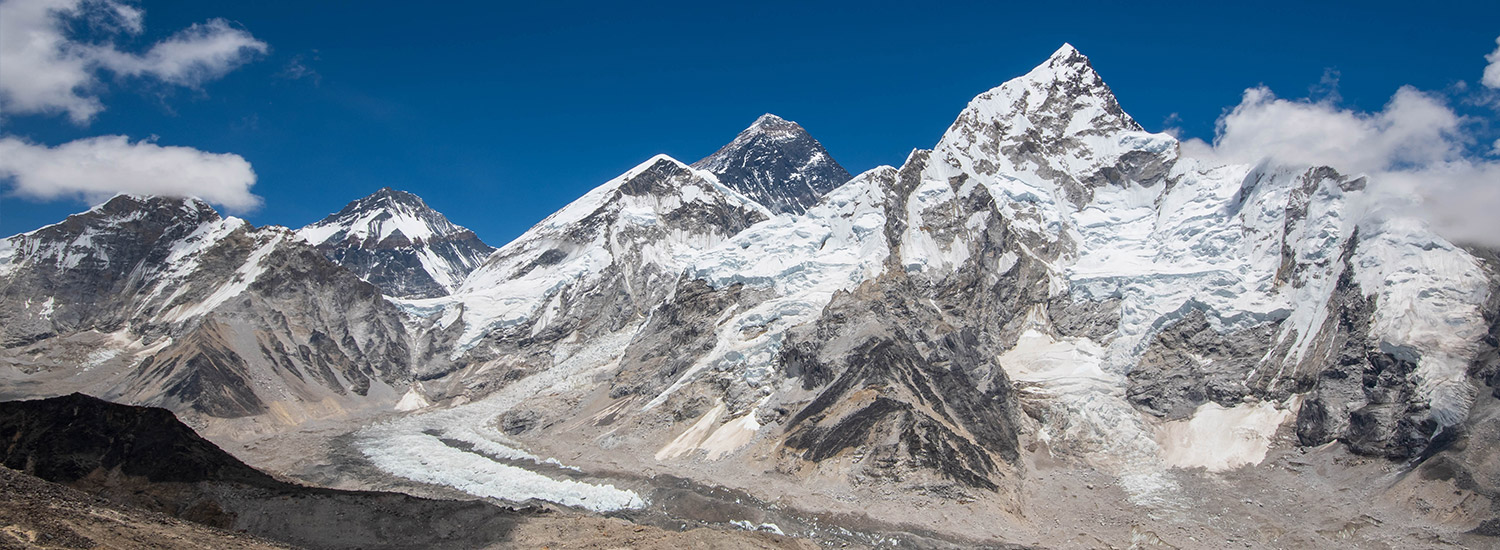
From US$ 1450
Classic everest base camp trek - 12 days, from us$ 1550, ebc trek standard package - 14 days.
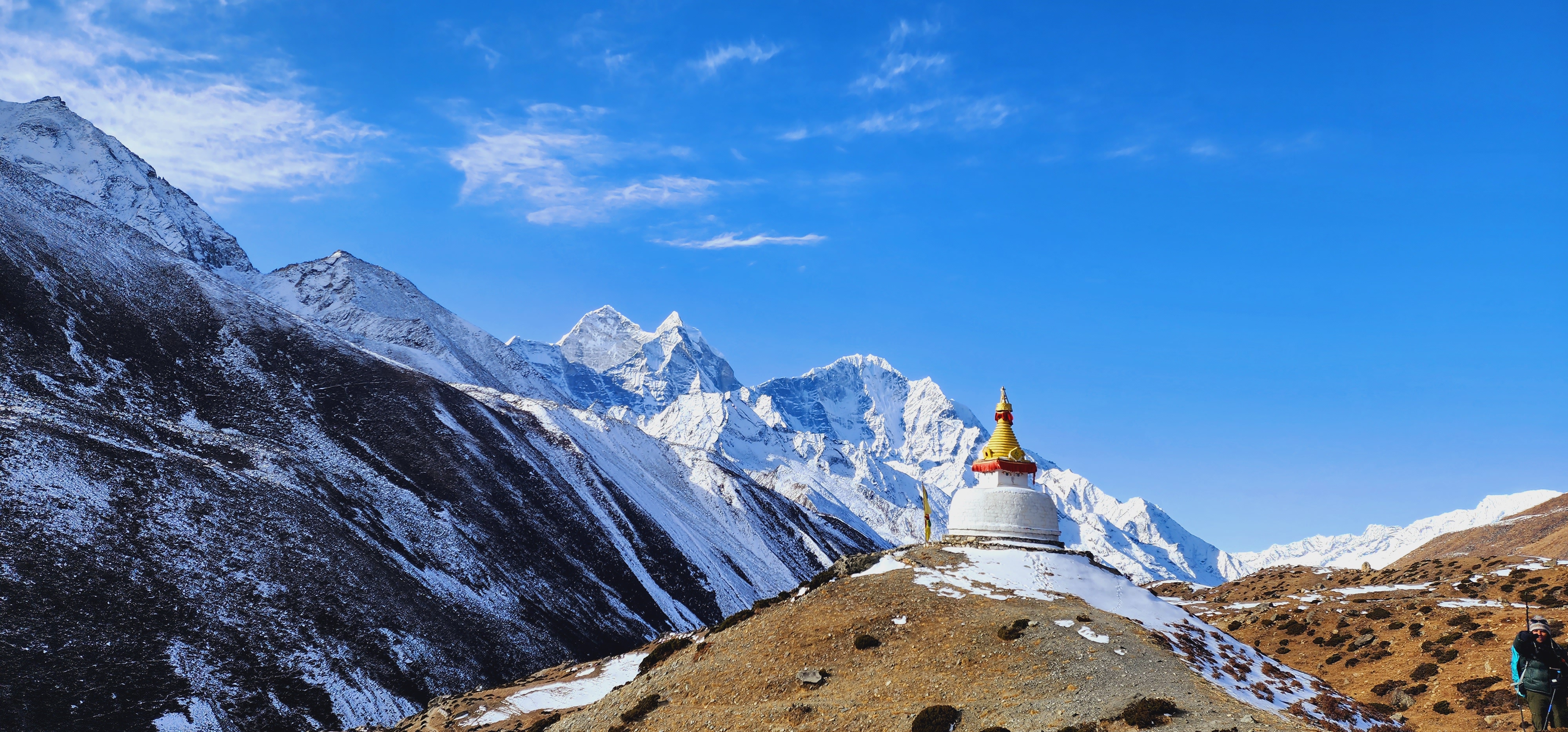
From US$ 1480
Comfort everest base camp trek - 13 days.

From US$ 1299
Everest base camp budget trek - 11 days.

Rapid Everest Base Camp Trek - 10 Days
From US$ 3500
Ebc trek with helicopter return - 10 days.
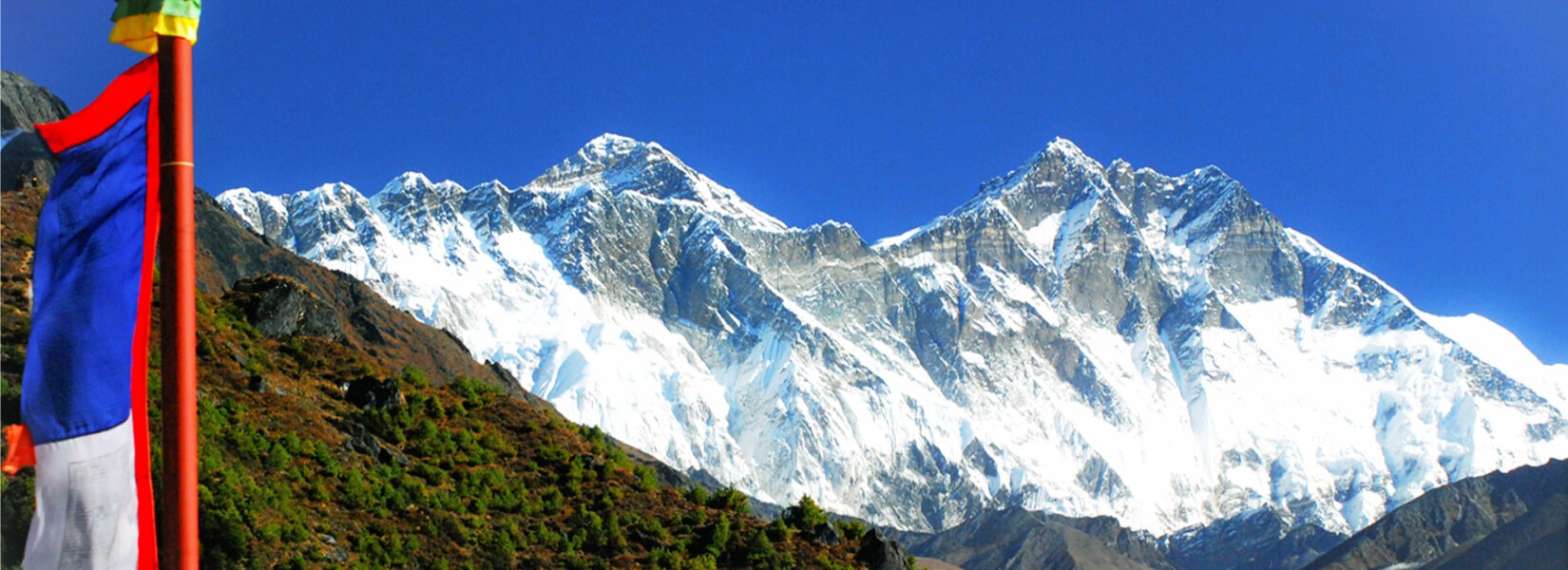
Everest View Trek - 7 Days
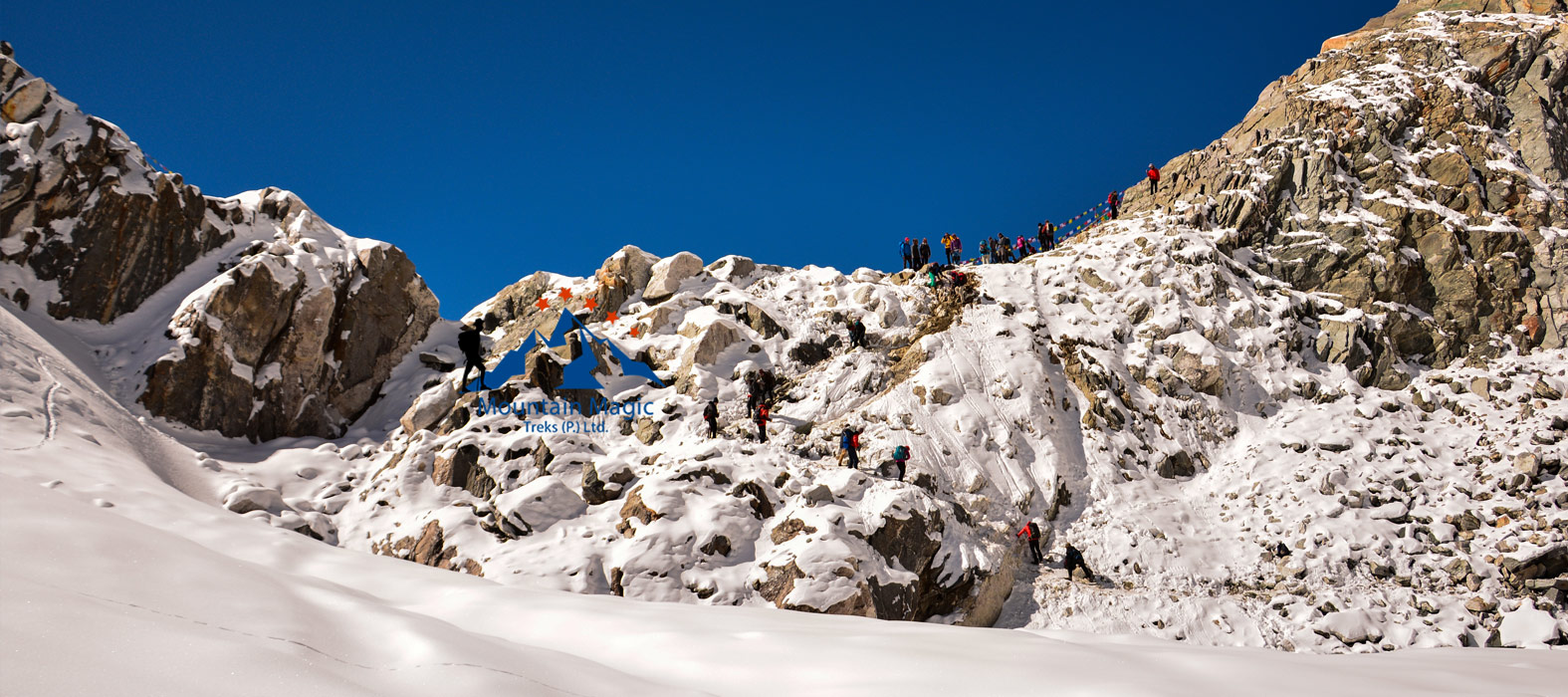
Gokyo - Everest Base Camp Via Chola Pass - 17 Days
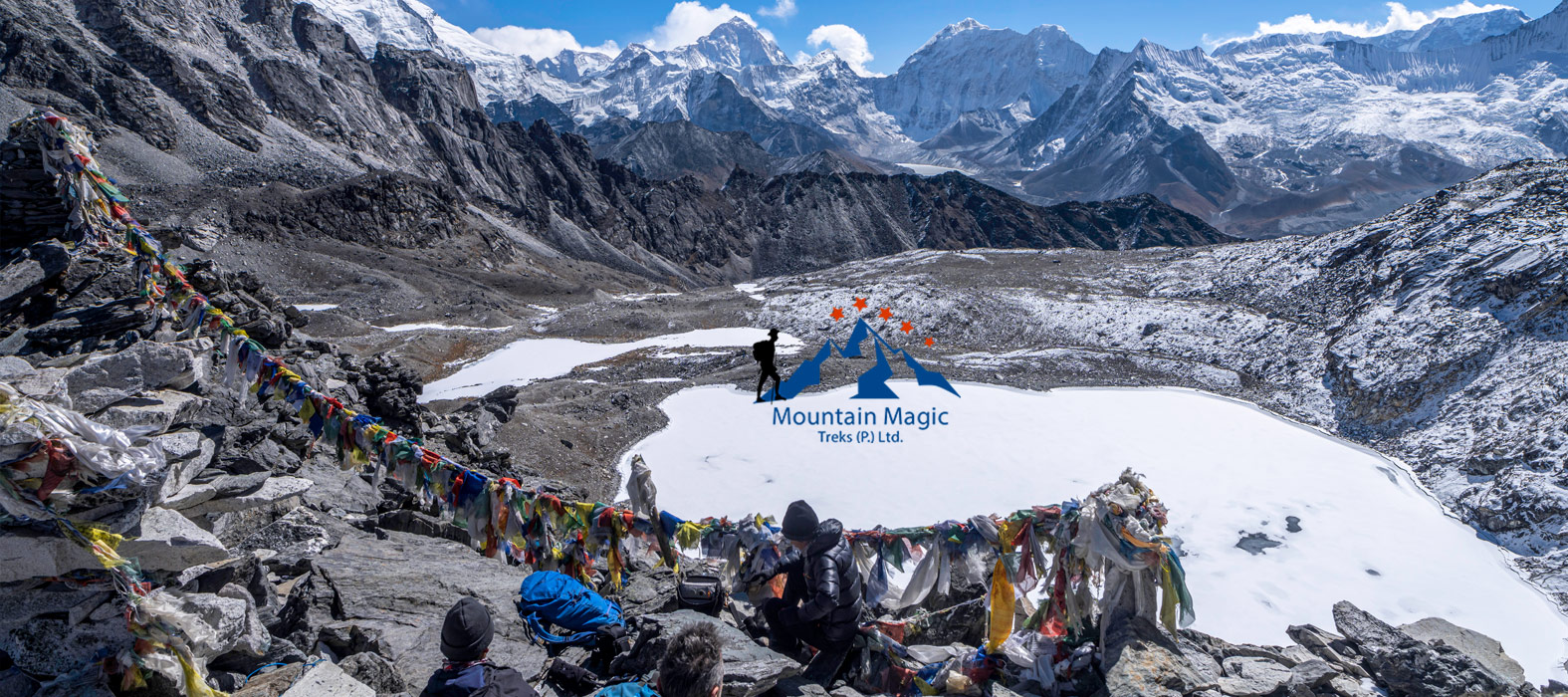
Everest Three High Passes Trekking - 18 Days
We are associated with, find & follow us on.
© 2011 - 2024 All rights reserved. Mountain Magic Treks Pvt. Ltd. Developed By : Xenatech Nepal
Notice. This site uses cookies to optimize your user experience. By using this site, you are consenting to our use of these cookies. Check out our Privacy Policy and our Cookies Policy.
Regd. No: 175840/074/075, Tourism License No: 2432

Run and Managed by:
Local tourism experts & sherpas of nepal.

- Trek to Nepal
Everest Base Camp Trek Cost: Affordable EBC Trek with Best Services
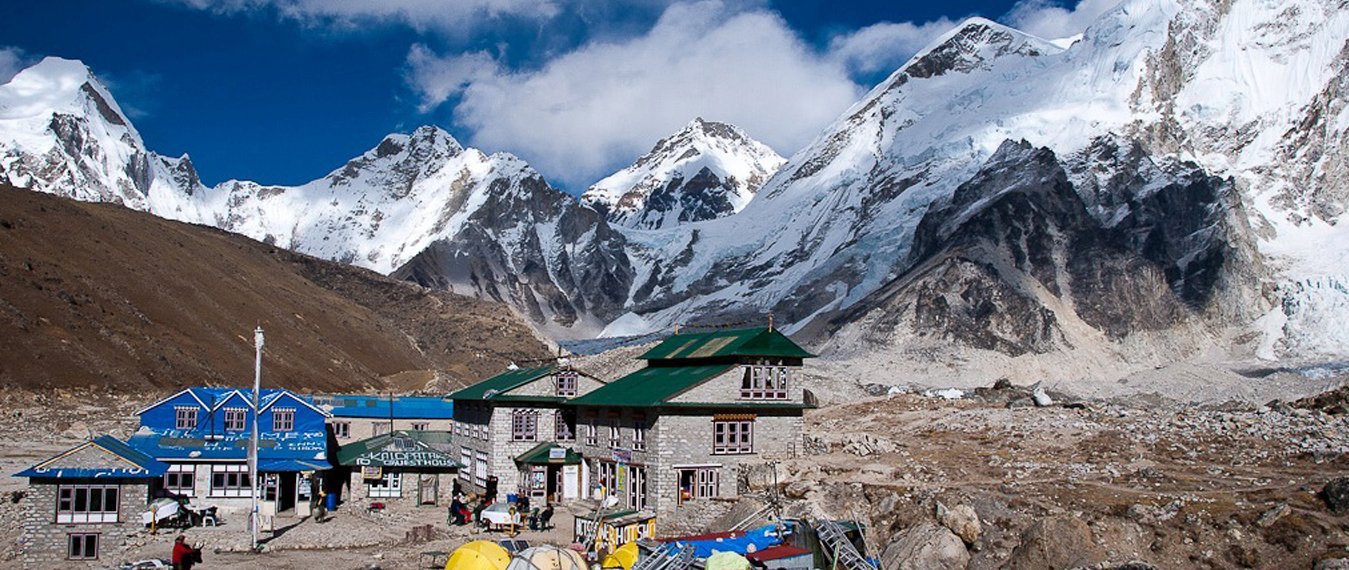
- Trip Overview
Mount Everest is the world’s highest mountain located in Nepal’s Himalayan Range. Everest Base Camp is a hiking trip to Mount Everest’s base camp. The Everest Base Camp has been the world’s premier mountain trek since the 1960s when Nepal opened its doors to commercial trekkers. It is a dream of all hikers and outdoor lovers to visit the base camp of Mount Everest at least once in their lives. Indeed hiking to Everest Base Camp is a wonderful as well as a lifetime journey. In short form, Everest Base Camp Trek is called EBC Trek. Everest Base Camp Trek is not only a trip for magnificent views of Mount Everest. Further, it is also an exploration of different beautiful Peaks in the Himalayan Range. It also offers you to discover impressive glaciers, the lifestyle, and the culture of the Sherpas- the heroic mountaineers in the world. This hiking trip also gives an experience of the distinctive alpine landscape with the endangered flora and fauna available in the Himalayan zone.
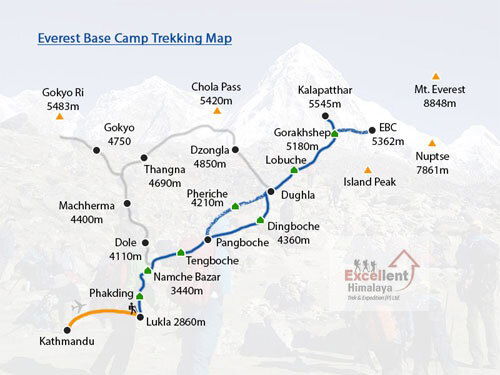
Another two days take to Everest Base Camp via Gorakshep, the flat field below Kala Patthar and Mt. Pumori. After the visit to the south base camp of Mount Everest the hiking to the top of Kalapathar (Alt. 5555m/18225ft), the black rock nearby Gorakshep provides a 360-degree awesome panorama of the world’s tallest mountains of Mount Everest, Mount Lhotse, Mount Pumori, Mount Lobuche, Mount Nuptse, and other surrounding peaks. From this elevation the true height of Everest becomes clear. The entire south face of Everest is visible.
Afterward, the trekking will retrace down Lukla following the places of Pheriche, Pangboche, Tengboche, Namche, and Phakding. In Lukla, it ends the trekking. The next morning from Lukla you fly back to Kathmandu.
Best Time of Everest Base Camp Trek: Everest Base Camp Trek is possible any time and month of the year. The below months have traditionally been used as a guide for preferred times of the year to visit Everest Base Camp.
From October-November to till mid of December: This is Nepal’s peak and best time to go trekking. From March-April-May: This is the end of the dry season and is also the best time to go trekking. After mid-December, January-February: The skies are clear but it can get very cold. From June-July-August: This is monsoon season and the least popular time to go trekking in Nepal. September: The post-monsoon effect may disturb the views of the Himalayas and Lukla flights.
Height of Everest Base Camp Trek: EBC Trek starts from the elevation of 2804 meters/ 9199 feet at Lukla. Every day you will receive elevation in the range of 400 meters to 800 meters. As most people’s bodies are not used to these elevations, the trek includes acclimatization days at Namche Bazaar and Dingboche to ensure your safety. The highest altitude of the entire EBC trekking is Kala Patthar, near Everest Base Camp. Its height is 5555 meters/18225 feet. Kala Patthar is the best viewpoint for Mount Everest and its surrounding magnificent peaks.
Outline Itinerary of Everest Base Camp Trek
Please find below the detailed description of the itinerary, travel information like accommodation, packing list for Everest Base Camp Trek, etc.
Why acclimatization days are in the above itinerary? Acclimatization is really important if you are doing long and high-altitude treks like Everest Base Camp Trek. Each day you will take yourself up to a high altitude thus it is really important to maintain your body’s oxygen level by acclimatizing yourself before gaining high on the next day. Lack of Acclimatization may cause mountain sickness.
How much does it cost Everest Base Camp Trek?
Excellent Himalaya Trek and Expedition, the direct operator for Everest Base Camp Trek authorized by the Nepal government and managed by local tourism experts, sherpas, and experienced guides from Nepal, offers affordable prices for Everest Base Camp Trek.
Kindly find below services inclusive in the given EBC trek price.
Please find below services which do not include in the above EBC trek price.
I. The above Everest Base Camp Trek cost is on a per-person basis for a minimum group size of two persons. II. If you are single and want to do Solo Trek. We also organize the Everest Base Camp Trek for solo trekkers. For the solo trekker, we have a separate Everest Base Camp Trek Package price. Please contact us for the Everest Base Camp Trek cost for Solo Trekking.
Please contact us by email at [email protected] or WhatsApp at +977 9851203181 for any further information about Everest Base Camp Trek, or if any questions. Once we receive your message, we get back to you within 24 hours.
Everest Base Camp Trek without taking a flight to Lukla is also possible. If you want Everest Base Camp Trek without flights, please click this hyperlink: Everest Base Camp Trek without flight .
Why Excellent Himalaya Company for Everest Base Camp Trek?
Many companies promote the Everest Base Camp Trek package. Excellent Himalaya Trek and Expedition Pvt Ltd is different from others in the sense that it is based only in Nepal and managed by Nepalese tourism experts and local guides. Our team has been engaged in the Nepalese tourism industry since 2002. We are a trekking company authorized by the Nepal Government Tourism Ministry. Our company’s government registration number is 175840/074/075 and our license number to operate trekking, tour, and mountain expeditions in Nepal is 2432. We are associated with different tourism organizations like TAAN (Trekking Agencies Association of Nepal), NMA (Nepal Mountaineering Association), etc.
Our further features are as below by which people around the world trust us as the authentic organizer of Everest Base Camp Trek:
Team of Local Experts and Guides: As this company is managed and run by well-trained, experienced & competent local experts, and guides, we know well about the mountain trail, ecology, culture, etc. of the trekking routes. We know the best way of trekking and also we get you the same way.
Trustworthy: Trust is something that comes from commitment. Hence, being a legally registered company, we commit to providing the best, most satisfactory trekking, tours, and expeditions. We are operating all trekking, and climbing tours in Nepal based on reality, integrity, and honesty.
Focus on your needs: We highly value all our clients. We always move according to your interests and requirements. Because your satisfaction is our goal. Thus, all our trekking, tour, and mountaineering packages are customizable.
Fair Price: As we are a direct operator, not an agent, our price is always competitive and does not have any middle and hidden fees. We provide the value of what you are buying from our services at least equal to your paying amount.
Safety: Your safety is our priority. Trekking to the Himalayas is both exciting and adventurous. So we provide you with all the safety materials needed, along with motivational counseling.
Friendly, and Professional Staff: We have highly friendly, helpful, and professional staff. Our staff looks after you right from the moment of your arrival to the time of your departure. They can cope with most emergencies including those requiring evacuation and hospitalization.
Real Cared Services: Our one travel consultant or our local trekking guide keeps in touch with our clients every time. We make sure their protection is guaranteed so that they will have peace of mind while trekking with us.
Packing List for the Everest Base Camp Trek
This is a basic checklist of the essential items that you should not forget to bring with you during your Everest Base Camp Trek:
• A sturdy pair of trekking boots with good ankle support • Rucksack or daypack (50 to 65 liters) with waterproof cover • Trekking pants and waterproof trousers • T-shirts or shirts • Down jacket* • Wind/ waterproof light jacket • Fleece jumper or jacket • Inner Thermal (top and trousers) • 4 to 6 pairs of Socks and underwear • Sunglasses, sun hat, woolen cap, or balaclava • Inner and outer gloves • Headlamp, power bank, and extra batteries • Sun protection cream, lip balm, wet wipes, and hand sanitizer • Towel, flip-flop or rubber sandal, toiletries • One-litre water bottle and water purification tablets • 4 Season sleeping bag (good to -20 degrees C or 28 degrees F); * • Hiking poles, if you need • Your daily medicine if any, small personal first aid kit, aspirin, plasters (band-aids), anti-diarrhea pills, anti-headache pills, cough or cold medicine, anti-altitude sickness pills (Diamox or Acetazolamide), etc. • A small daypack/backpack for carrying your valuables
*Down jacket and sleeping bag you can rent/hire from Trekking gear shops in Kathmandu
Day 1: Arrival in Kathmandu International Airport (1400m/4593ft).
Our tour officer will be receiving you at Tribhuvan International airport, Kathmandu. He/She will be displaying a play card with your name written on it outside the airport terminal. He will meet, greet and welcome you with auspicious garland and escort you to your respective hotel by our private tourist vehicle. At the hotel, he will assist you to check in and do a pre-trip meeting with you. You will be briefed about your overall program, introduced your guide and clear your questions/queries if any. During the meeting please clear the due balance and handover a readable copy of your travel insurance policy. Overnight at the hotel.
Day 2: Early morning flight to Lukla (2804m/9199ft). Start trek from Lukla to Phakding (Alt. 2610m/8563ft)-8 km-Avg 4 hrs walking
Early morning you will be picked up at the hotel by our guide and escort you to for the flight to Lukla. During flight, you enjoy stunning views of Himalayas. After landing at Tenzing-Hilary airport you meet your porter. He will carry your luggage. Then you start your trekking. Today you trek of three hours. It’s easy and gentle. The trail starts passing a Kani (ceremonial gatehouse). It descends steeply then runs level above Kyangma village, which has a large gompa (monastery) and school. After that, you enter Cheplung village. The trail descends through community forest with the sight of Dudh Koshi River. Crossing suspension bridge it’s a short climb around the ridge to Ghat. Leaving Ghat the trail passes a school and complex of mani walls, chortens and prayer wheels. Then the trail climbs to the hamlet of Chhuthawa. From Chhuthawa after a short walk, you reach to Phakding. Overnight at a mountain lodge.
Day 3: Trek from Phakding to Namche Bazaar (Alt. 3441m/11289ft- 11 km- Avg 6+ hrs walking.
After breakfast, you continue trekking along the banks of the Dudh Koshi River. Continuing up the Dudh Koshi valley you will reach a cluster of local Bhatti (porter rest houses) and a small hydroelectric project. The trail climbs up over the ridge and pines to the small village of Toktok. You will soon get your first view of Thamserku peak (6608m). The trail again climbs steeply around the ridge and reach Benkar. Here you find waterfalls. Leaving Benkar the trail crosses east bank of Dudh Koshi River over suspension bridge and heads to Chumoa. From Chumoa it’s another steep climb to the outskirts of Monjo village. Just above the Monjo, there is a checkpoint for Sagarmatha National Park. Your trekking card is checked here. Afterward, the trail cuts across to the west bank of the Dudh Koshi River on another suspension bridge and runs to Jorsale. Above Jorsale you follow the river bank over gravel before climbing to the forest. You will see flowing together of Bhote Koshi and Dudh Koshi rivers. From here it continues ascent through dense pine forests and then eventually enters to Namche Bazaar. Overnight at a mountain lodge.
Day 4: Acclimatization day. Day trip to Shyangboche and Khumjung (Alt. 3780m/12402ft) and back to Namche Bazaar. 4.6 km- Avg 3 hrs walking.
Today you stay at Namche Bazaar to avoid symptoms of Altitude Sickness (AMS). This doesn’t mean you have to stop walking. You hike up the Shyangboche. You cross grass airstrip at Shyangboche and walk towards the Everest View Hotel, the highest hotel in the world according to the Guinness Book of Records. From here you can have a good view of Mt. Everest and surrounding peaks. Then you continue walking to Khumjung, the largest Sherpa village in Everest region which sprawls below the peak of Khumbila (5761m). The houses here are large and ostentatious and many locals own tracts of land further north along the valley. You visit Khumjung Gompa. One of the treasures kept here is a Yeti Skull. From the flat area in front of the Gompa, there are views east to Amadablam, Thamserku, and Khumbila. After the visit of Khumjung village, you return directly to Namche Bazaar following the path behind the village school. Today you will have also option to visit Sagarmatha National Park Visitor Center where you can see some well-preserved displays on Himalayan flora and fauna and the culture of Sherpa people. Overnight at a mountain lodge.
Day 5: Trek from Namche Bazaar to Tengboche (Alt. 3860m/12664ft)-11 km- Avg 6 hrs walking.
After breakfast, you follow the path by the giant Mani in Chhorkung and trek north around the long ridge. At the end of the bluff is a viewpoint over a panorama of Thamserku, Ama Dablam, Lhotse, and Everest. Then trail reaches Kyangjuma. After a short walk, it takes to trail junction at Sanasa. You follow the trail to Tengboche runs gently downhill towards the river traversing Lawichasa, Tashinga, and Phunki Thenga. Then it crosses the river on the bridge. From here the trail climbs past some water powered prayer wheels and begins a sustained climb through a forest of rhododendrons. On the way, there are many porter rest stops. Eventually, you will reach Kani and a pair of chortens and arrive at Tengboche. The major attraction of this place is Tengboche Gompa. Inside the monastery are incredibly elaborate wall hangings, a 20-foot sculpture of Buddha, and the musical instruments and robes of the Lamas. Overnight at a mountain lodge.
Day 6: Trek from Tengboche to Dingboche (Alt. 4350m/14272ft)-11 km- Avg 6 hrs walking.
Your day starts with following the trail through conifers and rhododendrons forest. The trail sooner reaches Debuche. Then the path continues through rhododendron forests to Milinggo. From here the trail descends steeply to the suspension bridge over Imja Khola. Crossing the bridge it climbs. You find the good photo shooting place of beautiful Stupa mirroring towering Ama Dablam. Afterward, you will soon arrive at Pangboche. Leaving Pangboche the trail climbs above the tree line and enters the arid landscape of alpine meadows. It follows the path of Imja Khola (stream) and passes Shomare and Orsho. After Orsho the trail splits. You will follow the lower path along the west bank of Imja Khola that leads to Dingboche. From Dingboche, you can have good views of Island Peak, Peak 38 and Lhotse. Overnight at a mountain lodge.
Day 7: Acclimatization day. Walk around Dingboche. Around 4 km- Avg 3 hrs walking.
Today you spend a day in Dingboche for the acclimatization. In the morning you have refreshing breakfast while admiring views of the looming Ama Dablam (6,856 m). Then after our guide take you a short walk to Nangkartshang Gompa. This Buddhist monastery is 400 m above Dingboche on the ridge. From there you can enjoy the view of Makalu (8463m), the fifth highest mountain in the world, Mt. Lhotse, Mt. Cho Oyu. From this vantage place, you can also see Imja valley as well as picturesque fields and pastures. Then you walk back to Dingboche and get relaxed at your lodge. Overnight at a mountain lodge.
Day 8: Trek from Dingboche to Lobuche (Alt. 4910m/4910ft)-9 km- Avg 6 hrs walking.
From Dingboche, you follow the path climbing slowly along the ridge through the village of Dusa. On the way, you can have a spectacular view of twin peaks of Taboche and Cholatse, Ama Dablam and Kantega. Then the trail drops down to a glacial stream following rising up to Dughla. From this village, the trail goes directly up gravelly terminal moraine of the Khumbu glacier. Afterward, it moves at the top of the ridge which covered with memorials to lost climbers and Sherpas. From here you can enjoy an impressive view of Pumori (7145m), Lingtren (6697m), Khumbutse (6623m), Changtse (7550m) Nuptse and Lhotse. Then trail meets the junction. You follow the path that ascends north over the loose moraine and arrive at Lobuche. Overnight at a mountain lodge.
Day 9: Trek from Lobuche to Everest Base Camp (Alt. 5365m/17602ft) then back to Gorak Shep. 12 km- Avg 7 hrs walking.
Today your trek begins following a narrow gap between the glacial moraine and the mountain wall past the Italian Pyramid. The route of the path changes regularly as the edge of the moraine tumbles into the glacier. To find the trail look for cairns of stones left as markers and hoof prints and dung left by yak trains. After rounding the trail you will have your first views of Kalapathar (5545m). As you climb to take the time to detour to the edge of the moraine to look out over the Khumbu Glacier. Then the trail passes Changri Shar Glacier and reaches Gorak Shep, flat sandy bowls at the foot of Kalapathar. You continue walking to Everest Base Camp following the path across the Khumbu Glacier. Everest Base Camp is at the bottom of the Khumbu Icefall at 5365m. Visiting Everest Base Camp you trek back to Gorakshep for night halt. Overnight at a mountain lodge.
Day 10: Early in the morning hike up to Kalapatthar (Alt. 5555m/18225ft) then trek down to Pheriche (4200m/13780ft)-16 km- Avg 6+ hrs walking.
Wake up early in the morning then hike up to Kalapathar through grassy ridge above the Gorak Shep. It takes one and half hour to two hours to reach the summit which is marked by prayer flags. As you climb it the peak of Pumori looms dramatically ahead. By climbing 200 m you will find yourself in front of world’s definitive mountain views- a 360-degree panorama of Himalayan giants from Pumori and Lobuche to Nuptse, Lhotse, and Everest. From this elevation the true height of Everest becomes clear. The entire south face of Everest is visible. After taking photos this world-class scenery you back down to Gorakshep. Have a lunch in Gorakshep. In the afternoon you trek to Pheriche retracing your steps along the moraine of Khumbu glacier. Overnight at a mountain lodge.
Day 11: Trek from Pheriche to Namche Bazaar (Alt. 3441m/11289ft)-18 km- 7 hrs walking.
After breakfast, you descend to the valley of Orsho then follow the west bank of Imja Khola to Shomare and on to Pangboche. From Pangboche you retrace your footsteps down to the Imja Khola and up through the forest to Debuche and Tengboche. From Tengboche, you trek down to Phunki Thenga then climb the ridge towards Namche Bazaar. Overnight at a mountain lodge.
Day 12: Trekking from Namche Bazaar to Lukla (Alt.2804m/9199ft)-18 km- 7 hrs walking.
From Namche Bazaar, you follow the steeply downward path. Once you cross the high suspension bridge the trail runs mostly level to Josale and then climbs to Monjo where your trekking card will be checked out. Then it’s an easy run through Benkar and Phakding to Lukla. After arriving at Lukla it ends your overall trek. Most trekkers make a celebration of finishing their trekking with their guide and crew members at Lukla. Overnight at a mountain lodge.
Day 13: Flight from Lukla to Kathmandu in the morning. Rest of the day at leisure. Evening farewell dinner with Nepali Cultural show.
In the morning, you move to Tenzing-Hillary airport. Then catch once again that scenic mountain flight to Kathmandu. After you land at Kathmandu airport you will be transferred to your hotel. You have free time rest of the day. You can have a hot shower, a spa for relaxing your body in Kathmandu. Evening you will be offered a farewell dinner with Nepali cuisines and cultural dances at typical Nepali Restaurant. Overnight at the hotel.
Day 14: End of Trip. Final Departure from Kathmandu, Nepal.
The trip concludes today. Our tour officer will drop you at Kathmandu International Airport for your flight departure from Nepal.
- Travel Tips
Nepal Visa Information
All foreign nationals except Indian Nationals are required to arrange a visa in order to enter Nepal. A Nepalese Visa can be obtained either prior to your arrival at a Nepalese embassy abroad or on arrival time in Kathmandu at the airport. But nationals from Afghanistan, Iraq, Cameroon, Ghana, Somalia, Swaziland, Palestine, Zimbabwe, Nigeria, Ethiopia, and Liberia cannot secure the Nepalese Visa upon arrival. The Visa can be also taken at entry points at Nepalese borders. For Nepalese Visa it requires your passport with at least six months validity, a recent digital photo (size: 1.5″ x 1.5″), and the following fees either in USD dollars cash or the equivalent local currency:
Meeting and Greeting in Airport
We would offer you the meeting and greeting service in Kathmandu International Airport on your arrival time. For this, you need to pass us your International flight details at least 2 days before your arrival date in Kathmandu. After you get down from the aircraft you just pass on the Customs and come out of the Terminal building where you will see our tour officer standing with a playing card with your name written on it. He will greet and welcome you with auspicious garland and escort you to the hotel.
Accommodation
Trekking to Everest Base Camp does not require tremendous logistics in terms of accommodation as you will find plenty of clean and friendly lodges along the trail. Lodges typically offer a room with a wooden bed with a simple mattress or foam pad, a cotton pillow, and a blanket or quilt. They have electric lights and all have a spacious dining room-lounge. We will accommodate you and your group in a local lodge available each day. We send a porter ahead of us to book the required rooms for you (here rooms cannot be booked in advance).
In the case of Kathmandu, we offer you a tourist standard hotel under 3-star categories unless it is mentioned otherwise or clients have a special choice.
Food and Drinks
In the trail of Everest Base Camp Trekking, it’s commonly available of Authentic Nepali meal: Dal Bhat (rice with lentils soup and seasonable vegetables), noodles, pasta, chapatis, eggs, French fries, porridge, and muesli. The restaurant of lodges also serves Tibetan foods like momo, thukpa, chowmein, along with pizza, spring rolls, pancake, and another continental as well as Indian foods.
Tea and hot lemon are traditionally the main drinks on the trail though coffee is found everywhere. Bottled soft drinks, bottled water, and even beer are common along the route but the price of each bottle rises each day when you move upward.
Trekking Guide and Team
The trekking team who will go with you is the most significant thing that makes your Everest Base Camp trekking successful, enjoyable and memorable. We would provide you with skilled, experienced, courteous, knowledgeable and helpful trekking guide and porters. The trekking guide leads you in the trail and brief you all the about this route and porters carry your luggage. Our all trekking guides are carefully selected in terms of their appropriate experience, leadership skills and their knowledge about local culture, ecosystem, geography, flora and fauna, and history. With aim of sustaining local communities, we only employ local people as trekking guide and porter. Our all trekking guides are certified by Nepal Government, Ministry of Tourism. We manage trekking team such a way that one trekking guide in each group and porters like one porter for two trekkers.
Luggage While Trekking
During the trek, your main luggage will be carried by porters or pack animals (usually yaks or crossbreeds). You simply carry a day pack with water bottle, camera, sunscreen, spare jacket, etc. – a small load that allows full enjoyment of the trek. A trek bag is ideal for your main luggage, plus a small lockable bag for travel clothes or anything that you do not need during trek which you can leave at hotel’s locker room in Kathmandu for free of charge.
Day Routine during Trekking
Every morning, first of all, packing your bags and then have a hearty breakfast at the lodge restaurant. Then set off on the day’s walk. After walking for 3-4 hours you all stop for lunch in a local restaurant. Then continue walking for your destination. After lunch, it’s the only a couple of hours walking. You usually arrive at your destination in the time of afternoon tea. Check in at the lodge. The rest of the day is at leisure. At the free time, you may explore the surrounding village, doing a bit of washing or simply relax by reading books and writing a diary. On some days you will arrive at your destination by lunchtime and the entire afternoon will be free. Most people also spend free time playing cards and other games reliving the day’s adventures. Then in the evening have a dinner and you will be briefed by your trekking guide about your next day’s walking and then go to your bed for a well-earned sleep.
Health & Fitness
Everest Base Camp Trekking is moderate trek suitable for any passionate walkers who able to walk at least 5-7 hours a day with a light day pack. Walking in higher altitudes is more physically demanding than walking in lower altitudes; however, if you are in excellent health with average physical fitness and have a positive attitude, self-confidence, and strong determination, you can do this trek successfully. Exercising and jogging regularly for some weeks prior to the trip is a good idea to enhance your strength and stability. Past hiking experience would be an asset but not compulsorily required for this trip. It is vital for participants with pre-existing medical conditions such as heart, lung, and blood diseases to consult their doctor before taking the trip.
Prevention from Altitude Sickness
At high elevations, the combination of reduced oxygen and lower atmospheric pressure can produce a variety of unpredictable effects on the body, known collectively as Acute mountain sickness (AMS) is also commonly known as Altitude Sickness. Everyone who treks over 3500 m experiences some mild symptoms of AMS like slowness, dizziness, headache, nausea, loss of appetite, shortness of breath, racing pulse, disturbed sleep and swelling of the hands and feet but serious cases are very rare. The golden rule of prevention from Altitude Sickness is don’t walk too fast at altitude, drink plenty of liquids, eating well, getting plenty of sleep and avoiding alcohol. If in case you feel any mentioned symptoms the simple cure is to move down (descend) and you shouldn’t ascend further until you start feeling better. To treat AMS there is also available medication Acetazolamide (better known under the brand name Diamox). The dosage is 250 mg every twelve hours. Diamox improves respiration at altitude and can, therefore, accelerate acclimatization. Some doctors recommend a preventive dose (125 mg twice a day) for people trekking at high elevations. At the time of trekking our trekking team always guides you to prevent from Altitude Sickness and they always have Diamox along with first aid kit.
Rescue/ Evacuations
We believe casualty and a serious sickness will not happen in the trip. If it happens we will do everything to transfer you to the nearest hospital. Since all the expenses incurred in evacuation liable to you please make sure that it is covered by your insurance before assigning for it or be prepared to pay on your own after getting back to Kathmandu.
Travel Insurance
Everest Base Camp Trek is high altitude trip. We strongly advise you to take travel insurance before joining a tour which should cover medical expenses, hospitalization, and helicopter evacuation from high-altitude places in case of an emergency require. The highest altitude you reach is 5550 meters. Thus your insurance should have coverage up to the elevation of 5550 meters. The Nepali insurance companies only sell insurance policies for Nepali citizens. We do insurance only for our guide and porter. For the insurance for yourself, we request you to buy it from the insurance company in your home country or abroad. You can also buy travel insurance online from abroad insurance companies in a very easy way.
We would request you to bring your insurance documents when you come to Nepal.
Packing List for Everest Base Camp Trek
• A sturdy pair of trekking boots with good ankle support • Rucksack (5o to 65 liters) with waterproof cover • Trekking pants and waterproof trousers • T-shirts or shirts • Down jacket* • Wind/ waterproof light jacket • Fleece jumper or jacket • Inner Thermal (top and trouser) • 4 to 6 pairs of Socks and underwear • Sunglasses, sun hat, woolen cap, or balaclava • Inner and outer gloves • Headlamp, power bank, and extra batteries • Sun protection cream, lip balm, wet wipes, and hand sanitizer • Towel, flip-flop or rubber sandal, toiletries • Water bottle and water purification tablets • 4 season Sleeping bag (good to -20 degrees C or 28 degrees F); * • Hiking poles, if you need • Your daily medicine if any, small personal first aid kit, aspirin, plasters (band-aids), anti-diarrhea pills, anti-headache pills, cough or cold medicine, anti-altitude sickness pills, etc. • A small daypack/backpack for carrying your valuables
*Down jacket and sleeping bag you can rent/hire from Trekking gear shops in Kathmandu.
The above list is essential for your trekking. The weight limit for your luggage is 15 kg or 33 pounds. Remember that your luggage will be carried by a porter if you choose a package that includes a porter. Even if you have a porter you are required to carry a small day-pack with your valuables or anything important. We advise you to pack only what is necessary.
Itinerary Changes
The itinerary for each trip should be taken as a guideline only. Depending on the situation, you can modify it to some extent after consulting with your guide. However, the date of the trip ending should always coincide with the original itinerary.
Kindly keep in mind that sometimes unforeseen events may contribute to the need for a change in itinerary. In such cases, we or your guide will suggest the best alternative similar to your original.
Flora and Fauna
In Everest region as you climb through the hills mixed deciduous forests and scattered rice terraces give way to pine forests, then rhododendrons, then scrub junipers, before finally, the only vegetation is low alpine shrubs and grasses. As you walk, scan the skies and the undergrowth for golden eagles and the spectacular Himalayan Monal (danphe or impeyan pheasant) with its regal, shimmering green, blue and purple plumage. In forested areas around Namche Bazaar, Thame, Phortse and Tengboche, keep your eyes peeled for Himalayan Thar and musk deer often spotted beside trails early in the morning. You may also hear the strange hoarse call o the muntjak or barking deer. Everest is also home to both leopards and snow leopards and allegedly the fearsome yeti.
Environmental Concern
Naturally Everest Region is so beautiful but equally, it is fragile as well. Increasing population density and numbers of trekkers threaten the very beauty of this area. We at Silver Himalaya Adventures are extremely conscious about protecting its beautiful natural environment and preserving the fascinating local culture. We are doing our level best to minimize our impact as much as possible. Our all trekking guides and porters are well trained and motivated to following guidelines for responsible tourism and eco-friendly tourism. In trekking, they also advise you do’s and don’ts to minimize your impact on the local environment.
Side Trips/ Trip Extensions
In addition to your Trekking trip, you can join in various side Trips in Nepal like a cultural tour of UNESCO World Heritage Sites, Jungle Safari in National Park, White Water Rafting in Himalayan Rivers, Golfing, Adventure activities like Bungee Jumping, Altra Light Flight, Paragliding, Jeep flyer etc. You also can extend your trip to neighboring Himalayan Countries: Bhutan, Tibet, Sikkim (India) which seems more appealing to you. On your request, we will give you the detail of the side trips.
- Trip Reviews
Ask our experts (Inquiry)
Select Trip Kyanjin Ri vs Tsergo Ri, Comparative analysis of both Hiking Peaks Kyanjin Ri Trek, Hiking Distance, Itinerary, Highlights Khopra Danda vs Mardi Himal Trek, Comparison, Differences Khopra Danda Mardi Himal combined Trek including Poon Hill Comparision between Annapurna Circuit Trek and Manaslu Trek: Annapurna Circuit vs Manaslu Circuit Trek Monasteries in Upper Mustang Trek, Names of Buddhist Monastery in Upper Mustang Everest Base Camp Trek including Chitwan National Park Tour, Itinerary, Cost Khopra Danda Annapurna Base Camp Combined Trek, Itinerary, Cost Short Khopra Danda Trek, Itinerary, Cost, 5 Days Quickest Khopra Danda Trekking Annapurna Base Camp Trek including Chitwan National Park Tour, Cost, Itinerary Dingboche Trek, Itinerary, Hiking Routes around Dingboche Village Annapurna Circuit Trek including Chitwan National Park Tour, Itinerary, Cost Three Passes Trek including Ama Dablam Base Camp: Best Itinerary with Cost Three Passes Trek clockwise vs anti-clockwise route Everest base camp Trek with a return flight by Helicopter to Lukla Hiking to Ice Lake from Manang in Annapurna Circuit Trek Gokyo Lake to Cho Oyu Base Camp Trek including 5th Lake Everest Base Camp vs Annapurna Circuit Trek: Difference between EBC & Annapurna Circuit Trek Makalu Base Camp Trek Cost, Cheap, Affordable Package Price Everest Base Camp Vs Gokyo Lake Trek: Differences between EBC & Gokyo Trek Cost Breakdown of Manaslu Circuit Trek: Detailed Manaslu Trek Price Breakup Makalu Base Camp Trek Distance: Daily hiking distance in Km, Miles Everest Base Camp Height: Mount Everest Base Camp Trek Altitude Variation Kathmandu to Everest Base Camp: How far from Kathmandu to EBC Everest base camp Trek with Italian Pyramid Research Center Three Passes Trek without Everest base camp, Itinerary, Price Langtang Trek Cost Breakdown: Detailed Price Breakup of Langtang Trek Pokhara to Annapurna Circuit Trek, Itinerary with drive from Pokhara to Besi Sahar Kathmandu to Dharapani Jeep Drive Cost Kathmandu to Chame Jeep Drive: Jeep Rental Cost, Hire Price Poon Hill Mardi Himal combined Trek, Itinerary, Cost Everest Base Camp Family Trek: EBC Trek for Family with Kids and Children Everest Base Camp Trek for Single Woman: Best EBC Trek for Solo Girl Kathmandu to Ramechhap Airport Car, Jeep Rental & Sharing Transport Everest Base Camp Trek for Indian Citizens: EBC Trek Cost in Indian Rupees INR Everest Base Camp Trek for Students, Best Package, Cost Short Tilicho Lake Annapurna Round Trek: Best Itinerary Shortest Annapurna Circuit Trek: Best Itinerary Shortest Langtang Trek: Itinerary and Cost Everest Base Camp Trek including Ama Dabalam Base Camp, Itinerary, Cost Manaslu Annapurna Circuit Combined Trek, Itinerary, Cost Langtang Trek Cost for Nepali: Student Package of Langtang Trek Special Puja at Pashupatinath, Abhishek, Cost and Time Annapurna Base Camp Trek with visit to Hot Water Spring Rafting in Pokhara: Updated Price, Everyday Departure Bisket Jatra in Thimi Motor Bike Tour in Nepal Kathmandu to Manaslu Trek Canyoning in Pokhara Manang Tilicho Lake Trek Kathmandu to Langtang Trek Trek to Kala Patthar Nagarkot Tour from Kathmandu Thorong la Pass Trek: Affordable Cost with Best Services Lukla to Tengboche Trek: Tengboche Monastery Trek Ghandruk Poon Hill Trek Namche Bazaar Trek (Short Everest Trek) Sikles Kapuche Lake Trek Lwang Village Homestay Tour Panchase Trek 2 Days Astam Village Trek Tour Chitwan Sauraha Tour Package Mardi Himal Trek for Nepali and Indian People Australian Camp Trek Nepal Poon Hill Trek Package Besisahar to Jomsom Trek Pokhara to Jomsom Trek Khopra Danda Trek: Cheap Cost with Perfect Itinerary Mohare Danda Trek: Community Lodge Trek in Nepal Pikey Peak Trek: Affordable Cost and Package Pikey Peak Trek Nepal: Itinerary and Price 7 Days Annapurna Base Camp Trek Tamang Heritage Langtang Trek Cost: Cheap Package Price Langtang Tour Package: Hiking Trip Everest Base Camp Trek Booking 12 Days Short Everest Base Camp Trek Kushma Bungee Jump and Swing in Nepal Kathmandu to Ghandruk Tour Package Poon Hill Trek Route, Distance, Itinerary Annapurna Base Camp Trek Distance Tilicho Lake Annapurna Circuit Trek Itinerary with Length Everest Base Camp Gokyo Lake Trek Combine Tilicho Lake Annapurna Circuit Trek, Cheap Cost, Affordable Package Everest Base Camp Trek Nepal Companies Poon Hill Trek Cost Mount Everest for Beginners Annapurna Circuit Trek inclusive Tilicho Lake Everest High Passes Trek Cost Everest Base Camp Trek with Daily Hiking Distance in Km/ Miles Everest Base Camp Trek from Kathmandu, Budget Cost, Itinerary Manaslu Tea House Trek Annapurna Circuit Trek Package Manaslu Nar Phu Valley Trek Tsum Valley Manaslu Trek Three Passes Trek Distance Gokyo Lake Trek Distance Mera Peak Climbing Itinerary and Cost Guide Cost for Everest Base Camp Trek Mardi Himal Trek Distance Langtang Trek Distance in Km and Miles How Long Annapurna Circuit Trek Distance in Km and miles Difference between Annapurna Circuit and Annapurna Base Camp Trek Annapurna Base Camp Mardi Himal Trek Mardi Himal vs Annapurna Base Camp Trek Best Company for Mera Peak Climbing Upper Mustang Jeep Tour Package Upper Mustang Trek Package Best Company for Upper Mustang Trek Best Tour Company for Everest Base Camp Trek Nepal Everest Base Camp Trek How Long? Nepal Trek to Everest Base Camp 4 Nights 5 Days Hiking Around Kathmandu 3 Nights 4 Days Hiking Around Kathmandu 2 Night 3 Day Hiking Near Kathmandu 1 Night 2 Day Hiking Around Kathmandu Hiking in Kathmandu Paragliding Kathmandu from Chandragiri: Price & Booking Contact Mardi Himal Trek Nepal One Week Nepal Honeymoon Tour Package Kathmandu Pokhara Honeymoon Tour Kathmandu Honeymoon Tour Package Nepal Honeymoon Tour Packages from India Nepal Tour Package for Couple Solo Poon Hill Trek Solo Three Passes Trek with Everest Base Camp Solo Mardi Himal Trek 7 Days Mardi Himal Trek Kalinchowk Package Langtang Trek with Local Company of Nepal Langtang Trek Nepal Island Peak Climbing: Cheap Cost and Best Package Everest Base Camp Trek: Hiking to Mt. Everest Everest Base Camp Trekking in Nepal Annapurna Base Camp Trek in Nepal Solo Annapurna Base Camp Trek Nepal Mahayana Buddhist Tour in Nepal Gokyo Renjo La Pass Trek: Less Crowded Trekking Route in Everest Trekking Agency to issue Upper Mustang Permit, Guide, Porter Hire Price Shortest Mardi Himal Trek, Cheapest Cost, Quickest Itinerary from Pokhara to Pokhara Trekking Agency to issue Manaslu Trek Permit, Guide, Porter, Jeep Hire Poon Hill Trek for Malaysia, Singapore People Mardi Himal Trek with Recommended Agency of Nepal Manaslu Trek with Best Local Company of Nepal Everest Three Passes Trek with Best Recommended Company Everest Base Camp Trek with Local Company Recommended Company for Island Peak Summit Climb Annapurna Base Camp Trek with Recommended Company of Nepal Annapurna Circuit Trek with Recommended Trekking Company of Nepal Best Everest Base Camp Trek Company Mount Everest Tour by Plane Quickest Trek to Everest Base Camp Best Nepal Trek Packages for Christmas and New Year Vacation Best Nepal Tour for Christmas and New Year Vacation Everest Base Camp Trek UK for British Poon Hill Trek by Jeep Drive Tour Everest Base Camp Trek in December Gokyo Lake Renjo La Pass Trek Mardi Himal Trek: Best Cost and Perfect Itinerary Trekking Guide and Porter Hire Cost in Nepal Everest Base Camp Trek from Brazil Everest Base Camp Trek from Philippines Everest Base Camp Trek from Indonesia Greenline Bus Kathmandu Pokhara Everest Mountain Flight for Bangladeshi, Sri Lankan & Others Everest Mountain Flight for Chinese, Thai, Malaysian & Others Three Passes Trek with Everest Base Camp Everest Mountain Flight for Indian Citizen Langtang Trek for Beginners, Seniors and Family Langtang Solo Trek Package Trek to Langtang Langtang Trek Cost: Cheap Package Price with Best value Annapurna Circuit Trek for Beginners Annapurna Base Camp Trek for Beginners Everest Base Camp Trek Best for Senior Citizen: EBC Trek Cost & Itinerary for Old Age Elderly People Muktinath Tour Package Sarangkot Hiking Everest Base Camp Trek from Singapore Everest Base Camp Trek for People from Australia Everest Base Camp Trek for Beginners: Best Itinerary with Price Recommended Operator of Everest Base Camp Trek Manaslu Circuit Trek Cost: Affordable Manaslu Trek Package Price Manaslu Trek with Cost Annapurna Base Camp Trek at Affordable Cost and Package Annapurna Circuit Trek: Affordable Cost and Package Bungee Jump in Pokhara at Affordable Price: 101 meters Height Annapurna Circuit Trek Cost for Single Trekker for 2020/ 2021 Best Price of Annapurna Circuit Trek Annapurna Circuit Trek for Malaysia and Singapore Hikers Everest Base Camp Trek Cost for Single Solo Everest Base Camp Trek in Nepal Everest Base Camp Trek at Hong Kong Dollar HKD Daily Hiking Distance of Everest Base Camp Trek in Kilometers and Miles Everest Base Camp Trek from Malaysia Annapurna Base Camp Trek from Malaysia Annapurna Base Camp Trek for Indian People Everest Base Camp Trek without flight to Lukla (By Road) 7 Days Poon Hill Trek 12 Days Annapurna Circuit Trek Shortest Annapurna Base Camp Trek: Best Itinerary & Cost Annapurna Base Camp Trek via Ghandruk Everest Base Camp Trek Cost: Affordable EBC Trek with Best Services Short Everest Base Camp Trek Hot Air Balloon in Pokhara Everest Base Camp Trek Manaslu Expedition: 8163 m/26781 ft Everest Expedition: 8848 m/29029 ft Amadablam Expedition: 6812 m/22349 ft Helambu Trek Tamang Heritage Trek Alternate of Lukla Flights in Everest Base Camp Trek: Alternative EBC Trek Route Gokyo Renjo La Pass Trek: Affordable Package with Cheap Price Everest Base Camp Gokyo Lake Trek Cost: Perfect Itinerary, Best Package Amadablam Base Camp Trek Naya Kanga Peak Climbing: 5844 m/19168 ft Hinuchuli Peak Climbing: 6441 m/21126 ft Saribung Peak Climbing: 6346 m/20815 ft Dhampus Peak Climbing: 6012 m/19724 ft Tent Peak Climbing: 5663 m/18563 ft Singu Chuli Peak Climbing: 6501 m/21323 ft Mardi Himal Peak Climbing: 5587 m/18330 ft Paldor Peak Climbing: 5896 m/19343 ft Yala Peak Climbing: 5732 m/ 18790 ft Chulu West Peak Climbing: 6419 m/ 21059 ft Chulu East Peak Climbing: 6564 m/ 21005 ft Lobuche Peak Climbing: 6119 m/ 19581 ft Makalu Base Camp Trek Dhaulagiri Base Camp Trek Khopra Danda Trek Pashupatinath Tour Pashupatinath Janakpur Tour Muktinath Overland Tour Muktinath Tour Maratika Tour: Halesi Tour Lumbini Tour: Best Itinerary at Affordable Cost Kathmandu Temple Tour 3 Days Nepal Tour: Classic Nepal 4 Days Nepal Tour: Glance of Nepal 5 Days Nepal Tour: Romantic Nepal 5 Days Nepal Travel: Kathmandu World Heritage Tour 6 Days Nepal Tour: Wonderful Nepal 6 Days Nepal Travel: Nepal Jungle Safari Tour 7 Days Nepal Tour: Incredible Nepal 1 Week of Nepal Tour 7 Days Nepal Trip: Discover Nepal Best Selling Nepal Tour: Affordable Package Price Langtang Helicopter Tour 9 Days Nepal Tour: Nepal Vacation Package 10 Days Nepal Tour: Fascinating Nepal 11 Days Nepal Tour: Exploring Nepal 12 Days Nepal Tour: Colorful Nepal Island Peak Climbing: 6189 m/ 20305 ft Mera Peak Climbing: 6461 m/ 211907 ft Pisang Peak Climbing: 6091 m/19980 ft Rara Lake Helicopter Tour Muktinath Damodar Kund Heli Tour Annapurna Base Camp Helicopter Tour Nepal Honeymoon Tour Mardi Himal Trek Druk Path Trek: 10 days Trekking in Bhutan Gangtey Trek: 9 Days Trekking in Bhutan Bhutan Travel 8 days : Paro Thimphu Trongsa Tour Bhutan Travel 7 days : Paro Thimphu Gangtey Tour Kalinchowk Tour Bhutan Travel 6 days : Paro Thimphu Punakha Tour II Bhutan Travel 5 days : Paro Thimphu Punakha Tour I Bhutan Travel 4 days : Paro Thimphu Tour Bhutan Travel 3 days : Paro Tour Everest Base Camp Tour by drive: Nepal Tibet EBC Tour Nepal Tibet Travel: Kathmandu Lhasa Overland Tour II Nepal Tibet Tour: Kathmandu Lhasa Overland Tour I Guge Kingdom Tour Kailash Heli Yatra: Kailash Helicopter Tour Kailash Yatra : Kailash Overland Tour Kailash Tour with Lhasa Everest Base Camp Mount Kailash Tour with Lhasa Tibet Tour 9 days : Lhasa Everest Base Camp Travel Tibet Tour 8 days : Lhasa Everest Base Camp Tour Tibet Tour 7 days : Lhasa Gyantse Shigatse Tour Tibet Travel 6 days : Lhasa Tsedang Tour Tibet Tour 6 days : Lhasa Namtso Lake Tour Hindu Pilgrimage Tour Nepal Buddha Temple Tour Nepal Muktinath Helicopter Tour Everest Base Camp Helicopter Tour Nepal Adventure Tour 9 days Nepal Adventure Tour 6 Days Tibet Tour 5 days : Lhasa Yamdrok Lake Tour Upper Mustang Trek Nepal Family Tour Everest Family Trek Nepal Family Trek Rara Lake Trek Kanchenjunga Base Camp Trek Upper Dolpo Trek Lower Dolpo Trek Tsum Valley Trek Langtang Gosaikunda Lake Trek: Cheap Cost with Perfect Itinerary Everest View Trek Three Passes Trek Everest Cost- 3 Passes Trek Package Gokyo Lake Trek Cost: Affordable Gokyo Lake Trek Package Classic Everest Trek The Last Resort Bungee: Bhotekoshi Bungy Jump Paragliding in Pokhara: Updated Price with Best Services Manaslu Trek Zipline in Pokhara: Classic and Superman Zipline Bhote Koshi Rafting Ultralight Flight in Pokhara: Best Price with Exciting Flight Everest Mountain Flight: Cheap Fare, Flight Booking Contact Everest Helicopter Tour Trishuli Rafting: Affordable Best Price Chitwan Jungle Safari Tibet Tour 4 days: Lhasa Tour Nar Phu Trek Ghandruk Trek Tilicho Lake Trek with Annapurna Circuit Poon Hill Trek Annapurna Circuit Trek Annapurna Base Camp Trek Langtang Valley Trek
Share this trip on
Have you any questions, if this trip doesn't suit you, make your trip happen, why travel with us.
- Run by local experts, guide & Sherpa.
- Focus on your needs.
- Good value for money.
- Real cared services.
- Government recognized company.
- Best reasonable rate.

Quick Navigation
Steps of contact and booking with us.


Short Everest Base Camp Trek
The Short Everest Base Camp Trek is a captivating adventure that draws trekkers from around the globe. In just 11 days, one can ascend to the iconic base camp of the world’s tallest mountain, taking in breathtaking Himalayan vistas and immersing oneself in the vibrant Sherpa culture along the way. Covering essential highlights like Namche Bazaar and Tengboche Monastery, this trek offers an unparalleled opportunity to witness the majestic splendor of the Himalayas. Whether you’re an experienced hiker or a novice explorer, the Short Everest Base Camp Trek promises an unforgettable journey that will leave you eager to discover more.

- The Short Everest Base Camp Trek is an 11-day journey that includes a scenic flight to Lukla and reaches the base camp at 5,364 meters.
- The trek offers stunning Himalayan vistas, including views of Mount Everest, and cultural experiences by visiting Namche Bazaar and Tengboche Monastery.
- The trek can be booked at a cost between €1,276.43 and €1,418.25 per person, with a ‘reserve now & pay later’ option available.
- The trek is not suitable for individuals with certain health conditions and may face overcrowding issues due to its growing popularity.
- The optimal trekking seasons are from March to May and September to November, when weather conditions are mild and visibility is excellent.
More tours and experiences nearby.
- Kathmandu Budget: 20 Day Everest Base Camp,Kalapatthar Trek
- Everest Base Camp Trek and Return via Helicopter
- Everest Base Camp Trek
- From Kathmandu: Luxury 16 Days Everest Base Camp Trek
Trek Overview
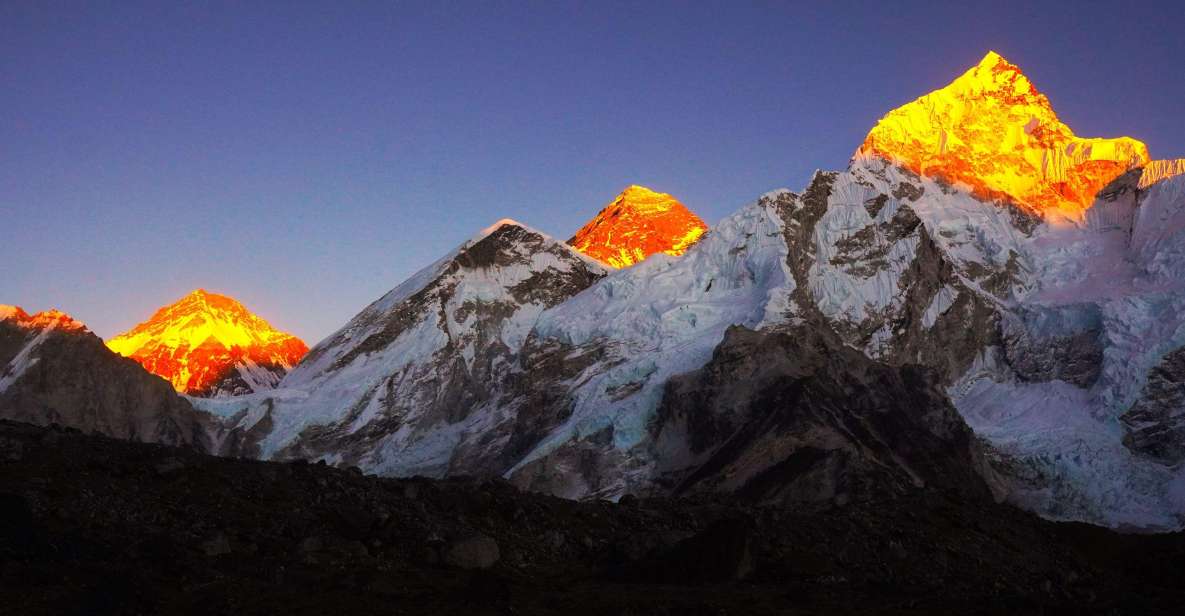
This short Everest Base Camp trek offers a condensed version of the classic trek in Nepal, providing adventurous travelers an opportunity to reach the legendary base camp of the world’s highest mountain.
With a duration of just 11 days , the journey begins with a flight from Kathmandu to Lukla , followed by a scenic trek through iconic landmarks like Namche Bazaar, Tengboche Monastery, and the Everest View Hotel.
The primary highlight is the exhilarating experience of reaching the Everest Base Camp at an impressive elevation of 5,364 meters.
Throughout the trek, trekkers will be rewarded with stunning Himalayan vistas , including breathtaking views of Mount Everest from Kalapatthar.
The best seasons to embark on this adventure are between March to May and September to November.
Pricing and Booking

The price for the short Everest Base Camp trek ranges from €1,418.25 to €1,276.43 per person, allowing travelers to save up to 10% on the cost.
Travelers can reserve their spot with a deposit and take advantage of the ‘ reserve now & pay later ‘ option.
Plus, the trek offers free cancellation up to 24 hours in advance for a full refund.
The price includes airport pick-up and drop-off, as well as all ground transportation in a private vehicle .
Booking this once-in-a-lifetime adventure is made easy with the available pricing and booking options, ensuring a seamless planning experience for trekkers.
Inclusions and Accommodation

The short Everest Base Camp trek includes 2 nights of accommodation with breakfast on a twin sharing basis, as well as guesthouse accommodation during the trekking portion.
Trekkers will also receive an experienced guide and roundtrip flights between Kathmandu and Lukla, along with a first aid medical kit, Sagarmatha National Park permits, and sleeping bags and down jackets for the trek (which are refundable after the trek).
Plus, the package provides a trekking map , a trip achievement certificate, and covers the Trekkers Information Management System (TIMS) fee, government taxes, and office service charges.
This all-inclusive offering ensures a hassle-free and well-supported trekking experience.
Exclusions and Additional Costs

While the short Everest Base Camp trek includes a comprehensive package, there are certain exclusions and additional costs that trekkers should be aware of.
International airfare to and from Kathmandu, as well as Nepal entry visa fees, aren’t covered in the package.
Trekkers will also need to cover their personal expenses , such as beverage bills, bar bills, and telephone bills, during the trek.
Plus, any extra night’s accommodation and meals required due to itinerary changes , travel and rescue insurance , tips for guides and porters, and costs for optional trips and sightseeing are the responsibility of the trekker.
Suitability and Restrictions

Although the short Everest Base Camp trek offers a unique adventure, it may not be suitable for everyone due to certain restrictions and considerations.
The trek isn’t recommended for individuals with back problems, wheelchair users, babies under 1 year, or people over 95 years old.
The increasing popularity of the trek has also led to overcrowding and environmental concerns .
Despite these challenges, the trek still provides breathtaking views of the Himalayas, including Mount Everest, and allows for cultural interactions with the Sherpa people.
Prospective trekkers should carefully consider their physical fitness and any medical conditions before embarking on this high-altitude adventure.
Highlights and Experiences

The short Everest Base Camp trek offers a range of captivating highlights and immersive experiences for adventurous trekkers.
Travelers embark on a flight from Kathmandu to Lukla , beginning their journey into the heart of the Himalayas. Along the way, they’ll encounter the lively Namche Bazaar , the serene Tengboche Monastery, and the breathtaking Everest View Hotel , all while marveling at the stunning vistas of snow-capped peaks.
The highlight of the trek is reaching the iconic Everest Base Camp at an altitude of 5,364 meters (17,598 feet), offering a once-in-a-lifetime opportunity to witness the grandeur of Mt. Everest up close.
Throughout the journey, trekkers enjoy the rich culture of the Sherpa people , visiting ancient monasteries and engaging in meaningful cultural exchanges.
Best Seasons to Visit
Typically, the best seasons to undertake the short Everest Base Camp trek are March to May and September to November, when the weather is stable and the skies are generally clear.
During these periods, trekkers can expect mild temperatures, low rainfall, and excellent visibility of the Himalayan peaks, including Mount Everest. The shoulder seasons of spring and fall offer the perfect balance of comfortable conditions for the demanding trek.
Avoiding the harsh winter months and the monsoon season ensures a more enjoyable and safer experience.
Regardless of the time of year, proper preparation and packing the right gear are essential to make the most of this incredible journey to the base of the world’s highest mountain.
Responsible Travel Considerations

With the rising popularity of the Everest Base Camp trek, travelers must consider the impact of their visit to this ecologically and culturally sensitive region.
Responsible trekking practices, such as properly disposing of waste , respecting local customs , and minimizing the carbon footprint , are crucial to preserving the fragile Himalayan environment for future generations.
Trekkers should adhere to the guidelines set by the government and local organizations to reduce waste, avoid disturbing wildlife, and support the Sherpa communities .
By being mindful of their actions, visitors can enjoy this magnificent trek while ensuring its sustainability.
Traveling responsibly not only enriches the experience but also contributes to the long-term protection of this remarkable destination.
Here's a few more nearby tours and experiences we think you'll like.
- Everest Base Camp Trek – 12 Days
- Everest View Trekking, Everest Panorama Trekking in Nepal
- From Kathmandu: 12 Day Amazing Everest Base Camp Trek
- Nepal: Everest Base Camp Trek With Helicopter Return
- From Lukla: 11 Day Everest Base Camp With Kala Patthar Trek
- Chola Pass Trek – 15 Days
Frequently Asked Questions
What is the minimum age requirement for this trek.
The trek is not suitable for babies under 1 year old. However, it doesn’t specify a minimum age requirement. Individuals should be physically fit and able to handle the high-altitude trekking conditions.
Is It Possible to Trek With a Group?
Yes, it is possible to trek with a group on this adventure. The tour operator offers group treks, allowing travelers to experience the magnificent Himalayas and Everest Base Camp alongside fellow adventurers.
Can I Rent Trekking Gear in Kathmandu?
Yes, trekkers can rent high-quality trekking gear in Kathmandu’s gear shops. These shops offer a wide selection of equipment, from backpacks to sleeping bags, at reasonable prices to make the trek more accessible and convenient.
Is Altitude Sickness a Major Concern on This Trek?
Altitude sickness can be a major concern on treks to high elevations. Proper acclimatization, staying hydrated, and going at a moderate pace are crucial to mitigate the risks of altitude-related illnesses. Trekkers should be prepared and consult guides on managing altitude effects.
What Is the Likelihood of Encountering Snow on the Trail?
The likelihood of encountering snow on the trail depends on the trekking season. During the spring and autumn months, snow is common at higher elevations, requiring proper gear and preparation. However, the summer months typically have less snow coverage along the route.
Not for you? Here's more of our most recent tour reviews happening neaby
- From Kathmandu :21 Days Everest (Base Camp)Three Passes Trek
- Mt.Phari Lapcha Peak Climbing
- Kathmandu: 12-Day Everest Base Camp Trek
- Everest Short Trek – 5 Days
- Imja Tse(Island Peak) Peak Climbing
- Kathmandu: 11-Day Everest Base Camp Trek
- Kusum Kangru Peak Climbing Technical Peak
- Everest Trekking
- Gokyo Lake Treks 10 Days
- Everest Panorama Trek: 7 Days Discover the Everest & Culture
- Everest Base Camp & Kala Pattar Trek – 15 Day
- Ama Dablam Base Camp Trek
The Short Everest Base Camp Trek offers an unparalleled opportunity to take in the majestic Himalayan landscape and culture.
From the scenic flight to Lukla to the awe-inspiring views of Everest Base Camp, this 11-day adventure promises an unforgettable experience .
Whether you’re seeking breathtaking vistas, cultural insights, or personal challenge, this trek delivers an exceptional journey in one of the world’s most captivating destinations.
Similar Posts

Iceland Tierrra De Ice and Fire

From Rethymno: Half-Day Quad Bike Safari
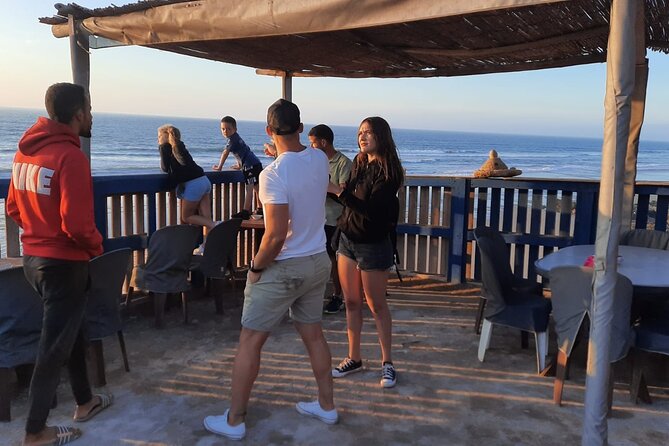
Agadir: Desert Quad Bike Safari With Hotel Pickup & Drop-Off
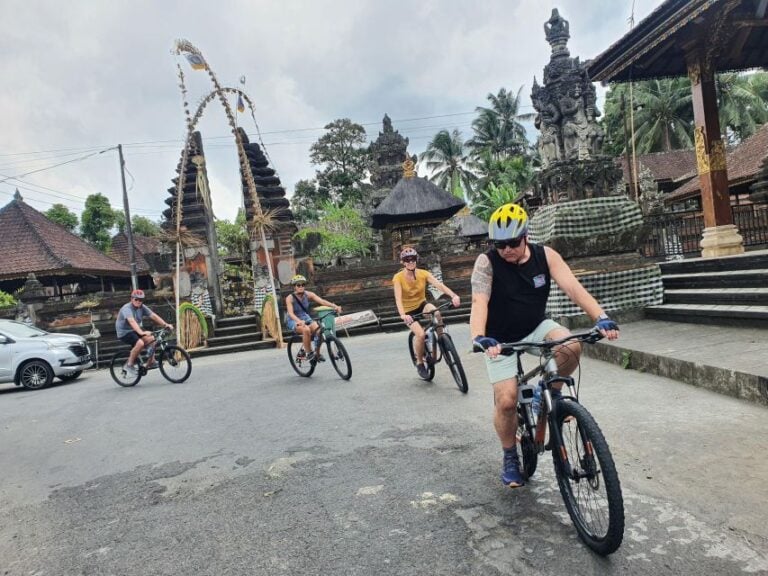
Private Cultural Cycling Tours
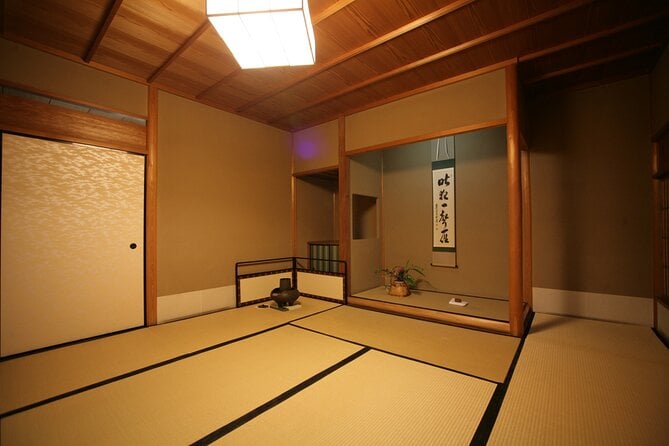
Full-Day Tour in Uji and Nara With Lunch

Yokohama Chinatown Eat and Walking Tour
- +91 9560897780
- Network websites
- Tour Packages
Mt. Everest Base Camp Trek 2024
- Find a Tour
- Select Theme Activity Holidays Adventure In Himalaya Affordable Treks Ayurveda & Spa Bali Tour Packages Beach Tour Packages In India Chardham Yatra Tour Packages Climbing Expeditions Climbing The Seven Summits Coorg Trekking Packages Corbett Tour Packages Culture & Heritage Cycling Trips Dalhousie Tour Packages Darjeeling Tour Packages Dharamshala Tour Packages Do Dham Tour Packages Dodital Trek Tour Packages Domestic Expedition Domestic Programs Dubai Tour Education Tours Eight Thousand Summit Expats Travel Expedition Calendar Experiential Tours Fairs & Festivals Fam Tours Family Tour Packages Fixed Departure 2024 Gir Tour Packages Golf Tours Hemkund Sahib Tour Packages High Altitude Treks 2024 Himachal Trekking Packages Holidays Outside India India Honeymoon Tour Special India Pilgrimage Tours International Expeditions International Honeymoon Tours International Tour Packages Kailash Mansarovar Yatra Kanha National Park Tour Packages Kashmir Trekking Packages Ladakh Tour Packages Luxury Holiday Packages Luxury Trains Tour Manali Tour Packages Mountaineering Course In India Mountaineering Course India Mountaineering Expeditions In The Indian Himalayas Mountaineering In Himalayas Nagaland Trekking Packages Nepal Trekking Packages North East Tour Packages Overland Jeep Safari Packages For NRI Photography Tours In India Ranthambore Tour Packages Religious / Spiritual Tours River Cruise Rotary International Seven Summit India Shikhar - Trending Programs Of 2024 Shikhar Adventure Institute Shimla Tour Packages Short Break Sightseeing Tours Sikkim Trekking Packages South India Honeymoon Packages South India Tour Packages South India Trekking Packages Special Domestic Packages Special Interest Tours Special Offers For Expats In India Sundarban Tour Packages Tea Tour Of India Thailand Tour Packages Trek To Famous Mountains Trekking In Ladakh Trekking In Uttarakhand Trekking Tours In India Weekend Tours From Delhi Wildlife Tour Packages In India Winter Treks In Indian Himalayas Yamunotri Tour Packages
- Select Destination America Andaman And Nicobar Islands Andhra Pradesh Antarctica Argentina Arunachal Pradesh Assam Australia Bhutan Bihar Chhattisgarh Delhi Goa Gujarat Haryana Himachal Pradesh Indonesia Karnataka Kashmir Kerala Best Ladakh Madhya Pradesh Maharashtra Maldives Meghalaya Nagaland Nepal Odisha Pondicherry Punjab Rajasthan Russia Sikkim Tamil Nadu Tanzania Kilimanjaro Thailand Tibet Turkey United Arab Emirates Uttar Pradesh Uttarakhand West Bengal
- Select Days / Nights Upto 3 Days Packages 4-7 Days Packages 8-12 Days Packages 13-16 Days Packages 17-21 Days Packages 22-30 Days Packages
- Select Departure January February March April May June July August September October November December
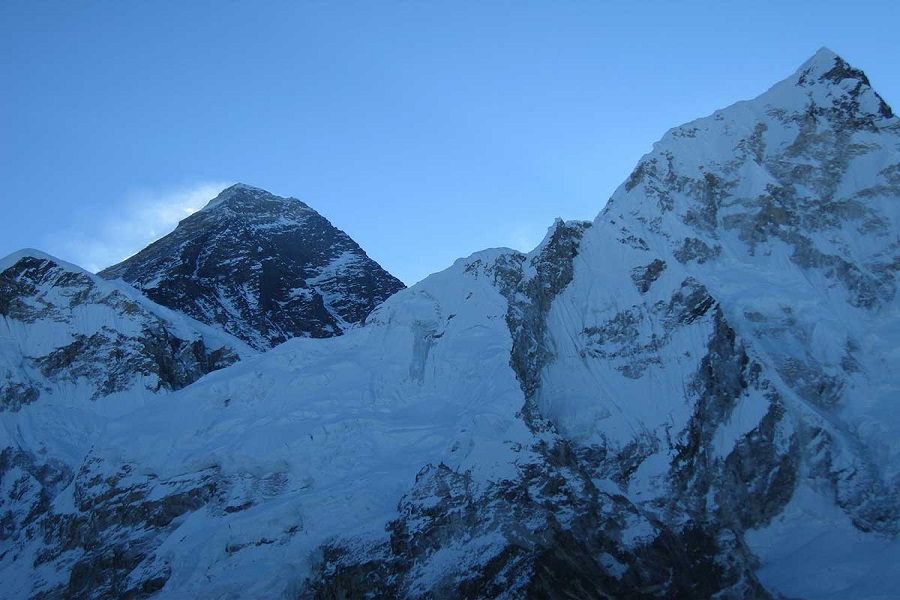
- September – 19, 27
- October – 5, 11, 16, 19, 26, 29
- November – 9, 17, 23
Tour Highlights
- Rickshaw ride in Chandni Chowk Old Delhi.
- Visit to seven wonder of world The Taj Mahal.
- Jungle safaris in search of royal Bengal Tiger, Bandhavgarh, Shivpuri & Ranthambore.
- Visit to UNESCO world heritage temples of Khajuraho.
- Experience Rajasthani Culture.
- Visit to seven wonder of world The Taj Mahal
One of the most renowned and exciting trekking expeditions in the world, EBC trek offers incredible views of the mountains and the mesmerizing beauty of the hills that one must witness at least once in their lifetime. There are two base camps where the first one is nestled on the north side at an elevation of 5150 meters above the sea level in Tibet-China and the other one with an altitude of 5364 meters in Nepal.
The trek to Everest Base Camp happens to be one of the most dramatic and astonishing in the Himalayas. The glory of this site is irresistible, varied, and spectacular and the lodgings available are of world-class standard. The local Sherpa people are very humble and helpful and you would love interacting with them. Supplies needed at the base camps are shipped by the locals only and with the help of the animals.
Generally, the trekkers prefer flying from Kathmandu to Lukla, and then from there, they start trekking to reach the Everest Base Camp. If you are an adventure seeker then you must think of living this lifelong memorable experience in Nepal. The awe-inspiring beauty of the panoramic landscapes adds more charm to the beauty of your trekking trail to the world’s highest peak.
We, Shikhar Travels ensure safety and security and invite you to book your trekking holiday with us as we truly believe safety precautions, experience, and a solid record of trekking in the Himalayas make your best choice for trekking in Nepal. Stumbling over loose rocks and onto a canvas of snow on reaching the tops of the final climb let you rest and admire the biggest achievement of your life.
To have a better understanding and clear picture of the journey you are going to complete, keep scrolling down the pages and check the well-narrated itinerary.
- Price Inclusion
- Similar Itinerary
Mt. Everest Base Camp Trek 2024 itinerary
Tour highlight.
- 1- Welcome to Nepal, A country of the highest mountain peak of the world (Mount Everest), and the Birthplace of Gautama Buddha- Lumbini
- 2- Enjoy outdoor adventures with the "Shikhar" Qualified MountainTeam.
- 3- Trek to the world's highest mountain (Mount Everest) basecamp.
- 4- Witness the soul-soothing views of many of the Himalayan gigantic.
- 5- Explore the spiritual center of Khumbu valley and the world’s highest monastery at Tengboche.
- 6- Enjoy a thrilling experience of flying high in the world’s most adventurous flight and the shortest runway. (Tenzing Hillary Airport Lukla)
- 7- Trek into the world's highest national park. (Sagarmatha National park)
- 8- Explore the local Sherpa villages and different monasteries of the region.
- 9- Explore the Namche Bazaar (Sherpa's Capital)
- 10- Kala Patthar viewpoint.
Travel tips for Everest Base Camp Trek
Inarguably, almost anyone can plan and enjoy trekking to the Everest Base Camp but we believe that there are certain things that one needs to keep in mind to make their trekking experience smoother and more enjoyable.
Check out the below-stated tips and tricks to save your time and money to make the most of this once-in-a-lifetime adventure experience.
Buy gear in Kathmandu
- Undoubtedly, competition is all around the corner and Kathmandu is home to several trekking shops from where one can purchase the required trekking gear at very reasonable rates. However, you need to be very alert while selecting the gear as the quality varies.
Select a reliable and authorized travel agency
- One needs to be very attentive and wise while engaging a tour agency for their trekking experience to Everest Base Camp. If you fail to do so then you are not going to complete your adventure activity with ease and comfort.
Keep count on your baggage weight limit
- Your main pack should not exceed 10 kg of weight and the carry-on pack must be of 5 kg only and you need to strictly adhere to this weight limit policy or else you might not attend the flight. Although it is possible to carry extra luggage by paying extra cash we would not recommend you to do so.
Be ready for flight delays
- Climatic conditions in high altitude areas are inconsistent which leads to delay in flights. We advise you to carry extra snacks, a book if you love reading, and most importantly a lot of patience.
Take care of your feet and overall health
- Your safety and security are our topmost priorities therefore, we recommend you purchase a good pair of shoes to save your feet on the rough mountain slopes. Additionally, we also recommend you to binge on the meals offered by your travel agency and if you are thinking to taste something from a restaurant or hotel then check the authenticity and the hygiene level of that place first.
Carry your first aid kit
- This is the most important point that you must keep in mind as none of us knows that how our body would react to the atmosphere of a new place. Also, if you are suffering from any prolonging illness then do not forget to carry the medications prescribed by the doctor.
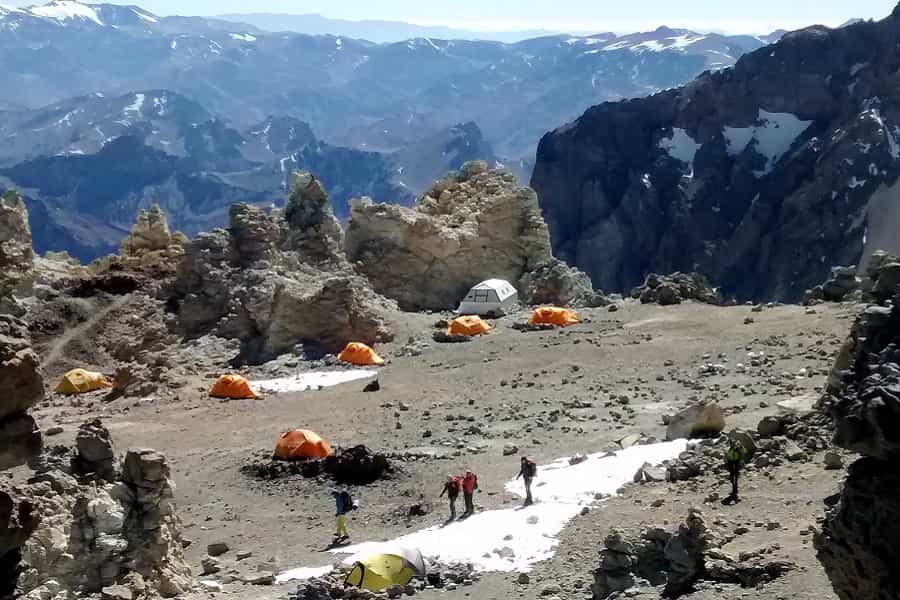
- View Details
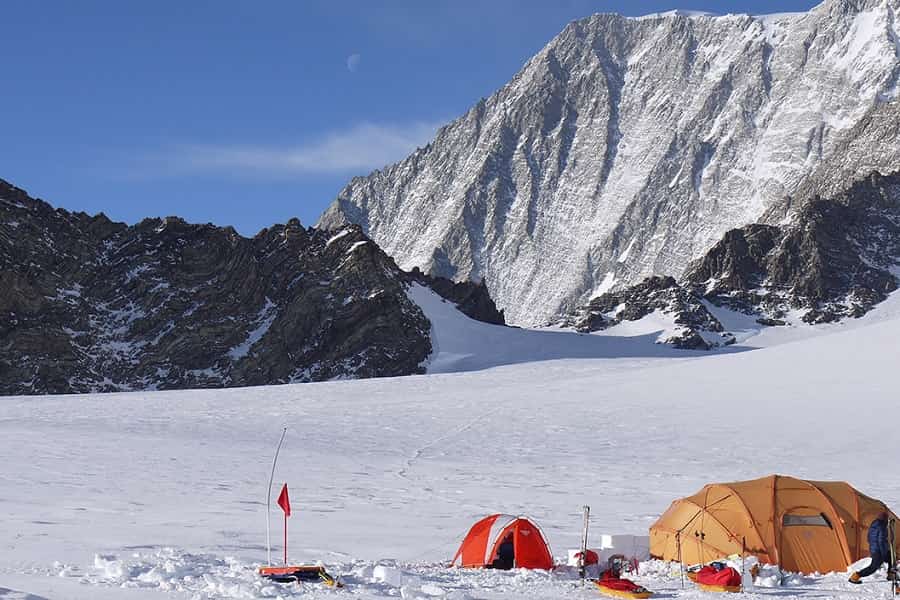
- High Operating Standards
- Friendly and Knowledgeable Staff
- Personal travel consultants
- Tailor made holiday packages
- Private Tours for individuals and groups.
- Guarantee Fixed Departures
- Flexibility in organising and bookings
- Recognised by Government of India
- Save time and effort
- Licensed and Recognised Tour Operator

Recognised by Ministry of Tourism, Government of India as Inbound Tour Operator & Adventure Tour Operator. Registered with Indian Mountaineering Foundation.

- Incentive Ideas
- Activity Holidays
- Fixed Departure
- Luxury Holidays
- Destination Wedding
- Partner Company
- Life on the Planet Ladakh
- Airline Ticketing
- Transportation
- List of Expeditions Handled
- Women Only Travel
- Festivals of India
- Corporate Social Responsibility
- Term & Condition
- Covid Guidelines
- About Shikhar
- Awards & Achievements
- Useful resources
- Press Media
- Group Websites
- Insurance Partner
Sign-up to receive special deals, update and newsletter.
Need an RMI account? Create an account
Register With Us
Already have an account? Sign in
- First Name *
- Last Name *
- Confirm Password *
The password must meet the following criteria:
- At least 8 characters
- At least 1 lowercase letter
- At least 1 uppercase letter
- At least 1 number
- At least 1 symbol (allowed symbols: !?@#$%^&/*()[]{}><,.+-=;)
Keep up to date with information about our latest climbs by joining our mailing list. Sign up and we'll keep you informed about new adventures, special offers, competitions, and news. Privacy Policy
Check Availability
- Number of Climbers

- International
- Mount Rainier
- North Cascades
- Skills Clinic
- Ice Climbing
- Ski Programs
- Women's Expeditions

- Seven Summits
- Kilimanjaro
- Climb & Safari
Vinson Massif
- Latin / South America
- Chile Ski Mountaineering
Torres del Paine Trek
- Volcanoes - Winter
- Volcanoes - Summer
- Ecuador Seminar
- Cotopaxi Express
Illimani and Huayna Potosi
- Orizaba & Ixtaccihuatl
Machu Picchu
- Peru Seminar
Everest Base Camp Trek
- Everest Base Camp & Lobuche
- Everest Custom
- Summit Climb Programs
- Four Day Climb
- Five Day Climb
- Mount Rainier Weather Information
- Mountaineering Seminars
- Emmons Seminar
- Kautz Seminar
- Muir Seminar
- Paradise Seminar
- Mountaineering Skills
- Crevasse Rescue Skills
- Denali Expeditions
- West Buttress
- Custom Expedition with Dave Hahn
- Alpine Climbing
- Little Switzerland
- Alaska Seminars
- Ruth Glacier Seminar
- Mount Baker
- North Ridge
- Easton Glacier
- Summit & Ski Descent
- Easton Seminar
- Coleman-Deming Seminar
- Backcountry Ski & Ride
- Leave No Trace Instructor Course
- LNT Level 2 Instructor Course
- Mount Shuksan
- Sulphide Glacier
- Fisher Chimneys
- Shuksan Seminar
- Glacier Peak
Glacier Peak Climb
- Forbidden Peak
- Private & Custom Climbs
- Custom Climbs
- INTERNATIONAL
- MOUNT RAINIER
- NORTH CASCADES
- Baker Seminar
- LNT Level 2 Instructor & Baker Climb
- LNT Level 2 Course & Baker Climb
- Hyalite Intro to Ice
- Hyalite Intermediate Ice
- Ski Mountaineering
- Mount Baker Summit & Ski Descent
- Kilimanjaro Climb & Safari
- Machu Picchu Trek
- Explore something new with our Adventure Finder
- Mt Rainier Weather Information
- Mt Rainier Cultural Landscape
- Denali Cultural Landscape
- Summit Registry
- Find Your Adventure
- Fitness & Training
- Technical Skills
- Leave No Trace Videos
Sign Up for Our Newsletter
- Why Climb with RMI?
- Responsible Climbing
- Employment Opportunities
- Diversity Equity Inclusion

Climbs, Treks, and Expeditions

Mt. Rainier - Mountaineering School
In this introduction to alpine mountaineering techniques, learn how to travel efficiently and safely in the mountains.

Mt. Rainier - Crevasse Rescue School
Become skilled in crevasse rescue, learning the techniques needed to travel safely in glaciated terrain.

Mt. Rainier - Four Day Climb
The classic climb of Mt. Rainier: after learning the foundational mountaineering skills on the mountain's lower slopes, tackle Mt. Rainier on a two day climb to the summit on the mountain's most popular route.

Mt. Rainier - Five Day Climb
After an introduction to mountaineering skills, climb to 10,000' on Mt. Rainier and spend two nights there to take advantage of the best window for a summit attempt of Mt. Rainier's classic route.

Expedition Skills Seminar - Muir
Spend your work week at 10,000' on Mt. Rainier, learning and practicing essential mountaineering skills in preparation for a summit bid and gaining important experience for future climbs.

Expedition Skills Seminar - Emmons
Establish a solid foundation of mountaineering skills and prepare for bigger peaks on this expedition style climb that ascends Mt. Rainier's largest glacier.

Expedition Skills Seminar - Kautz
A more technical expedition style climb of Mt. Rainier, focusing on building foundational mountaineering skills and techniques and preparing climbers for future expeditions.

Backcountry Ski Course
As the perfect introduction to backcountry skiing, you will learn the foundational skills and techniques necessary to venture safely beyond ski area boundaries. This course is designed to be taken before our Ski Mountaineering Course.

Expedition Skills Seminar - Paradise
An expedition style ascent of Mt. Rainier's Paradise Glacier, teaching foundational mountaineering skills before making a summit attempt on Rainier's classic Disappointment Cleaver Route.

Denali - West Buttress Expedition
The classic climbing route on Denali and it has everything the Alaska range is known for - heavily glaciated terrain, high altitudes, and beautiful views. A true mountaineering expedition and an unforgettable adventure!

Denali - West Buttress Custom
If an expedition to the highest mountain in North America is on your climbing list, consider joining RMI on a once-in-a-lifetime adventure!

Alpine Climbing - Little Switzerland
Add to your resume of mixed climbing, with alpine-style ascents of ice and rock on the granite spires above Pika Glacier in Denali National Park and Preserve.
*INCLUDES ROUND-TRIP TRANSFER TO TALKEETNA, TALKEETNA LODGING (2 NIGHTS), BUSH PILOT, & PARK ENTRANCE FEE.

Expedition Skills Seminar - Ruth Glacier
Spend eight days in some of the most beautiful mountains on the North American continent – the Alaska Range. Based out of the Great Gorge on the Ruth Glacier, we have the perfect alpine playground for training and climbing. Our climbing objective during the trip is the summit of 9,545’ Mt Dickey via the west face route.

Denali - Women's Expedition
Join a team of motivated women led by RMI's talented female guides to tackle the highest peak in North America.
*INCLUDES ROUND-TRIP TRANSFER TO TALKEENTA, TALKEETNA LODGING (3 NIGHTS), BUSH PILOT, CLIMBING PERMIT & PARK ENTRANCE FEE

Mt. Shuksan - Sulphide Glacier
A classic climb of a Northwest icon, and the ideal entry level climb for those new to the sport of alpine mountaineering or seeking an approachable yet legendary climb.

Forbidden Peak - West Ridge
Renowned for its exciting and classic alpine terrain, the West Ridge of Forbidden is a climb that has rightfully earned its place as one of the "Fifty Classic Climbs in North America."

Mt. Shuksan - Fisher Chimneys
A longer and more challenging route makes this is a rewarding and enjoyable climb with moderate rock and glacier climbing ideal for those familiar with basic climbing techniques.

Expedition Skills Seminar - Shuksan
Establish a solid foundation of mountaineering skills and prepare for bigger peaks on the Mt. Shuksan's Sulphide Glacier.

North Cascades Private Climb
*ALL PARTICIPANTS MUST BE FULLY VACCINATED AGAINST COVID-19.

Mt. Baker - North Ridge
The North Ridge of Mt. Baker features an approach through dense old growth forests, superb mountaineering and alpine ice climbing, and stunning views of the Salish Sea.

Mt. Baker Coleman-Deming
The moderate glaciated and alpine rock terrain of Mt. Baker's Coleman-Deming route along with the beautiful summit vista make it an ideal introductory climb for novice climbers inexperienced in glacier travel.
*We require that all climbers and guides have received the primary COVID-19 vaccination series (1 or 2 doses depending on manufacturer) to join our programs.

Mt. Baker Summit & Ski Descent
Over 5,000' of skiable terrain from the summit and a season that lasts well in to summer makes Mt. Baker one of the most enjoyable ski mountaineering peaks in the Pacific Northwest.

Mt. Baker - Easton Glacier
Nestled in the North Cascades of Washington, Mt. Baker's Easton Glacier offers a fun and moderate line of ascent to the summit of this classic northwest volcano.

Glacier Peak is a moderate glaciated climb on Washington State's most remote volcano.

Mt. Baker Leave No Trace Level 2 Instructor Course and Climb
This unique program merges a Leave No Trace Level 2 Instructor course with comprehensive mountaineering skill development and a challenging climb of the iconic North Cascade peak, Mt. Baker.

Expedition Skills Seminar - Baker: Easton
Establish a solid foundation of mountaineering skills and prepare for bigger peaks with RMI's experienced mountain guides on Mt. Baker's Easton Glacier.

Mt. Baker Backcountry Ski & Splitboard Course
This course is the perfect introduction to backcountry touring. You will learn the foundational skills and techniques necessary to venture safely beyond ski area boundaries.

Expedition Skills Seminar - Baker: Coleman-Deming
Establish a solid foundation of mountaineering skills and prepare for bigger peaks with RMI's experienced mountain guides on Mt. Baker's Coleman-Deming route.

Orizaba and Ixtaccihuatl - Mexico
The volcanoes overlooking Mexico's central valleys challenge mountaineers with high altitudes and exciting glacial climbing in an expedition to two of North America's highest mountains.

Orizaba Express
The volcanoes overlooking Mexico's central valleys challenge mountaineers with high altitudes and exciting glacial climbing in an expedition to one of North America's highest mountains.

Cayambe and Cotopaxi - Ecuador
The spectacular glaciated peaks of Cotopaxi (19,348') and Cayambe (18,997') in Ecuador offer exciting and accessible high altitude mountaineering.

Cotopaxi Express - Ecuador
Our Cotopaxi Express climb brings you up the mountain's high altitude glaciers and home again all in a nine day adventure.

Ecuador Seminar - Chimborazo
Ecuador’s remarkable concentration of high altitude volcanoes offers superb climbing and excellent opportunities to build your climbing skills.

Cotopaxi and Illinizas - Ecuador
Climb three peaks in less than two weeks! Acclimatize while experiencing the sights, sounds, and tastes of Ecuador before climbing Illiniza Norte, Illiniza Sur and the stunning Cotopaxi.

Journey from the streets of Cusco, along ancient winding Incan footpaths, to the legendary city of Machu Picchu perched high in the rugged Peruvian Andes.
*MUST SIGN-UP BY DECEMBER 1 TO SECURE PERMIT

Expedition Skills Seminar - Peru
Climb in the peaks of Peru's Cordillera Blanca while establishing a solid foundation of mountaineering skills and techniques in order to prepare for bigger peaks in the future.

Chopicalqui
Chopicalqui is a classic high elevation mountaineering climb in Peru's Cordillera Blanca. Rising to 20,846', Chopicalqui's large glaciers and steep terrain will thrill experienced alpine climbers.

Huayna Potosi and Illimani, the two objectives of the Cordillera Real expedition, offer excellent alpine climbing at high altitude. These imposing peaks are the perfect place to take your climbing skills to new elevations, to train for the world's great ranges, or to take part in a culturally rich expedition.

Meaning Sentinal of Stone, Aconcagua is the highest mountain in the world outside the Himalaya, towering over the rest of the Andes. It is an excellent peak for climbers to build their expedition and mountaineering skills.
*DOES NOT INCLUDE CLIMBING PERMIT.

Chile - Ski Mountaineering
The perfect blend of skiing, climbing, and culture in the Chilean Andes. Climb four peaks and experience long ski descents from the top of the region's most beautiful volcanoes. All in thirteen days!

The "O Circuit" of Torres del Paine park is an 80 mile circuit around the park that gives trekkers the chance to experience the stunning and stark landscapes and biodiversity of southern Patagonia.

The highest point in Antarctica, Vinson towers above the icy interior of the continent. An expedition to its remote flanks is an unrivaled mountain adventure to a landscape rarely visited.

Vinson Massif Private Expedition

Kilimanjaro Climb and Safari
Climb to the Roof of Africa through some of the continent's most majestic landscapes and afterward witness the greatest wildlife spectacles on earth where lions and elephants still rule the plains.

Kilimanjaro Climb Only
Scale Kilimanjaro's jungled flanks to the mountain's icy summit in an unforgettable journey designed expressly for those seeking the adventure of Kilimanjaro but limited by the constraints of time.

Tanzania Safari
Join us for a stunning safari through the Lake Manyara National Park, Ngorongo Crater Conservation Area, and Tarangire National Parks of Tanzania.
*PRICE WILL BE DETERMINED BY TOTAL NUMBER

Kilimanjaro Private Climb & Safari

Kilimanjaro Private Safari
Witness the greatest wildlife spectacles on earth where lions and elephants still rule the plains.

Mt. Elbrus South Side
In a journey to the top of Russia's forgotten corners, climb the rolling glaciers overlooking the fabled Caucasus Mountains of Europe's highest peak.

Mt. Elbrus North Side
The north side of Mt. Elbrus is the wild and forgotten face of Europe's highest point. This is the ideal expedition for climbers interested in building their climbing skills while getting off the beaten track on one of the Seven Summits.

Mt. Elbrus Summit & Ski Descent
Here is your chance to ski one of the Seven Summits! Experience a spectacular 6500' ski descent from the highest point in Europe and explore the historic cities of Moscow and St. Petersberg, all in less than two weeks.

Mt. Everest South Side
Led by Everest's most experienced guides and supported by some of the best Sherpa staff on the mountain, our Everest Expedition is the ideal approach to climbing the world's tallest mountain.

Mt. Everest Custom Expedition
Led by Everest's most experienced guides and supported by some of the best Sherpa staff on the mountain, our Everest Custom Expedition is the ideal approach to climbing the world's tallest mountain.
*We require that all climbers and guides have received the primary COVID-19 vaccination series (1 or 2 doses depending on manufacturer) to join our programs. | PER CLIMBER FOR 2:1 CLIMBER-TO-GUIDE RATI

The unbelievable scenery and rich culture make the Everest Base Camp Trek the experience of a lifetime and the perfect way to explore the Khumbu region of Nepal.
*Recent changes by authorities in the Khumbu region restrict trekkers from staying overnight at Everest Basecamp. If these restrictions remain, we may need to adjust our itinerary for the 2025 season.

Everest Base Camp Trek - Lobuche
Experience the scenery and culture of Nepal's Khumbu region while trekking to Everest Base Camp before tackling Lobuche, one of Nepal's 6000m peaks.

Shishapangma - Tibet
Shishapangma is the 14th highest mountain in the world, and the only 8,000m peak lying solely in Tibet. For a peak of this size and stature, the Northwest Ridge, our climbing route, offers a direct route to Shishapangma's Central Summit.
*PRICE TO BE DETERMINED.

Experience the incredible Khumbu region, on a less travelled route that takes us up over Renjo La Pass, down into the serene alpine village of Gokyo. Enjoy the hospitality and excellent food of the teahouses that the region is famous for along the way.

Ama Dablam Expedition
Ama Dablam is arguably the most aesthetic mountain in the Himalaya. The SW ridge provides exhilarating rock, snow, and ice climbing to its summit via the Dablam glacier.

Mongolia: Mt. Khuiten
Western Mongolia offers unparalleled views, approachable climbing, and incredible culture. Experience all three as we climb in Altai Tavan Bogd National Park.

Carstensz Pyramid
The highest continental summit in Australasia, the remote and challenging Carstensz Pyramid, lies tucked deep in the heart of Papua's Sudirman Mountains. Come join us on this, the most elusive of the seven summits.
Find Your Adventure
Filter results.

RMI Expeditions 30027 SR 706 East Post Office Box Q Ashford, WA 98304
Phone: 1 (888) 892‑5462
Email: [email protected]
Privacy Policy

Sign up for our Newsletter

Email Preferences

IMAGES
VIDEO
COMMENTS
Everest Base Camp Trek Cost - 2024 Budget Breakdown
Budget around $40-$80 per piece. Insulated Jacket: A down or synthetic insulated jacket can cost anywhere from $100-$300. Waterproof Outer Layer: Expect to pay $100-$200 for a reliable waterproof and windproof jacket. Find out more about clothing for the Everest base camp.
Packaged Everest Base Camp Trek Cost. For a standard Everest Base Camp trek 2024/2025, the overall cost of the trek can be anything from USD 1445 to US$ 2,695 excluding the international flights. For example this 11-day Everest Base Camp Trek with Helicopter Return costs US$ 2,295 per person.
Depending on the level of comfort and service, the whole cost of the Everest Base Camp trek might range from USD 600 to USD 2000 or more. Low-budget trekking may entail more work and compromise, but it can also provide a more satisfying and authentic experience.
Although it is hard to find sizes and the clothes are all jumbled up, the prices are super cheap and affordable. P.S. Walking sticks are god-send for your knees! Food, Drinks & Snacks. ... For a full 14-day Everest Base Camp Trek, the overall cost of the trek can be anything from $1300-1700, excluding International flights. ...
Taking all these factors into account, the total estimated cost for the Everest Base Camp Trek can range from $980 to $3500 or more. This wide range allows for flexibility in selecting a mode of flight by Helicopter or by regular Lukla flight by plane accommodations, gear options, and additional services.
For a complete cent-by-cent cost breakdown of our trek to Everest Base Camp in 2020. Cost of trekking to EBC in different ways in a nutshell: Package tour EBC trek with international agency $1700. Package tour EBC trek with local agency $1600. Independent EBC trek with a guide and porter $1370.
Throughout the Everest Base Camp trek, most people will be in the same kind of accommodation regardless of how they have booked the trek. This will comprise of comfy local teahouses. However, in Kathmandu, the prices for hotels vary significantly - you could pay anywhere from under £10 per night to over £100 per night depending on the level ...
The Everest Base Camp trek typically ranges from $1,200 to $3,500 USD per person, depending on the tour operator, itinerary, and inclusions. The cost generally covers permits, accommodation, meals, experienced guides, porters, and transportation within Nepal. Additional expenses may include international flights, travel insurance, personal gear ...
Everest Base Camp Trek Map: Everest Base Camp Trek Difficulty. Everest Base Camp Trek is a moderate to strenuous trek in the Himalayas. The trail includes many ascents and descents on steep, rugged, and rocky paths. You will trek for approximately 4 to 7 hours per day. All of these demands sound health, good physical fitness, and strong stamina.
Day 10: Trek to Gorakshep, then Everest Base Camp. Start with a 3-hour hike to Gorakshep (16,995 feet / 5,180 meters), a village at the intersection of the Changri Shar and Khumbu glaciers. After lunch, trek northeast along the Khumbu Glacier to Everest Base Camp (17,600 feet / 5,364 meters).
Embark on the Everest Base Camp Trek, a renowned route for breathtaking views of the world's highest peak. Experience the amazing Everest Base Camp ... Arun Valley And Everest Base Camp Trek US$2875 Price Start From . Duration: 13 Days Everest Yeti Trekking Trail - 13 Days US$1460 Price Start From . Duration: 8 Days
The cost of Everest Base Camp Trek depends on many factors like the trekking route, length of the trek, travel agency, service, and several others. The cost can vary from travel agency to agency and there is no fixed price. In general, the cost of the trek can range anywhere from US$ 1100 to US$ 4500. The total cost of the trek is totally ...
Join us on a 14-day trek to Everest Base Camp, where adventure and breathtaking landscapes await. Starting with a scenic flight to Lukla, you'll hike through lush forests, cross suspension bridges, and explore Sherpa villages like Namche Bazaar. Visit the famous Tengboche Monastery, surrounded by snow-capped peaks, and immerse yourself in ...
Everest Base Camp Trek budget relish natural & cultural riches, views of Mt. Everest (8848m), Nuptse, Lhotse,Pumori Khumbu Glacier & Icefall. ... Prices can range from $5 to $20 per night, depending on the location and the level of comfort. Food: Meals along the trek can cost between $5 to $15 per meal, depending on the teahouse and the items ...
Ace the Himalaya introduces the standard 14 day Everest Base Camp Trek at USD 1,550 per person. The following table outlines the cost of Everest Base Camp Trek for 2024 and 2025, considering different group sizes. The cost for Everest Base Camp trek varies according to the specific needs and preferences of travelers.
We at Base Camp Hike are thrilled to present our carefully crafted 11 Nights 12 Days Everest Base Camp Trek Package, designed to give you an unforgettable experience.This itinerary features 2 days dedicated to acclimatization and 9 days for trekking, making it one of the best short and altitude-friendly options available.. Booking is open for both 2024 and 2025, and we offer discounted prices ...
Expect typical high termperatures of about 4.1°C (39°F) and lows of about -5.9°C (21°F) in September. hide images. more info on Everest Base Camp. Gorak Shep (5164 m) About 3 hours from Everest Base Camp. Expect typical high termperatures of about 5.4°C (42°F) and lows of about -4.6°C (24°F) in September. Overnight.
Trekking to the base camp is also far less expensive than climbing Everest. The pricing of the Everest Base Camp Trek is not set in stone. Depending on the route, the outfitter and their services, your personal expenses, and the package you choose, the journey might cost anywhere from $1149 to $3499.d.
Everest Base Camp Trek Costs For 2024, 2025, And 2026. The Everest Base Camp trek costs $1450 per person on a group sharing basis for the years 2024, 2025, 2026 and beyond. This can be done as a group joining from Kathmandu, private trekking or solo with us.
International flight costs. Nepal Entry Visa Fees for multiple entries on arrival at Tribhuvan International Airport- (15 days - $25-30, 30 days- $40-50 and 90 days- $100-110) Excess baggage charges (Limit is 10 kg per Person) on the trek. Meals in Kathmandu, before and after the journey.
The reasonable Everest Base Camp Trek cost is USD 1195. It is a cheap Everest Base Camp Trek price like offers by the local trekking operator. If you are in search of the best valued Everest Base Camp Trek Package Price, it is affordable Everest Base Camp cheap price from Sherpa for 2024 and 2025.
Join us on a 14-day trek to Everest Base Camp, where adventure and breathtaking landscapes await. Starting with a scenic flight to Lukla, you'll hike through lush forests, cross suspension bridges, and explore Sherpa villages like Namche Bazaar. Visit the famous Tengboche Monastery, surrounded by snow-capped peaks, and immerse yourself in ...
The price for the short Everest Base Camp trek ranges from €1,418.25 to €1,276.43 per person, allowing travelers to save up to 10% on the cost. Travelers can reserve their spot with a deposit and take advantage of the ' reserve now & pay later ' option.
Mt. Everest Base Camp Trek 2024 itinerary. Day 1: Arrival in Kathmandu (1,300 m) - Arrive in Kathmandu and transfer to your hotel. Day 2: Preparation Day. - Buy necessary trekking gear and prepare for the trek. Day 3: Fly to Lukla (2,840 m) and Trek to Phakding (2,660 m) - 3-hour trek. Day 4: Trek to Namche Bazaar (3,440 m)
Founded in 1990 by Canadian social entrepreneur Bruce Poon Tip, G Adventures is a small group adventure travel operator offering more than 650 tours in 100 countries, on all seven continents. G Adventures' award-winning trips support local communities, giving travellers meaningful experiences with people, cultures, landscapes and wildlife, while offering them the freedom and flexibility to ...
The unbelievable scenery and rich culture make the Everest Base Camp Trek the experience of a lifetime and the perfect way to explore the Khumbu region of Nepal. Price $ 6600* Duration. 21 days. ... *PRICE TO BE DETERMINED. Learn More. Gokyo Trek. Experience the incredible Khumbu region, on a less travelled route that takes us up over ...